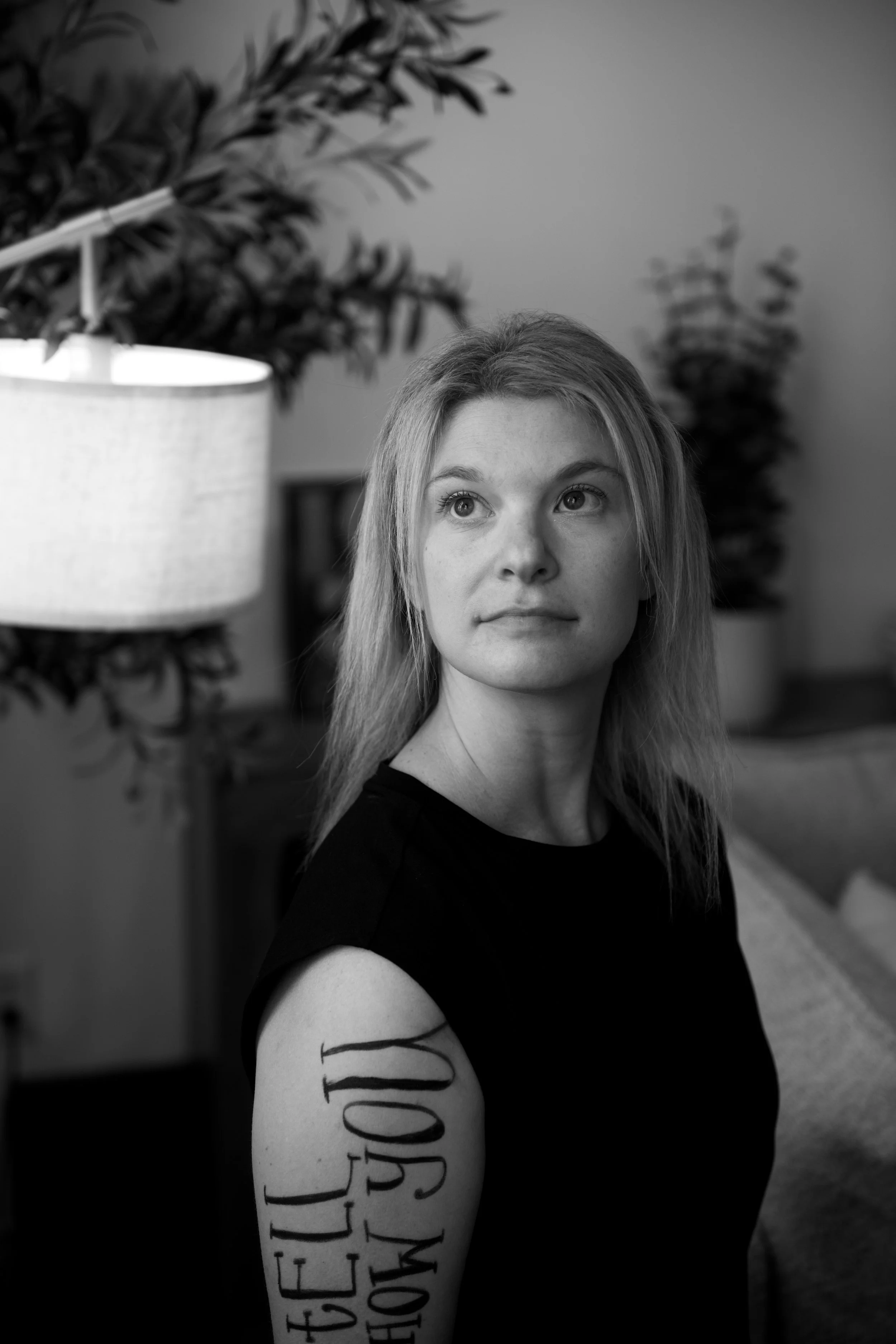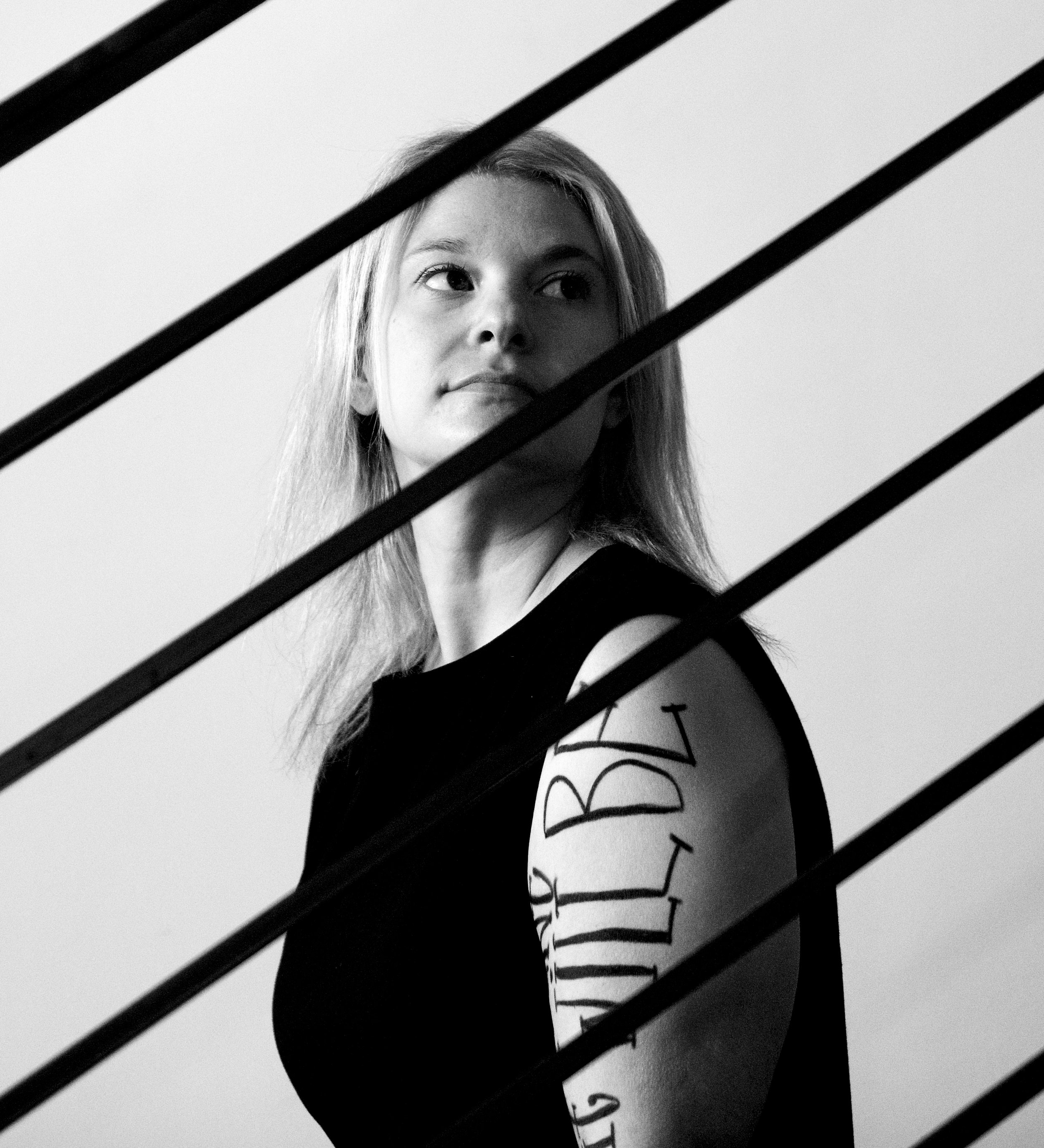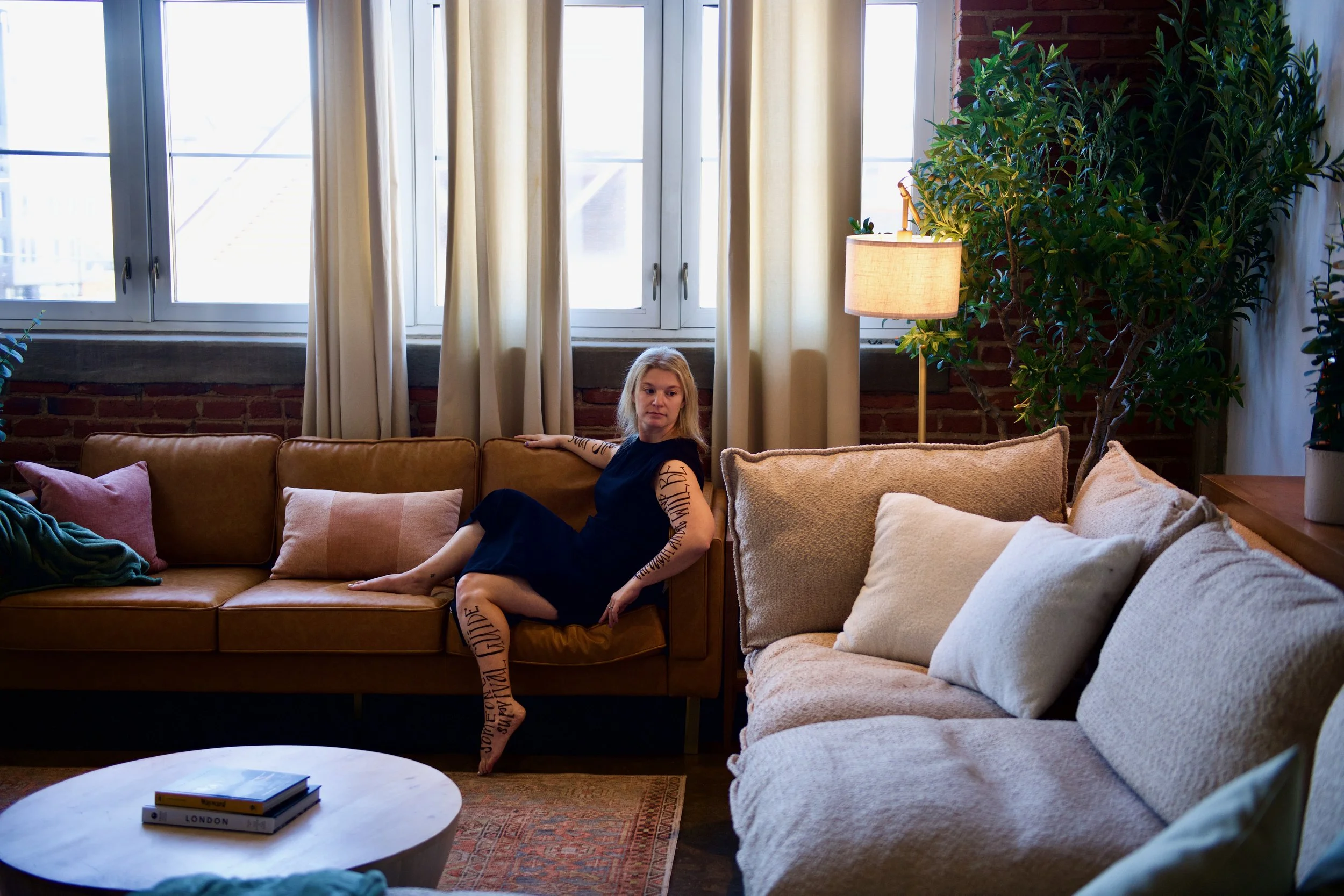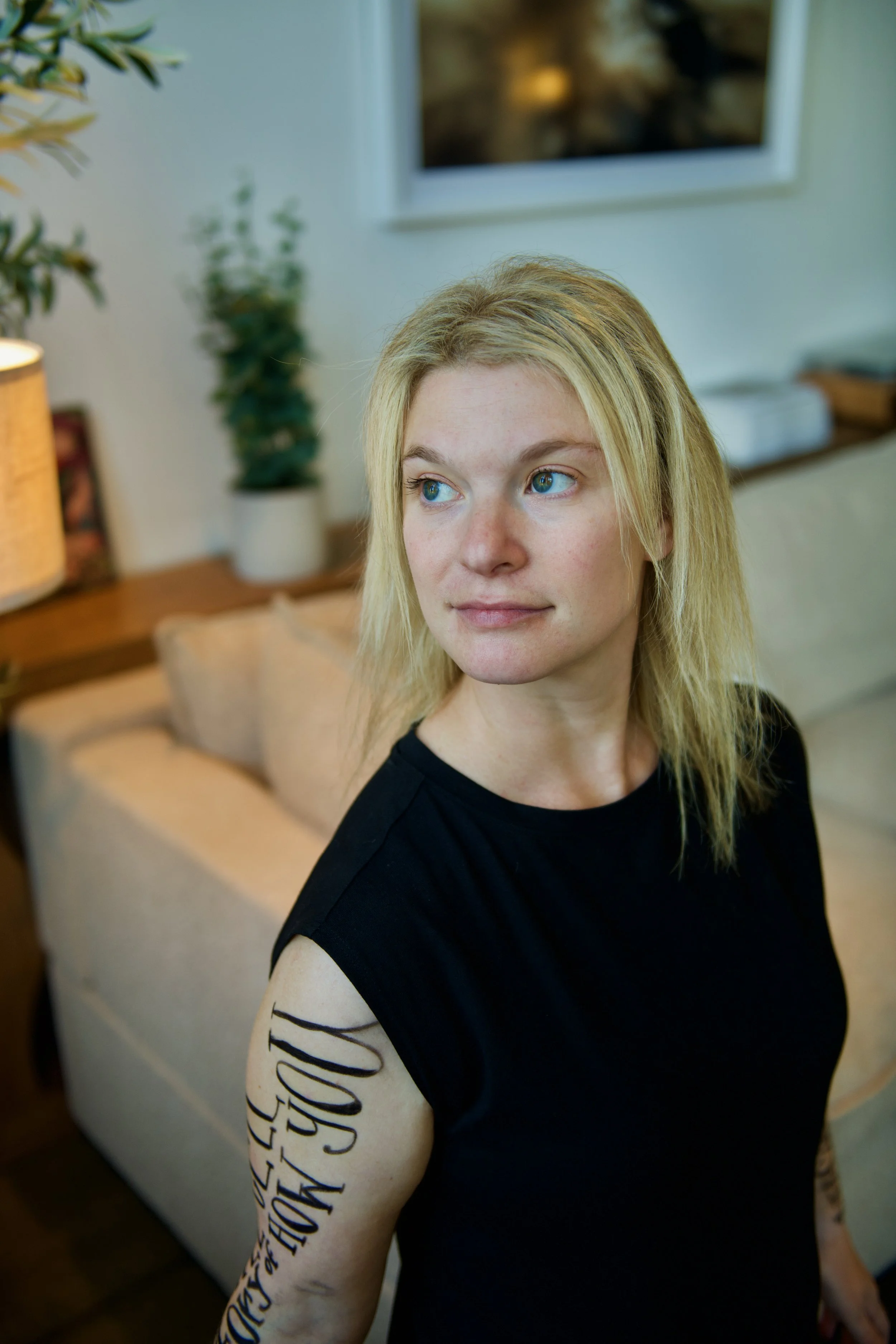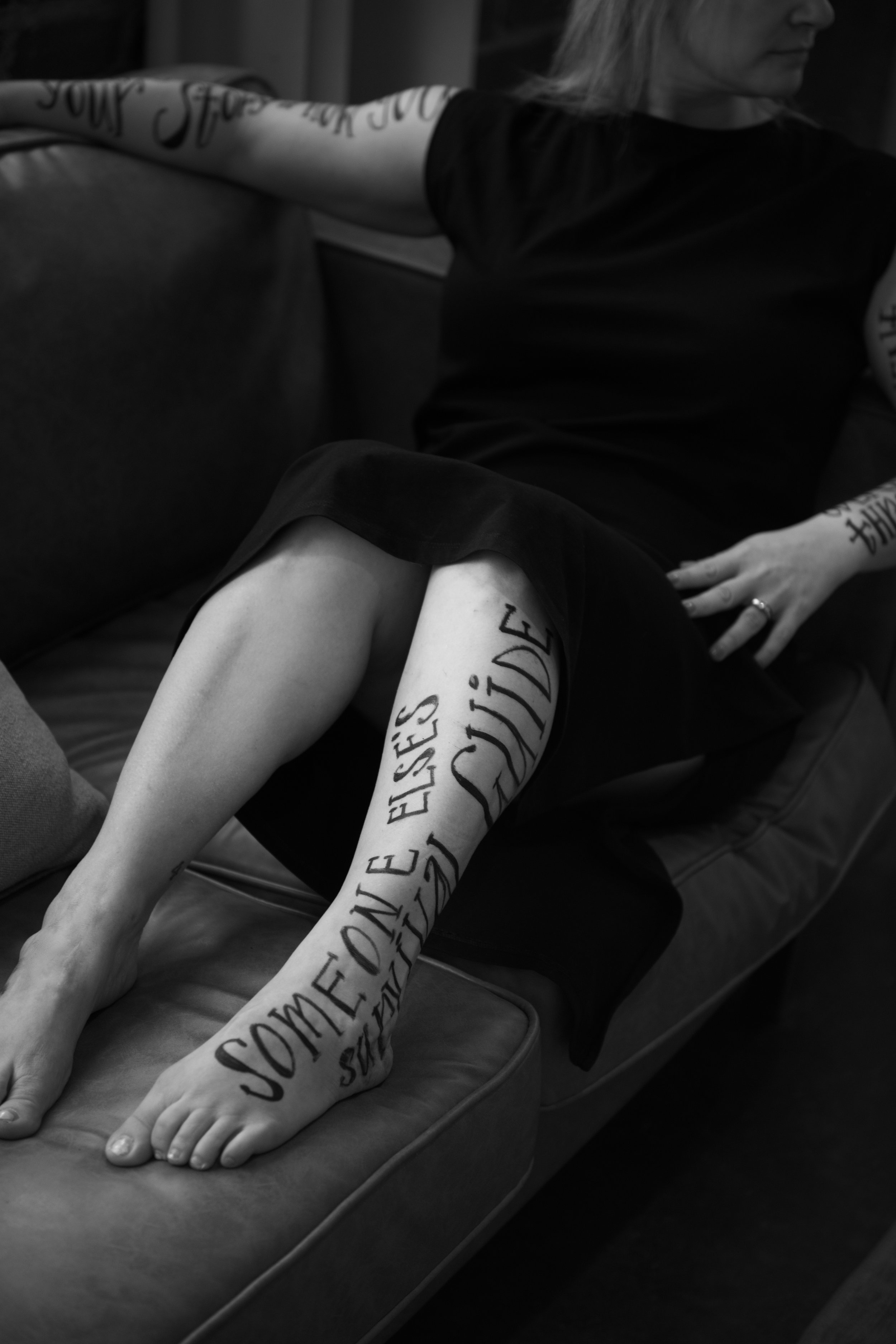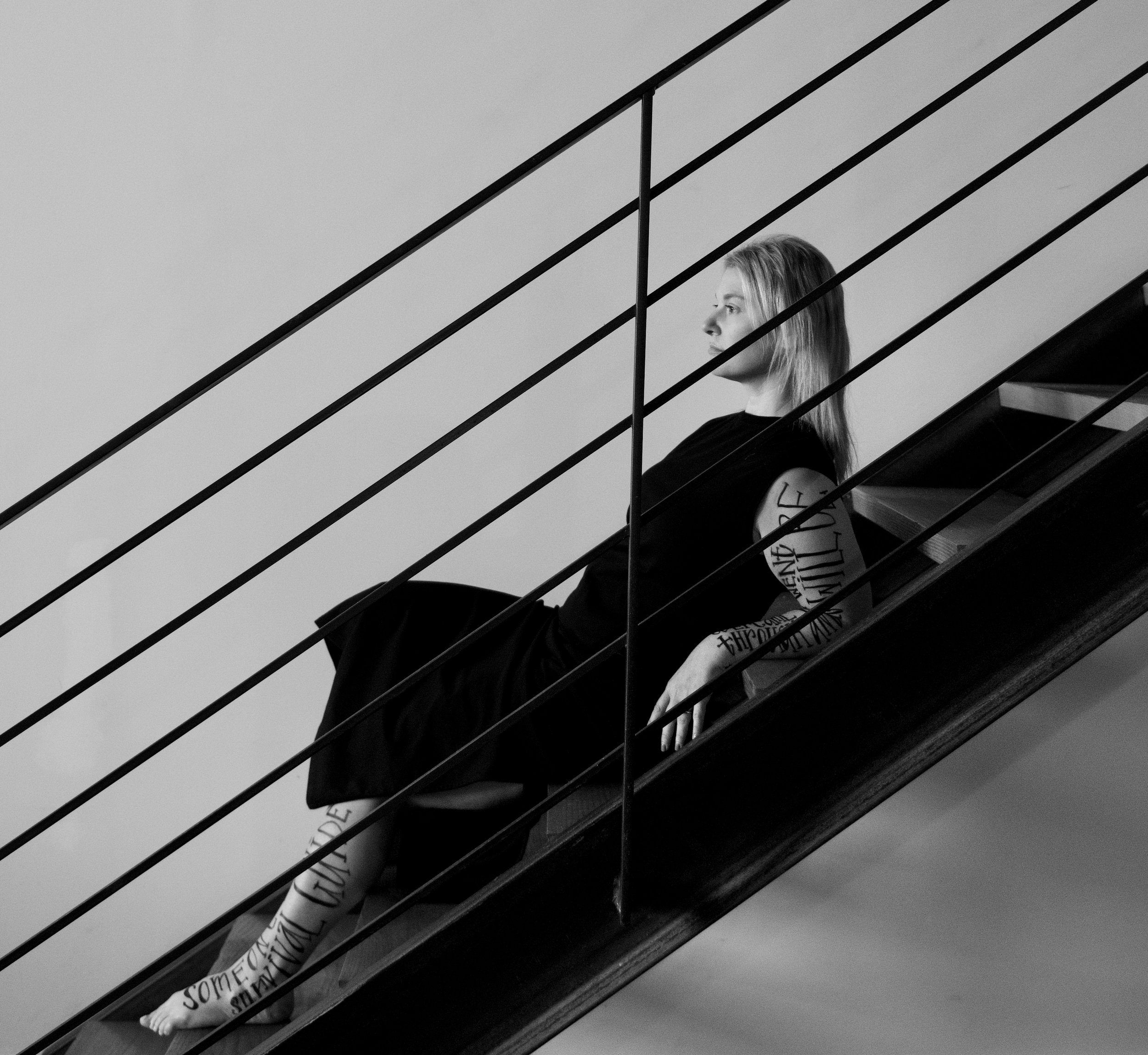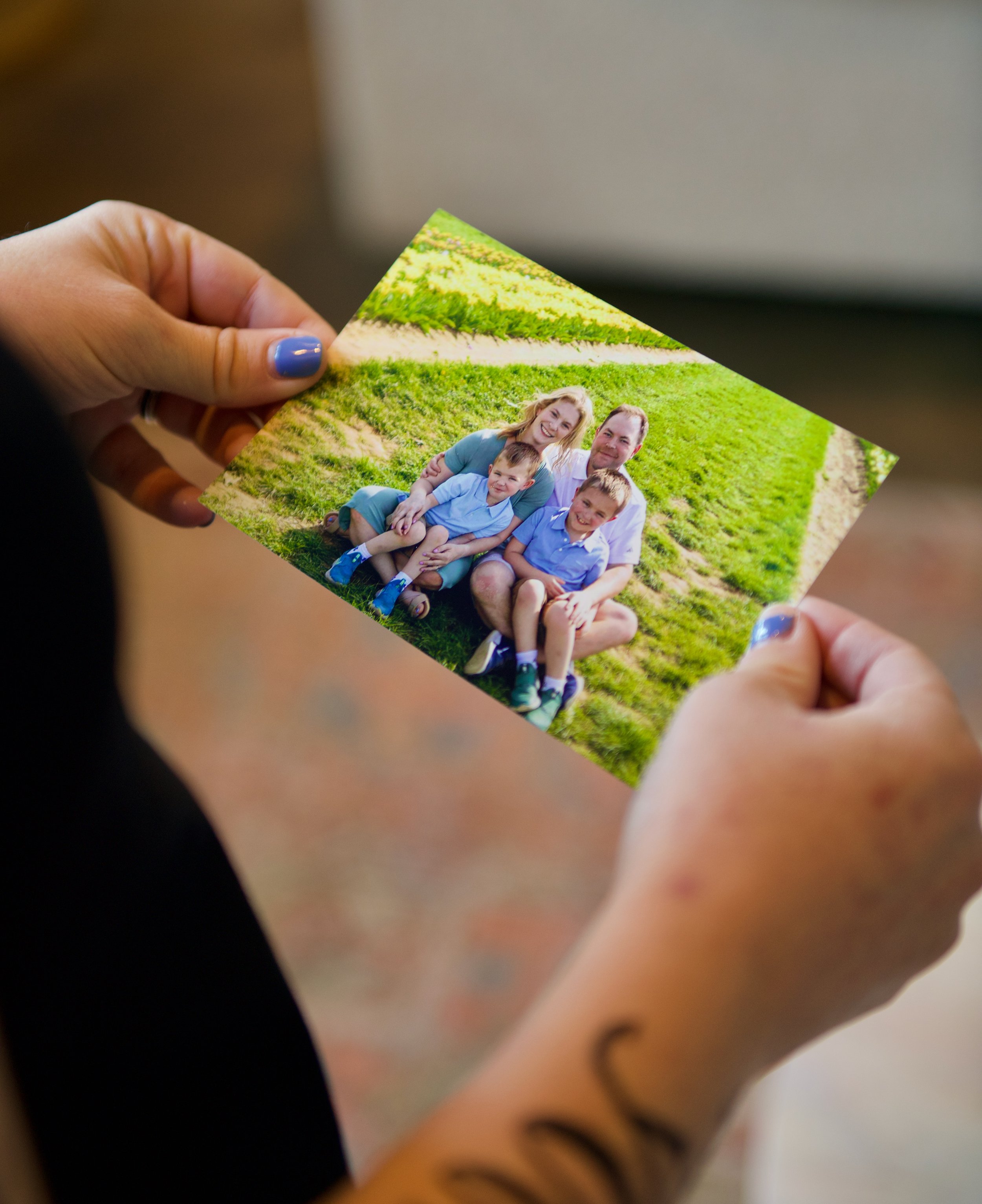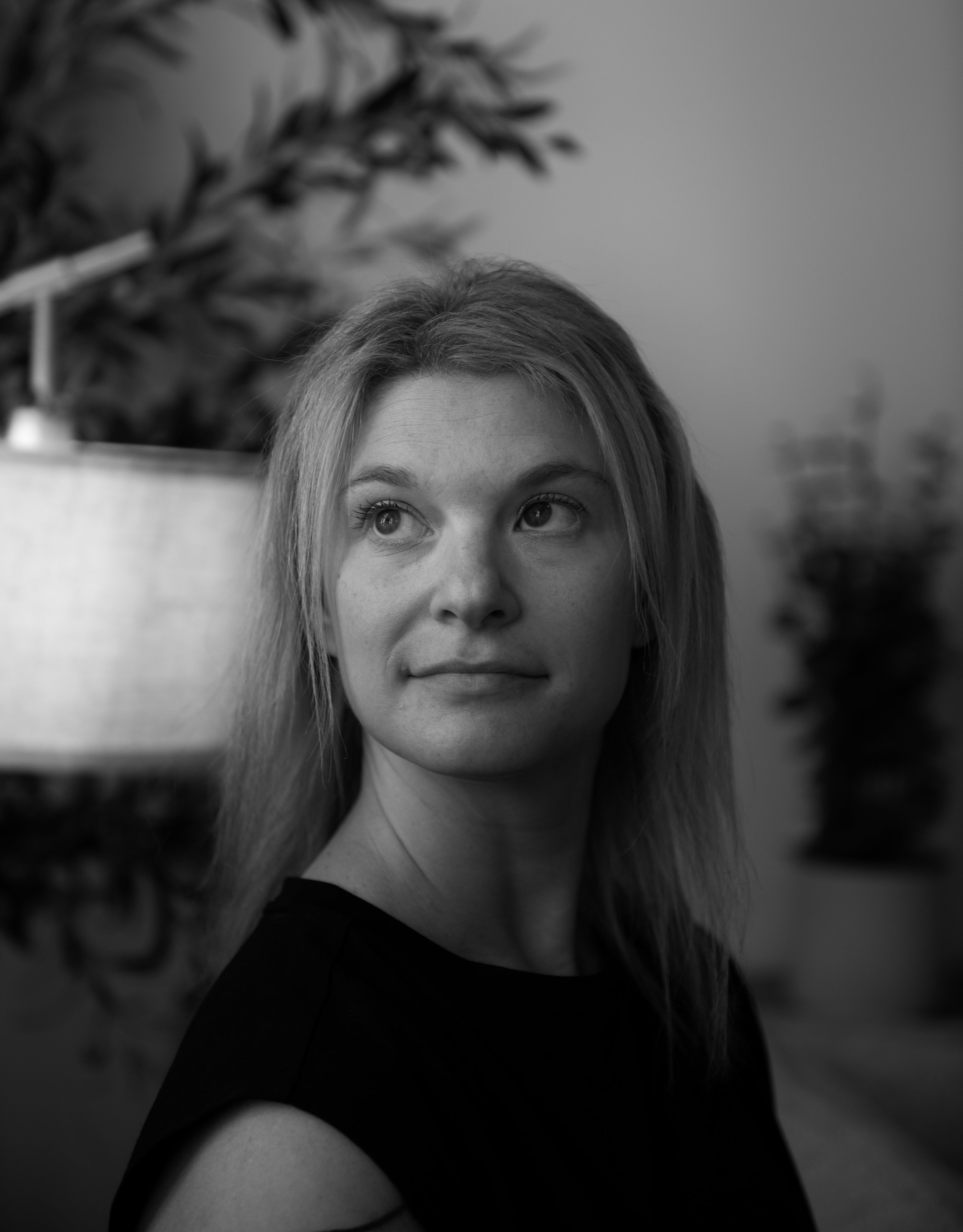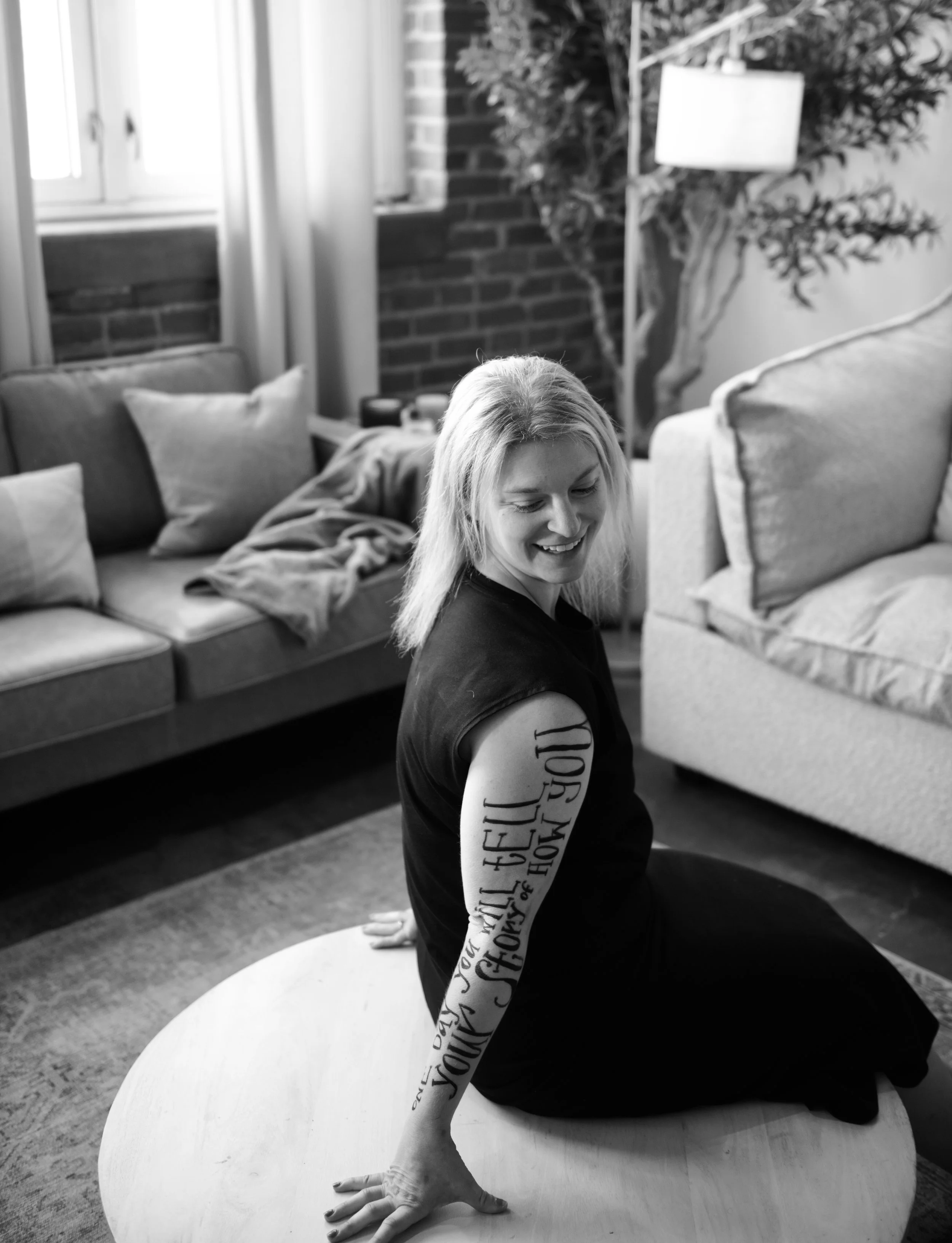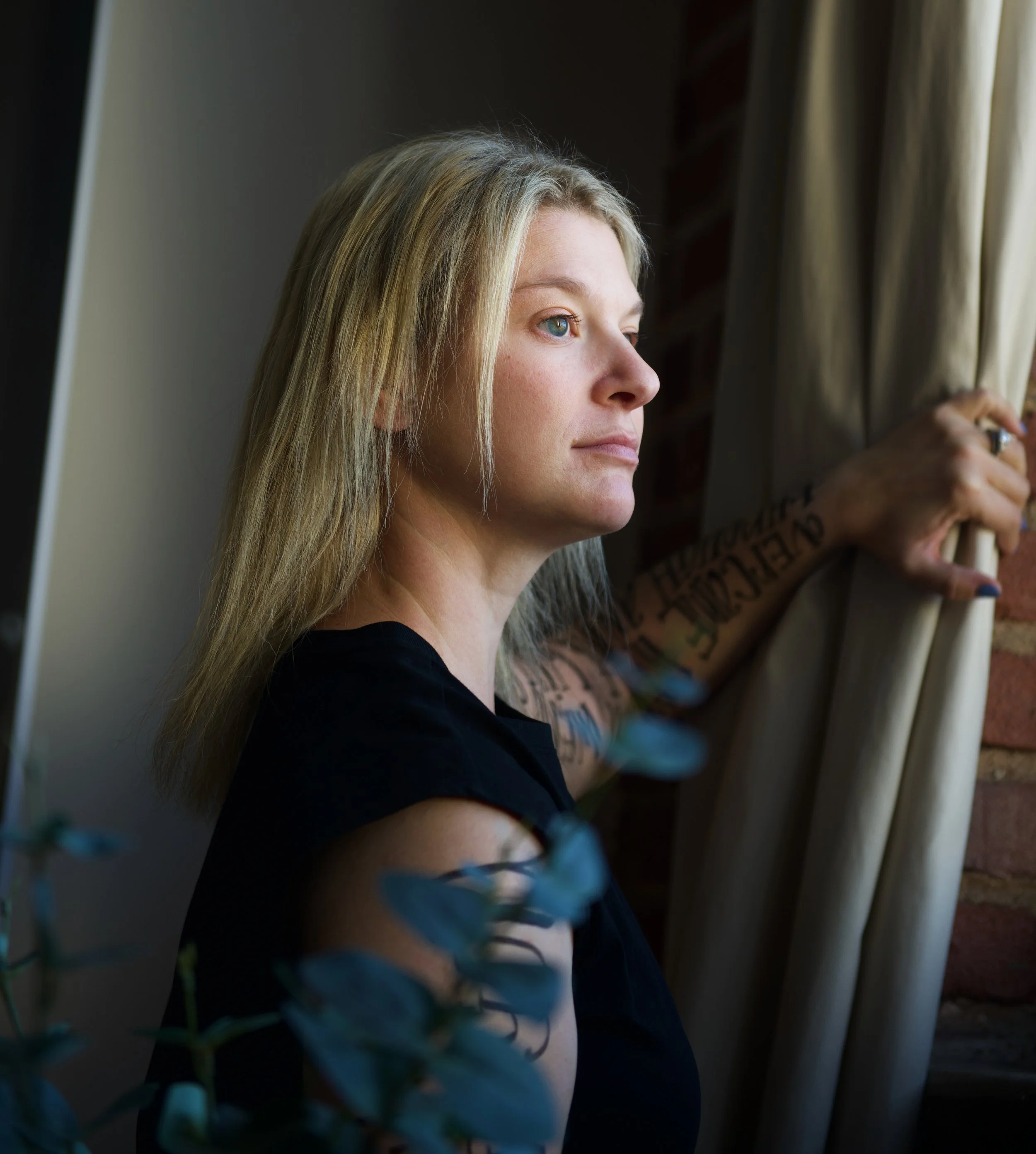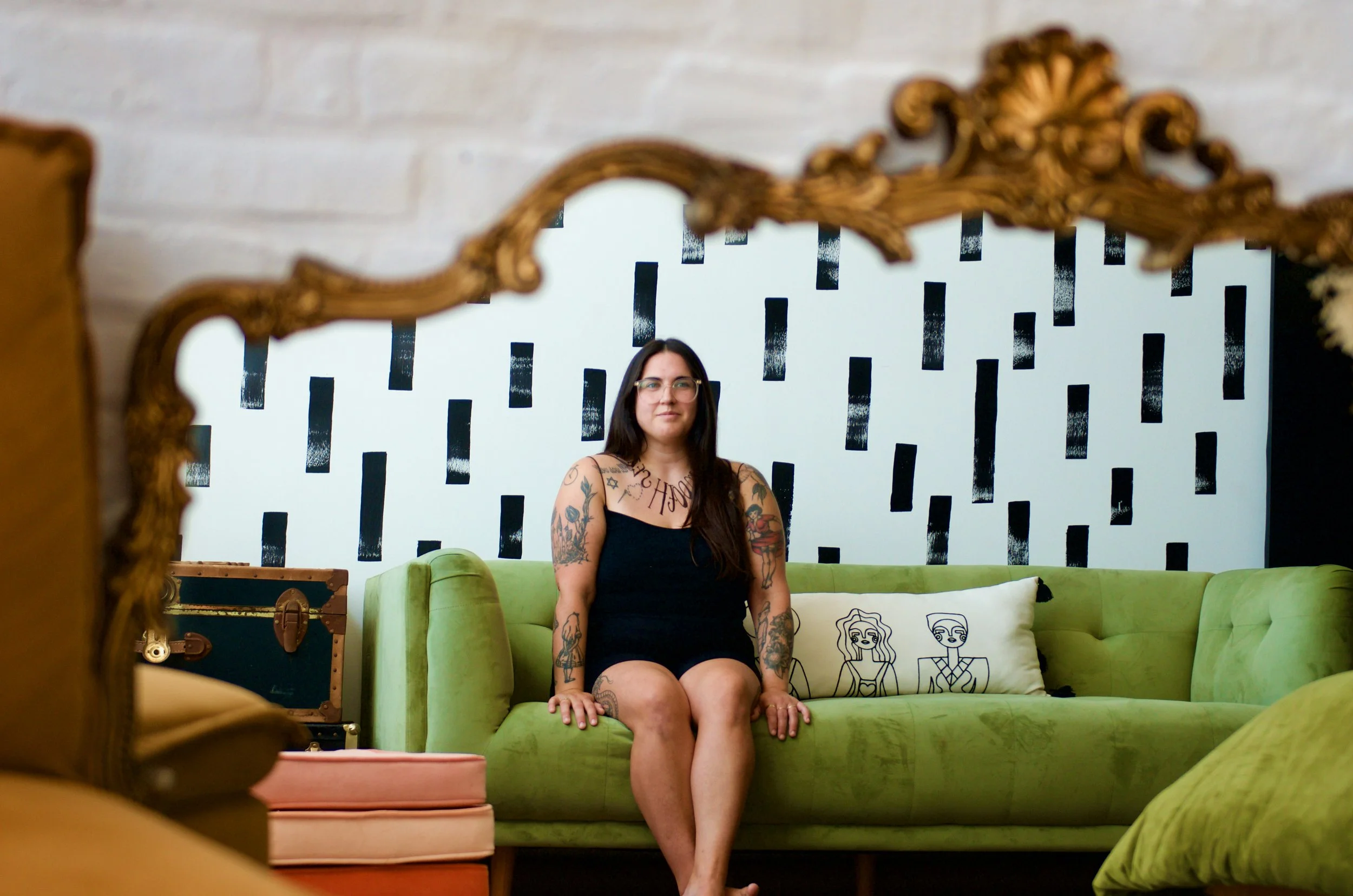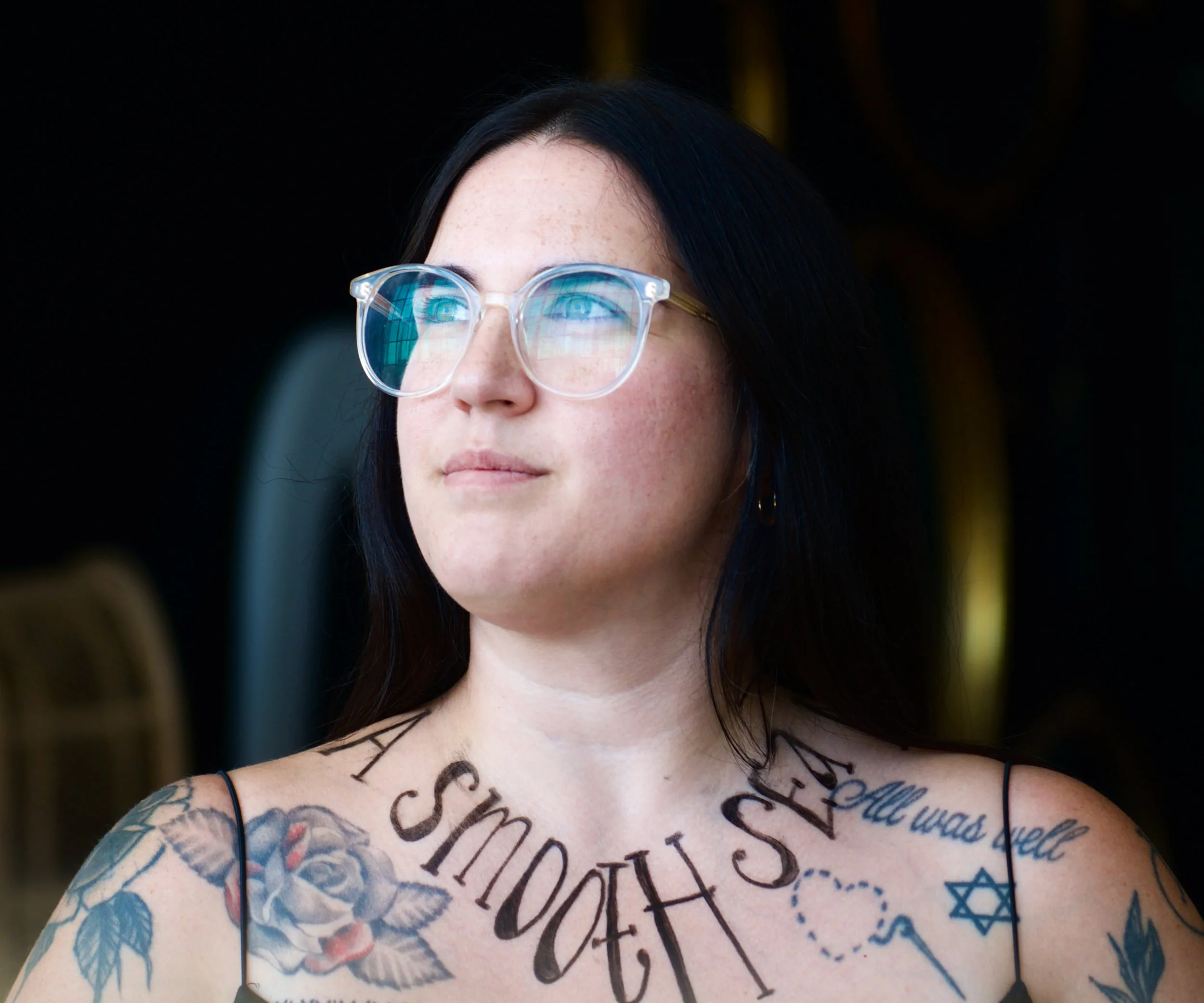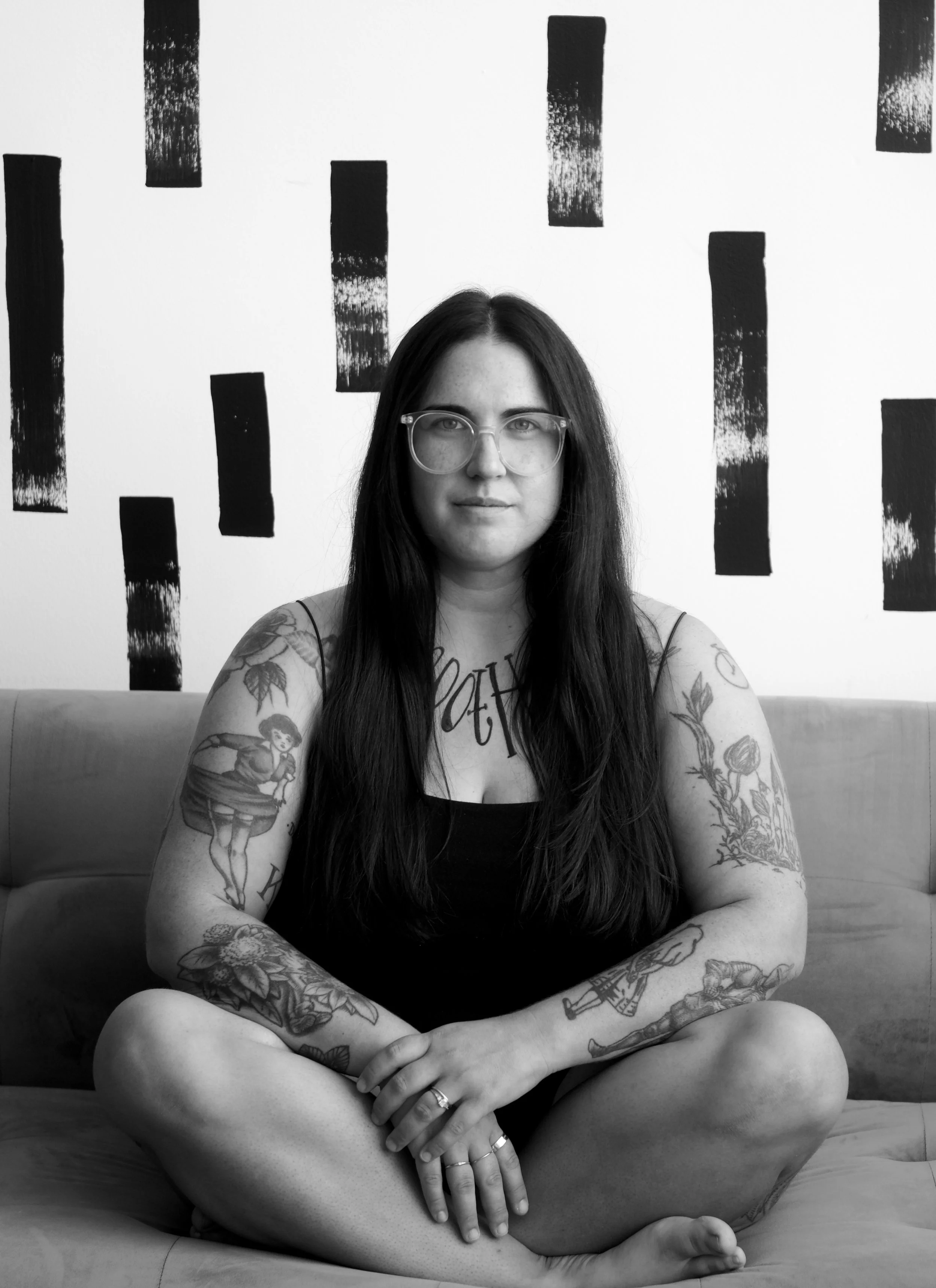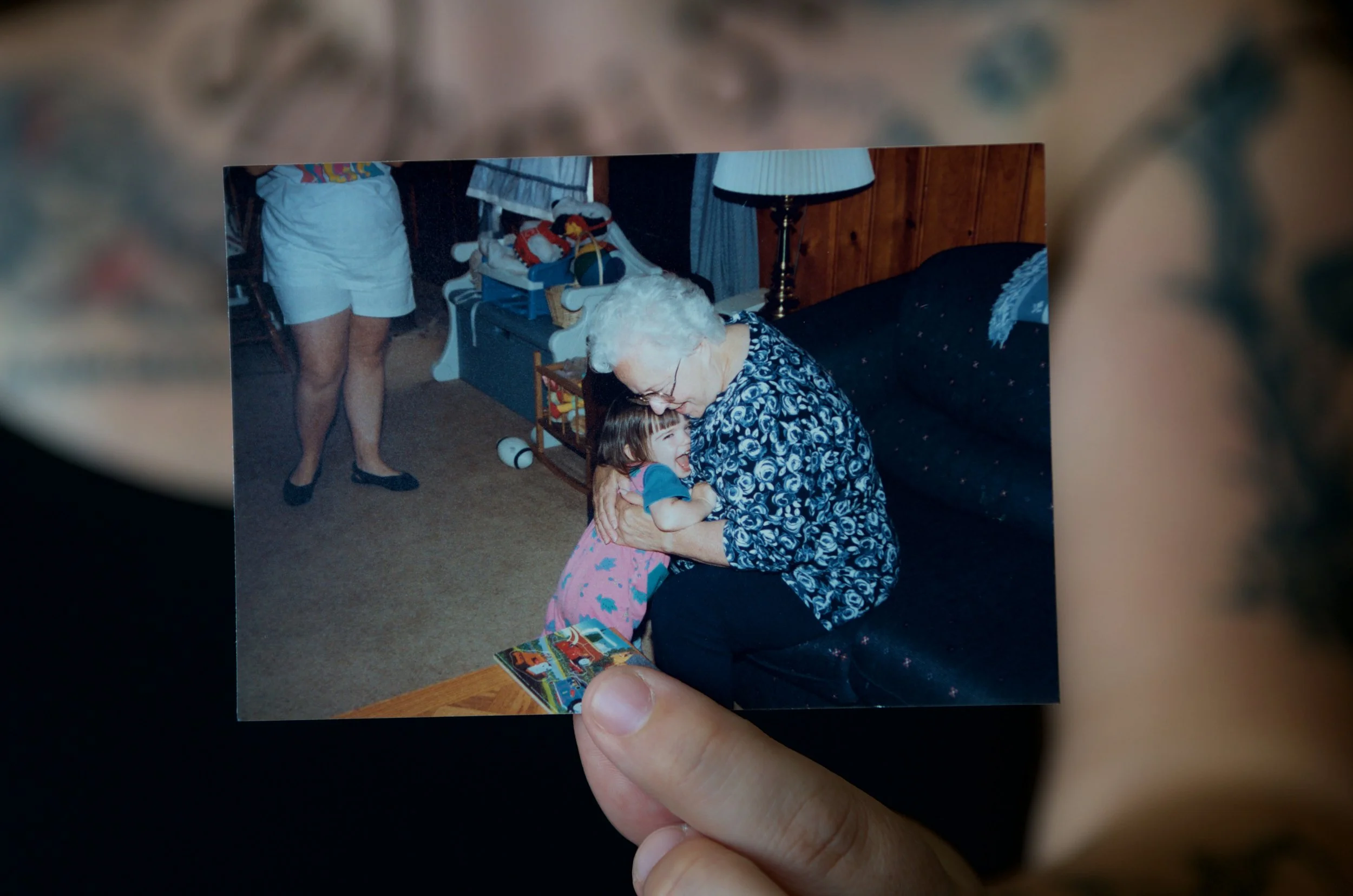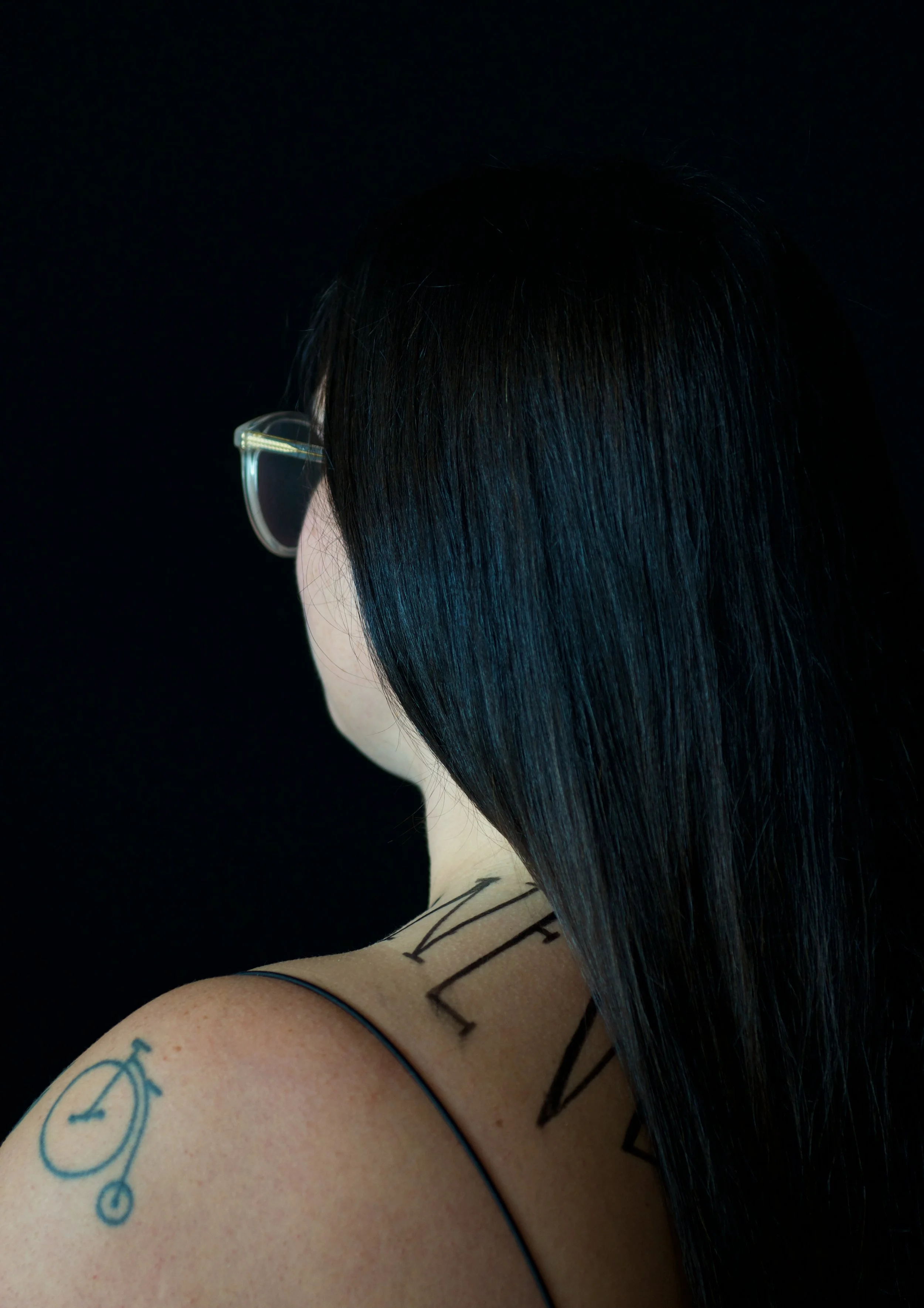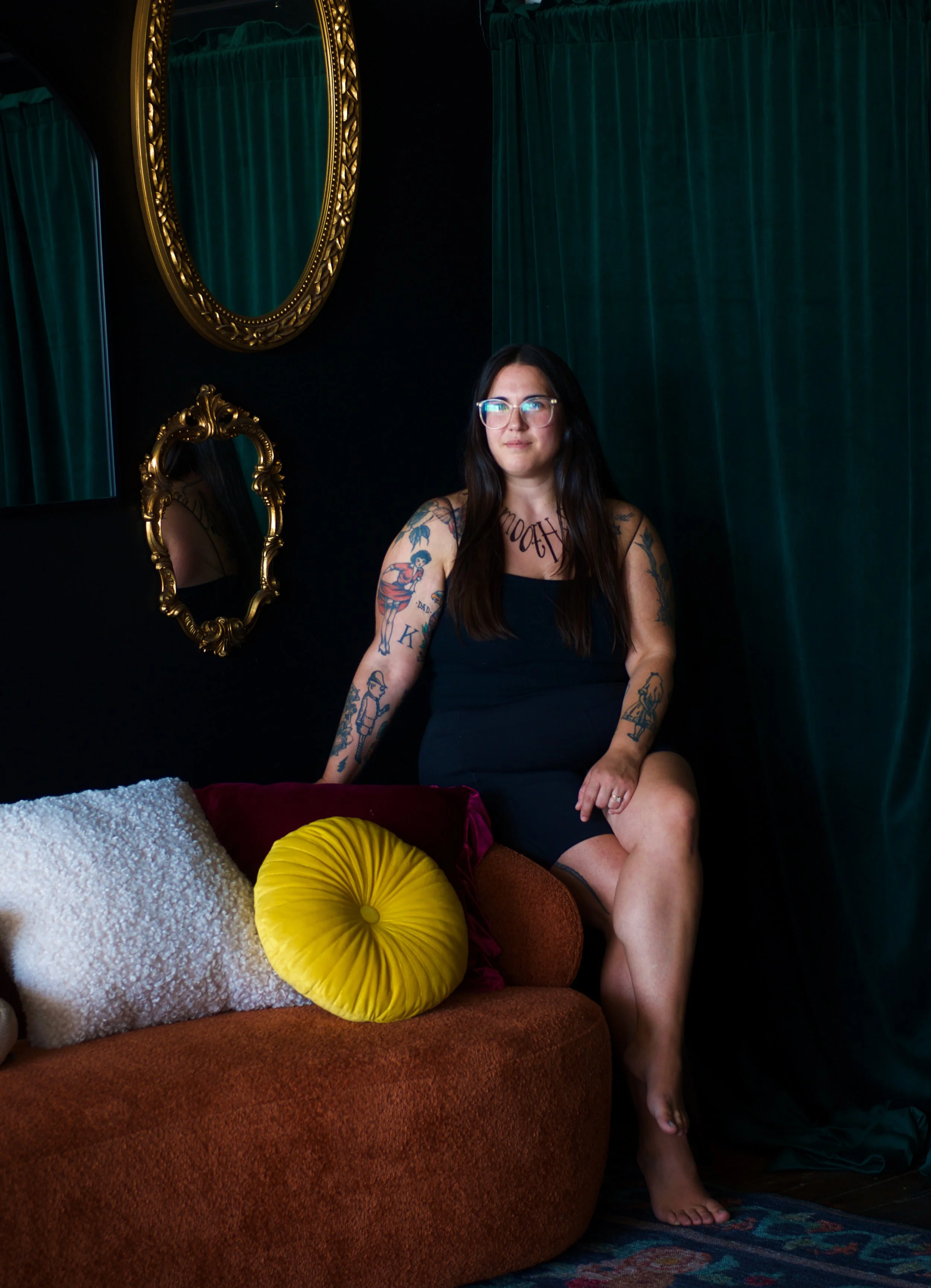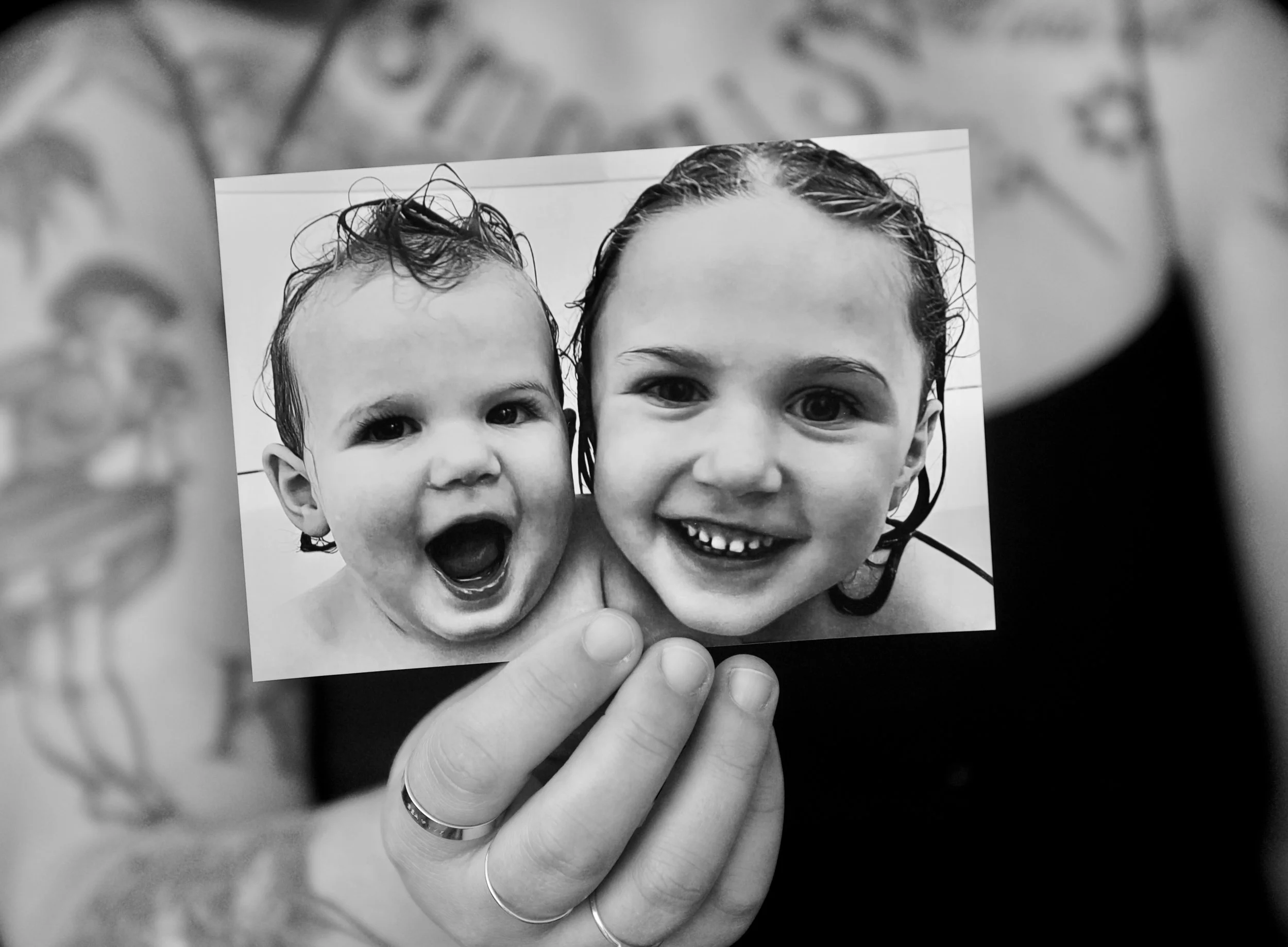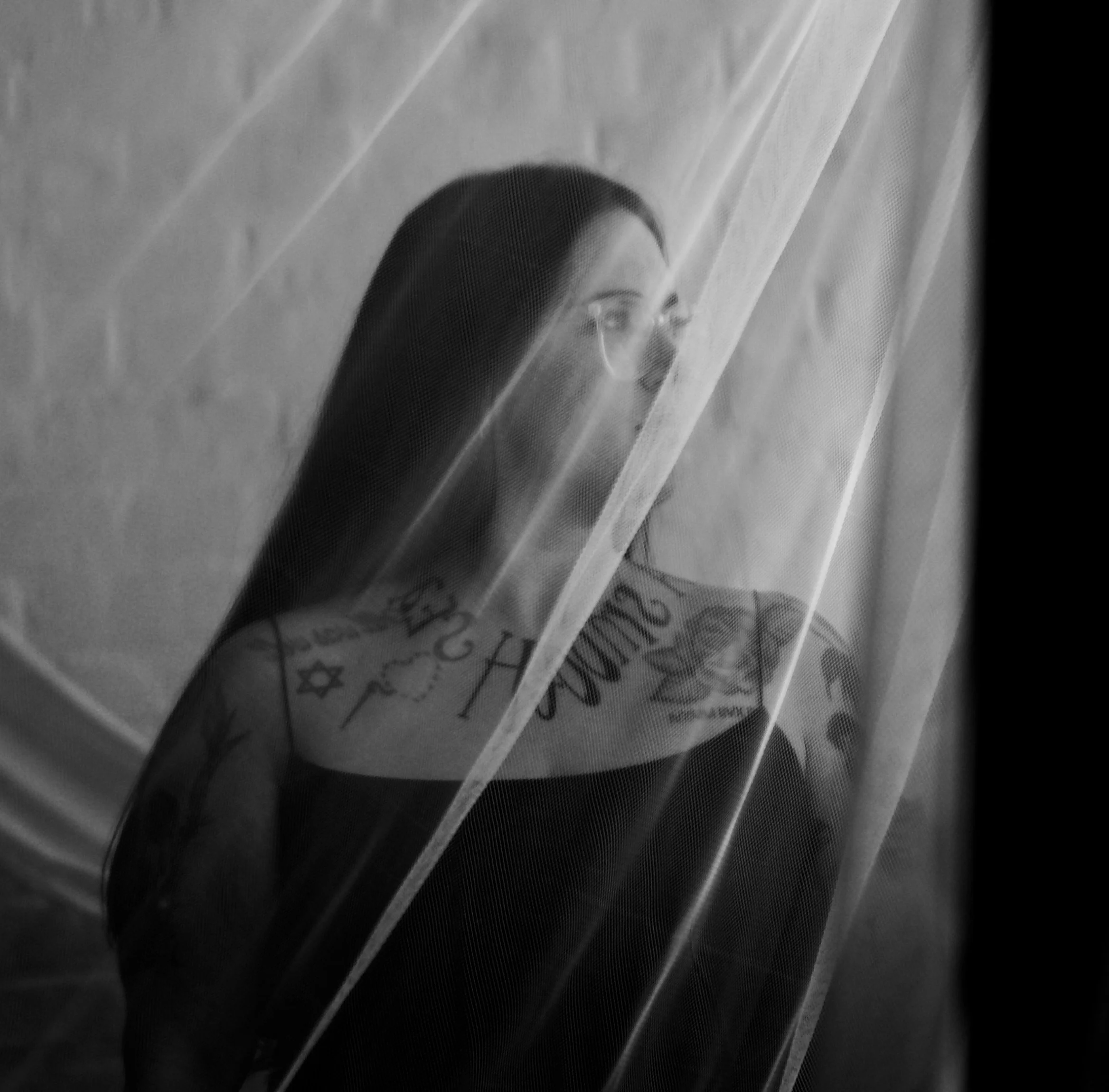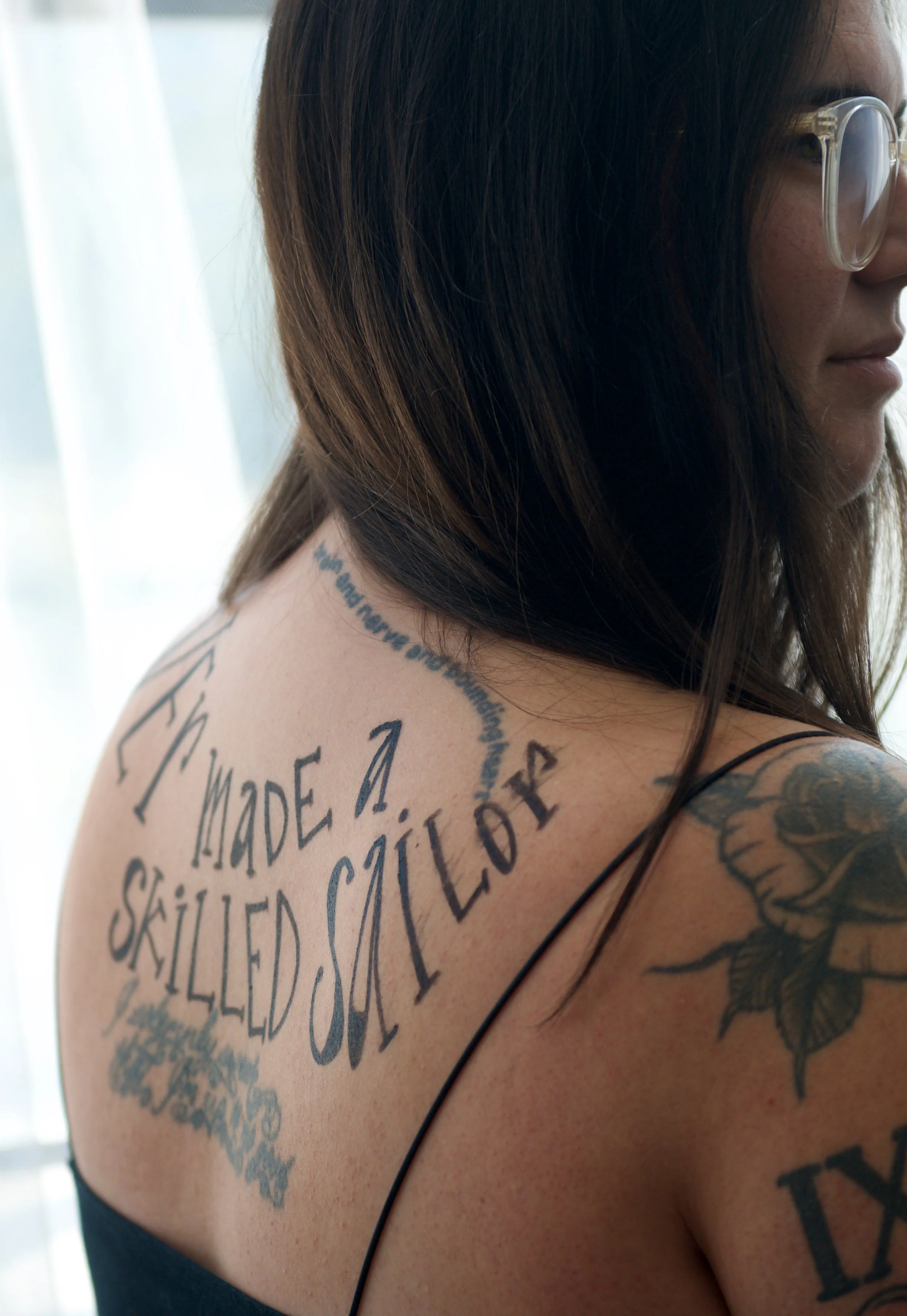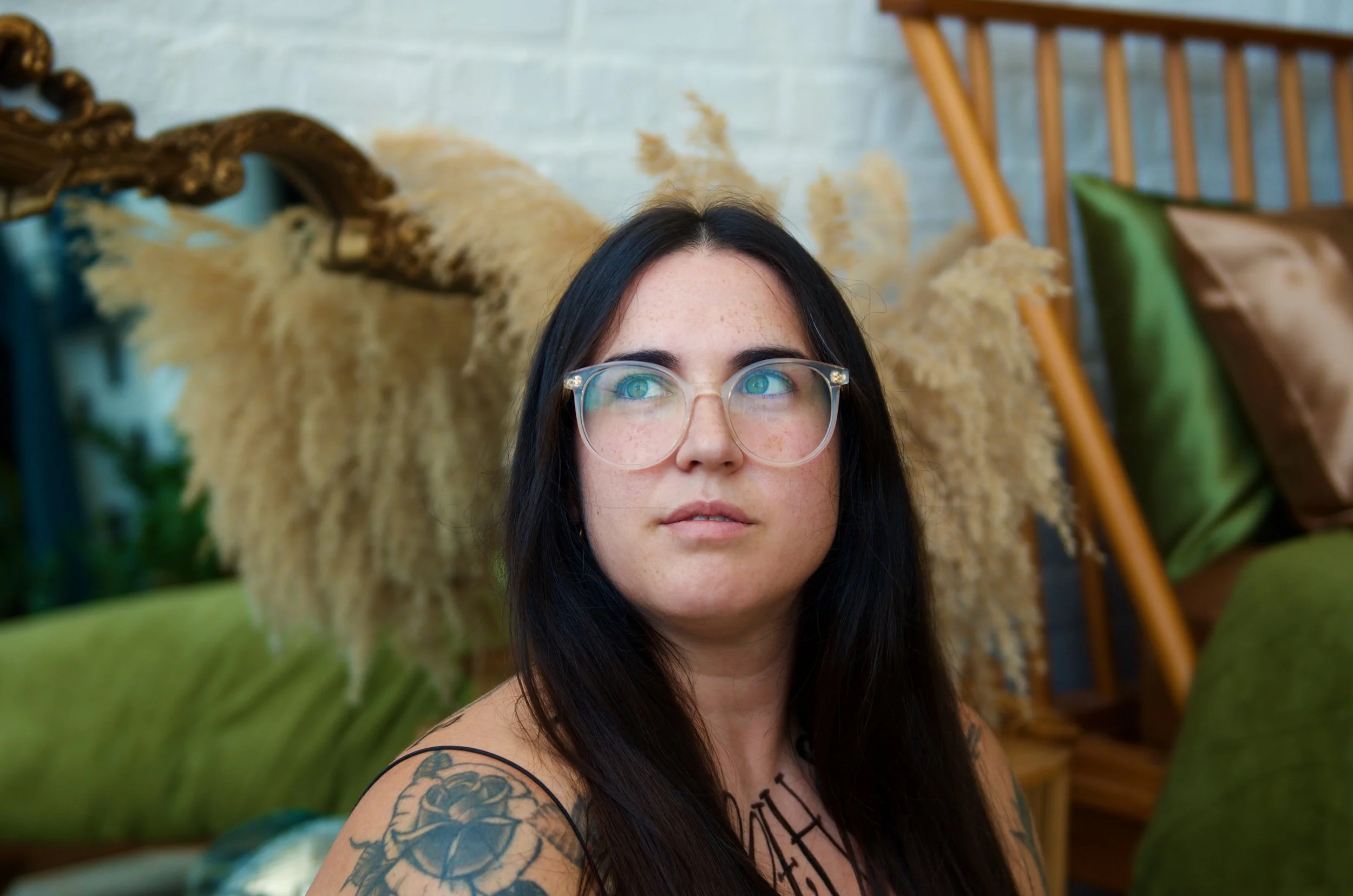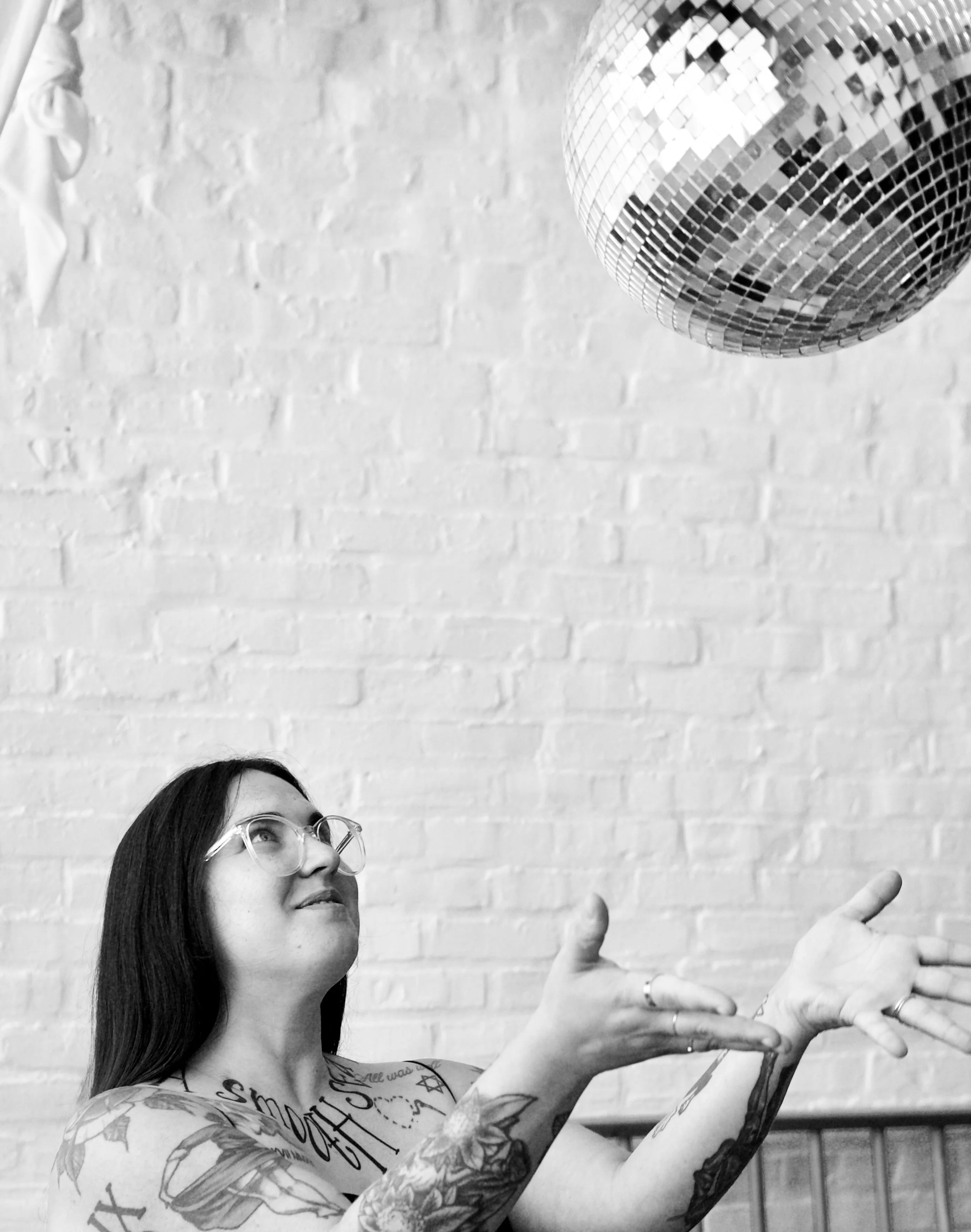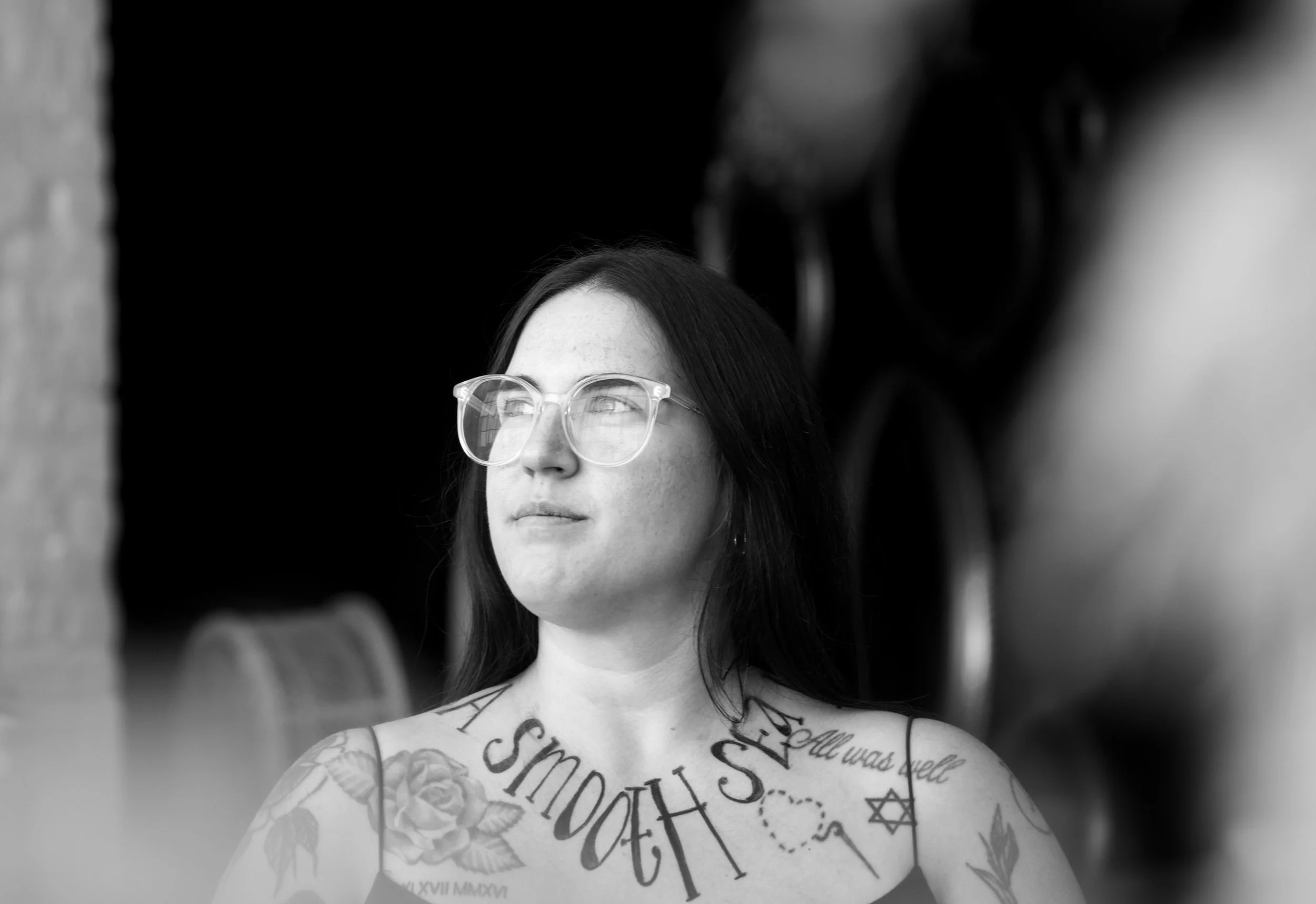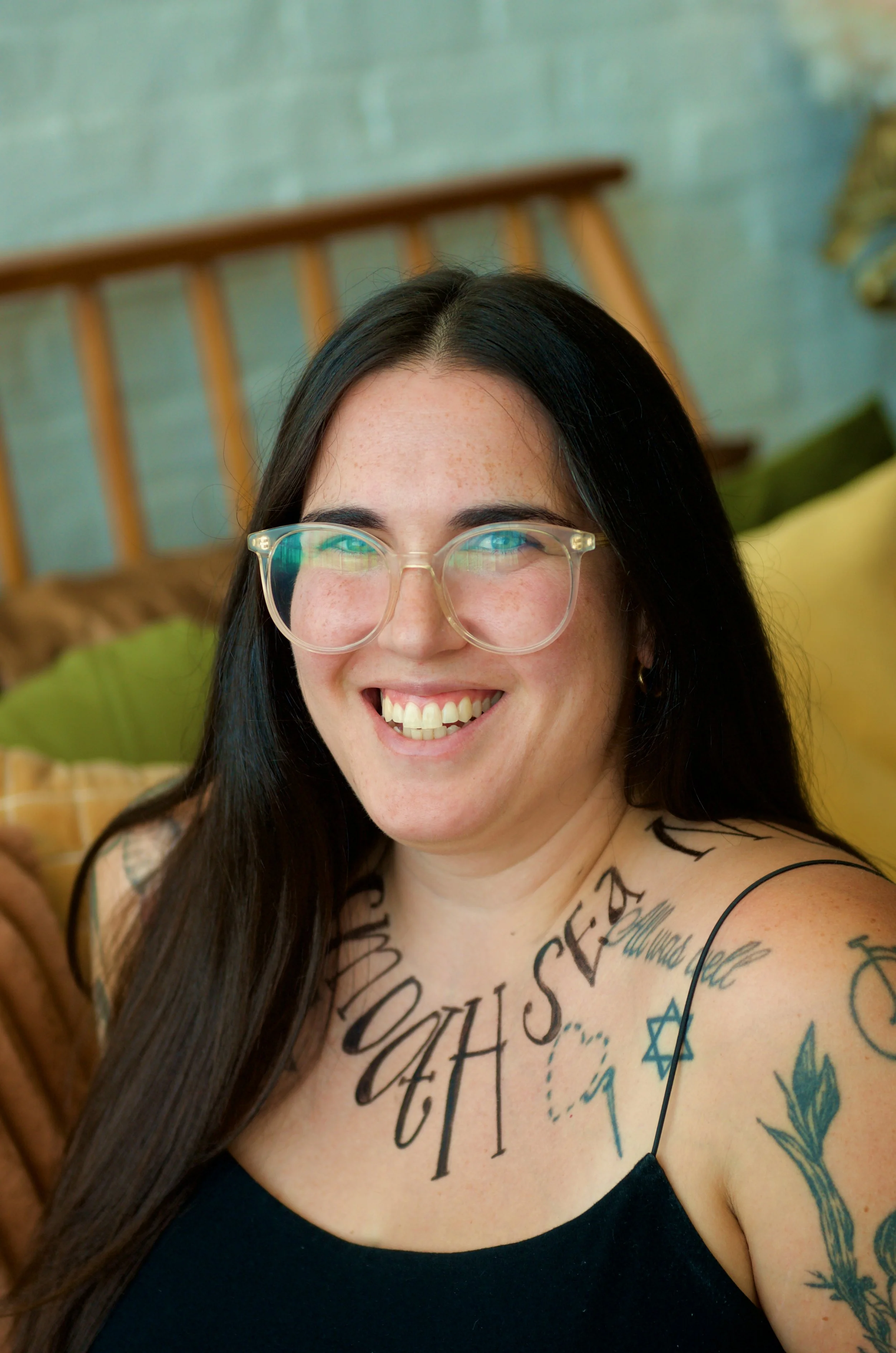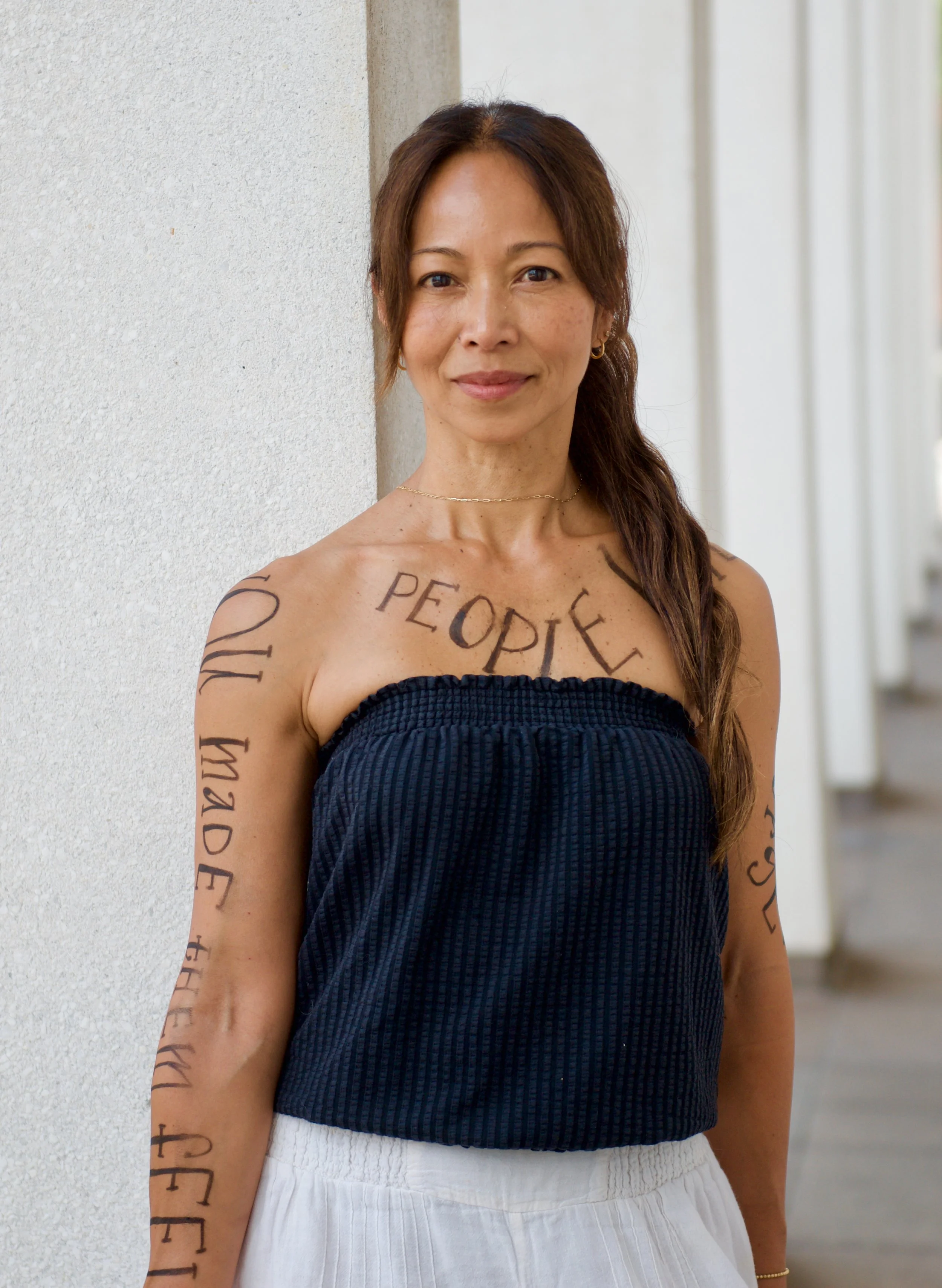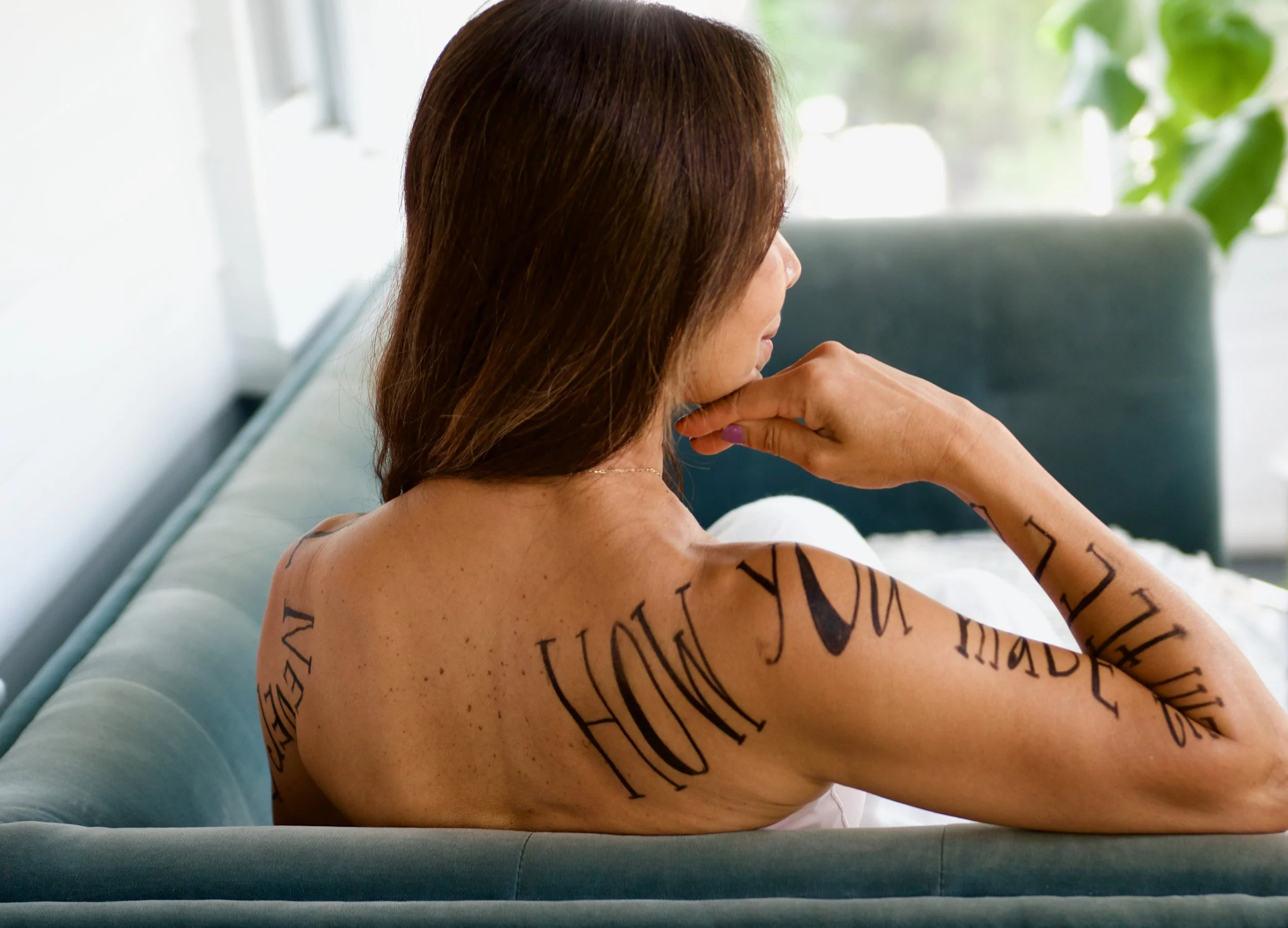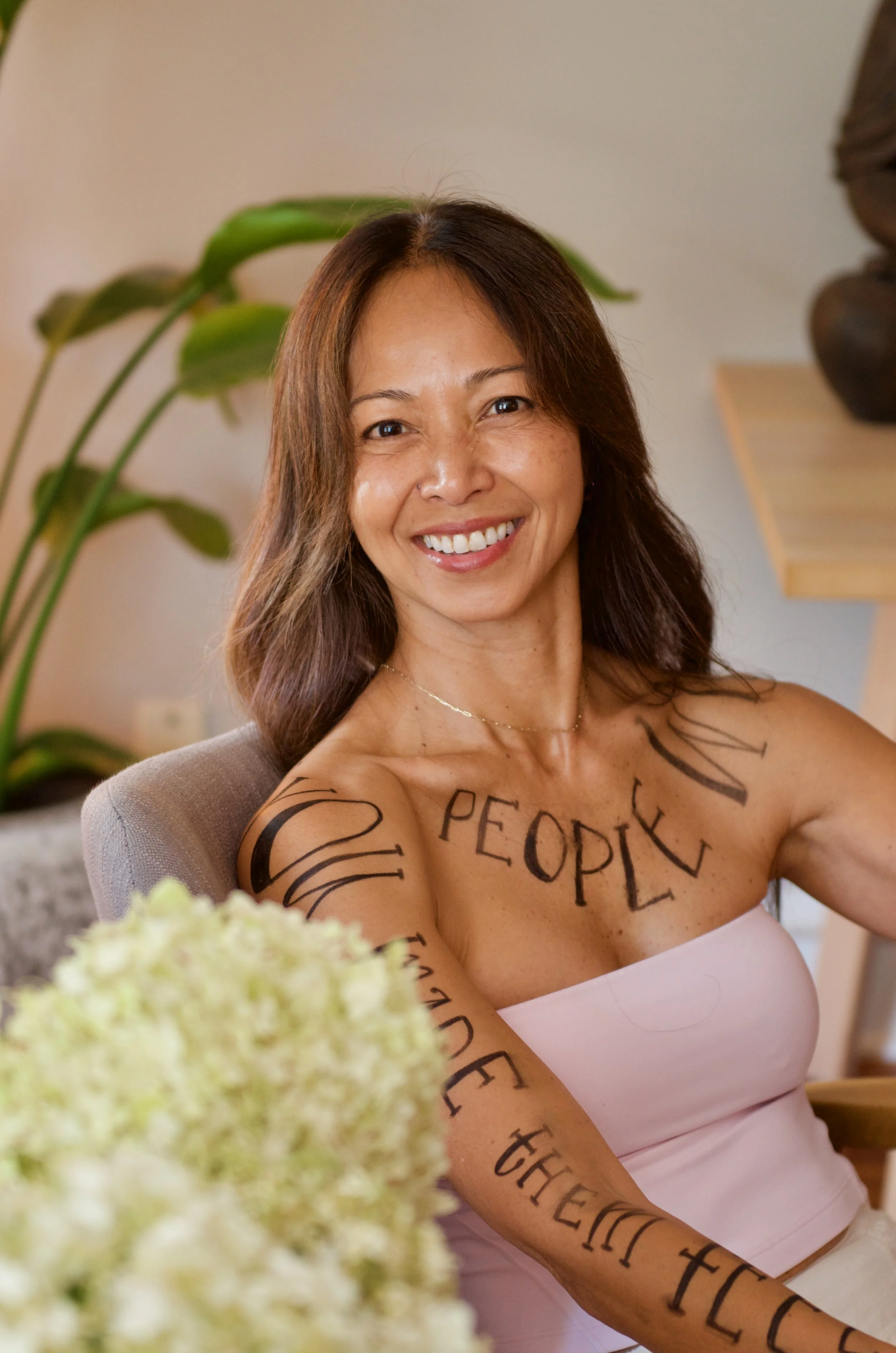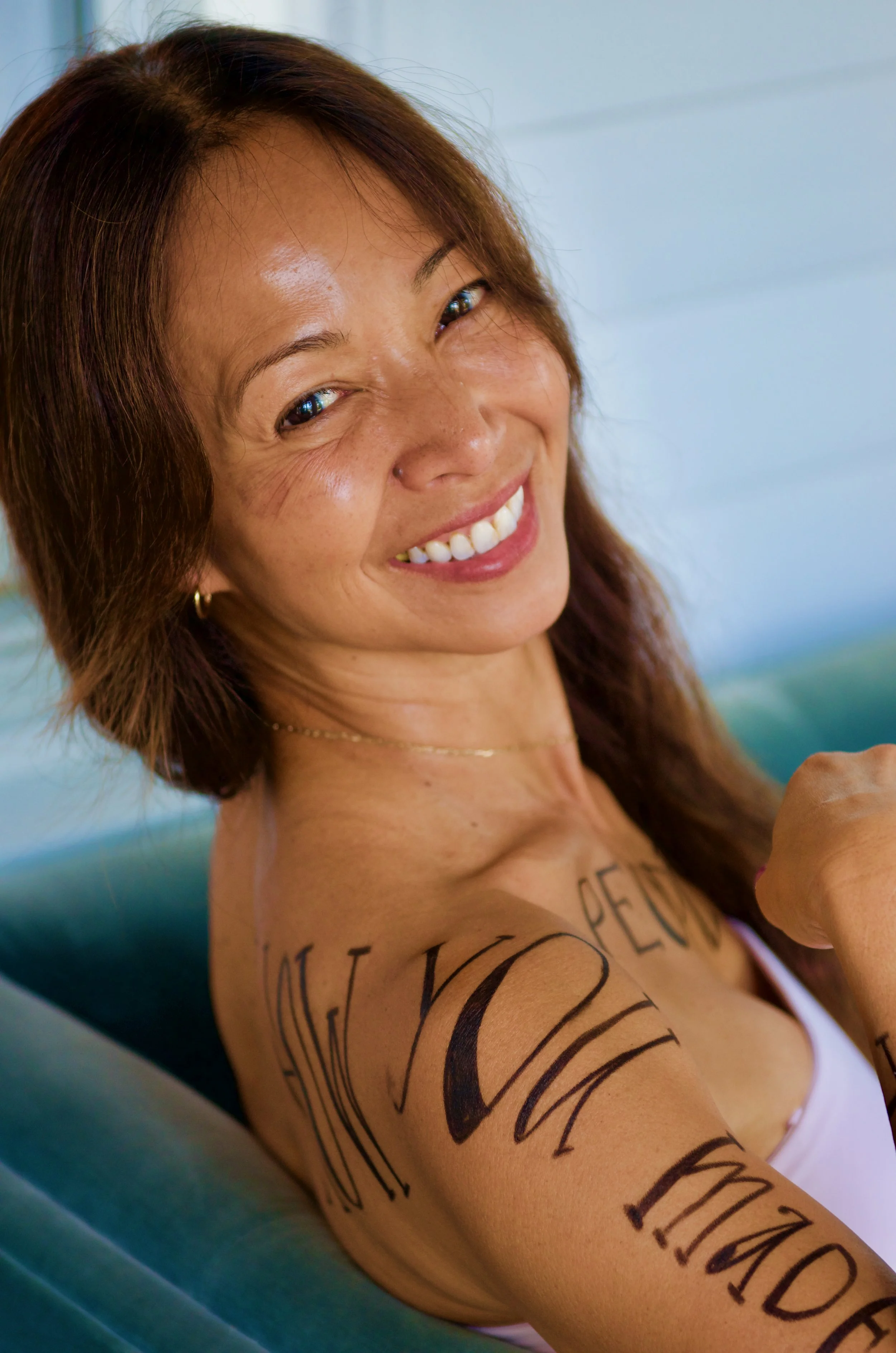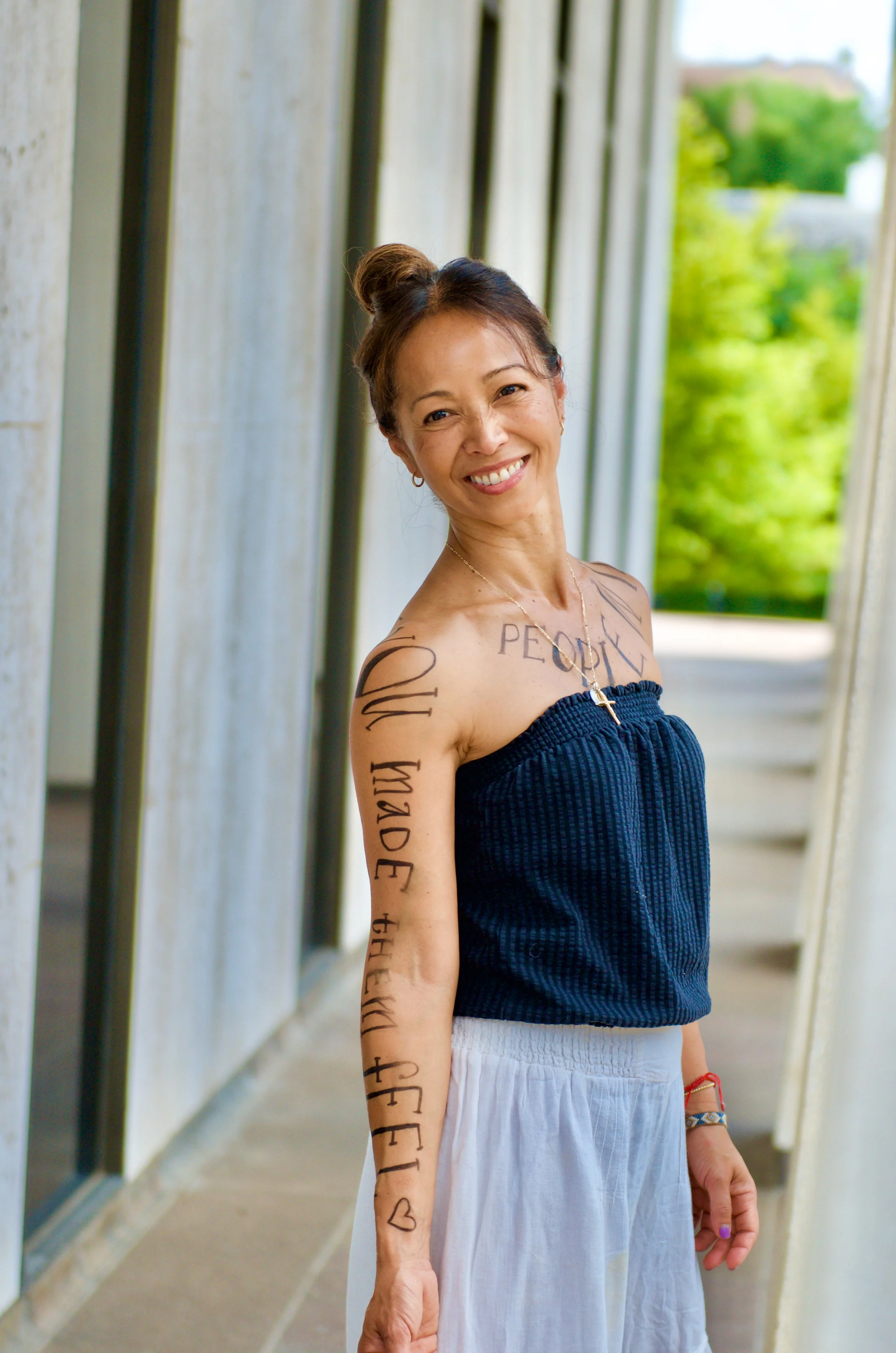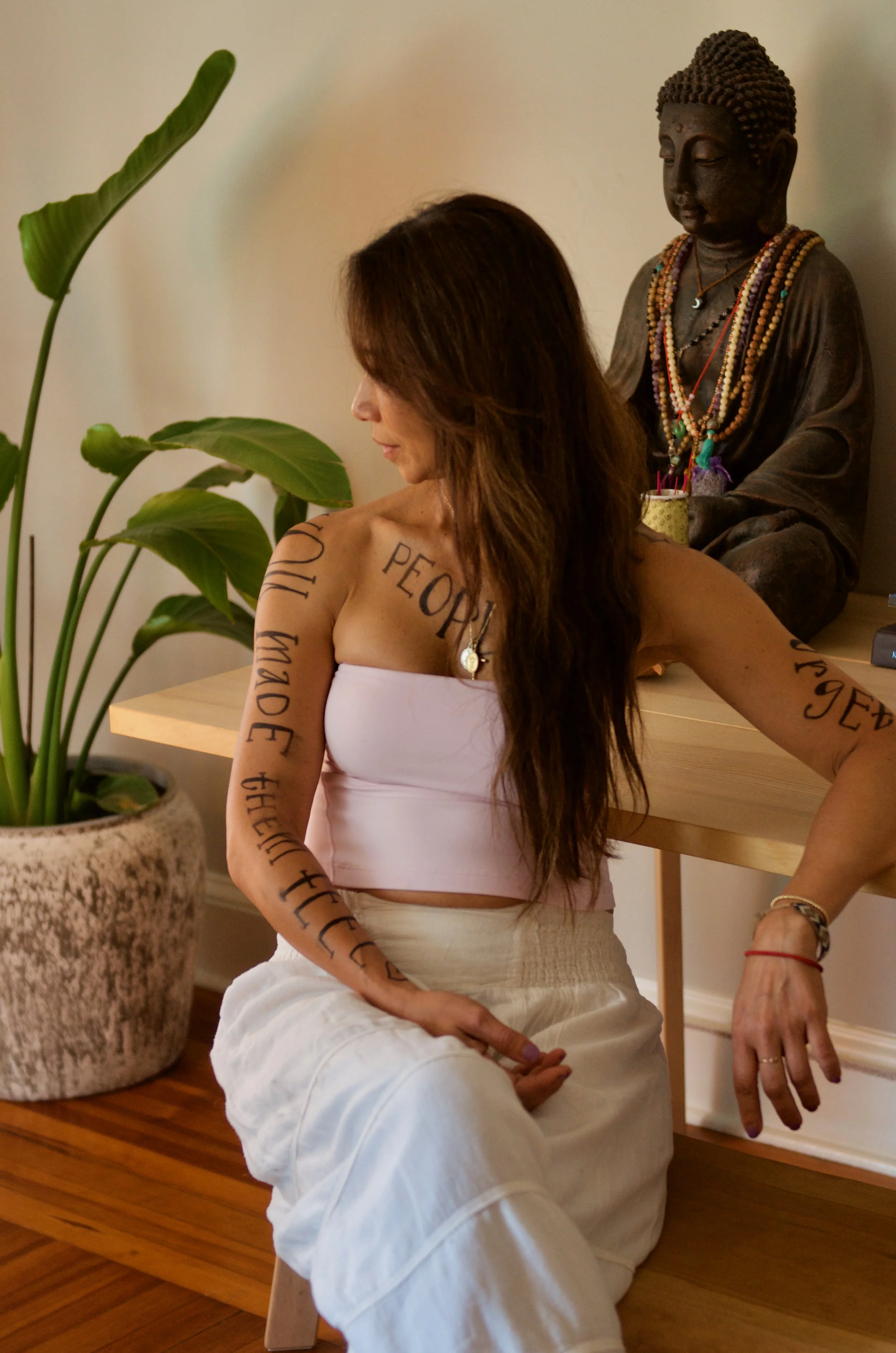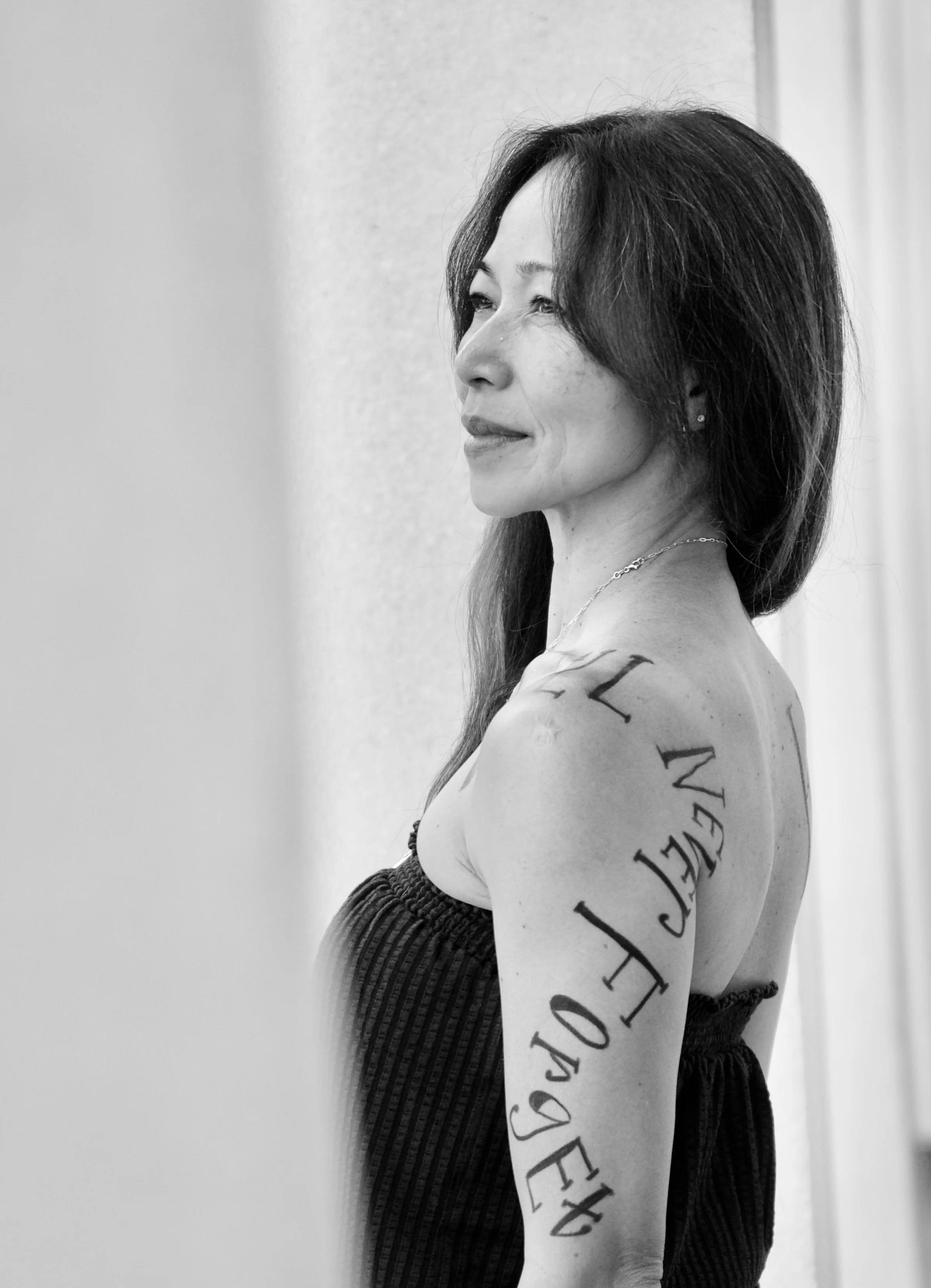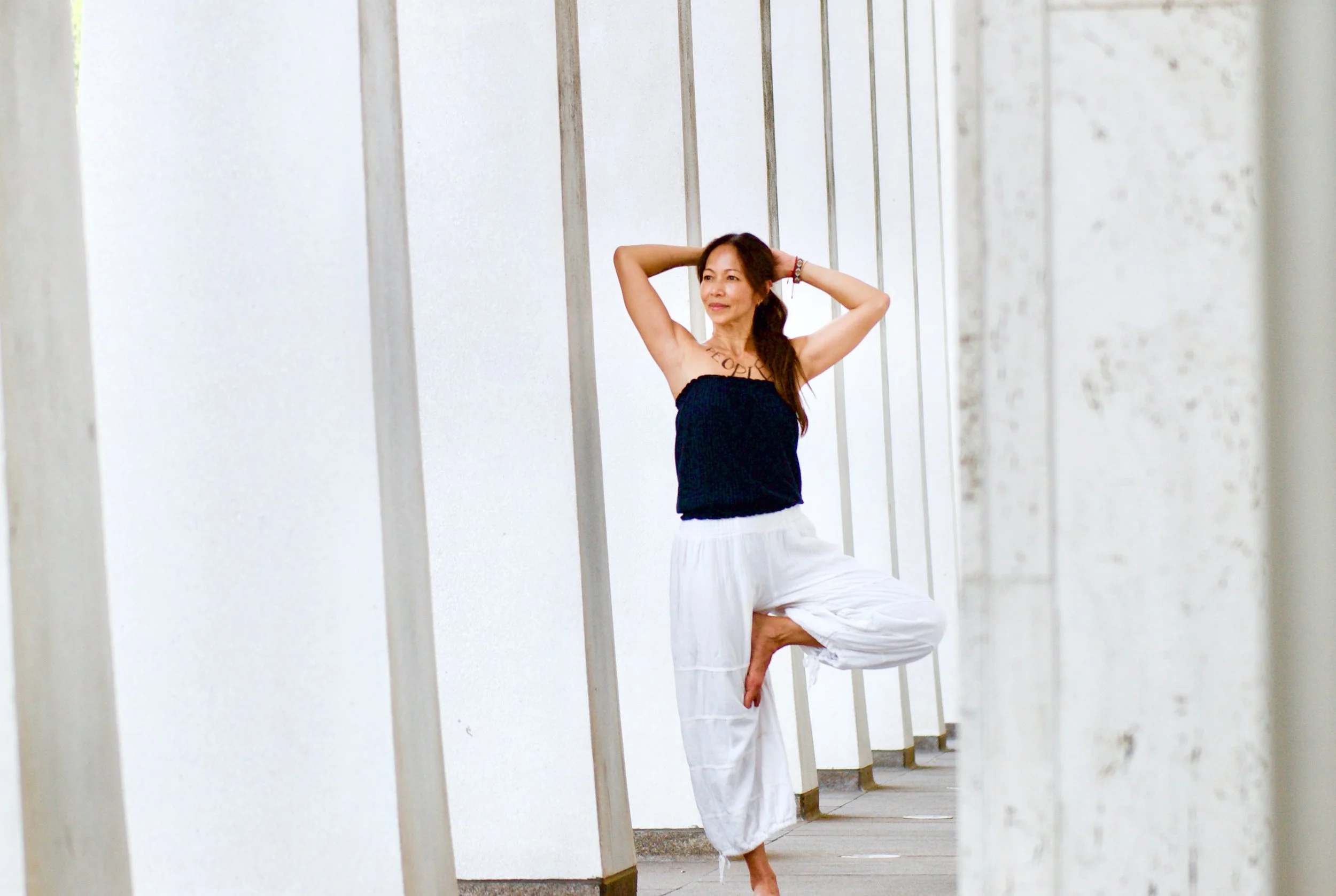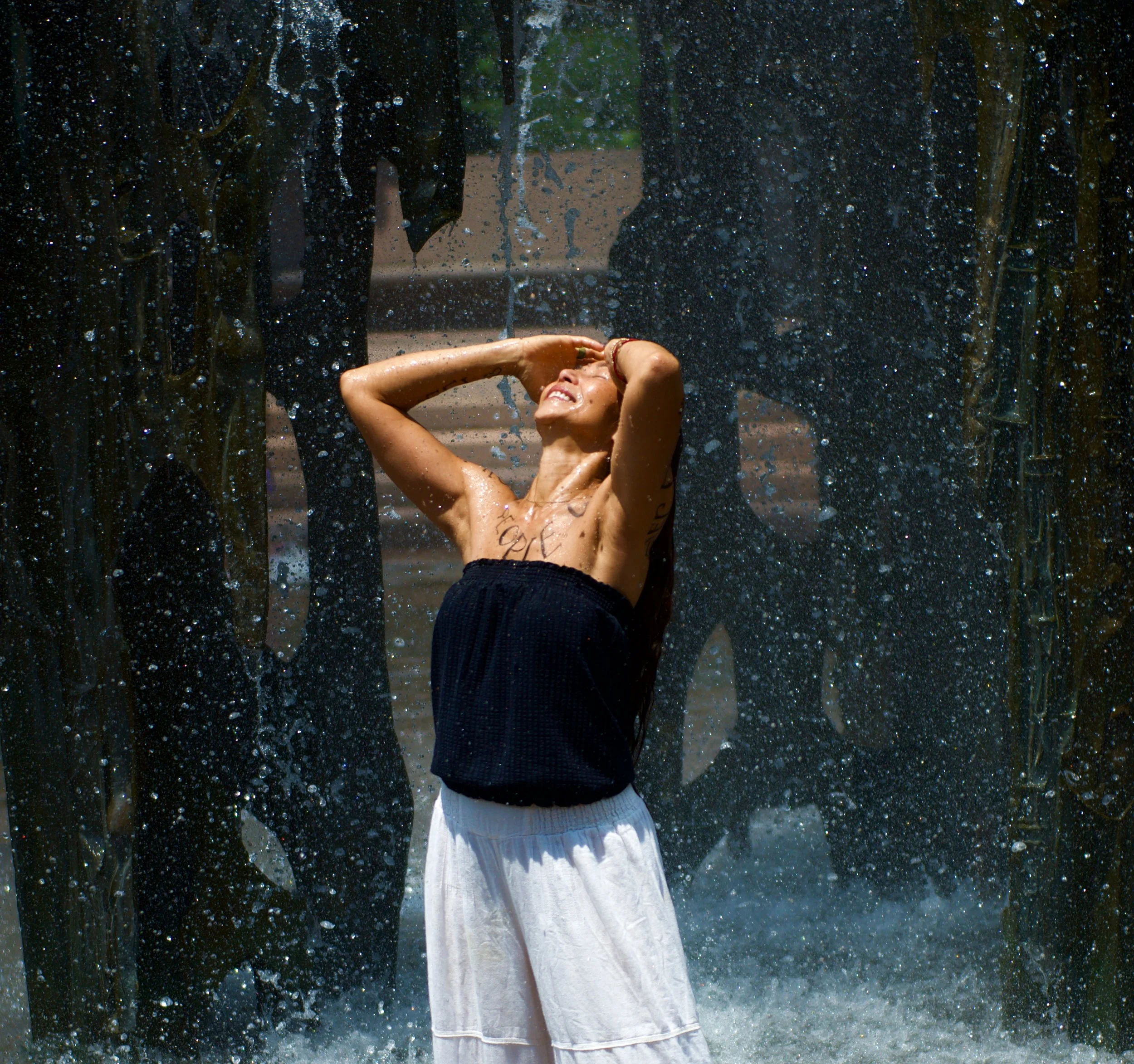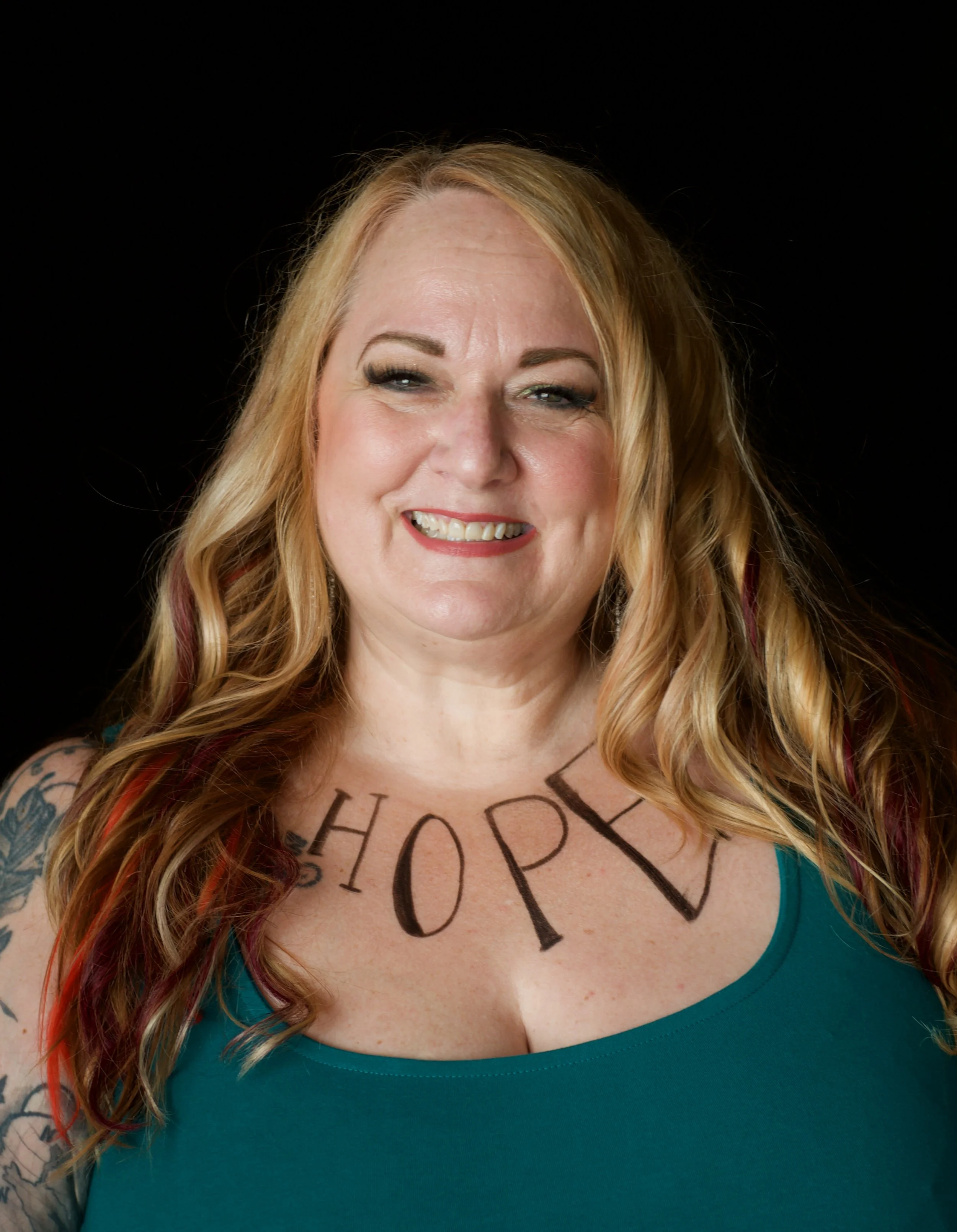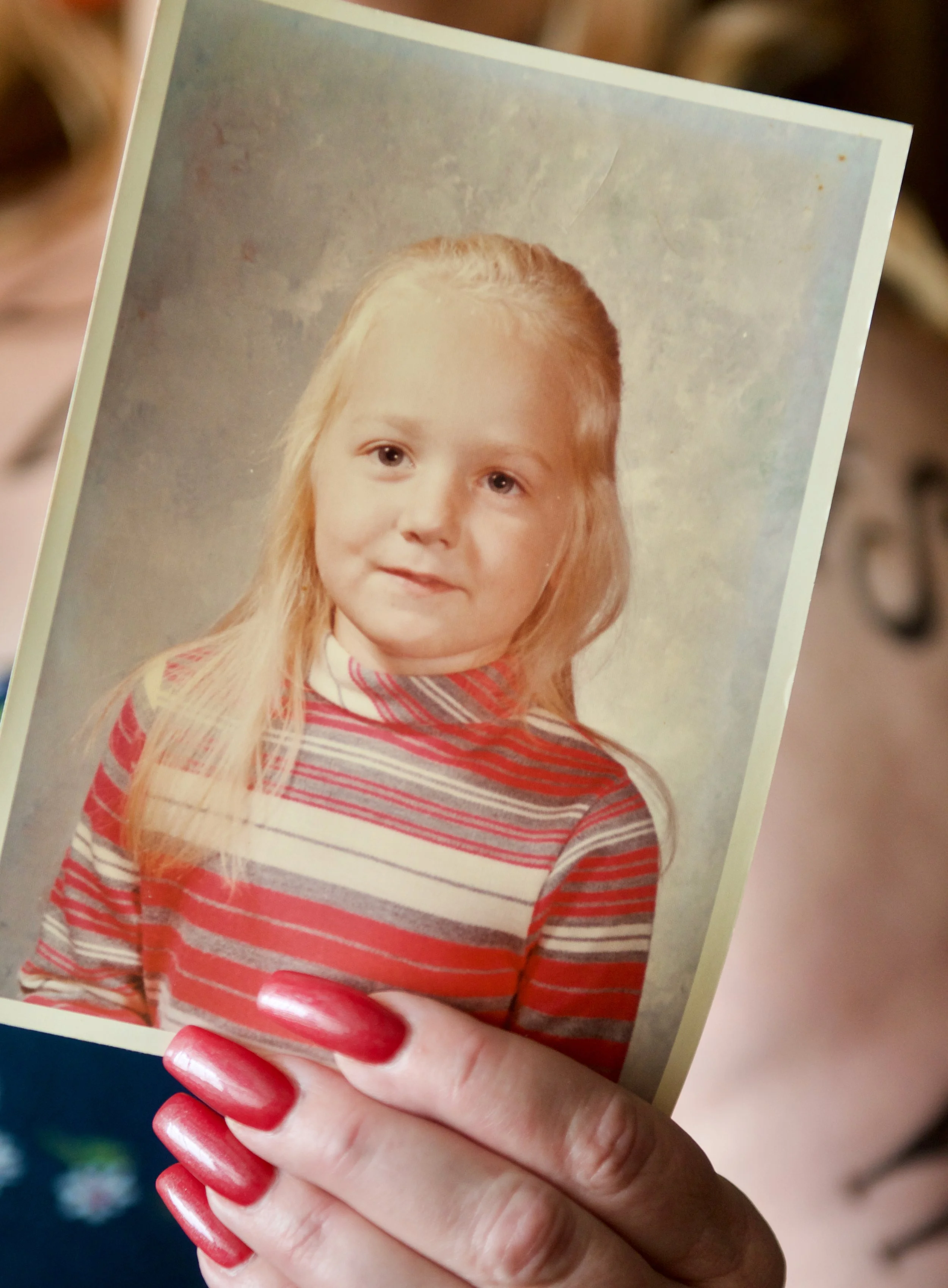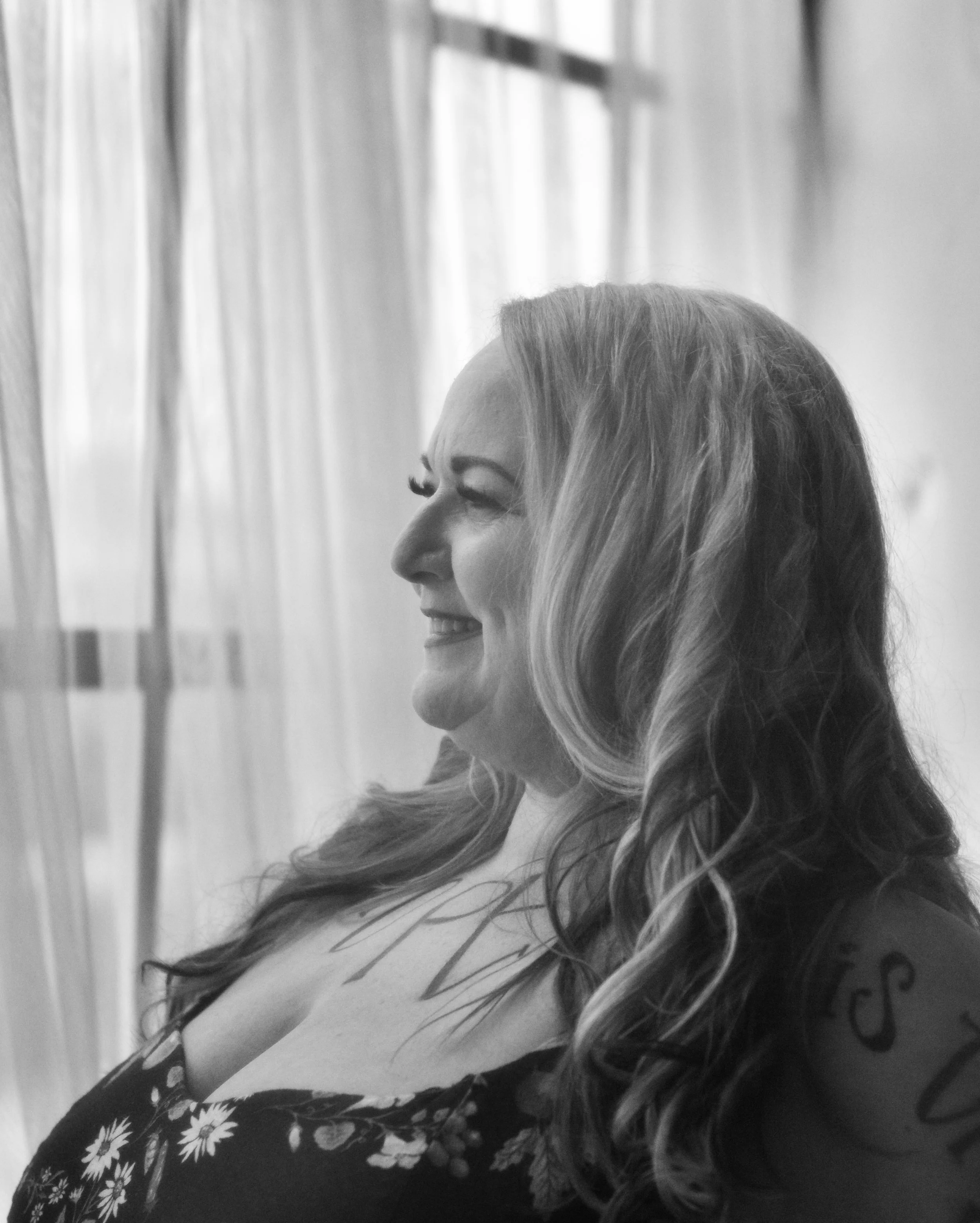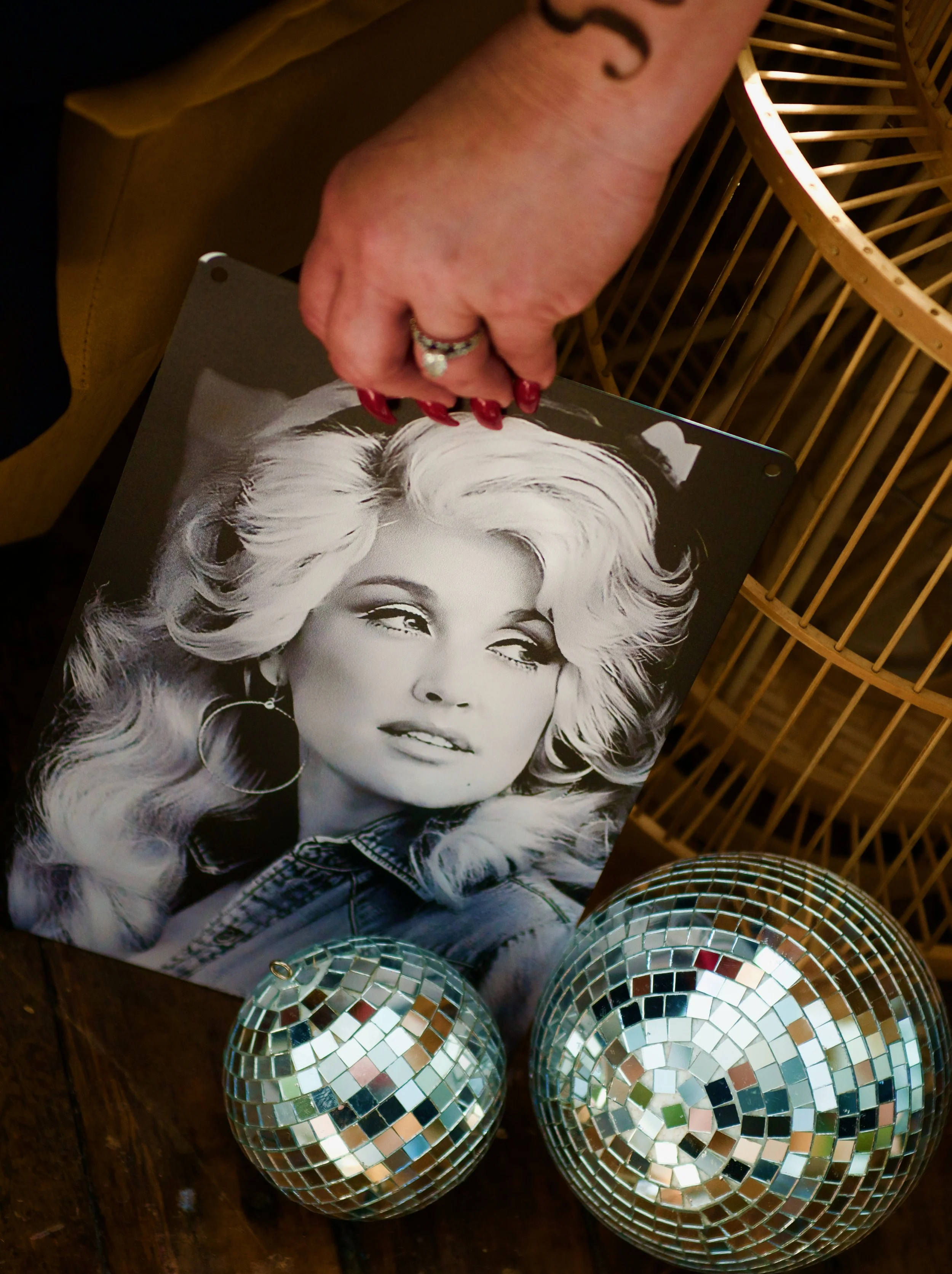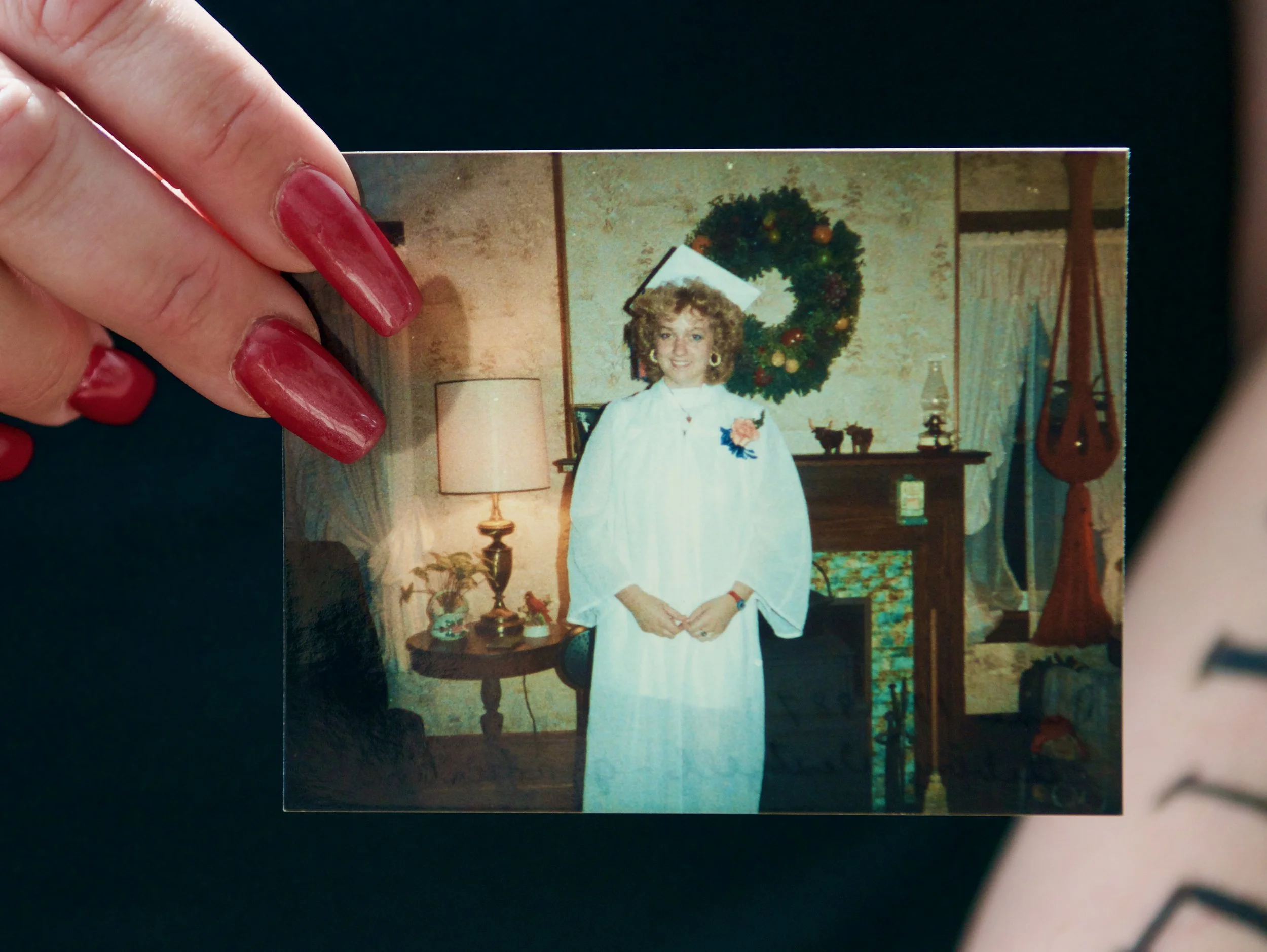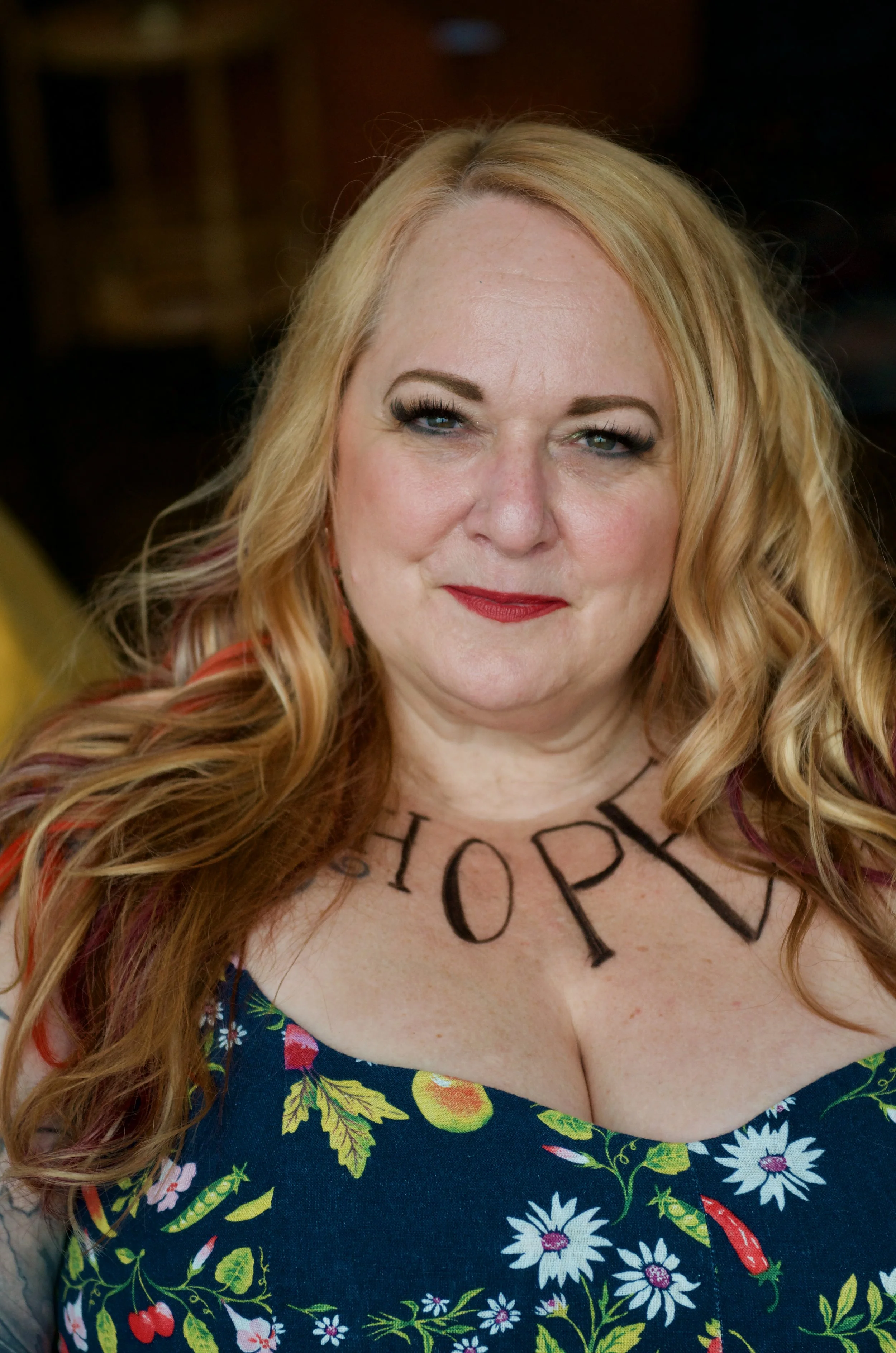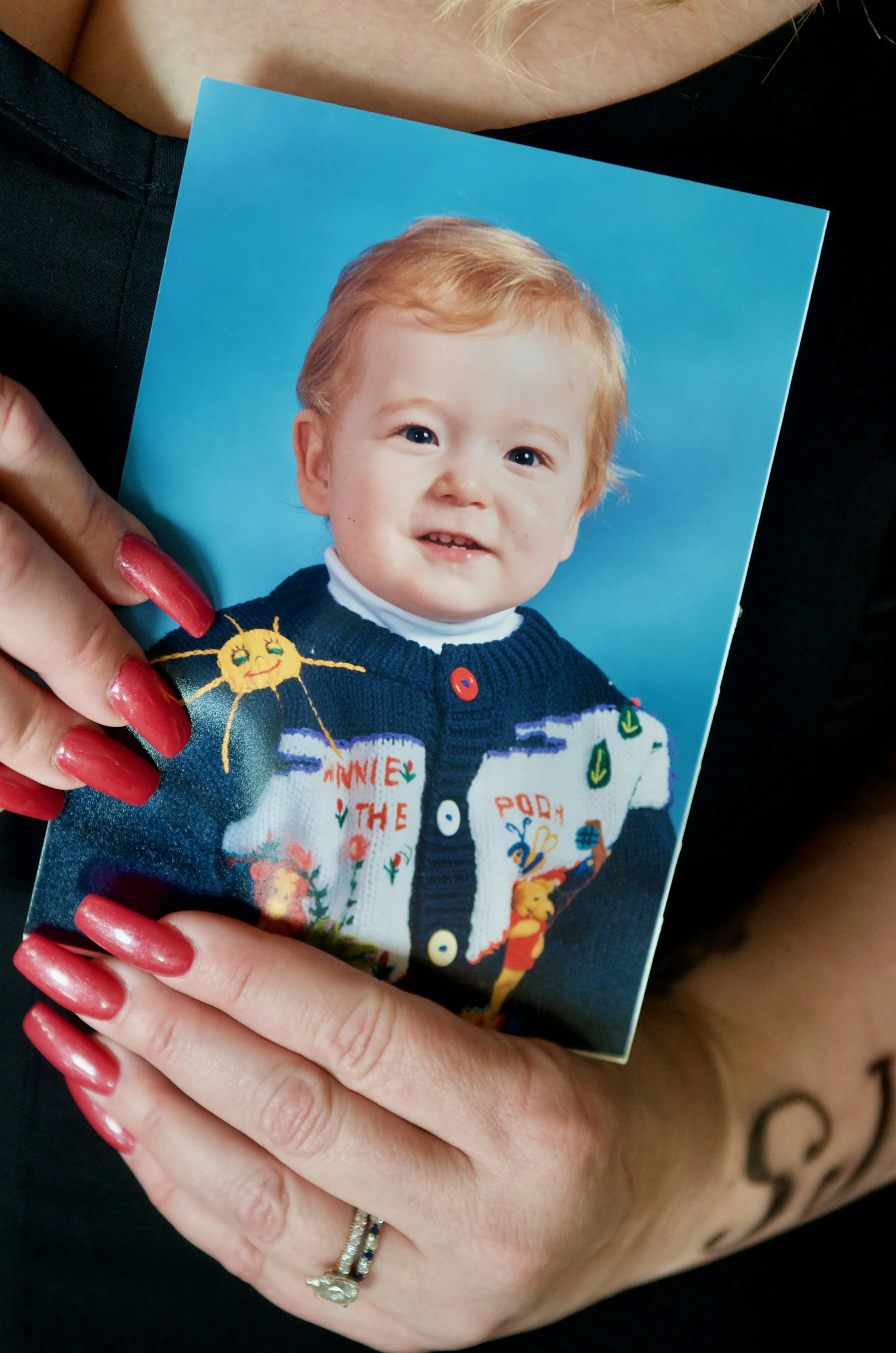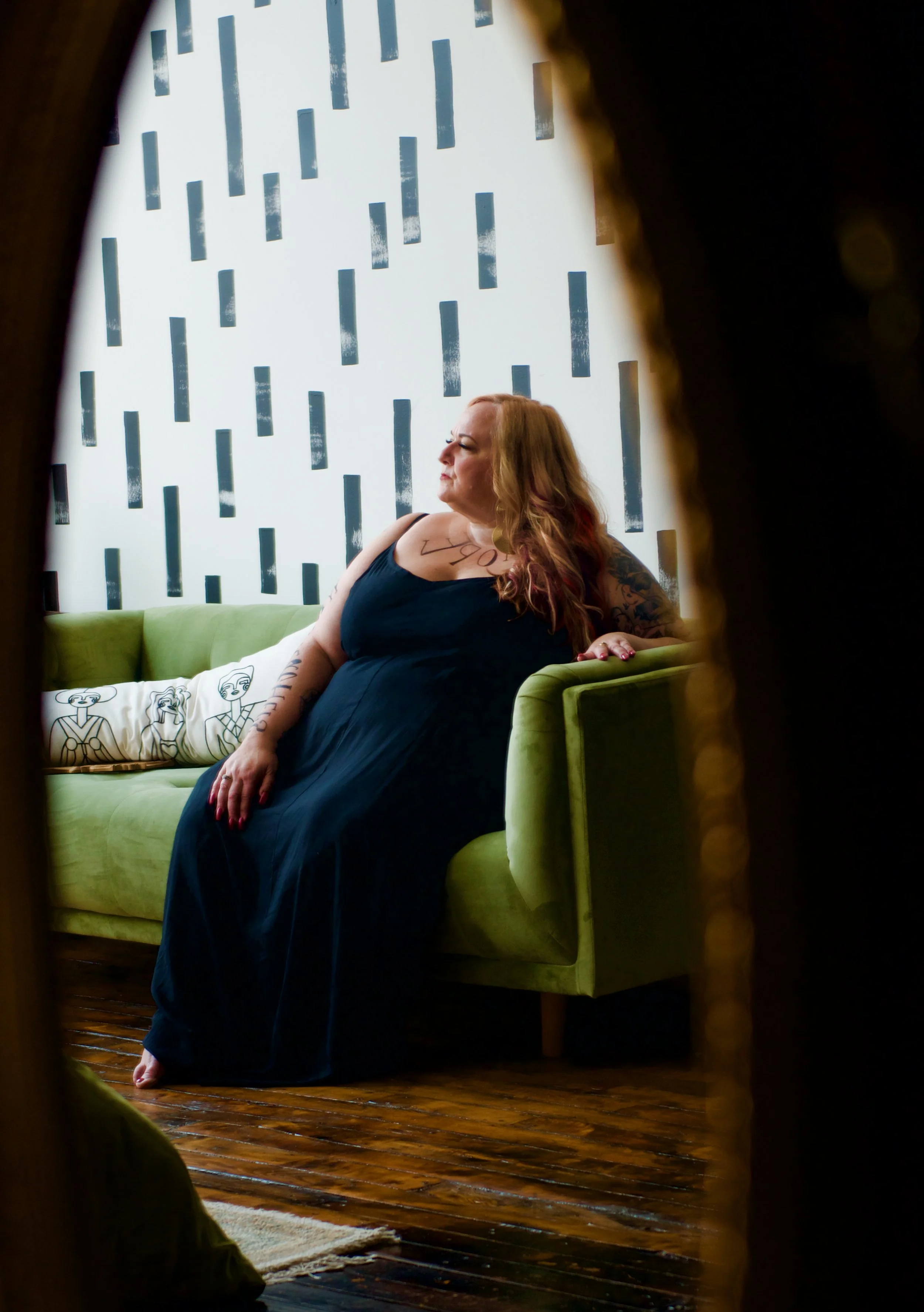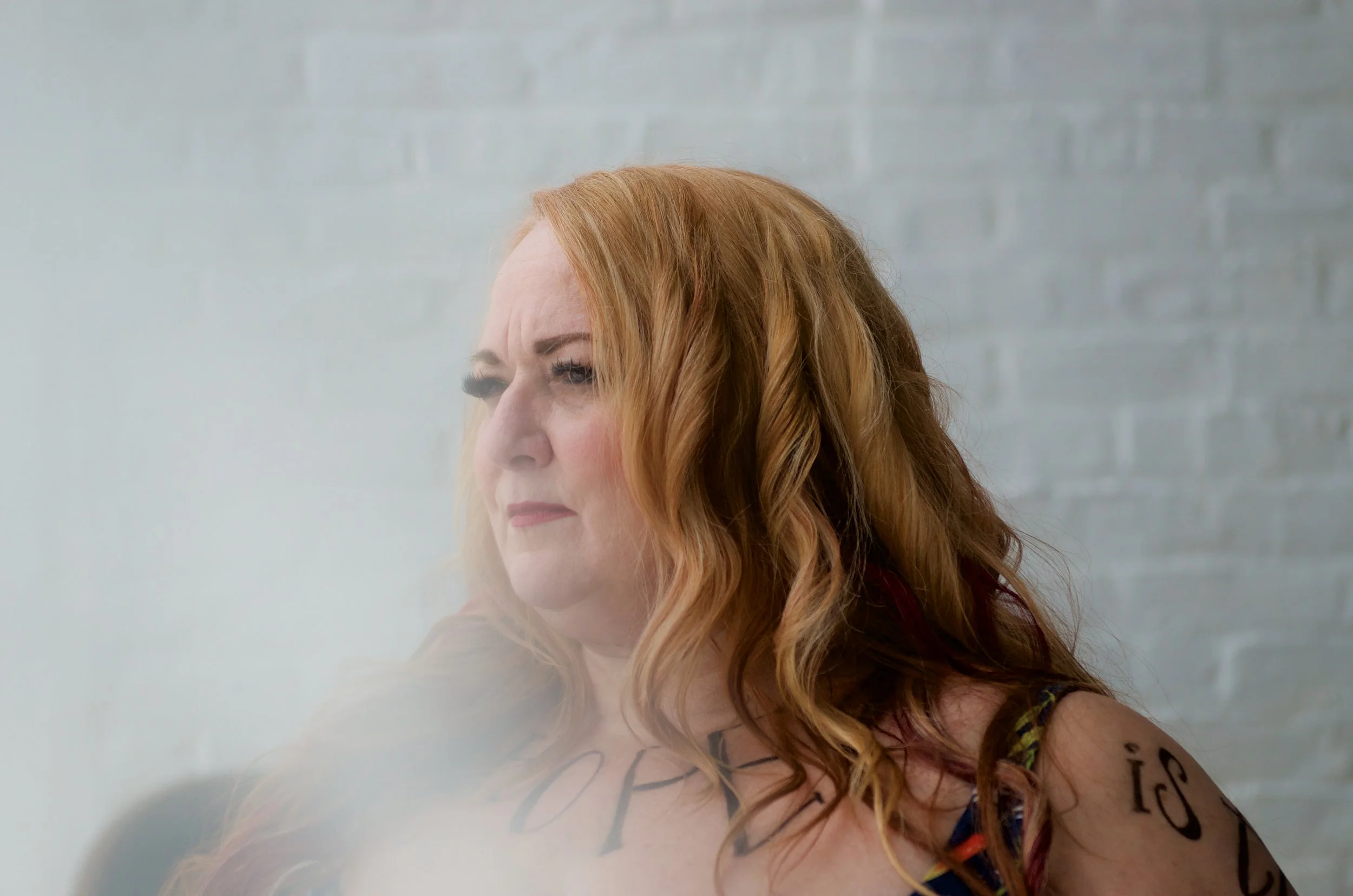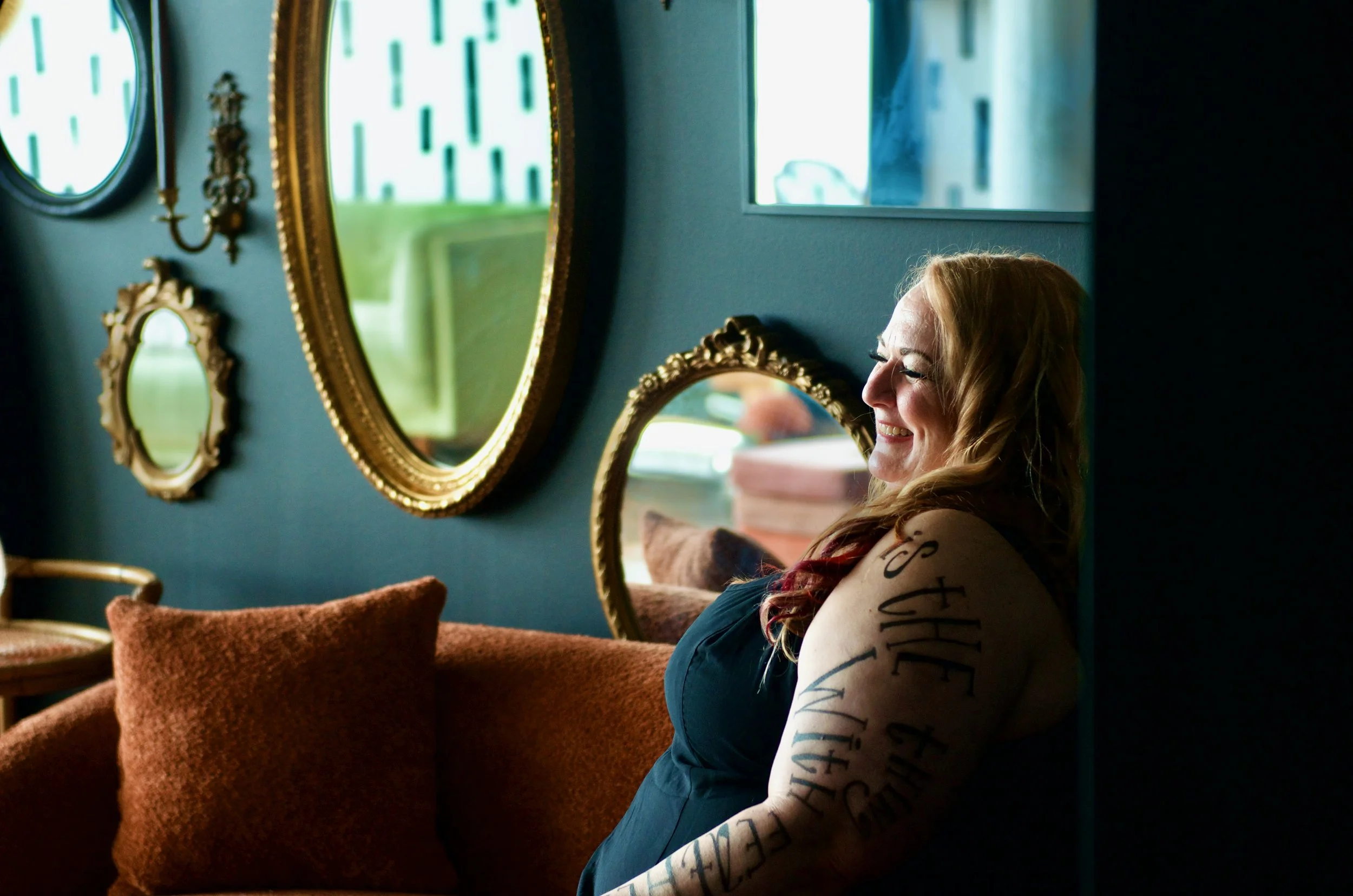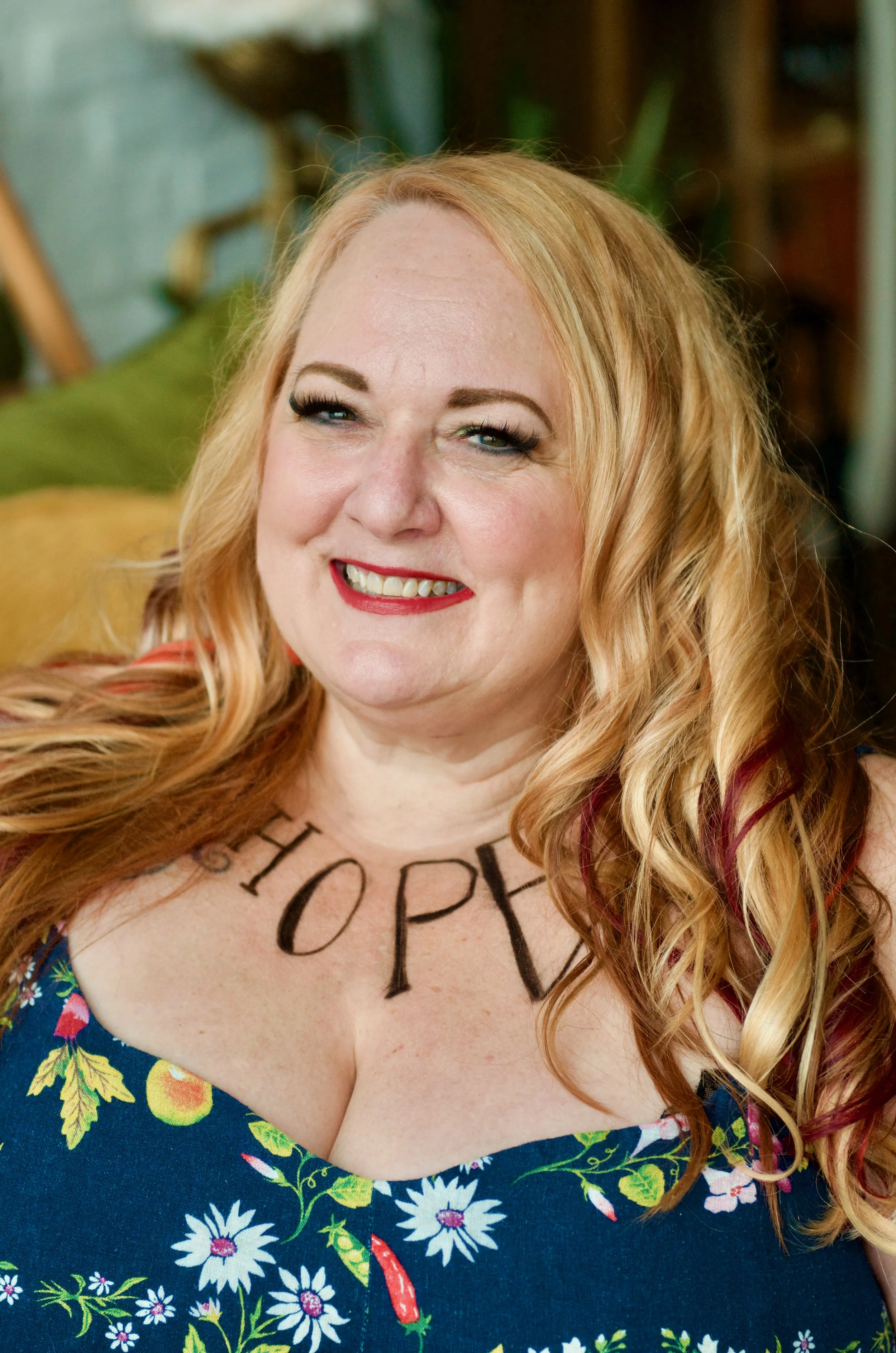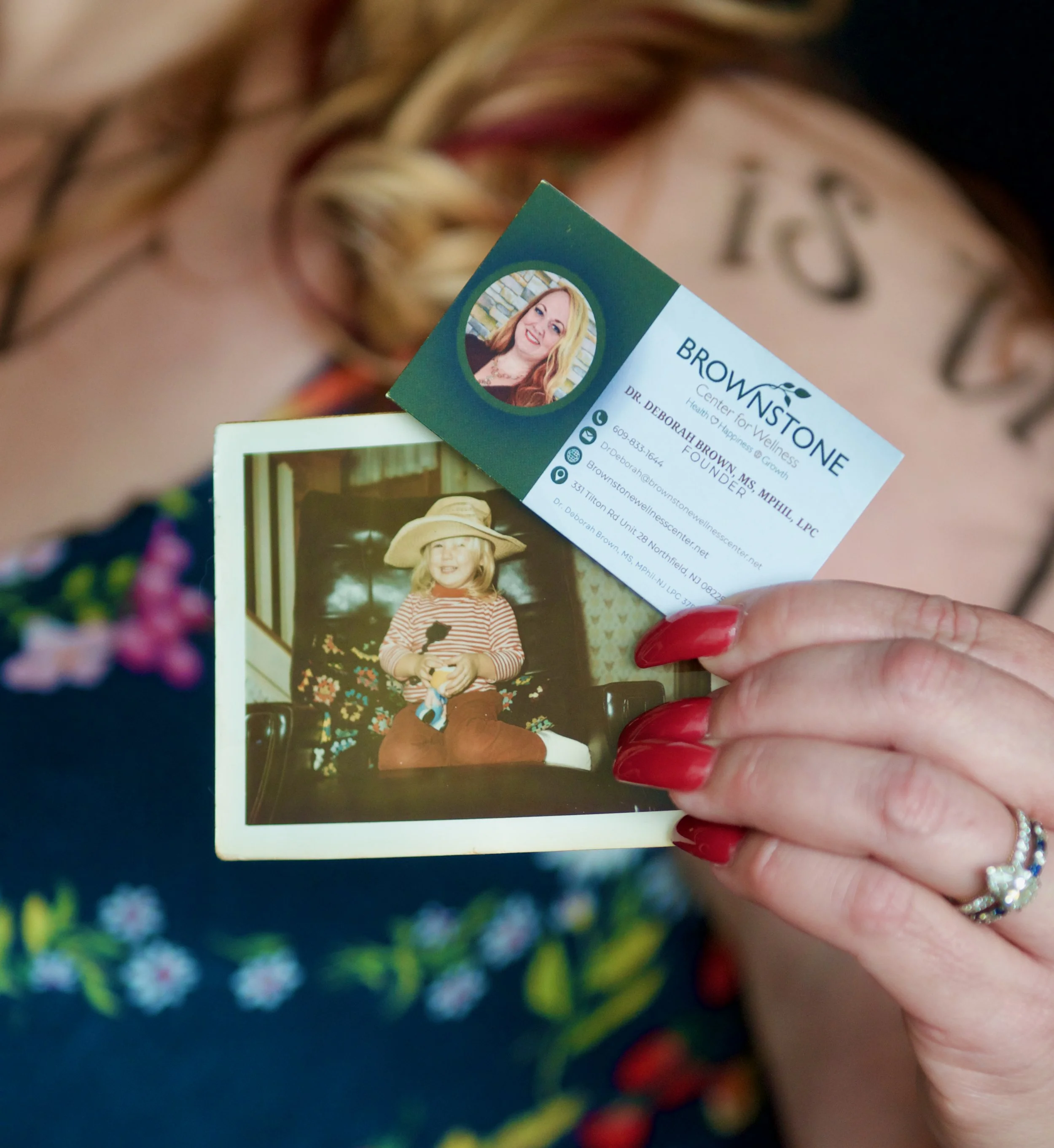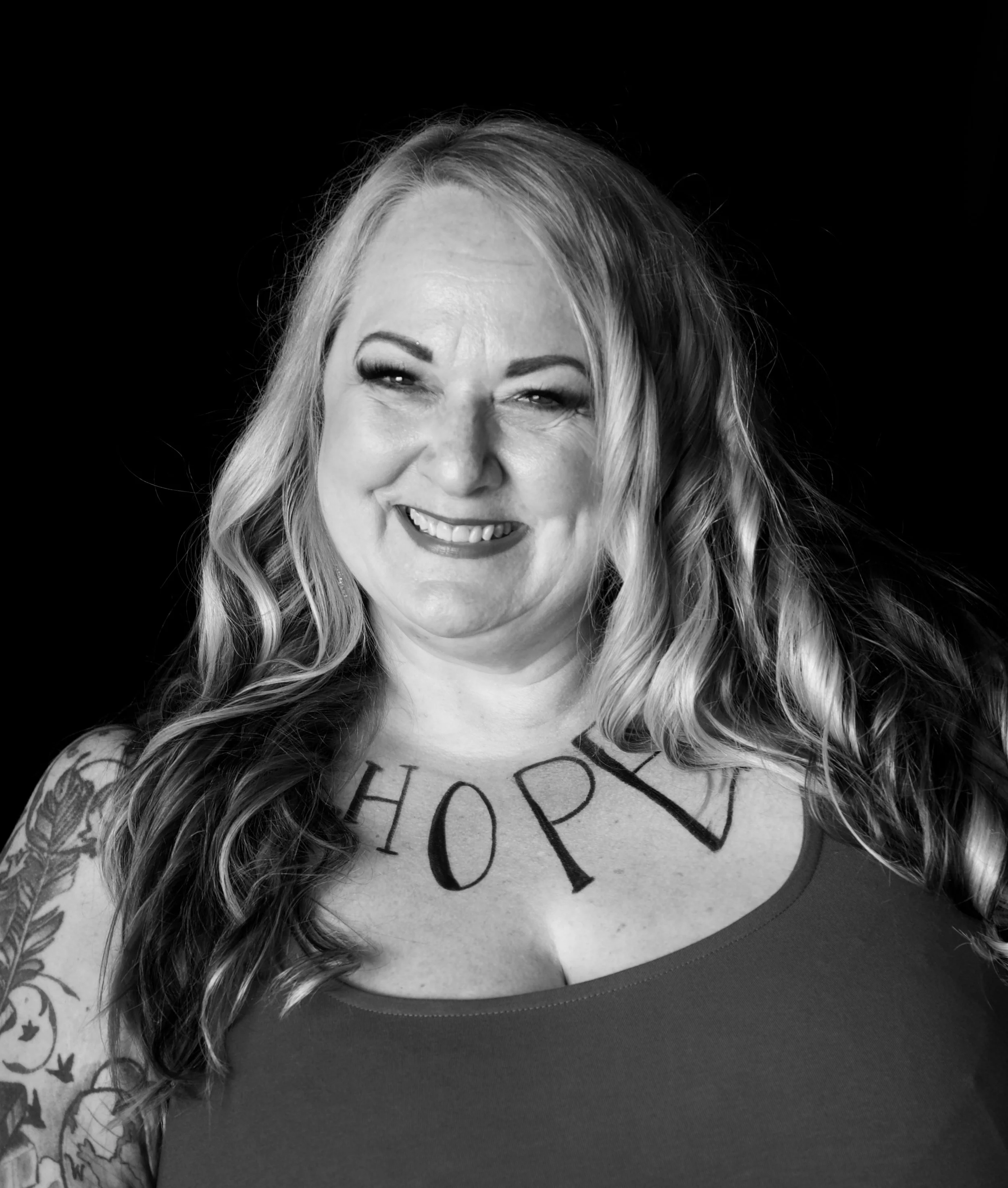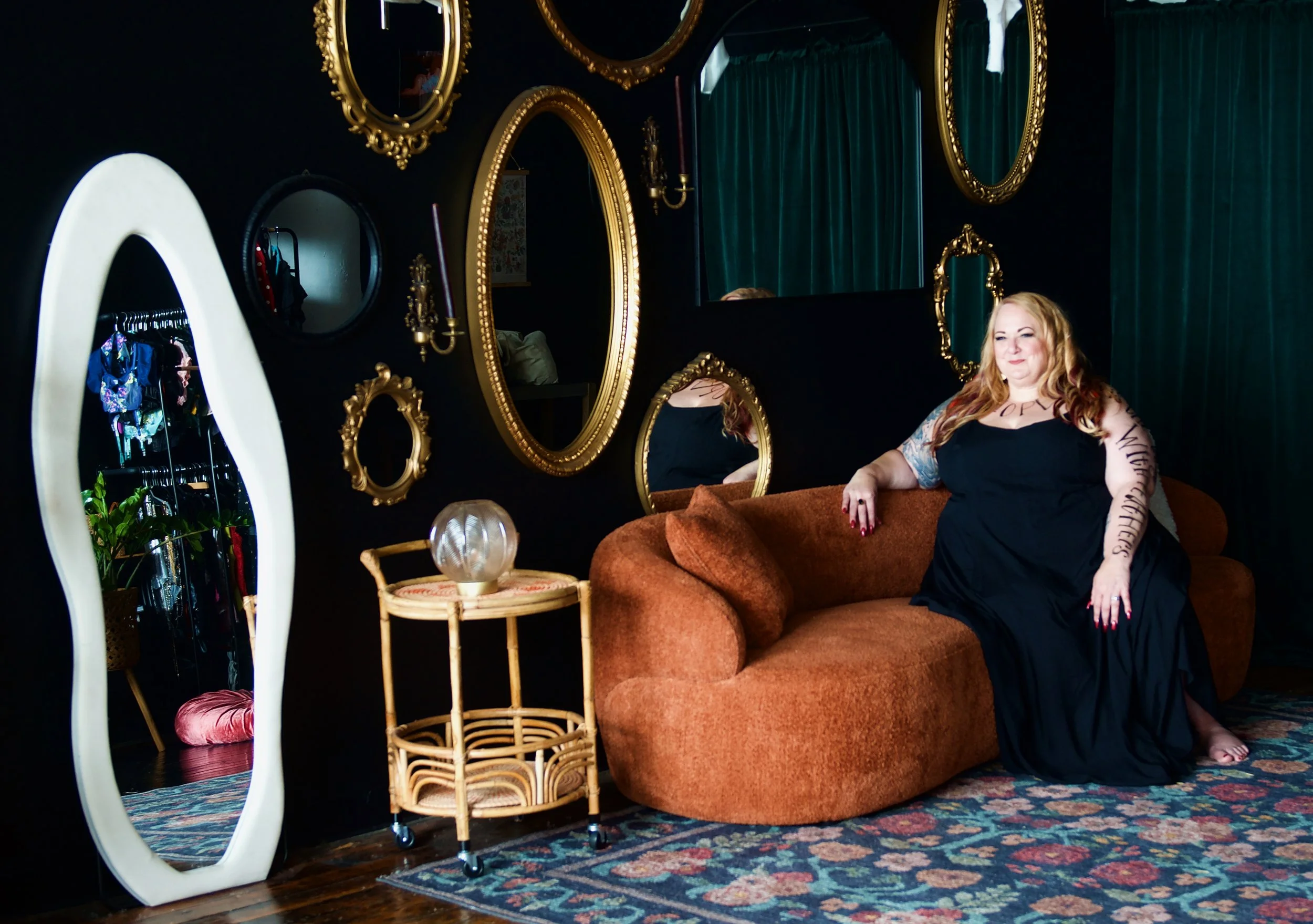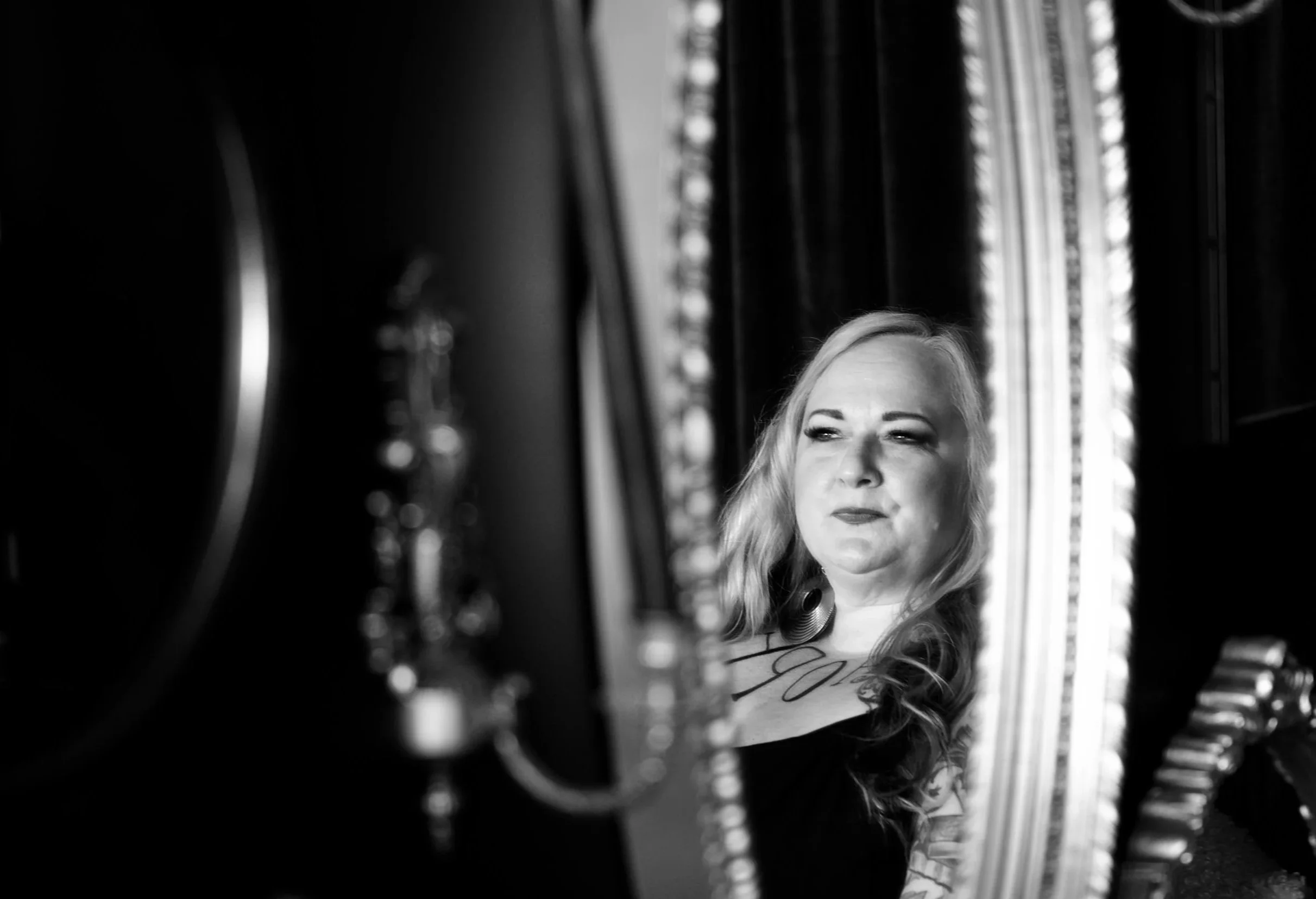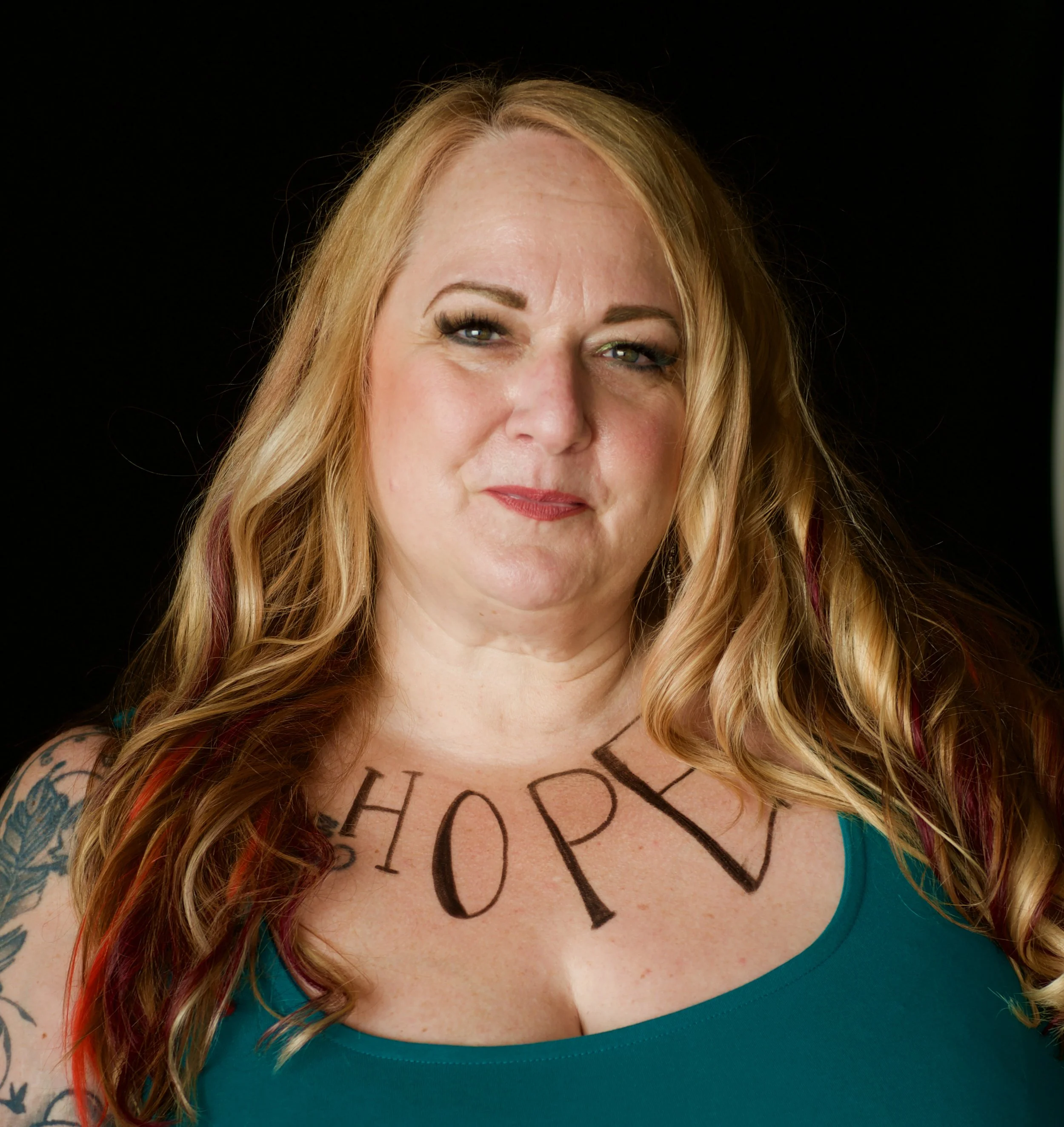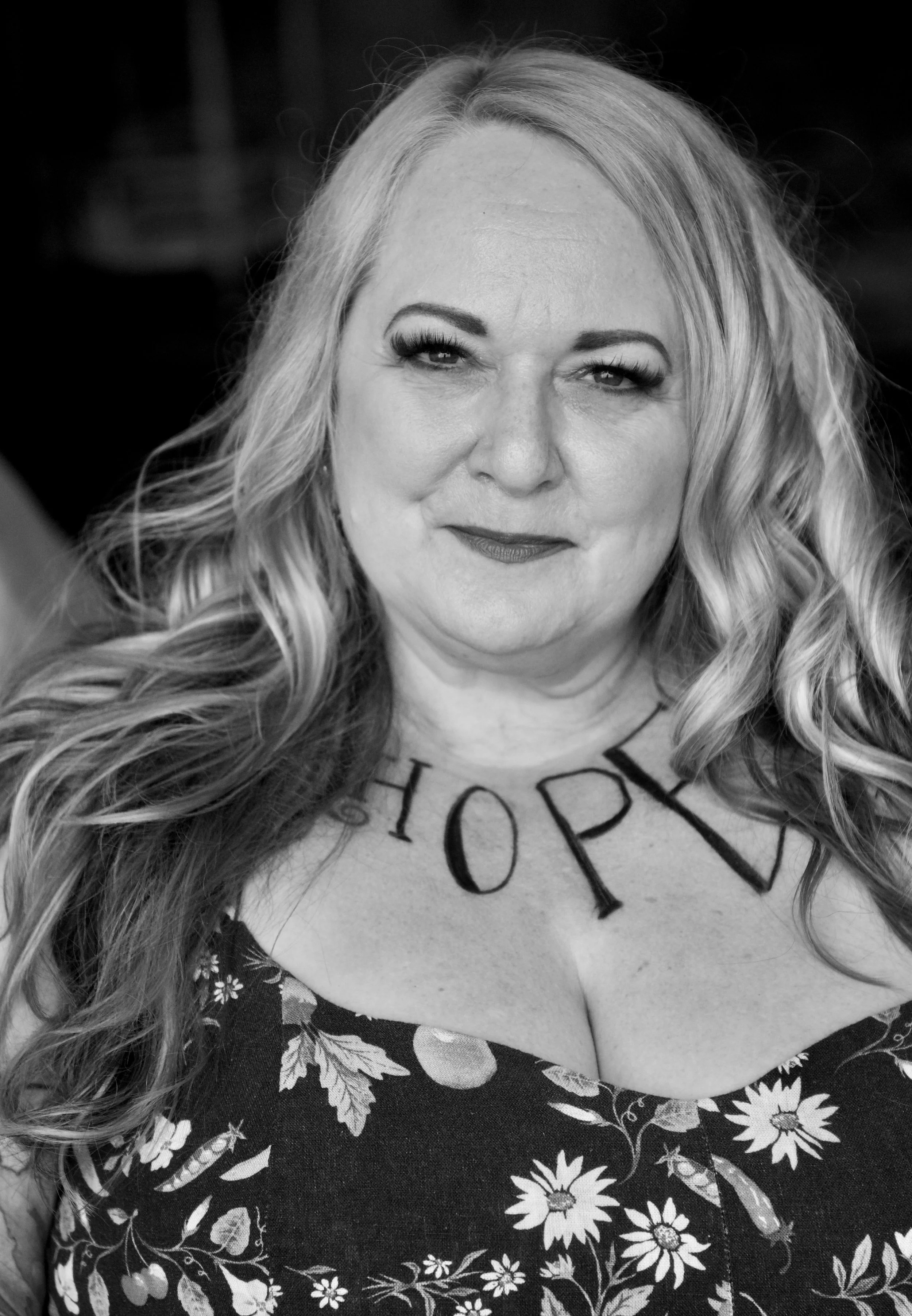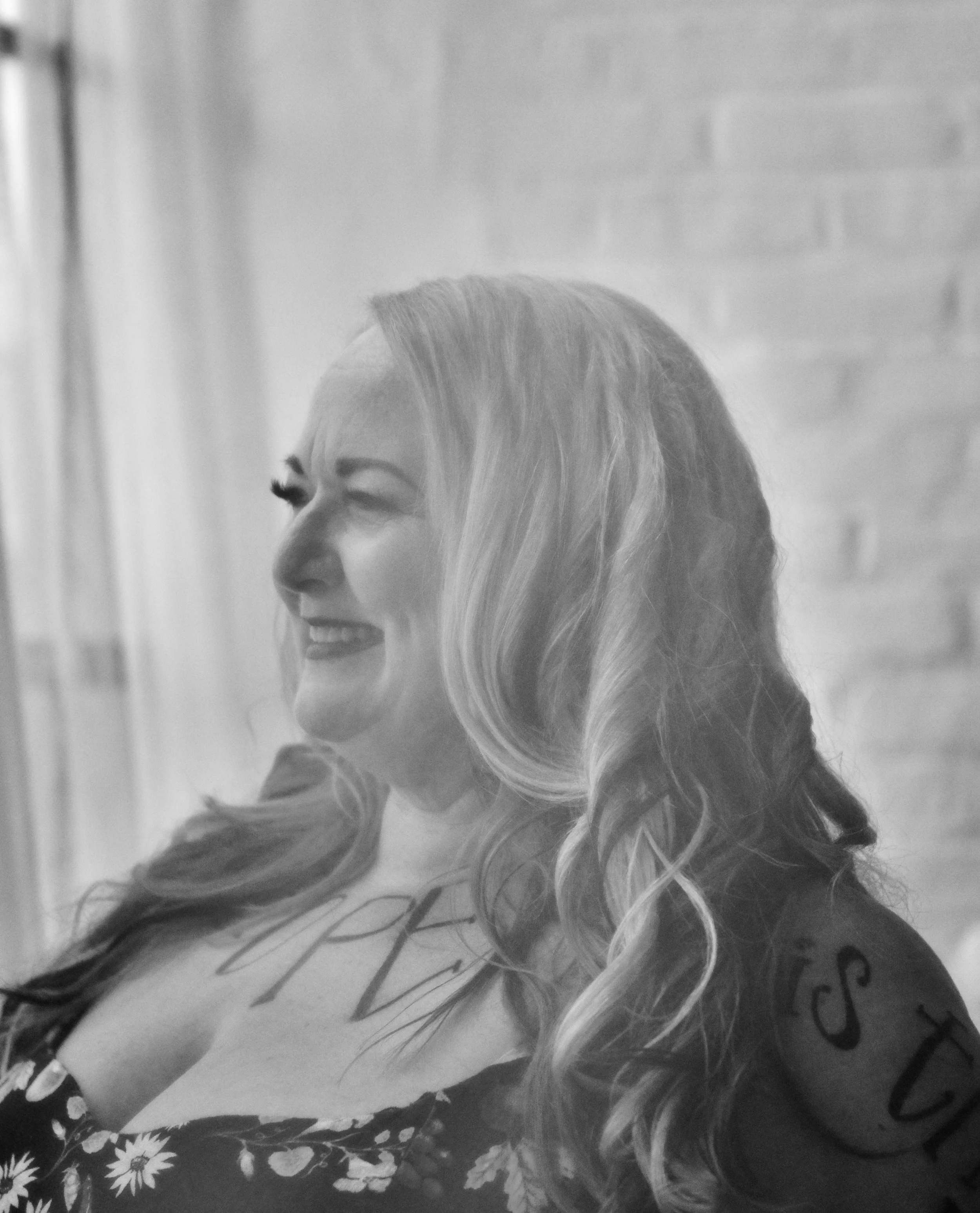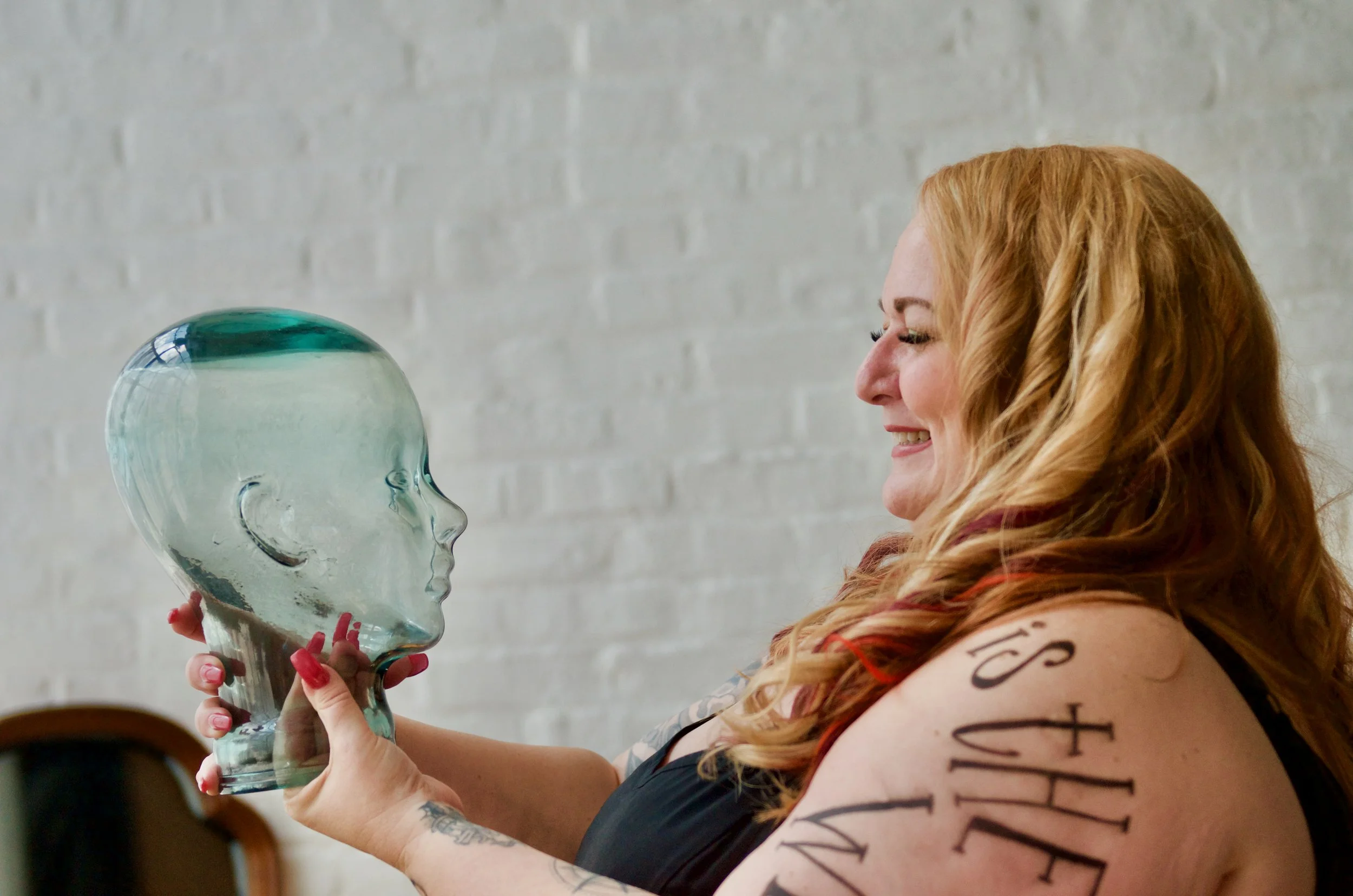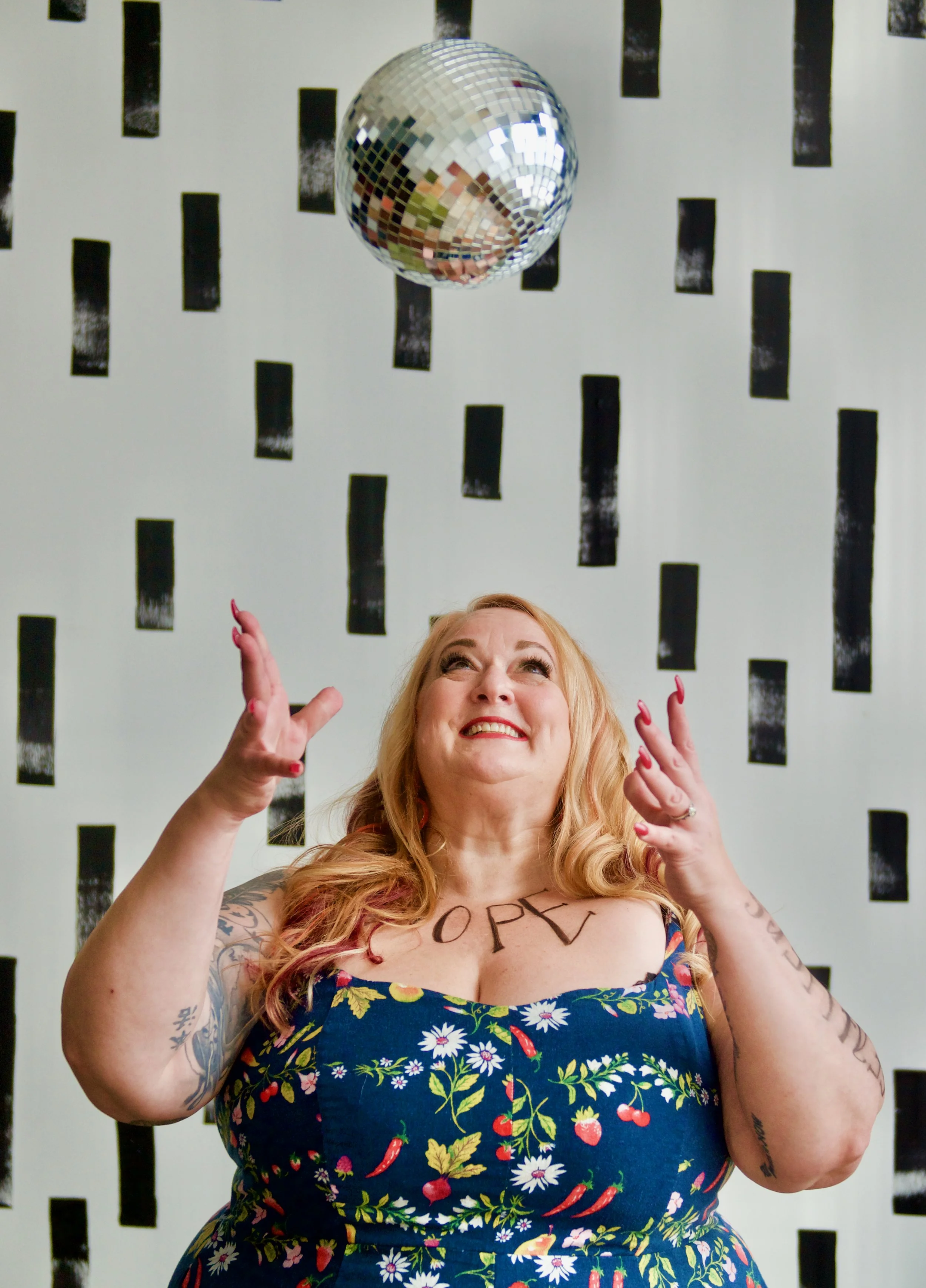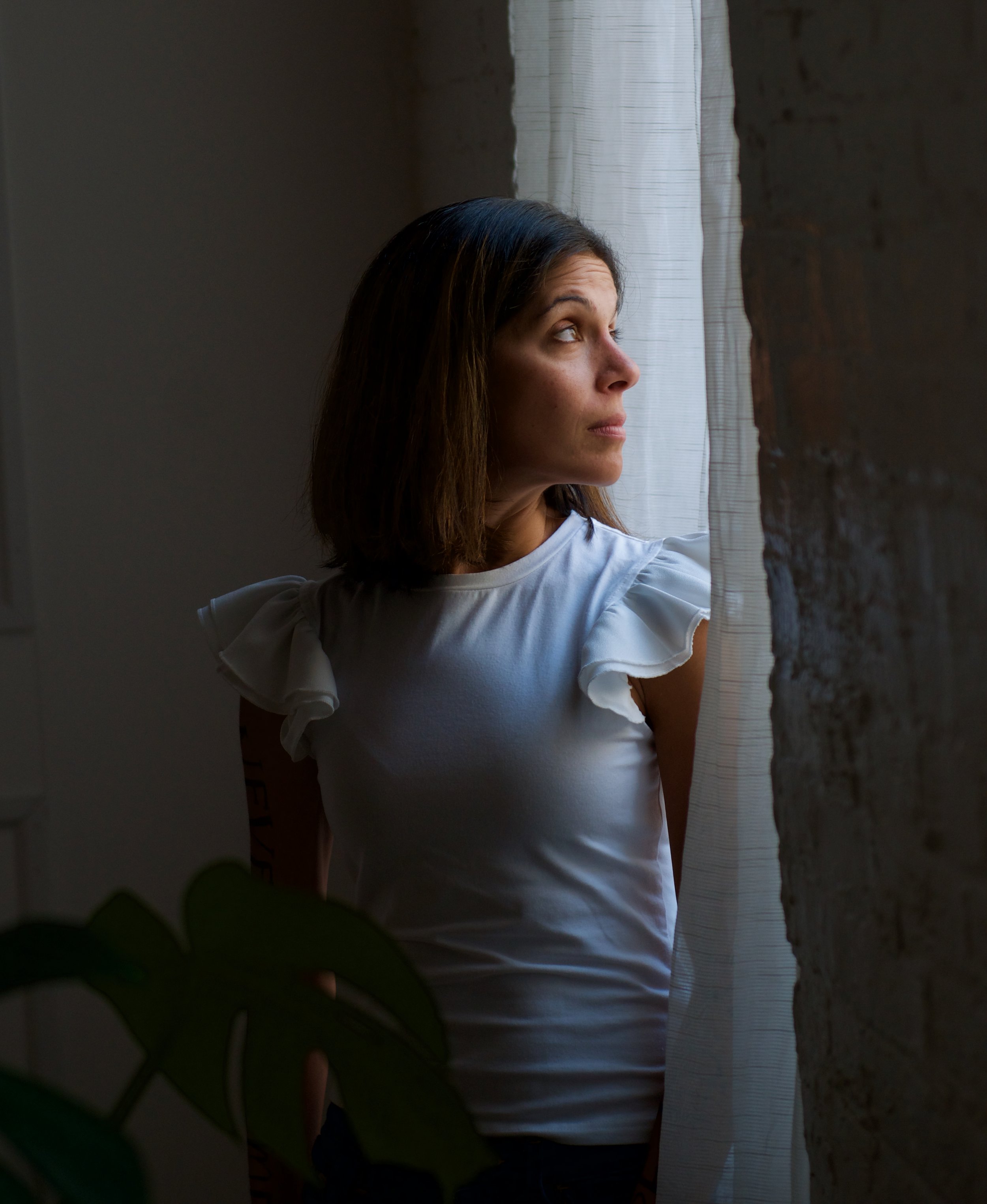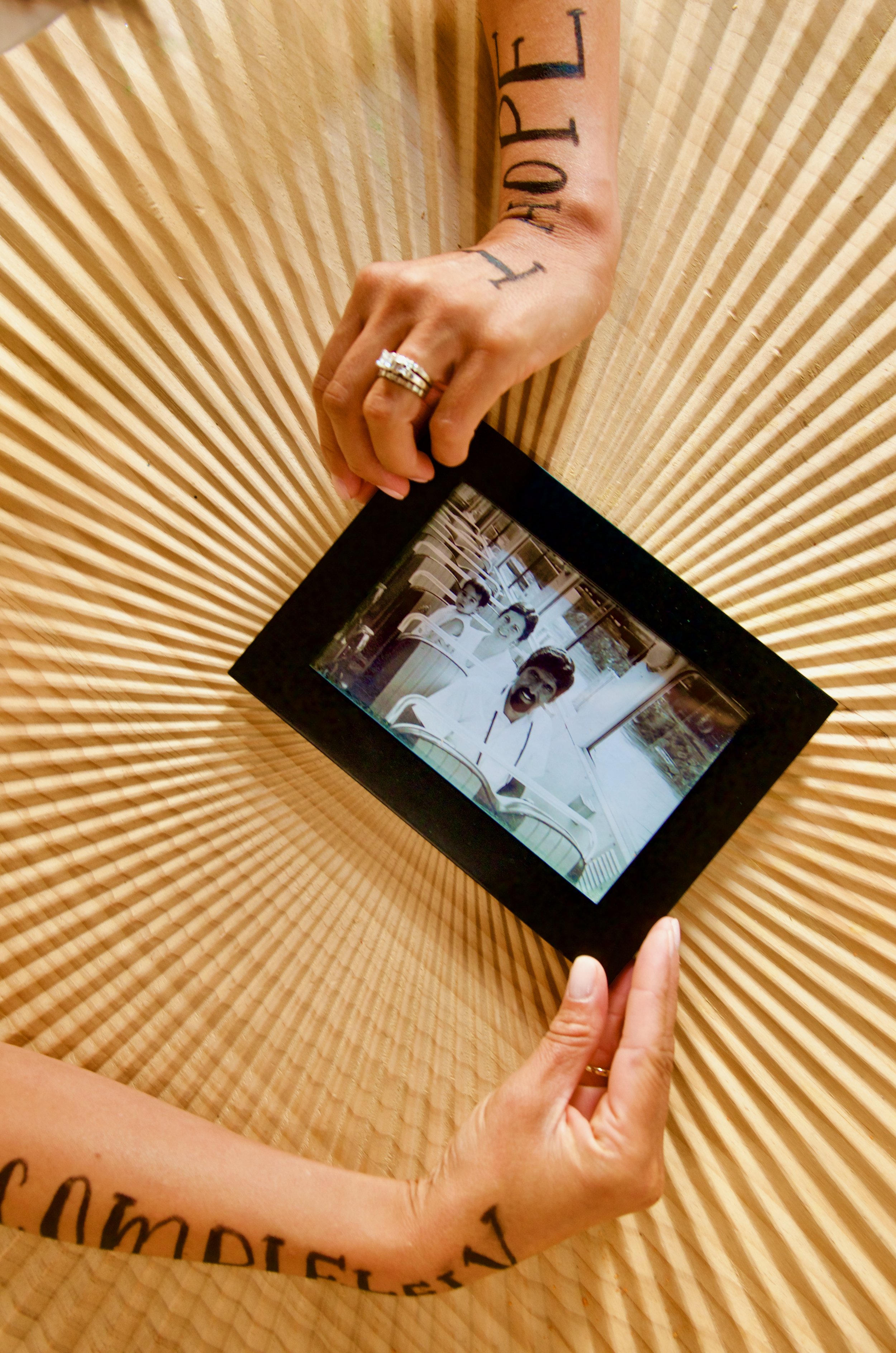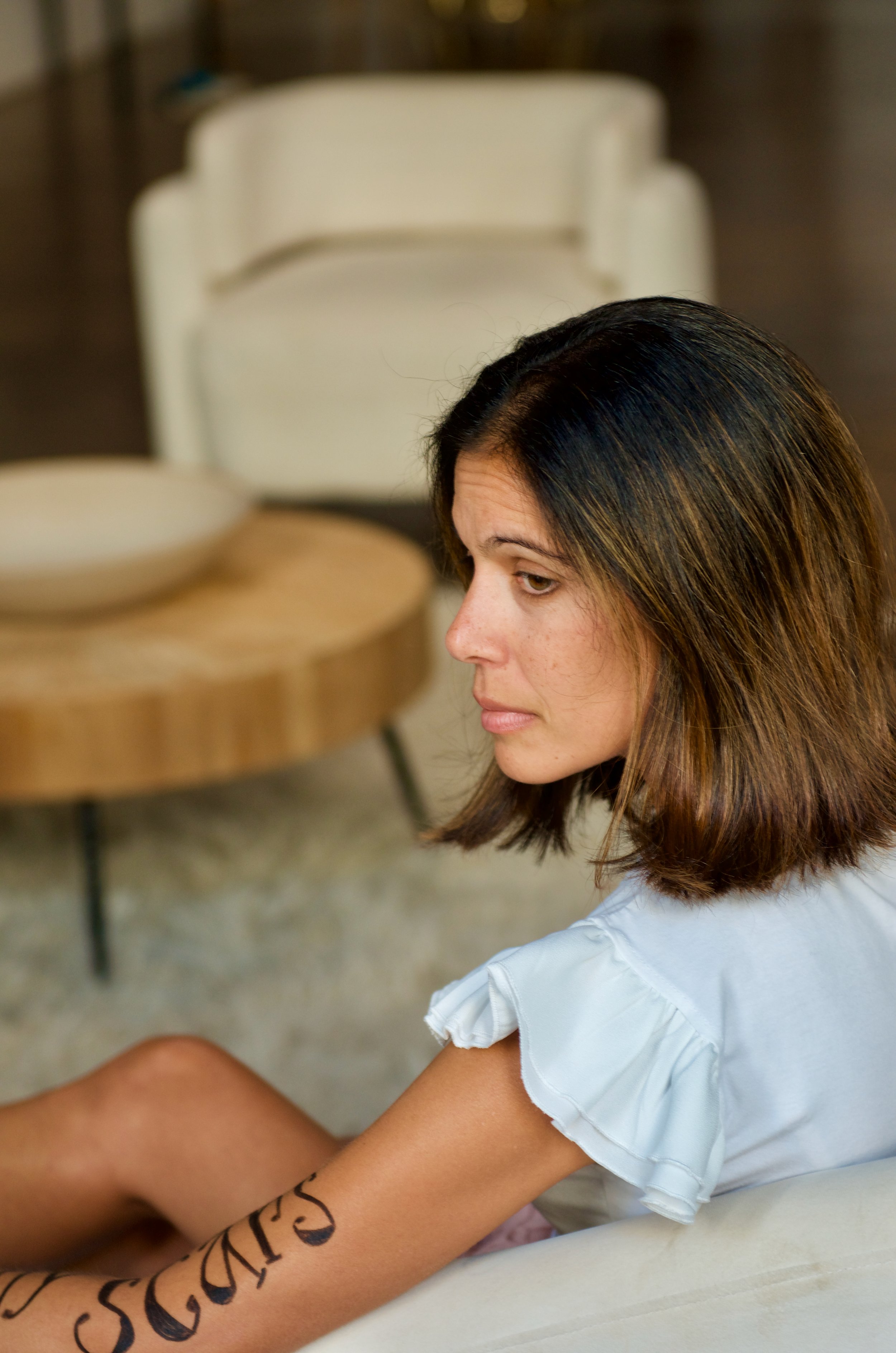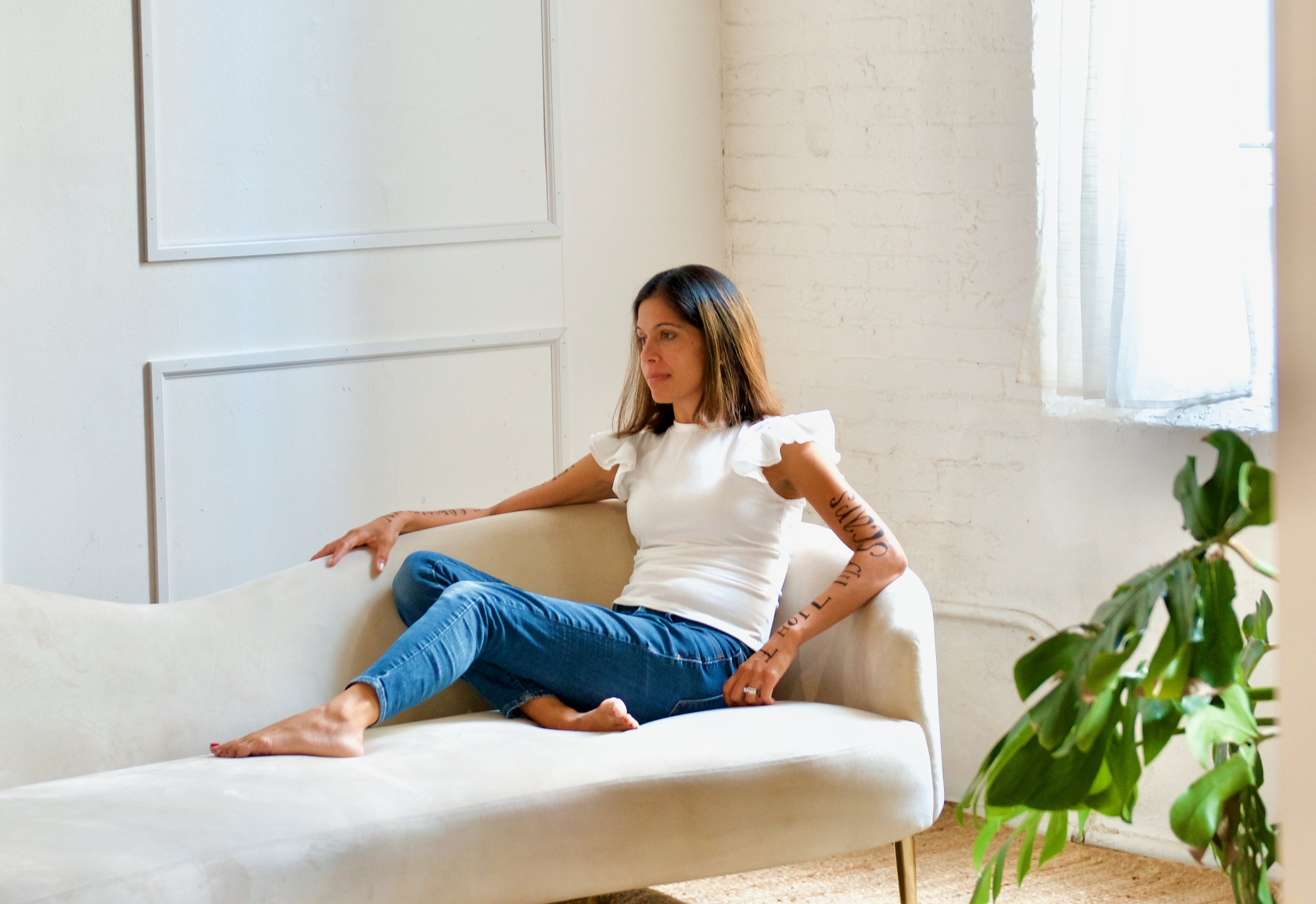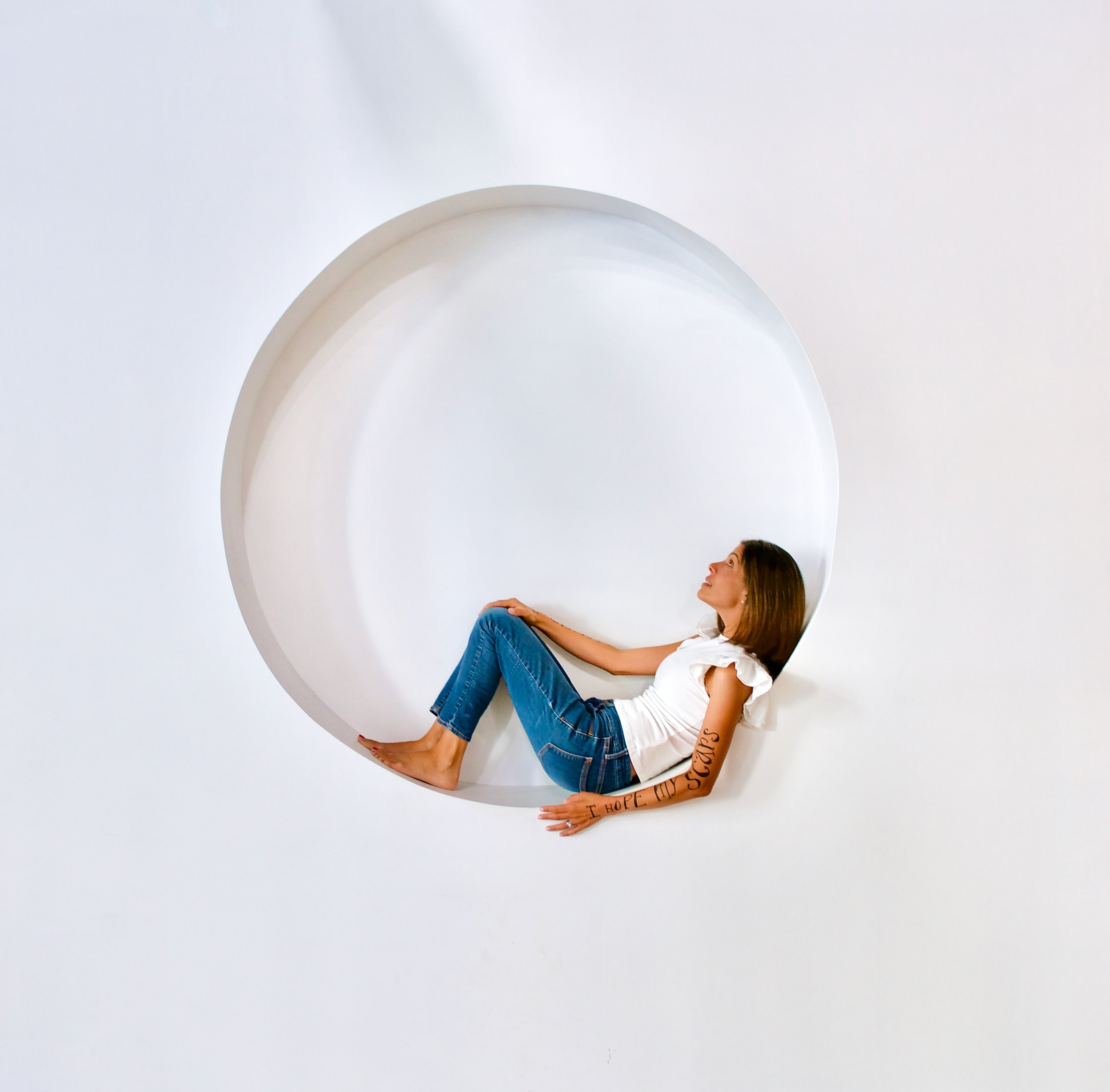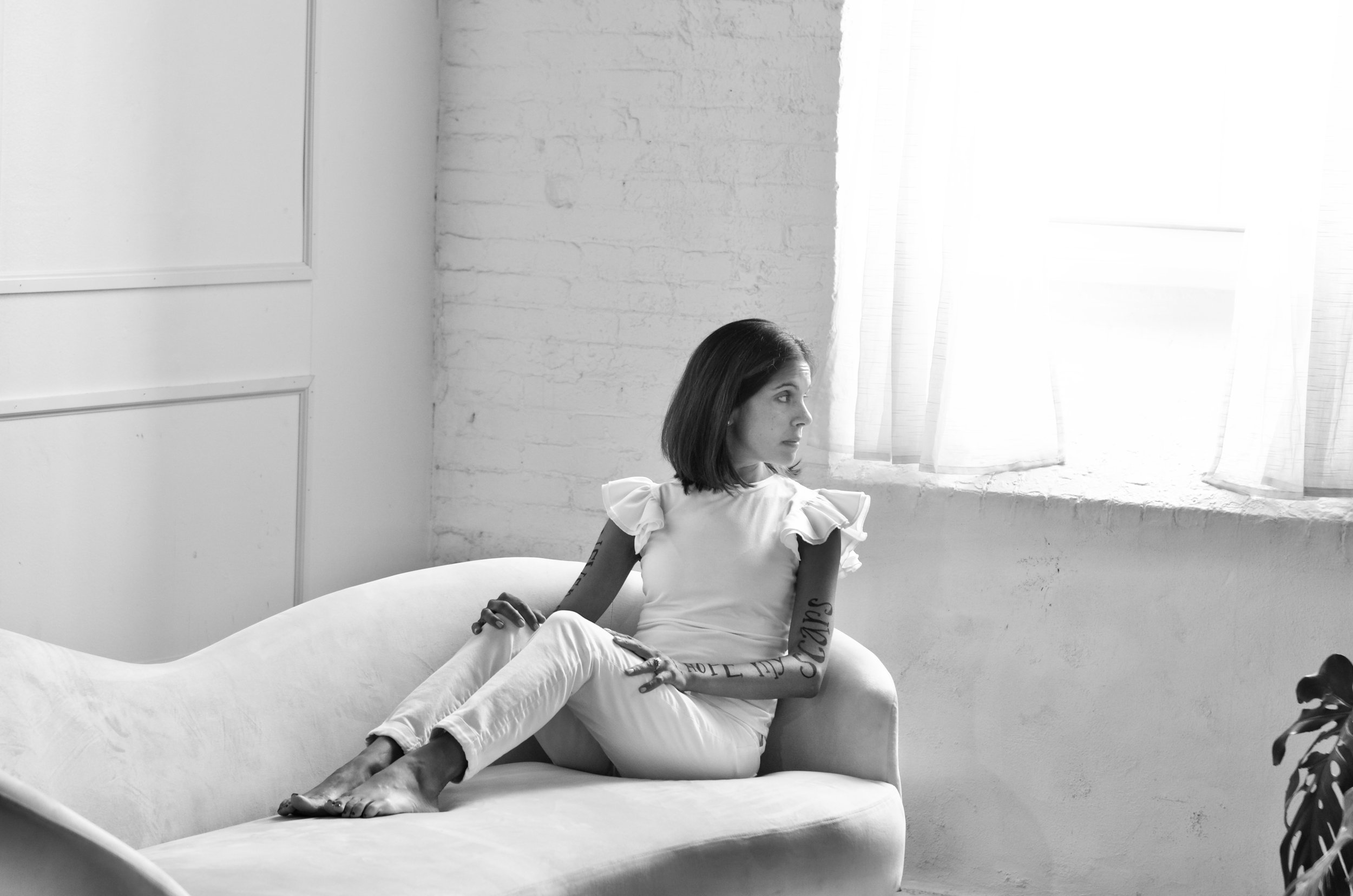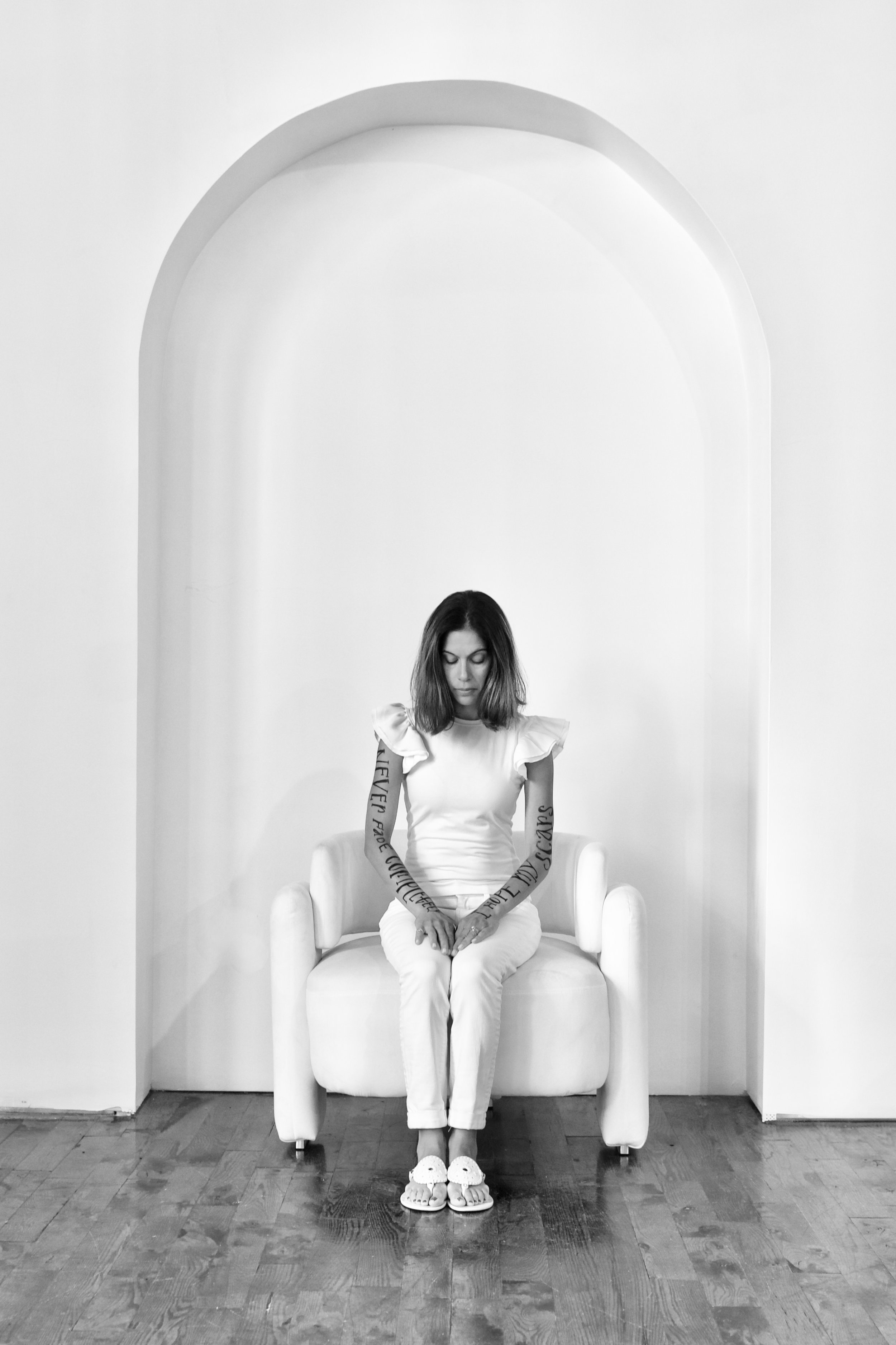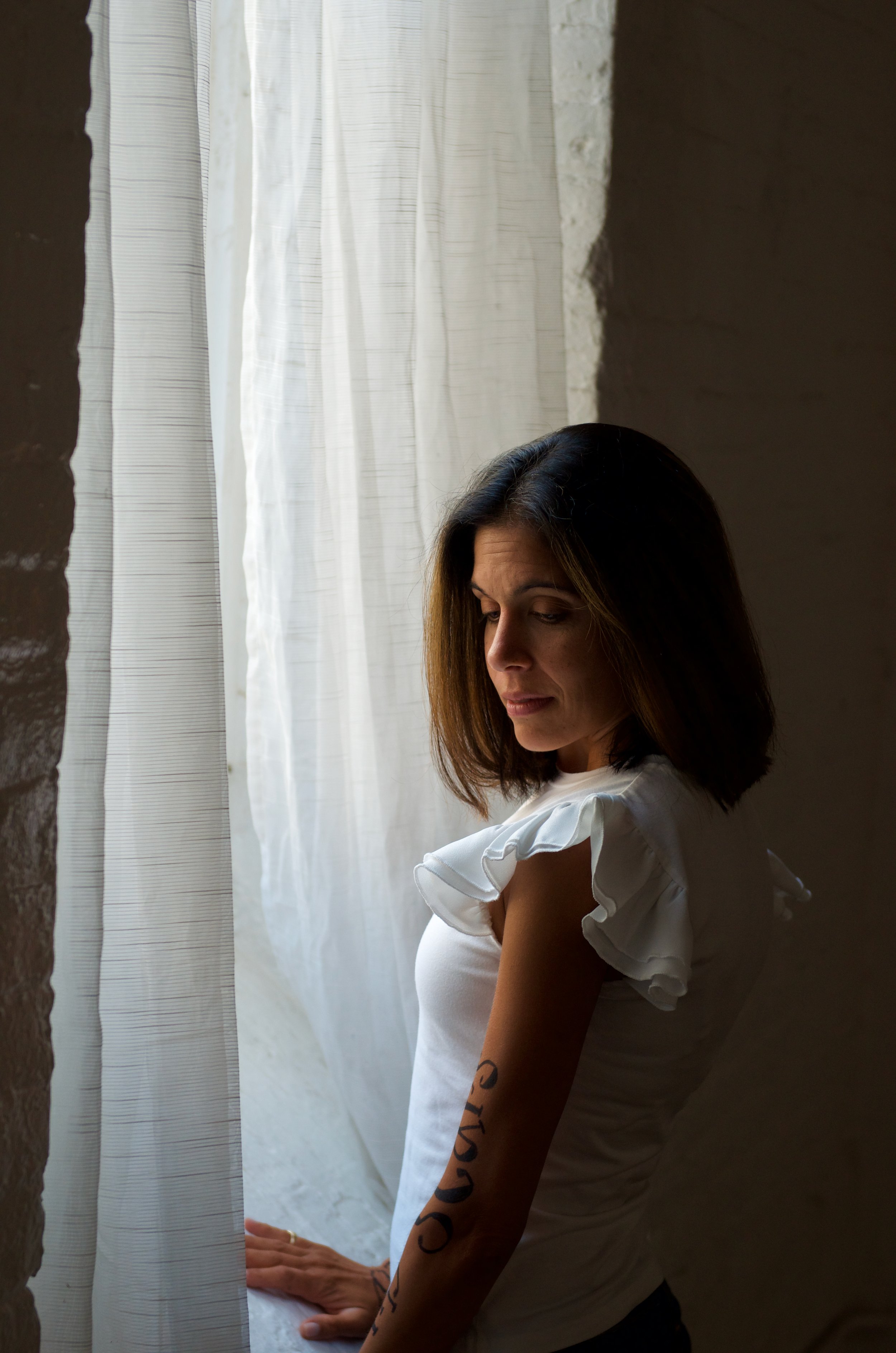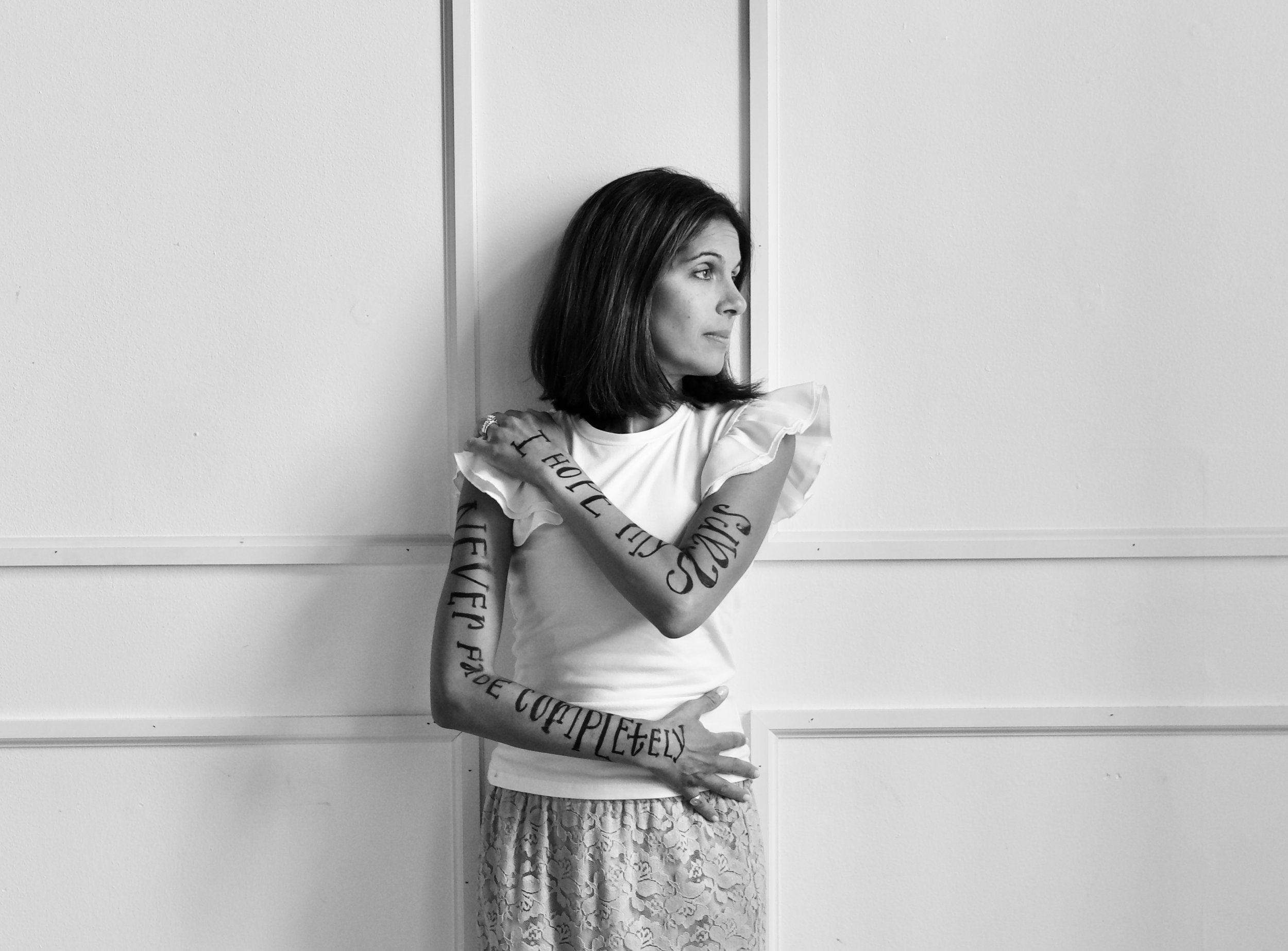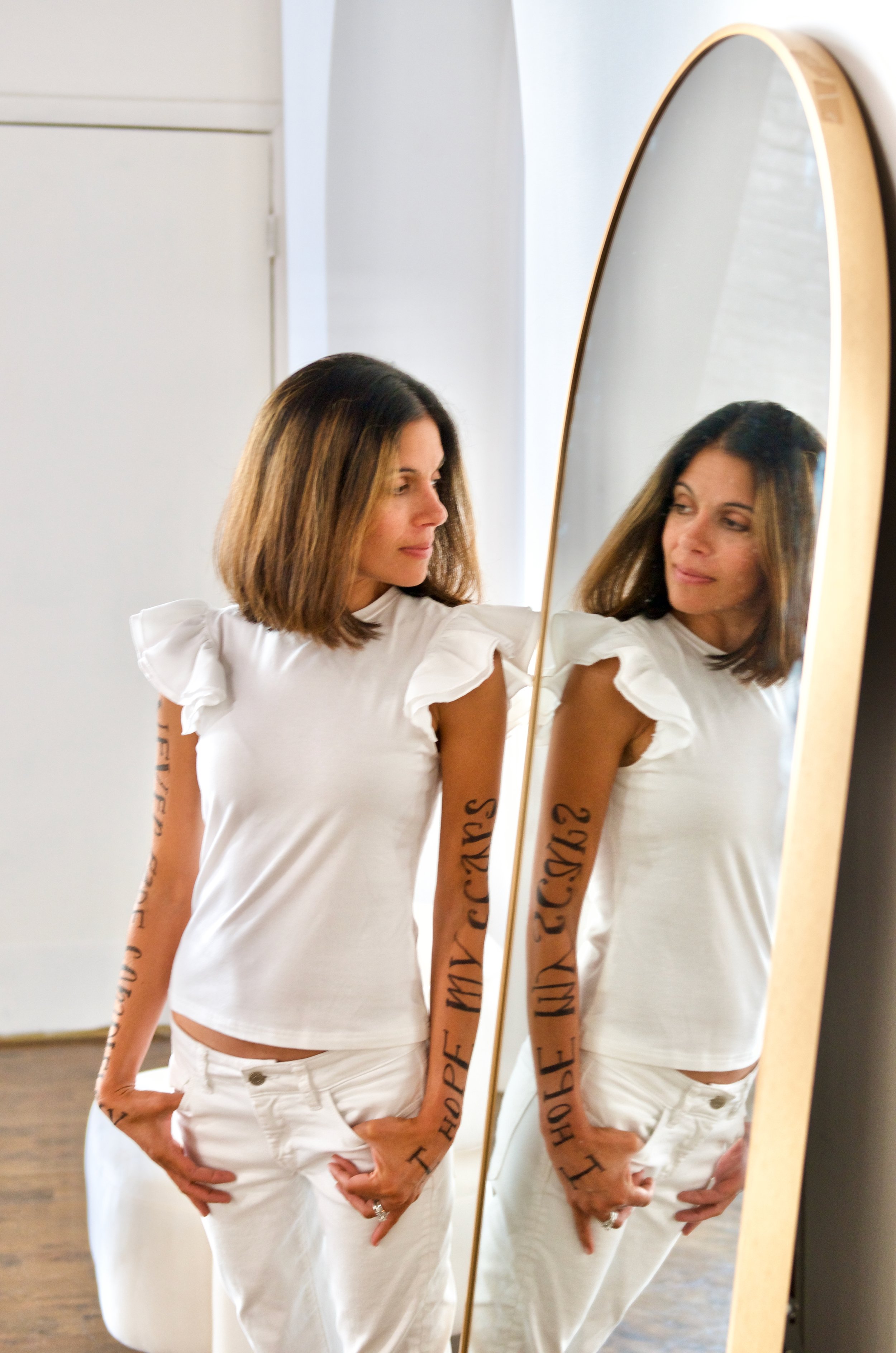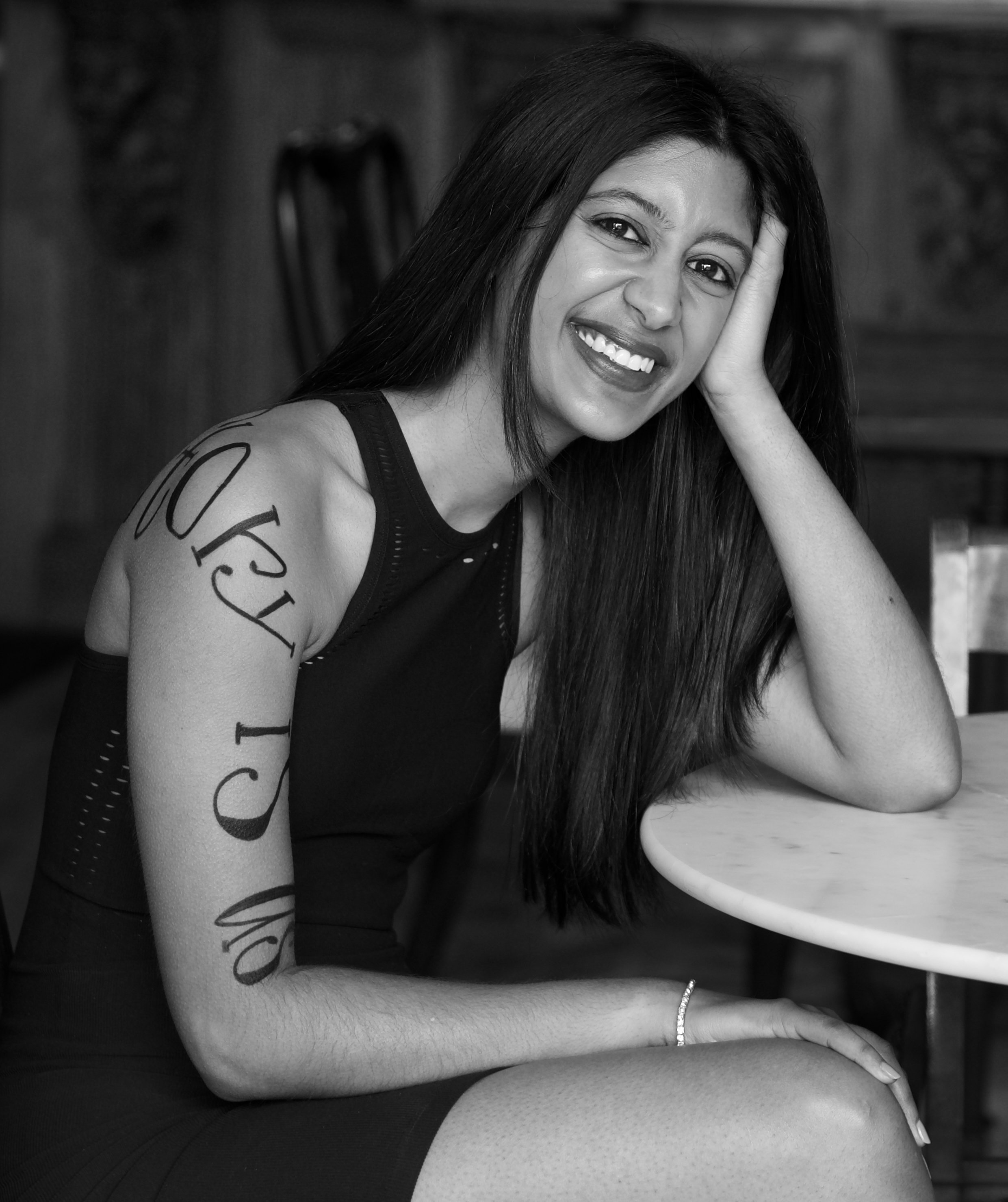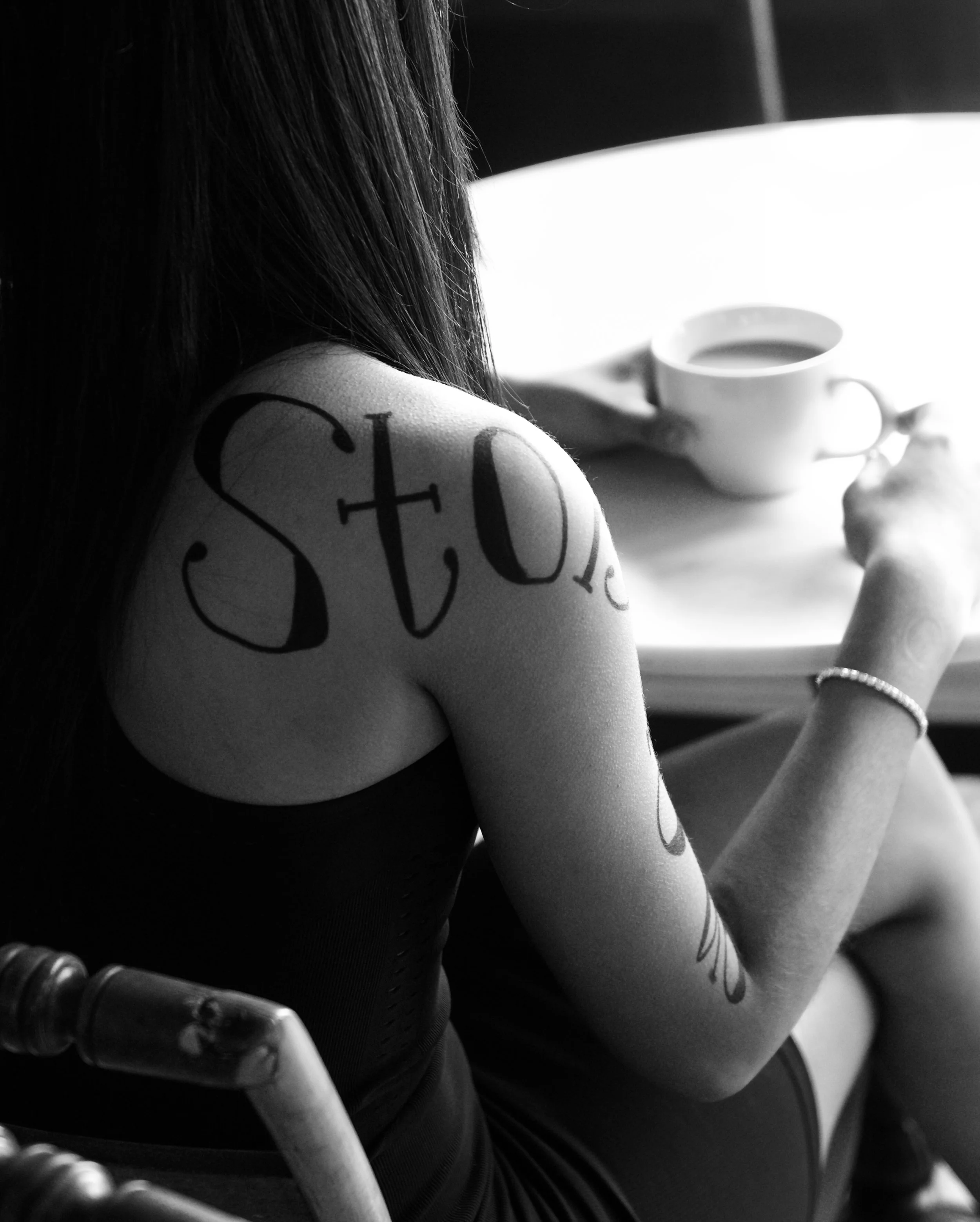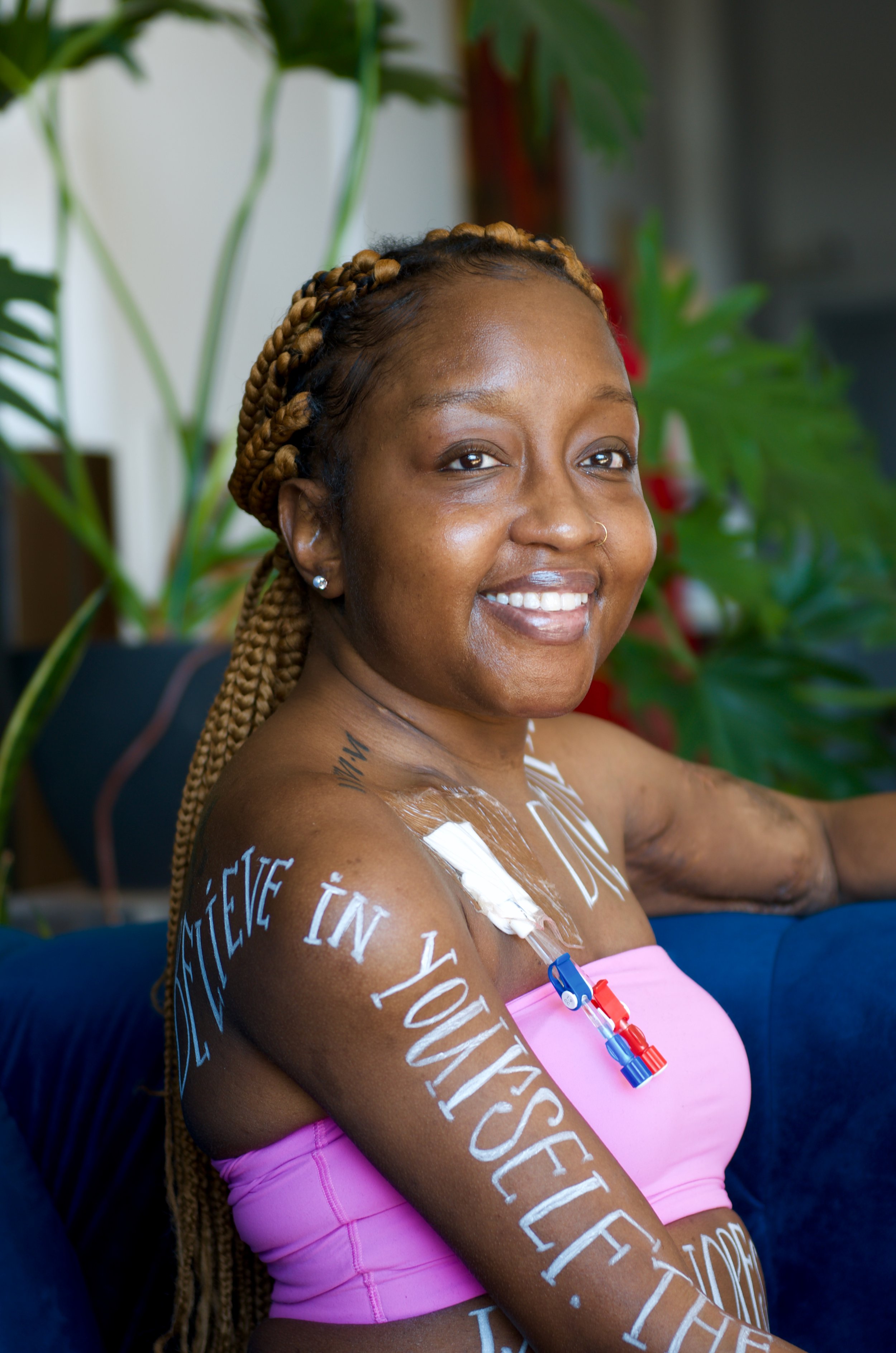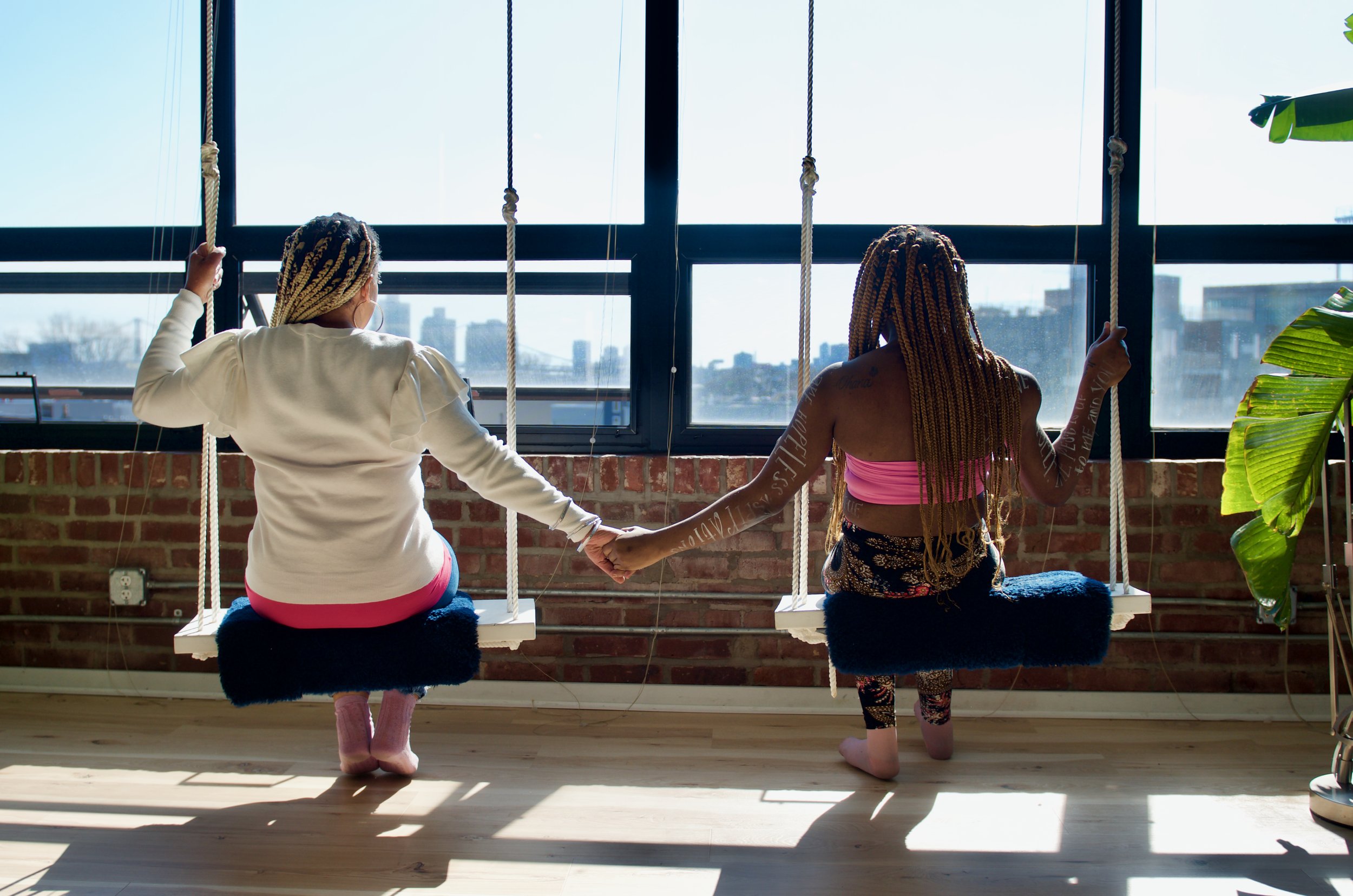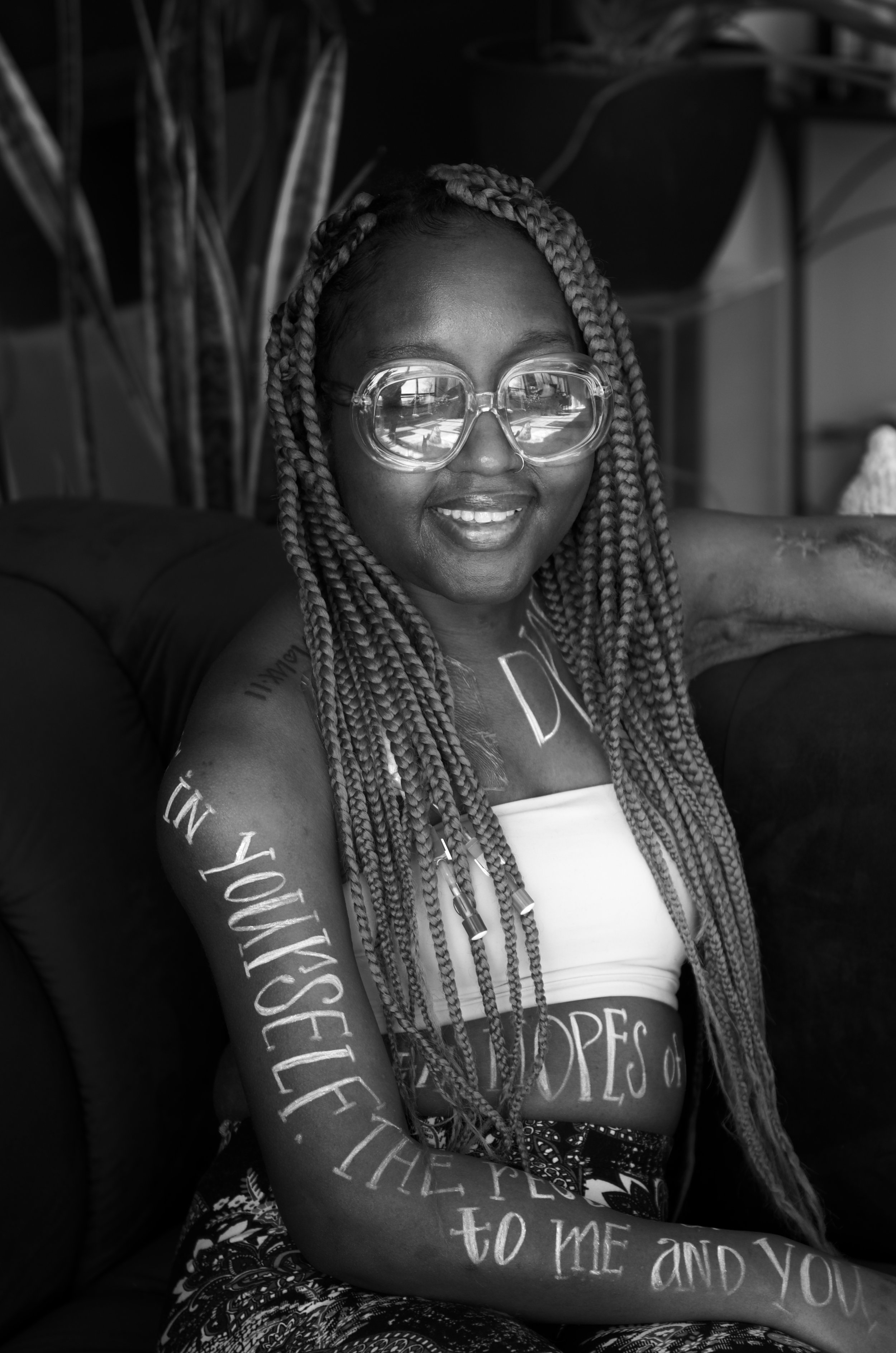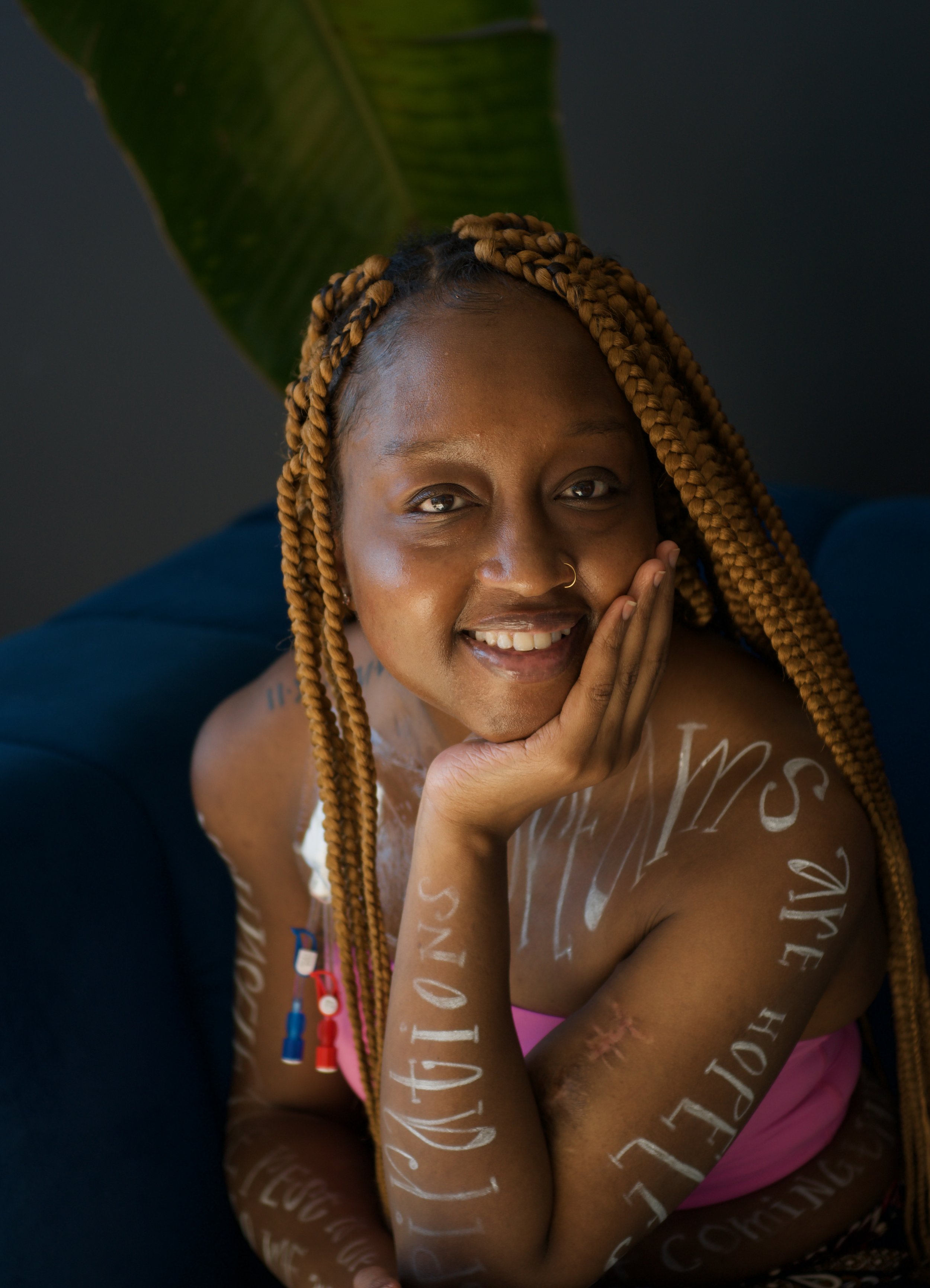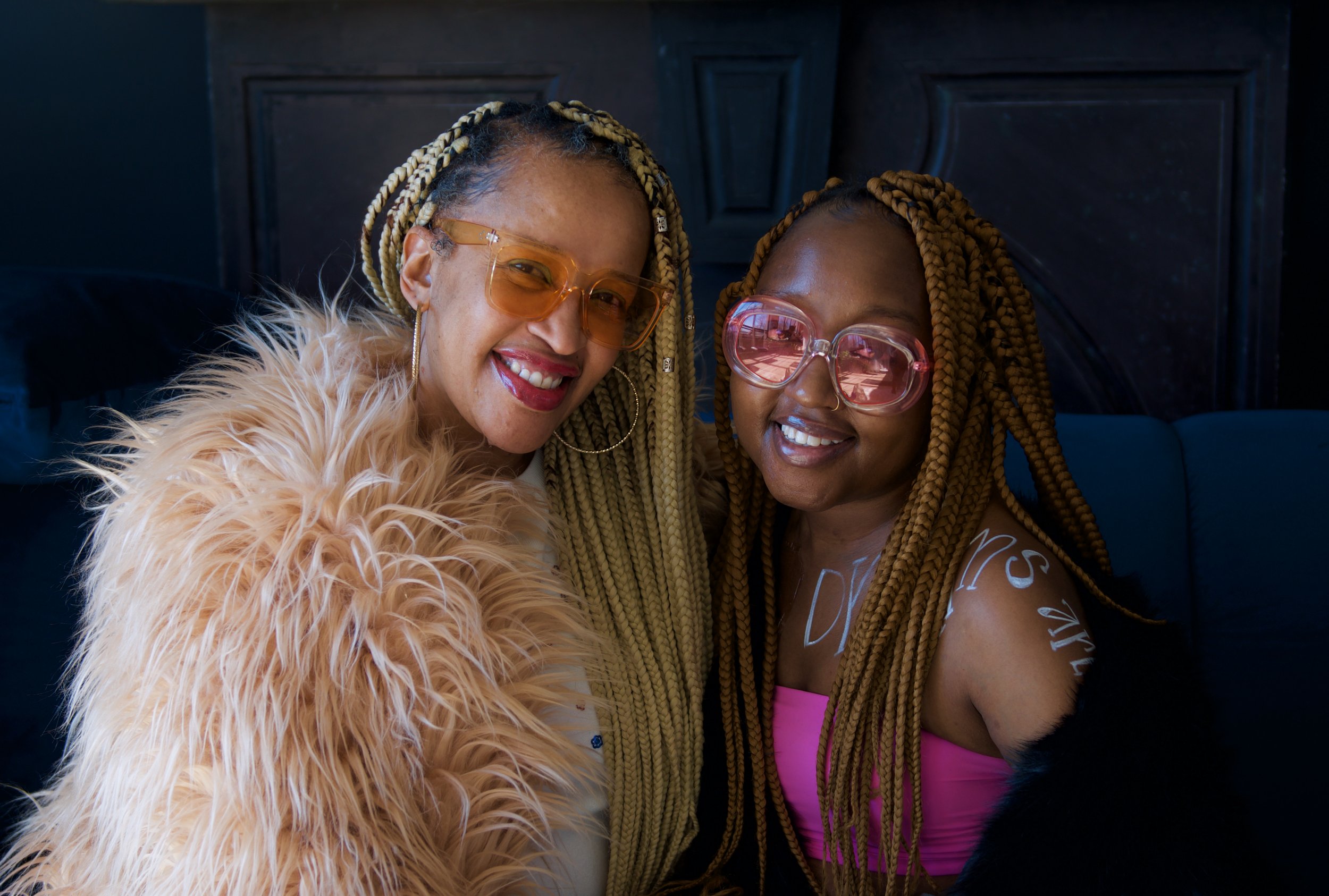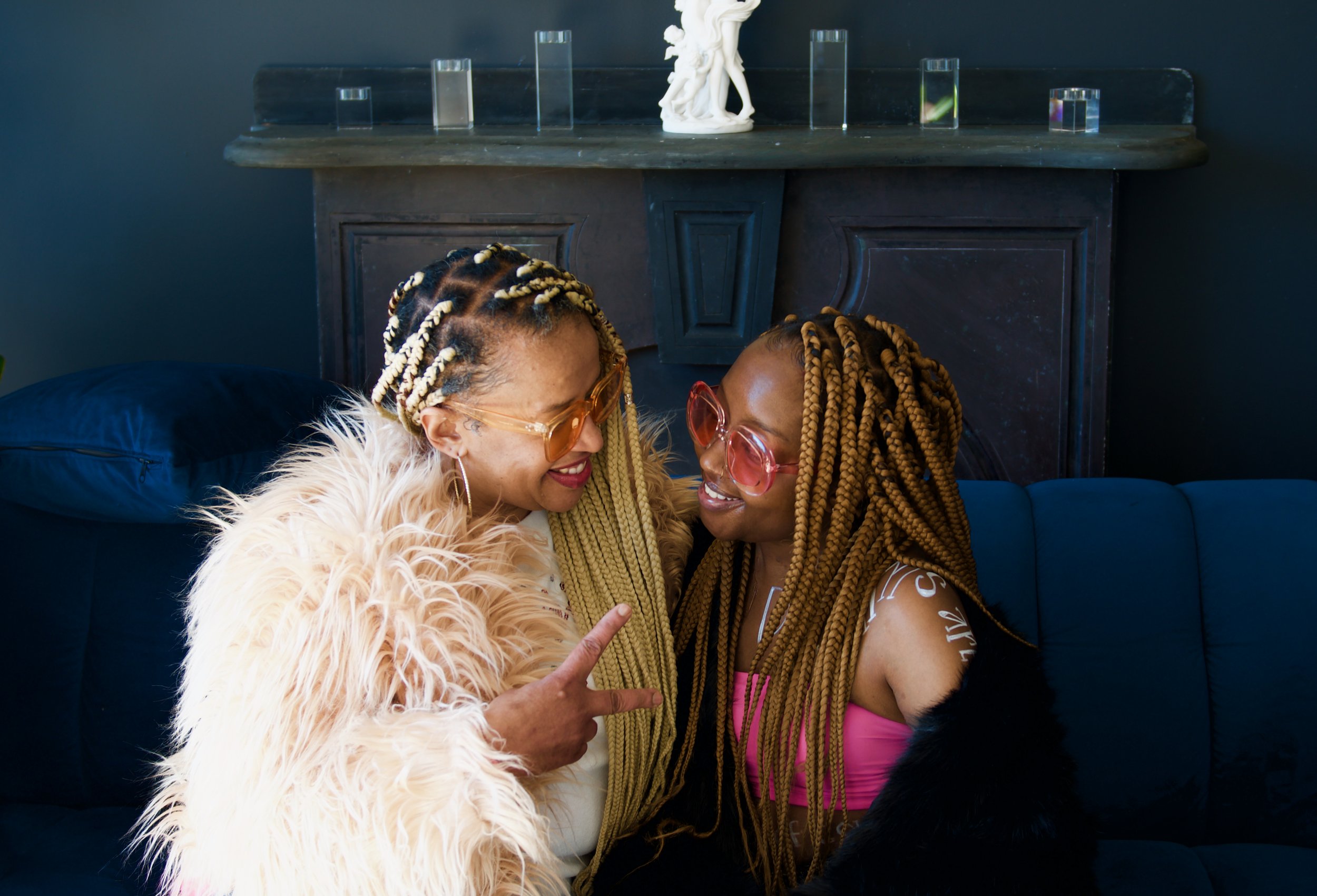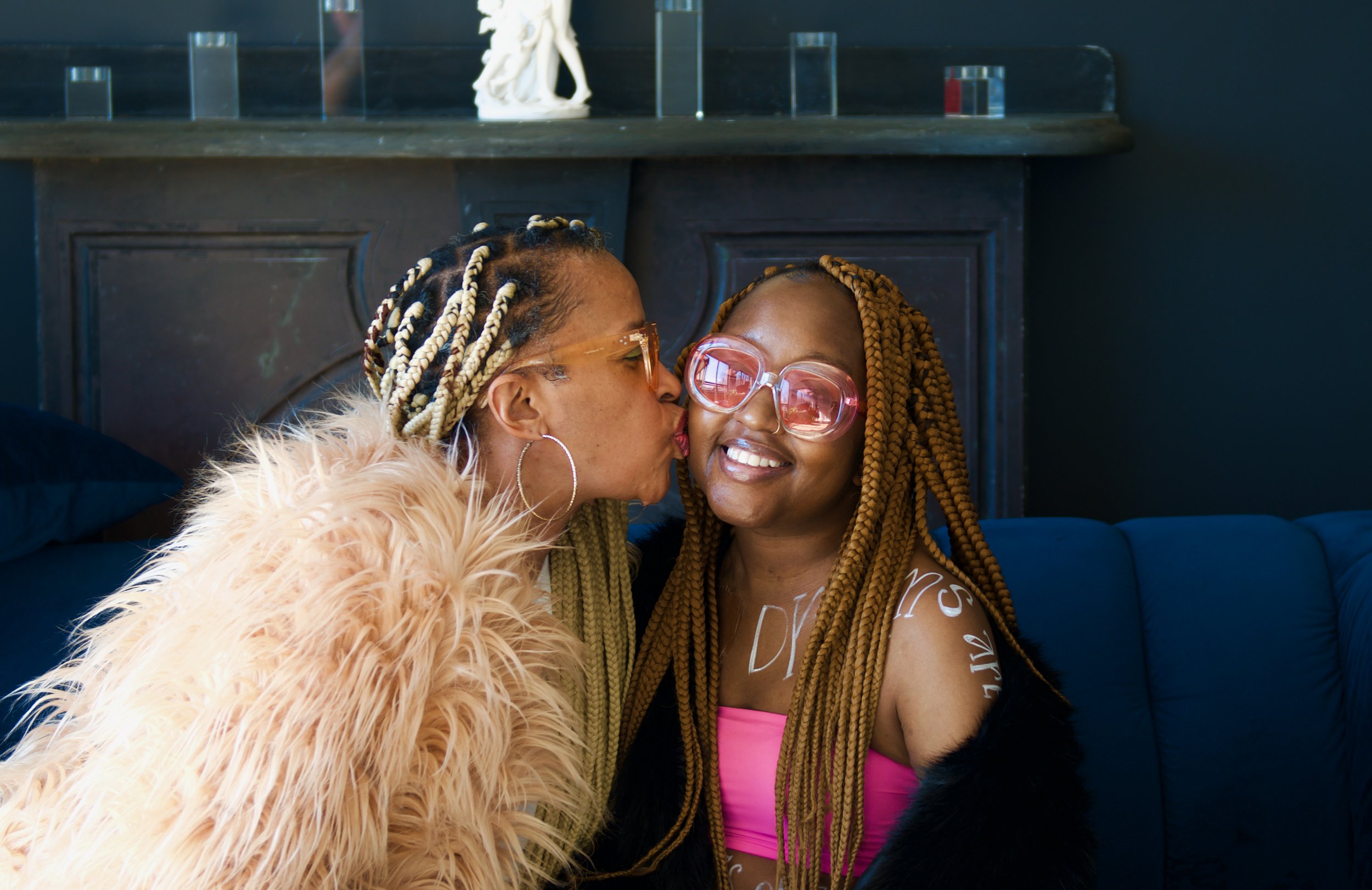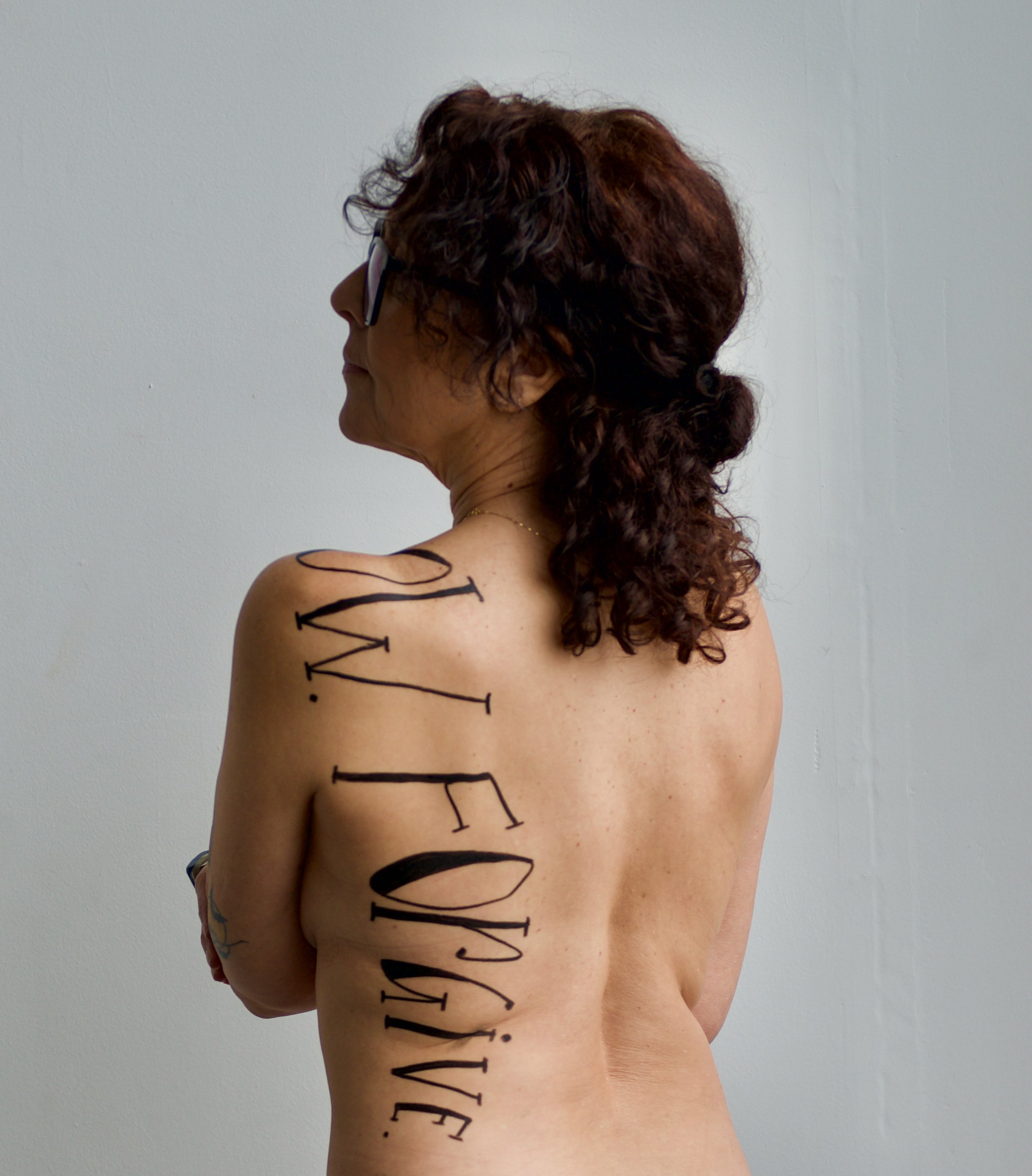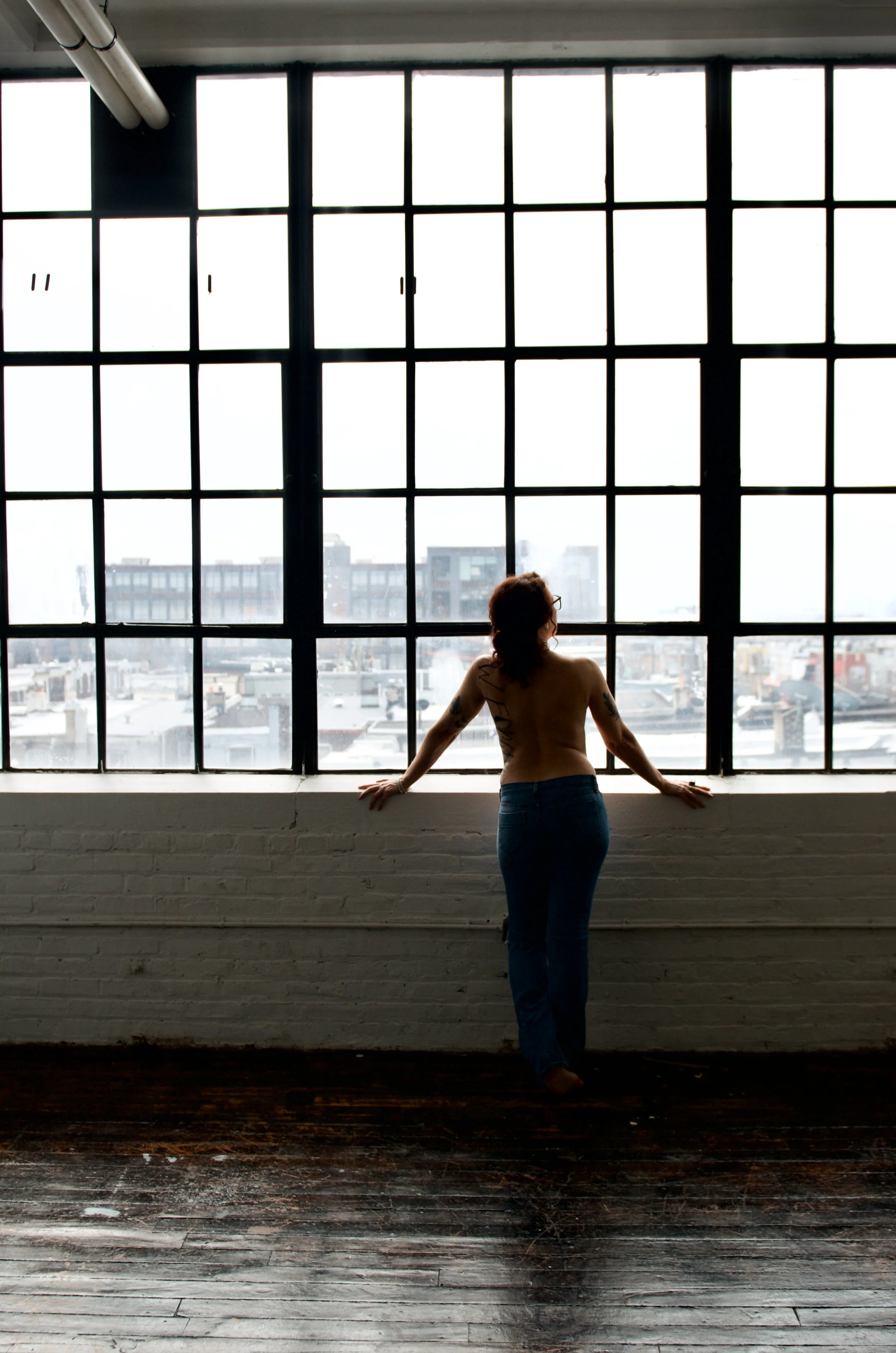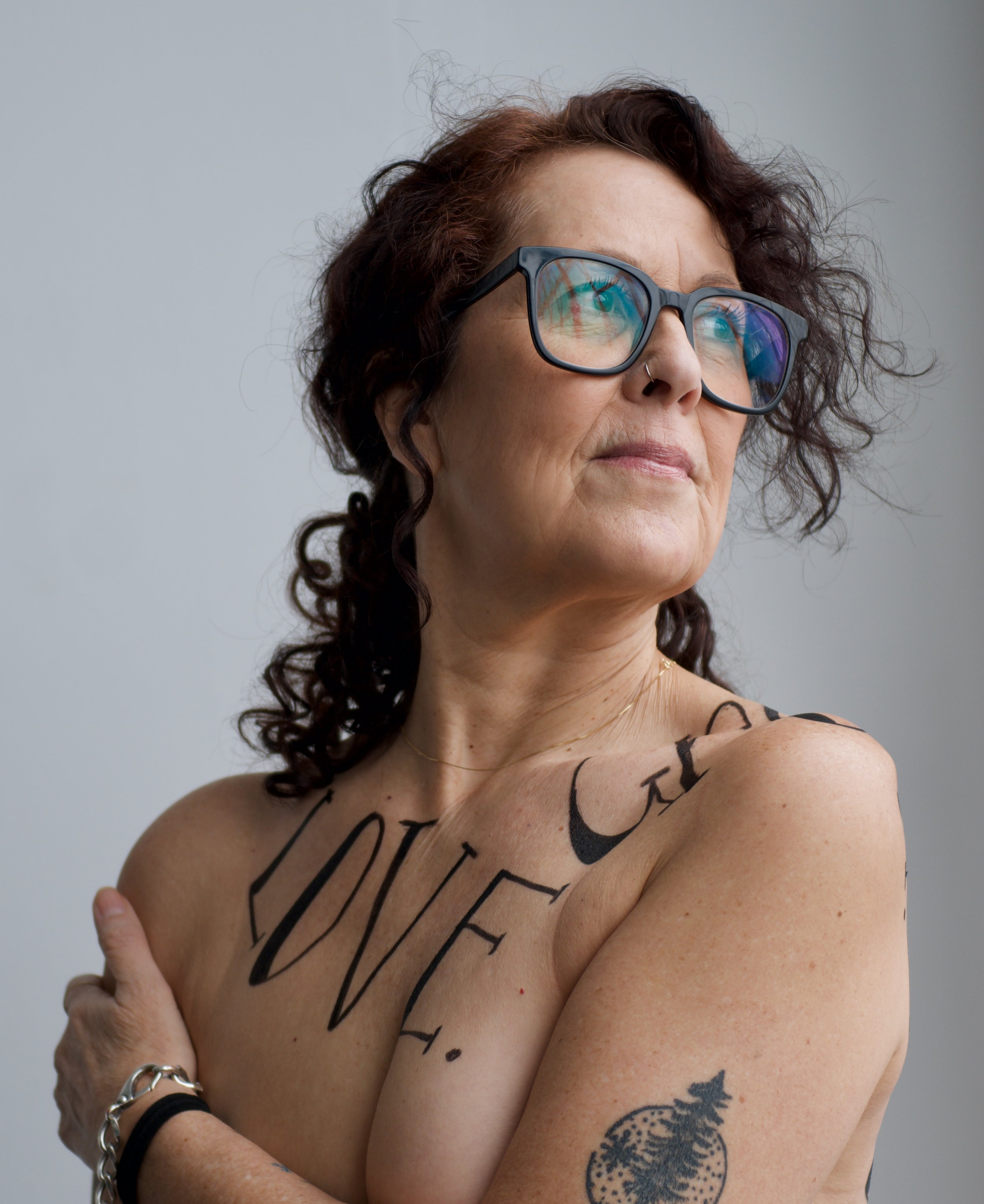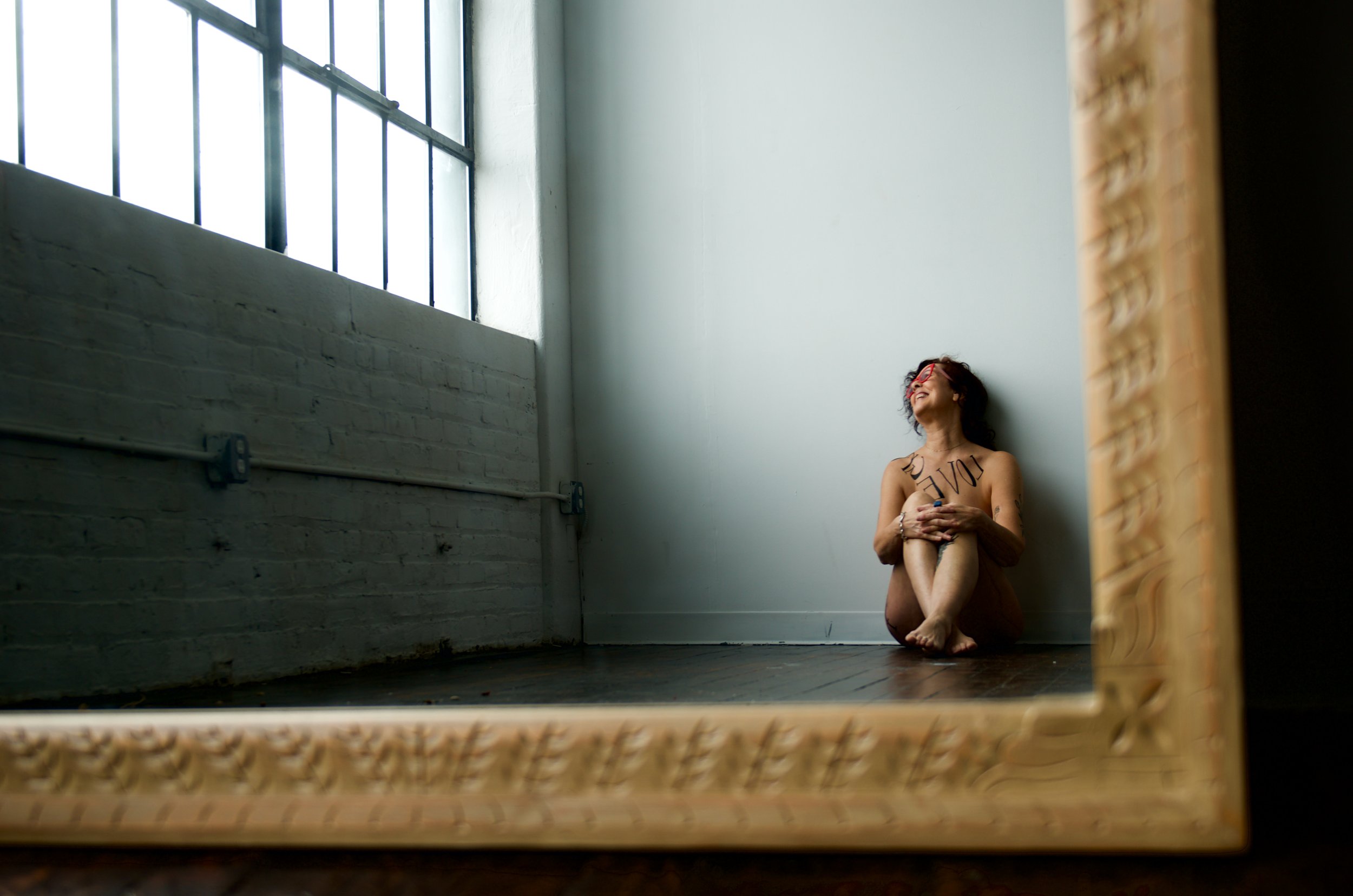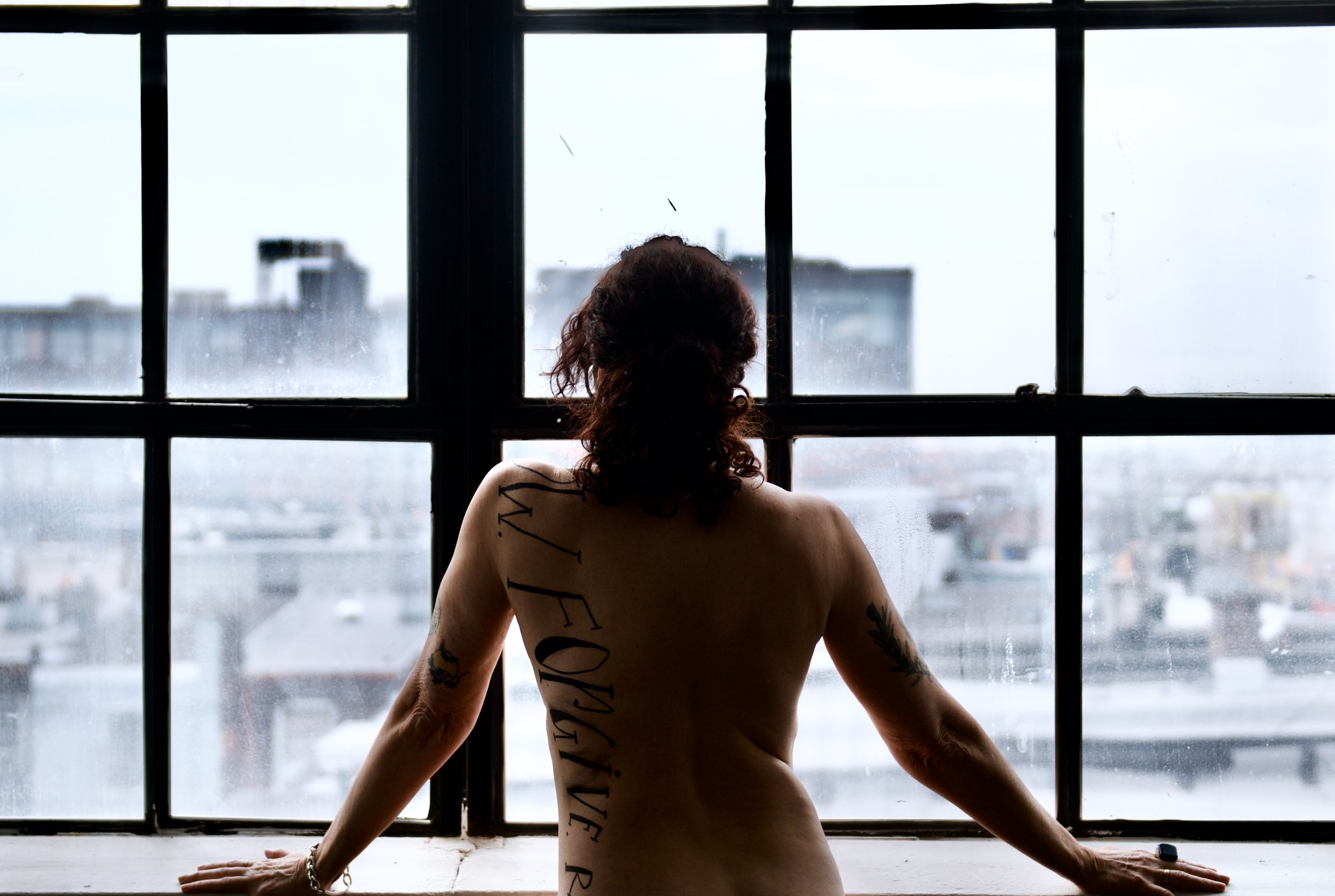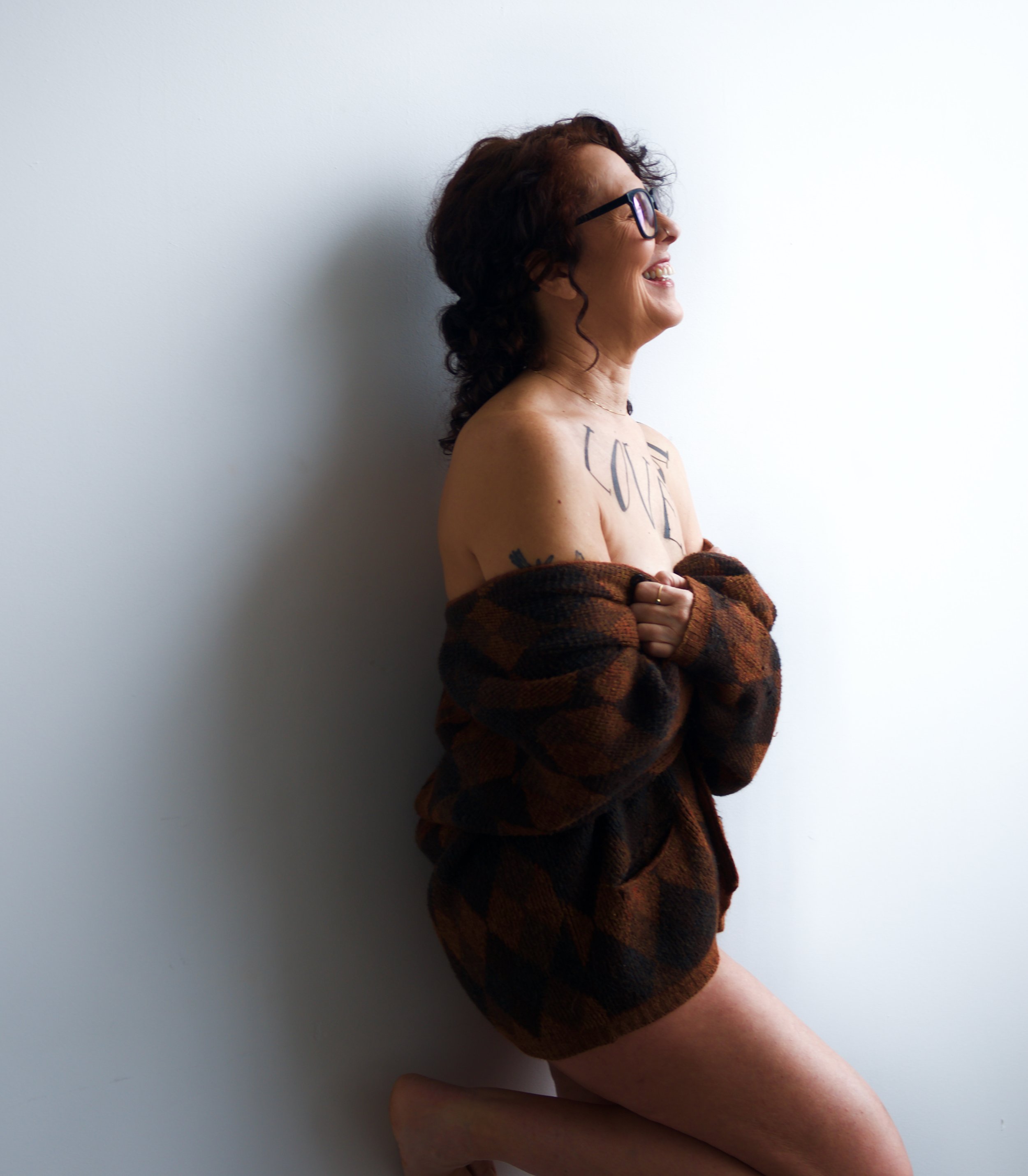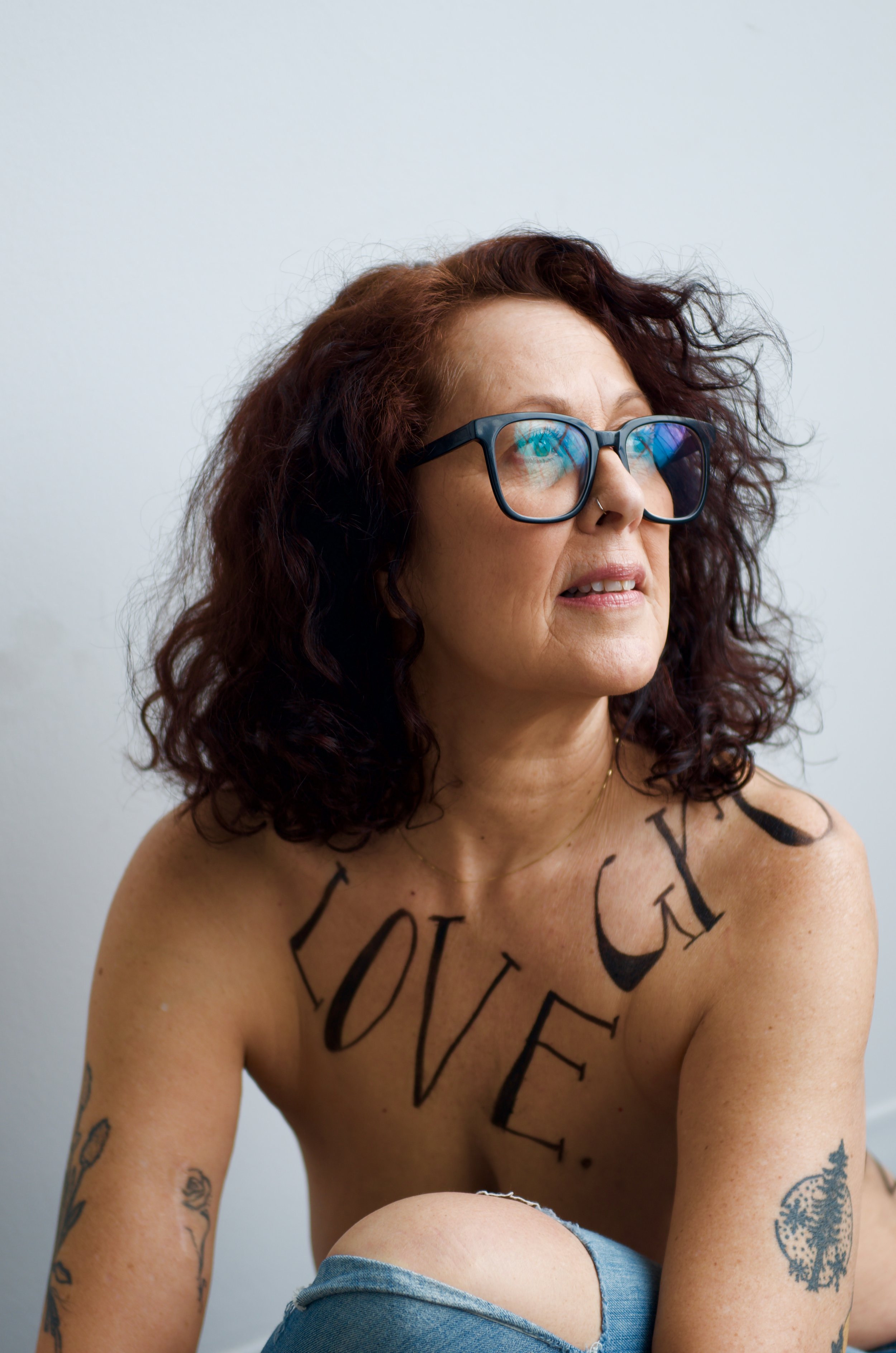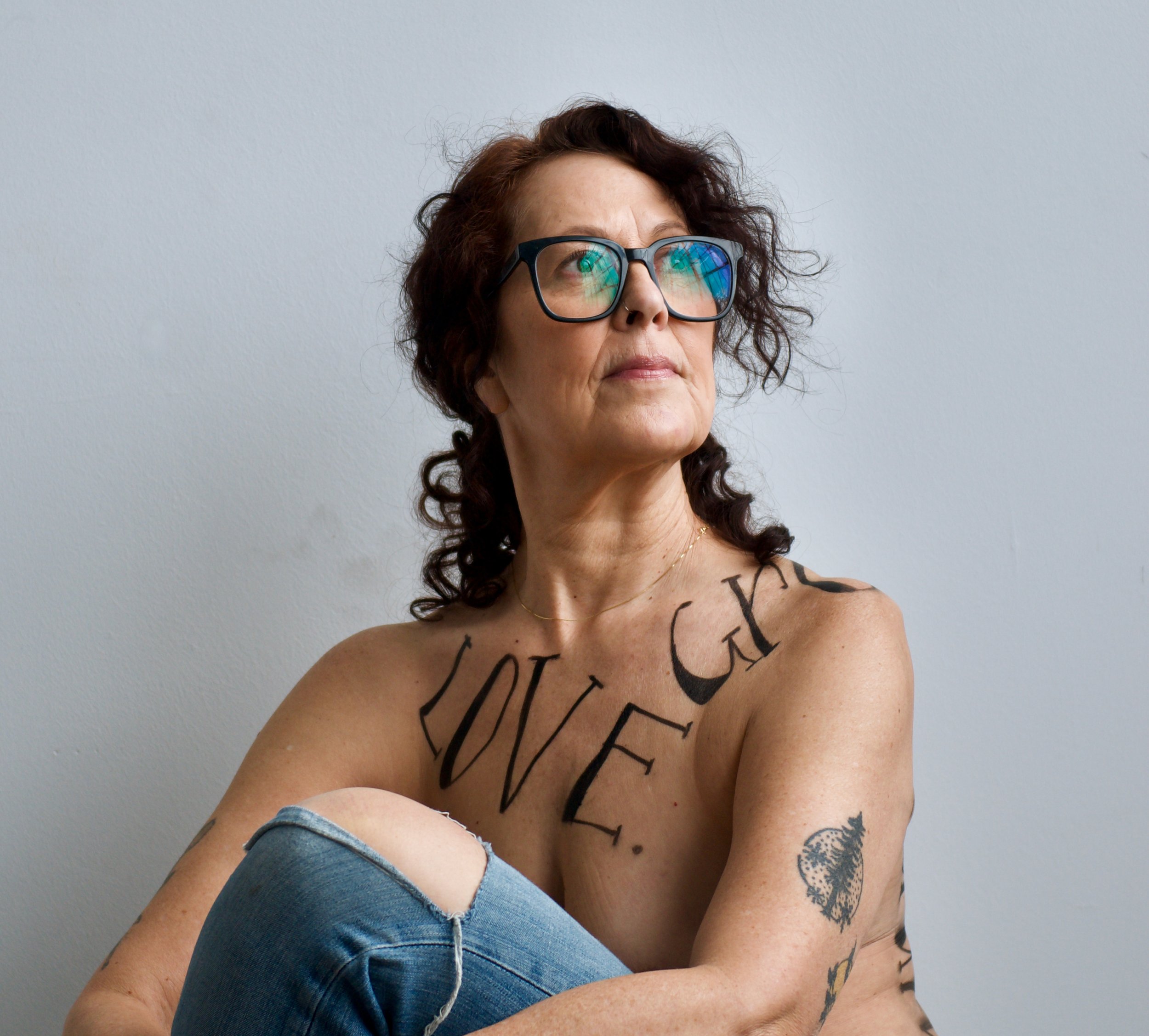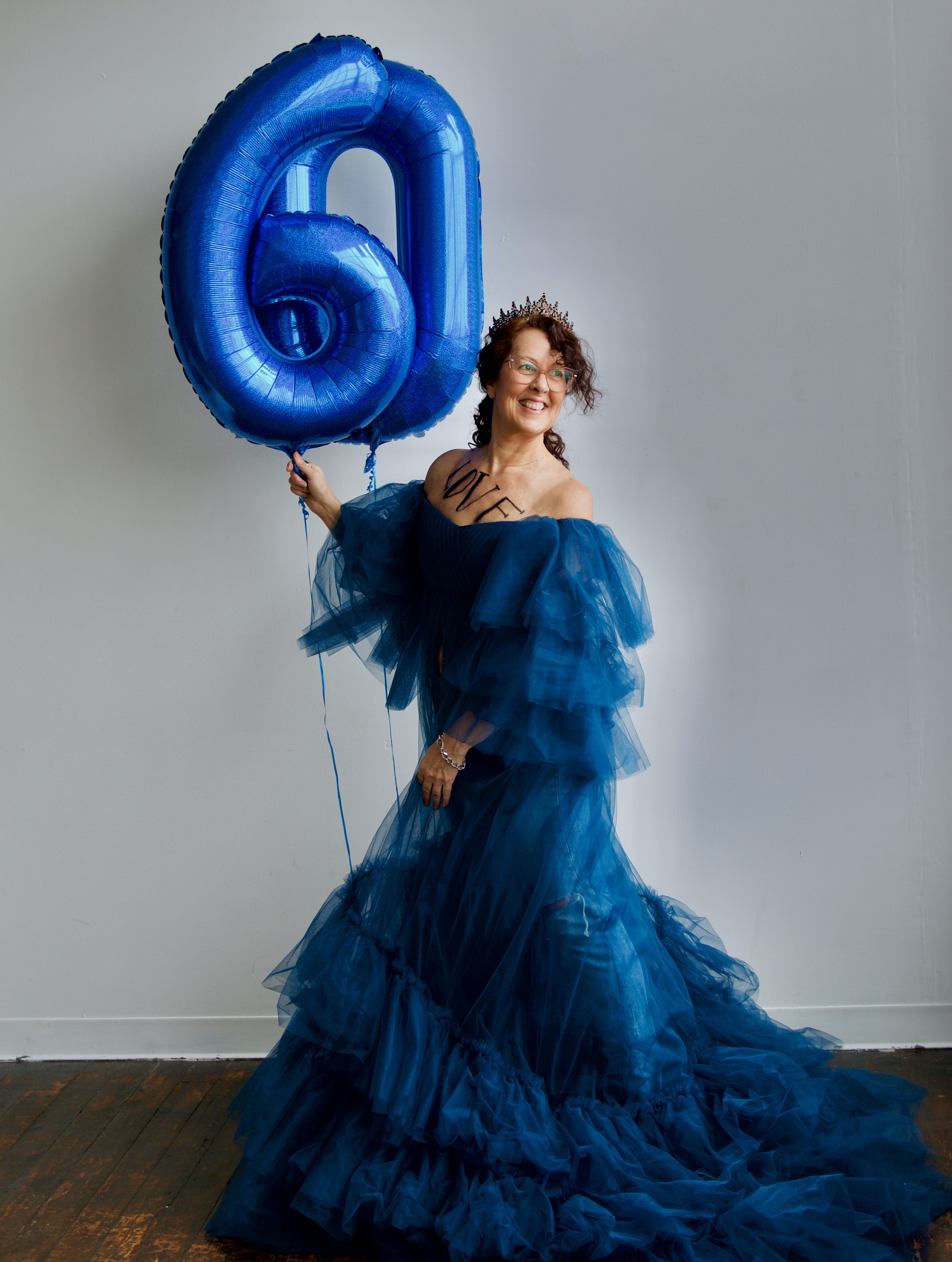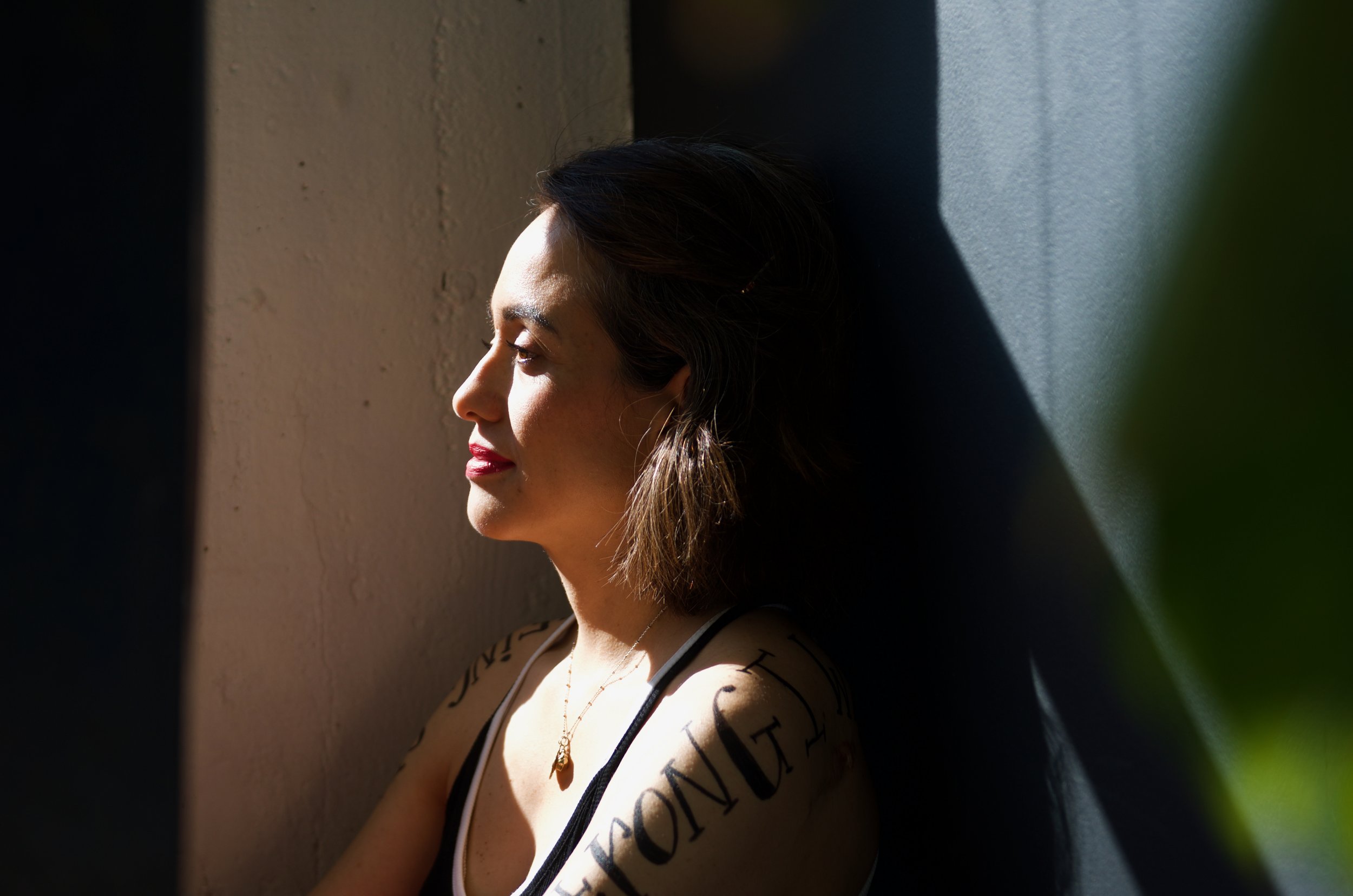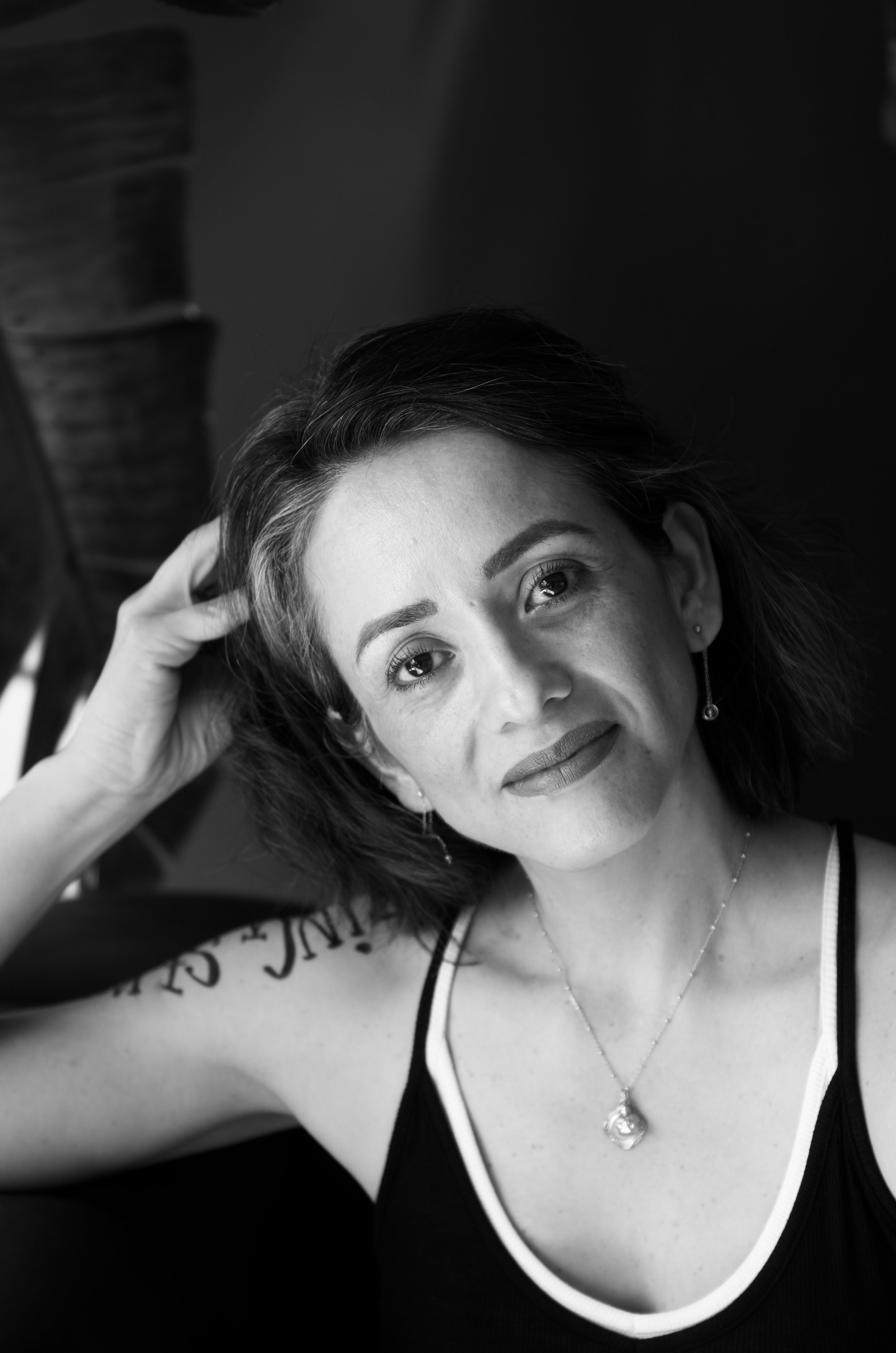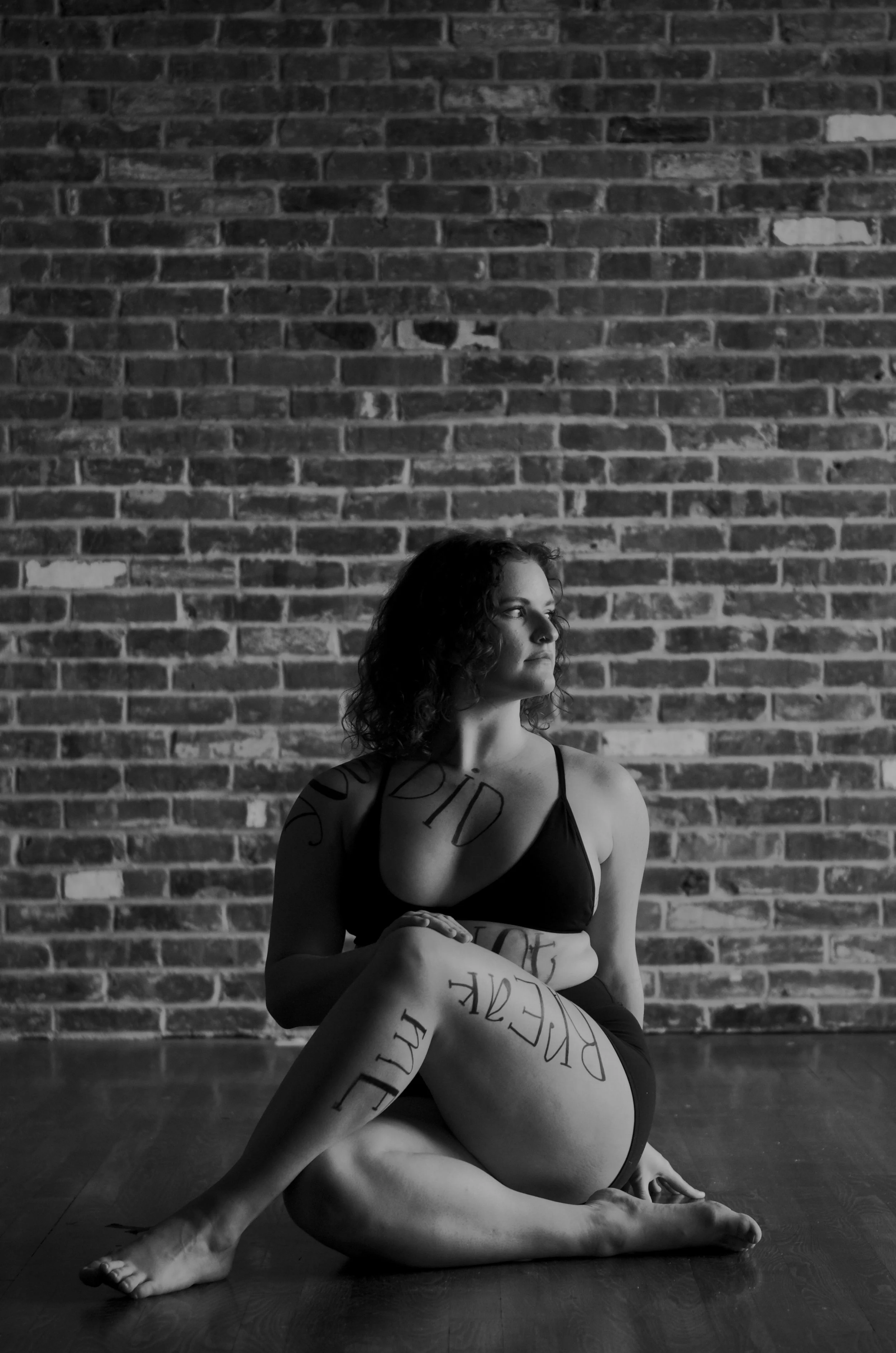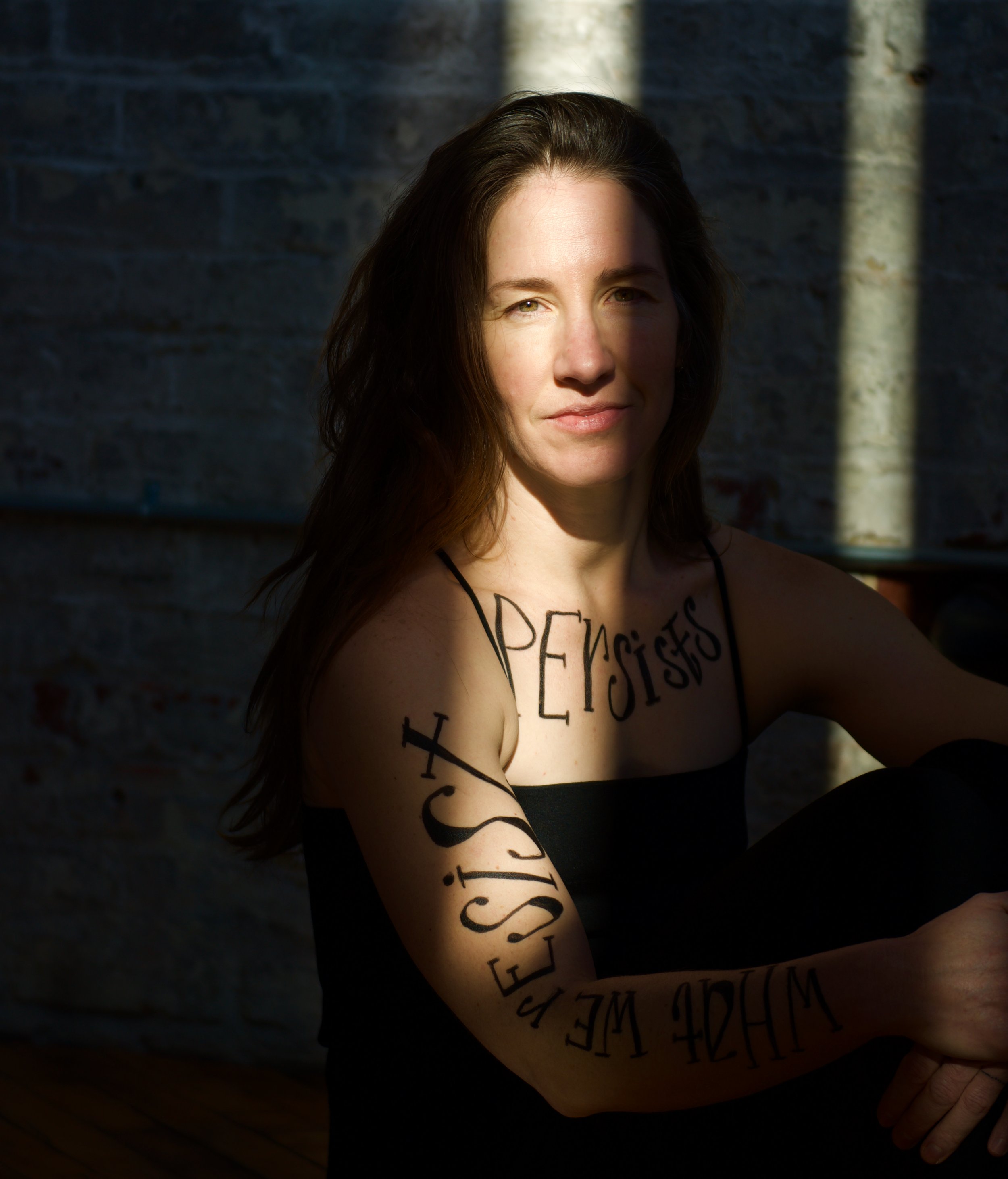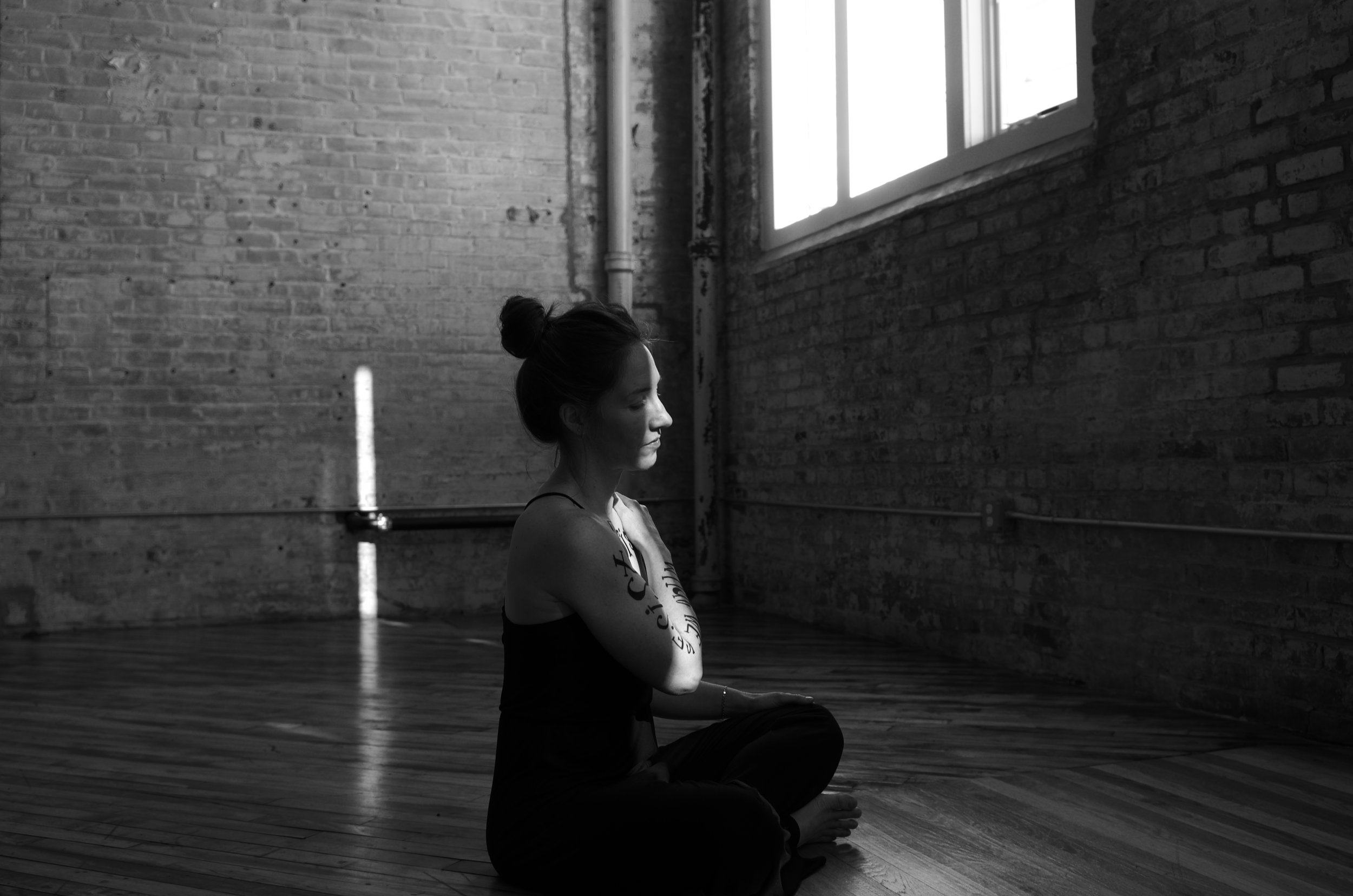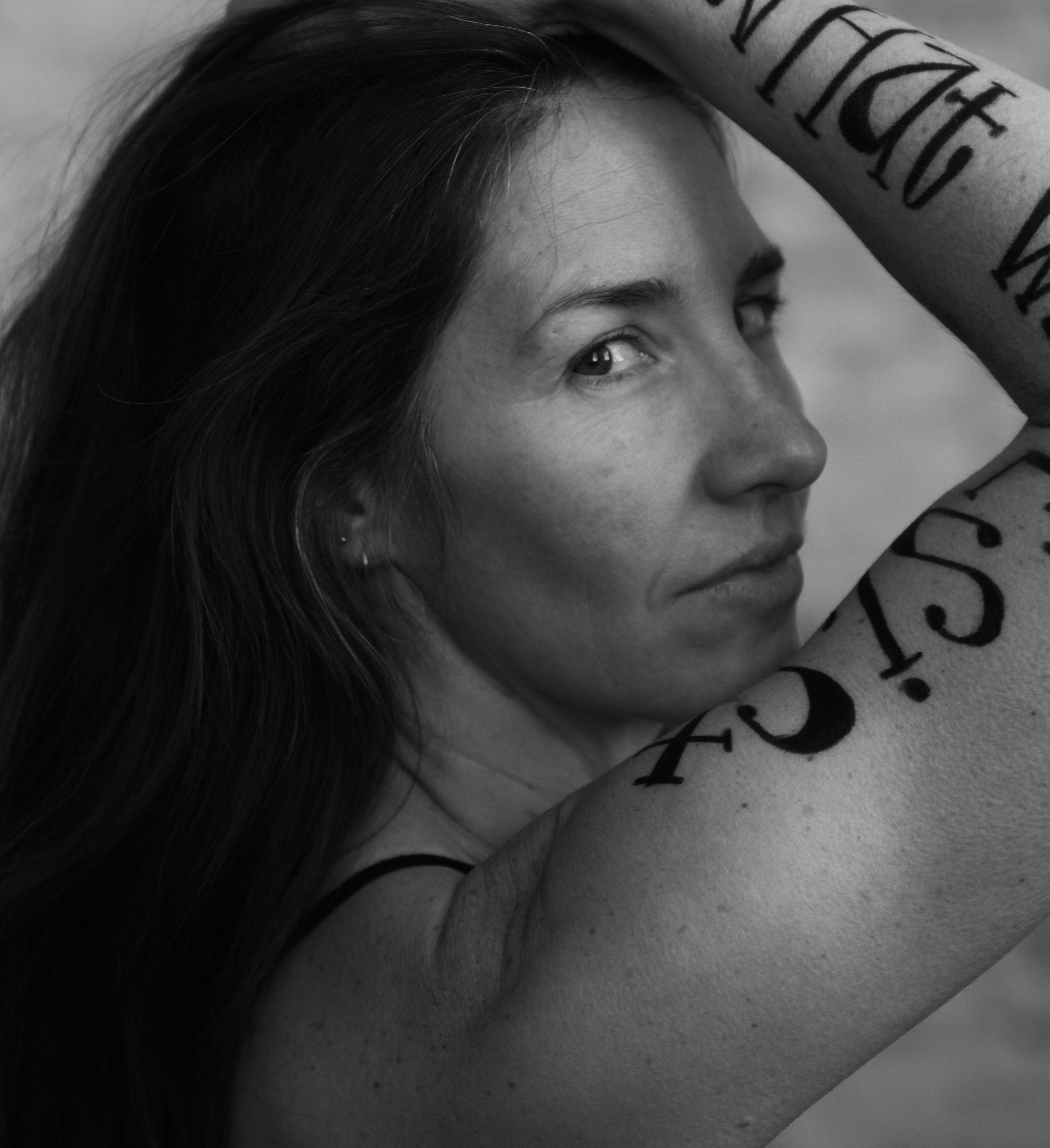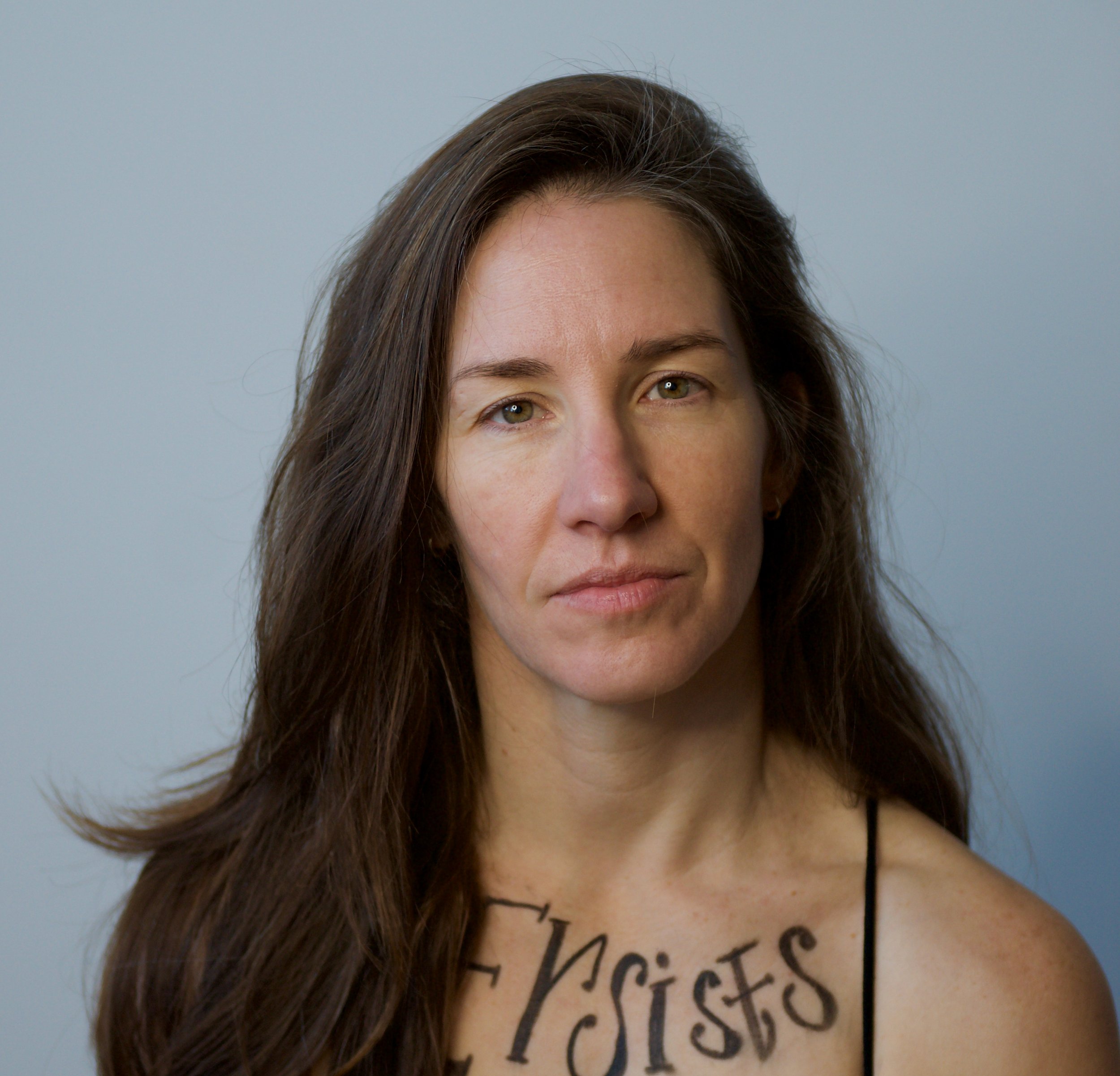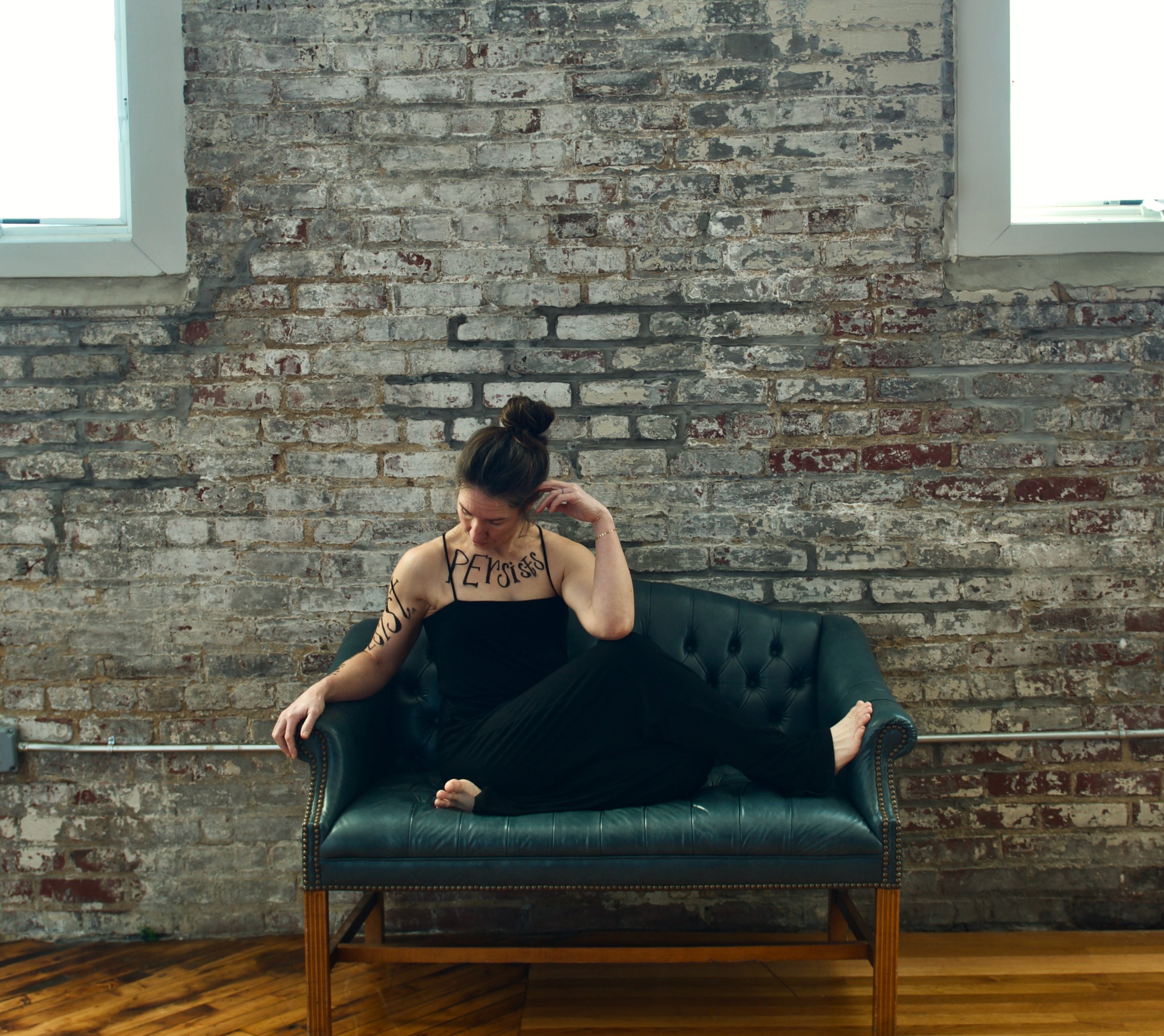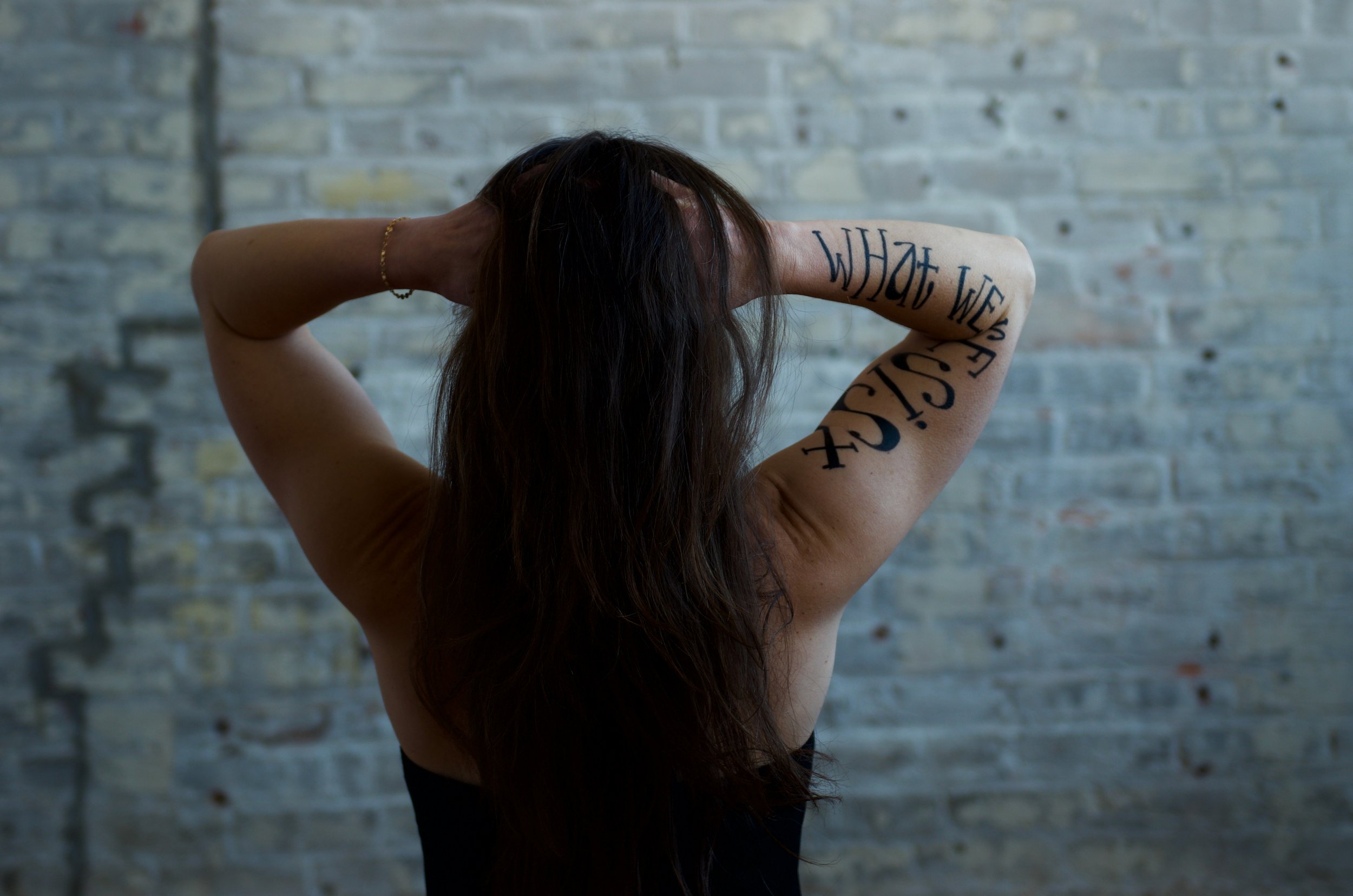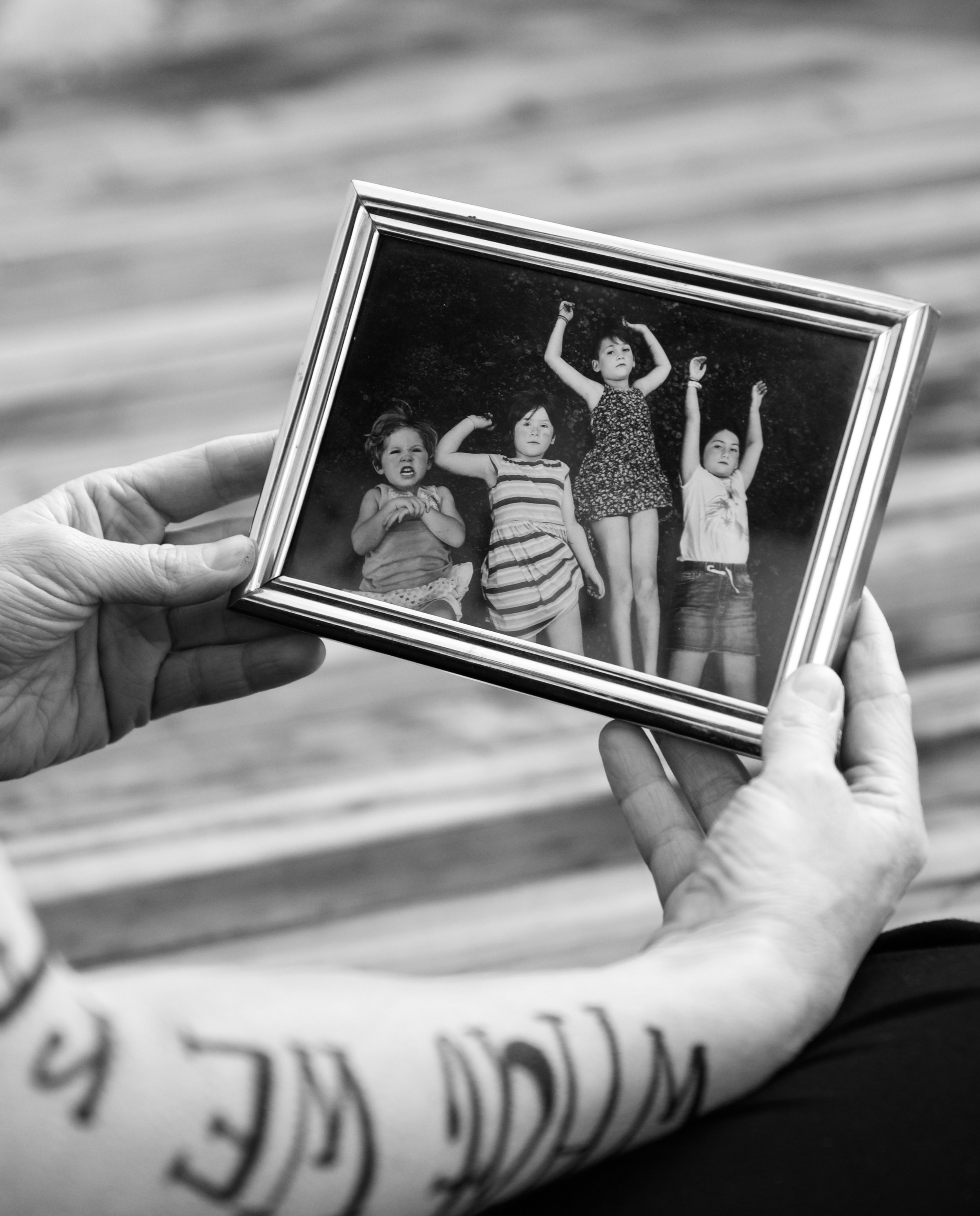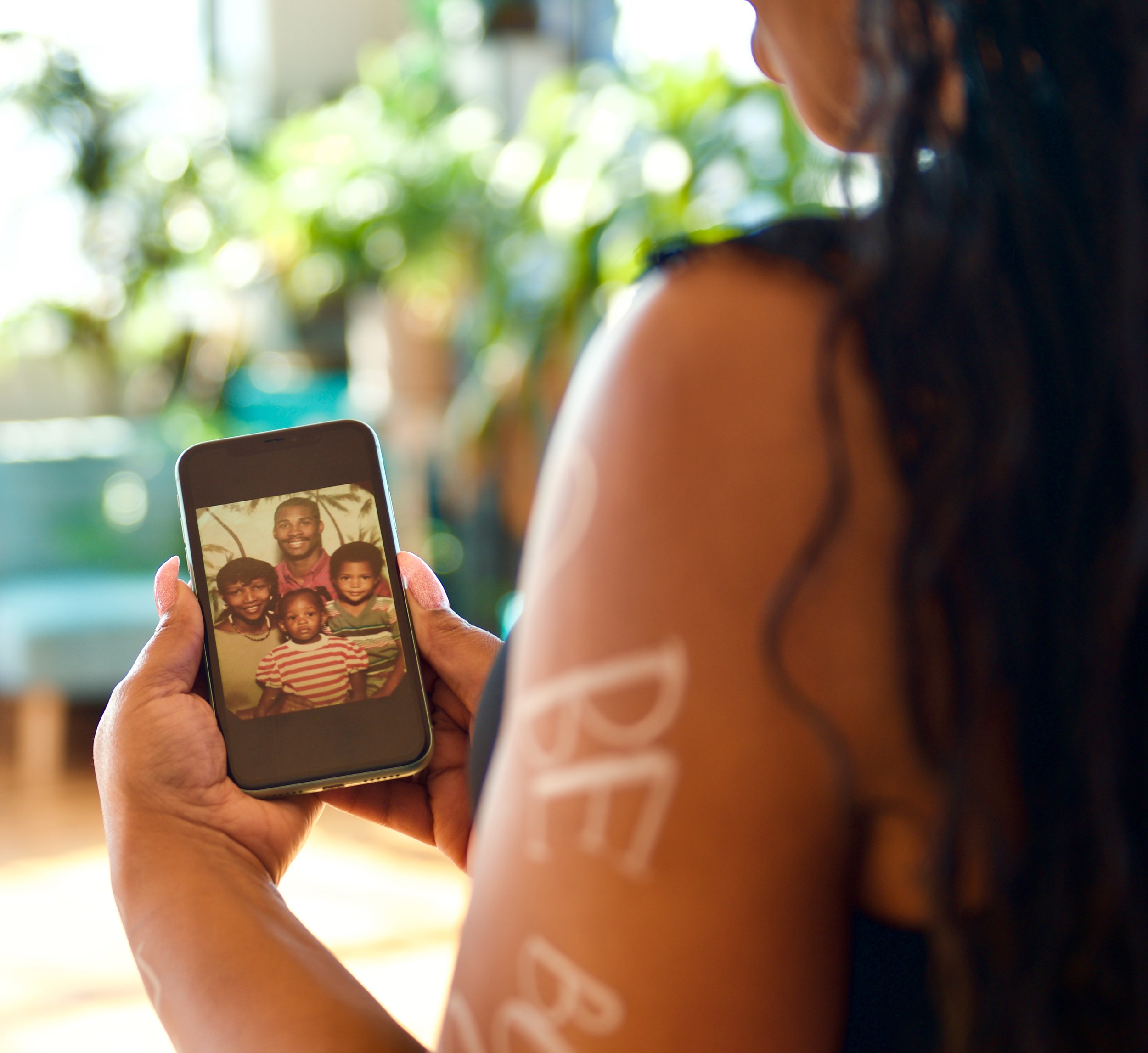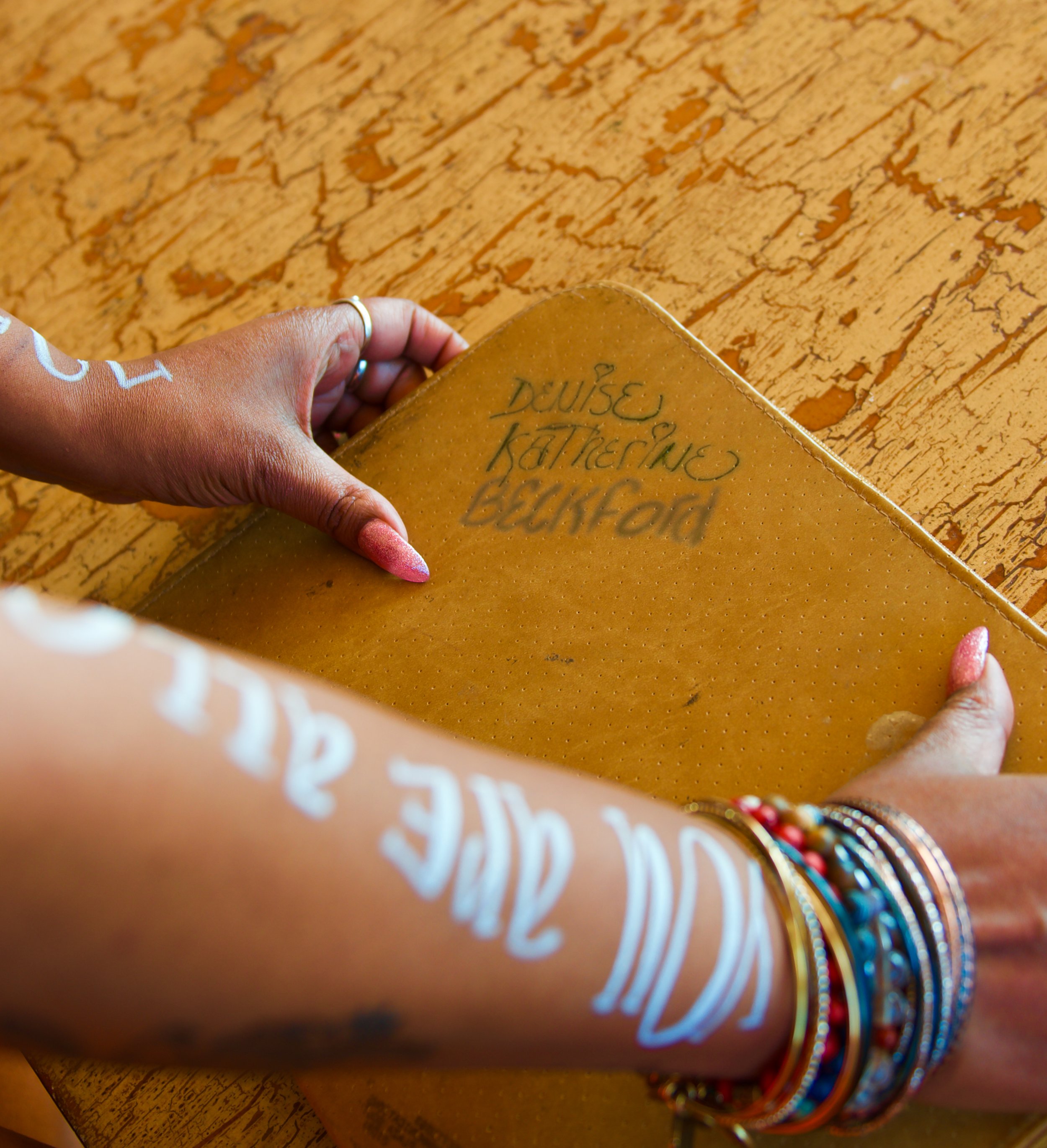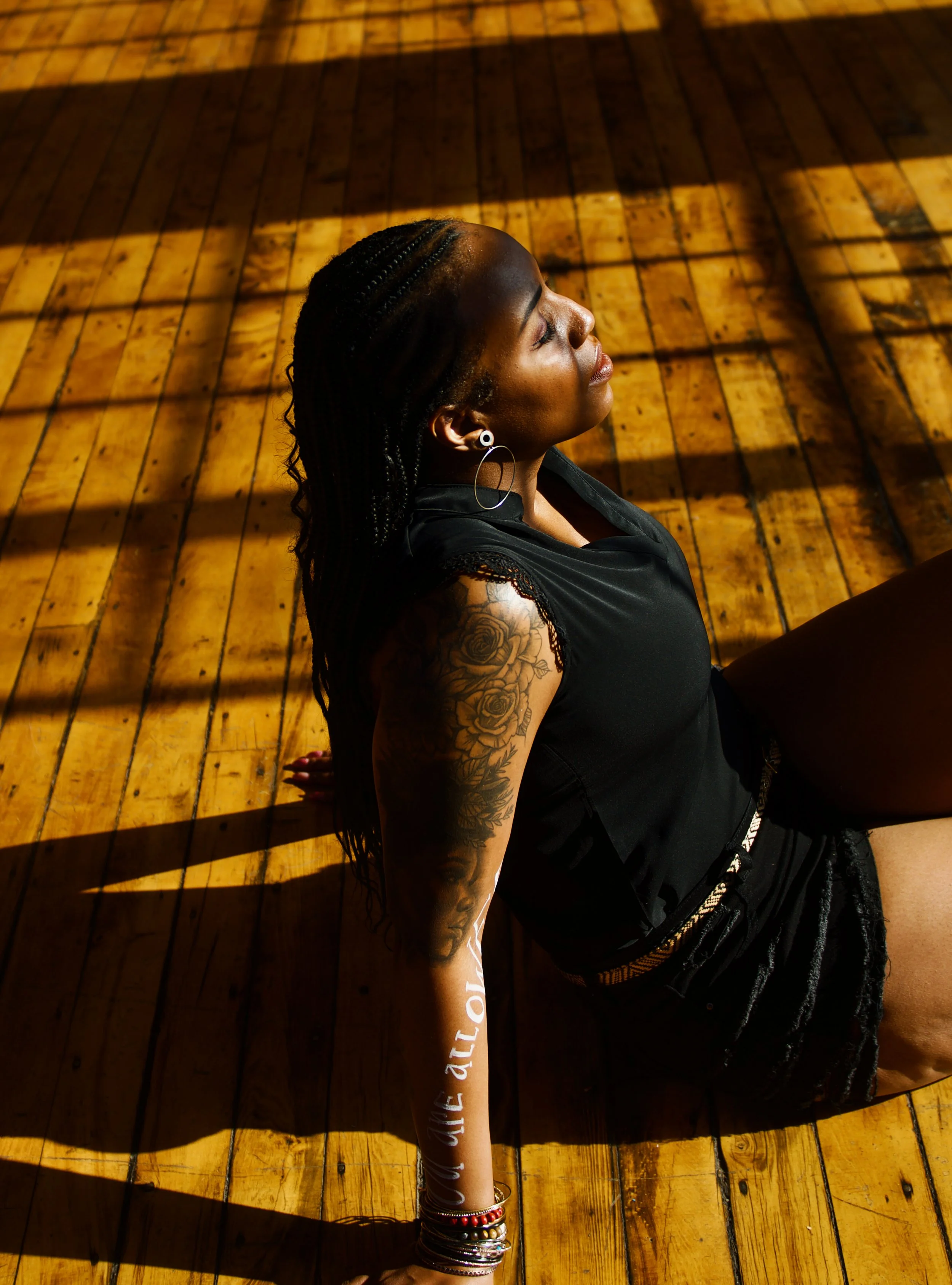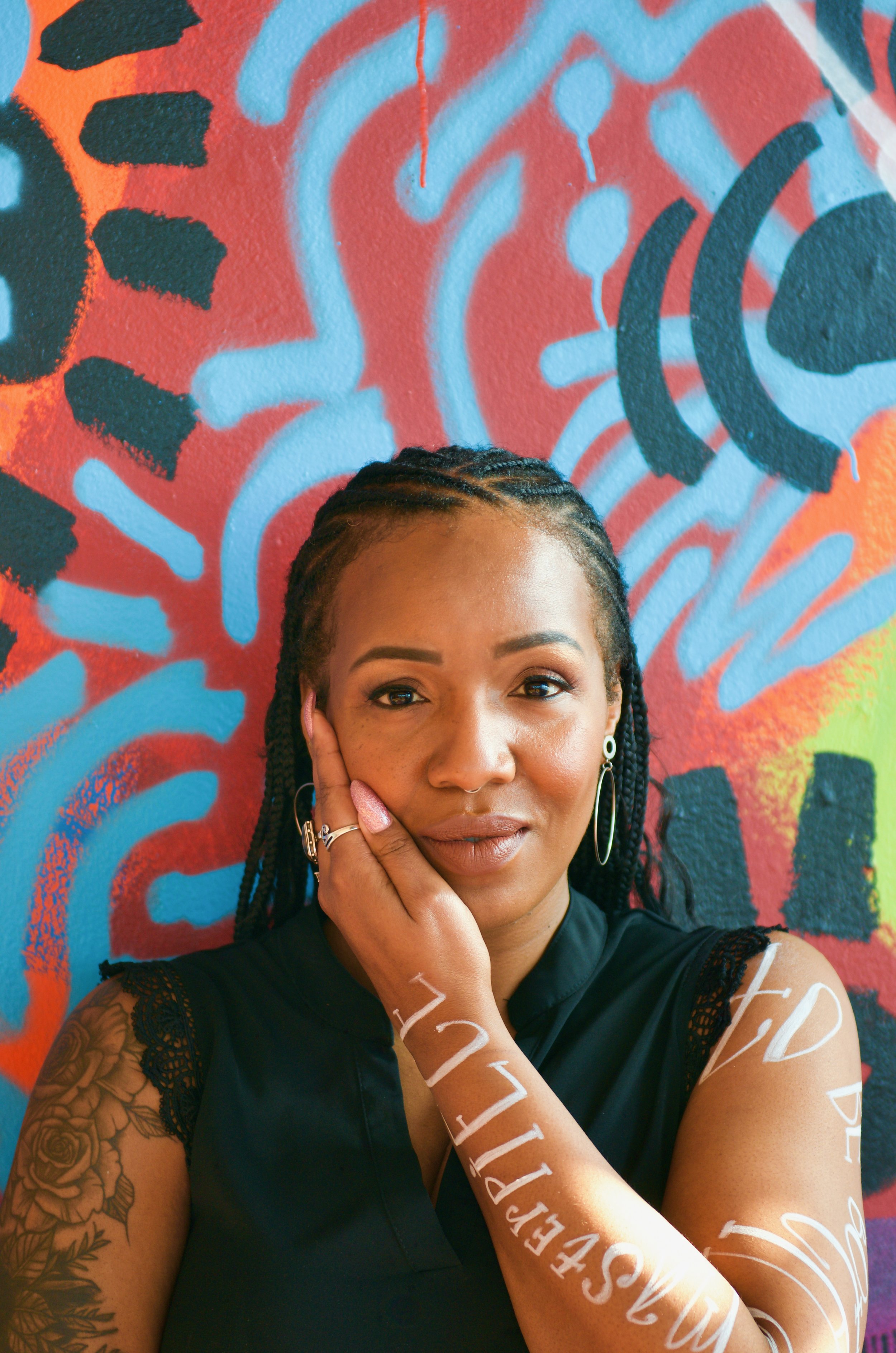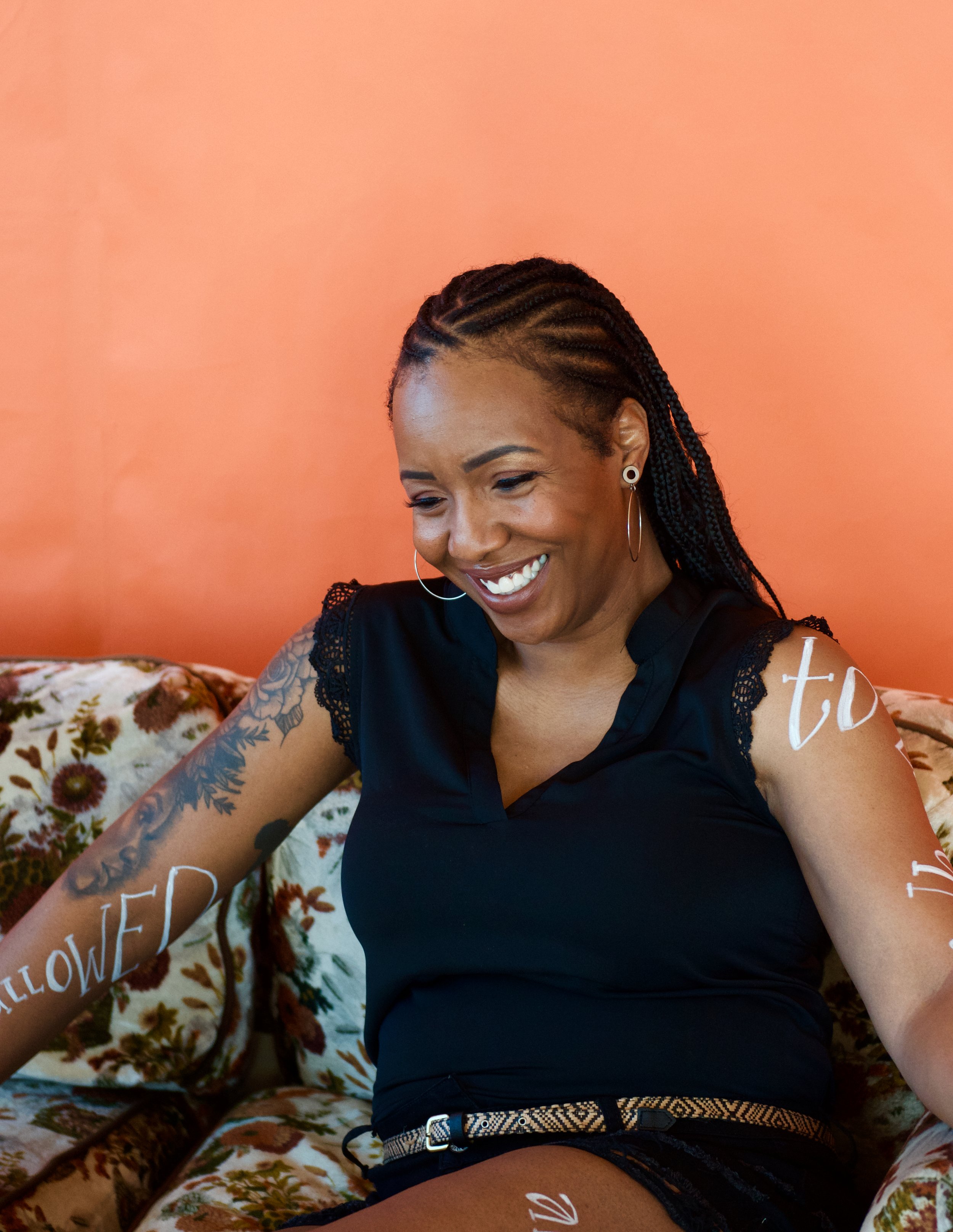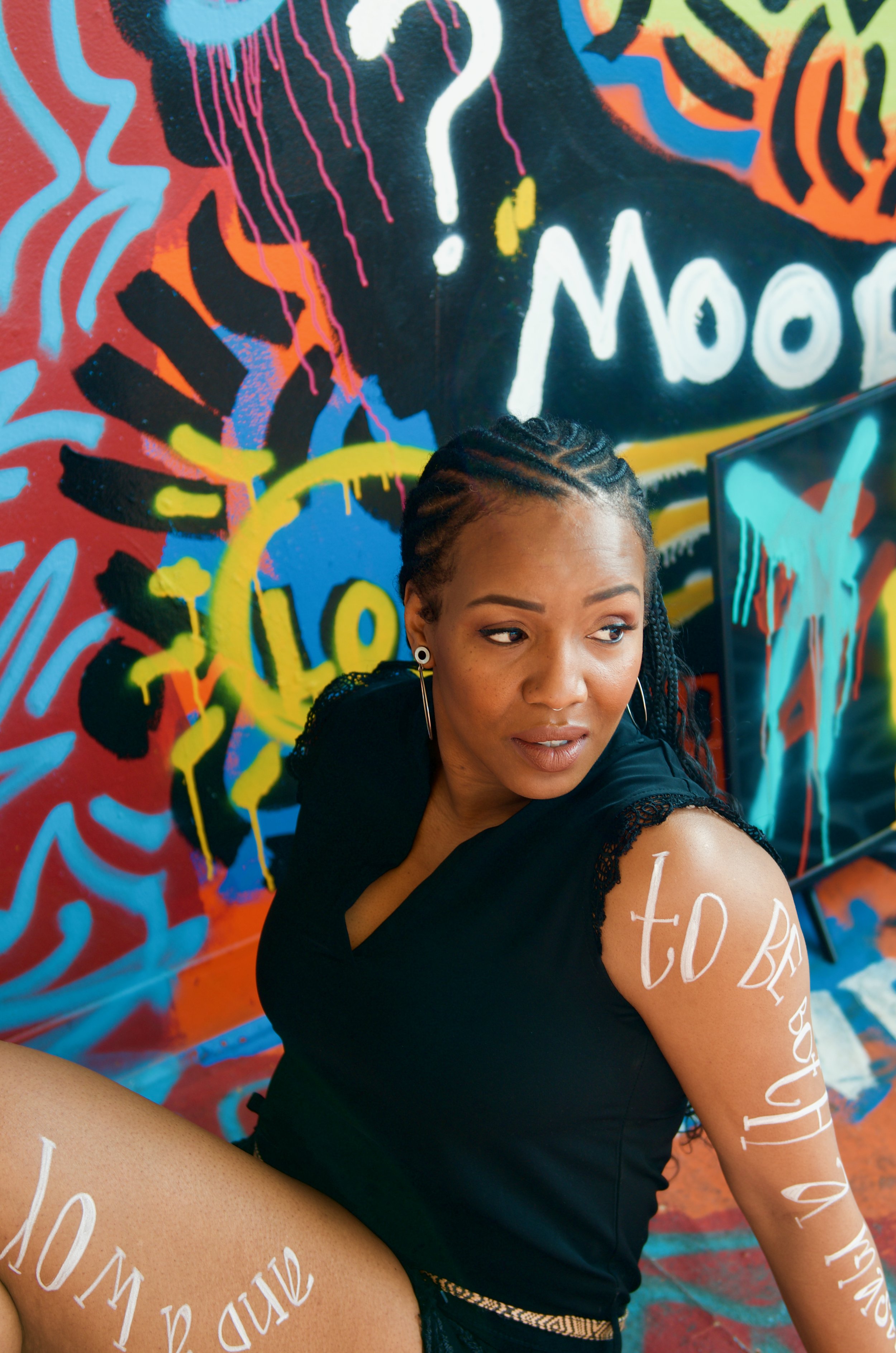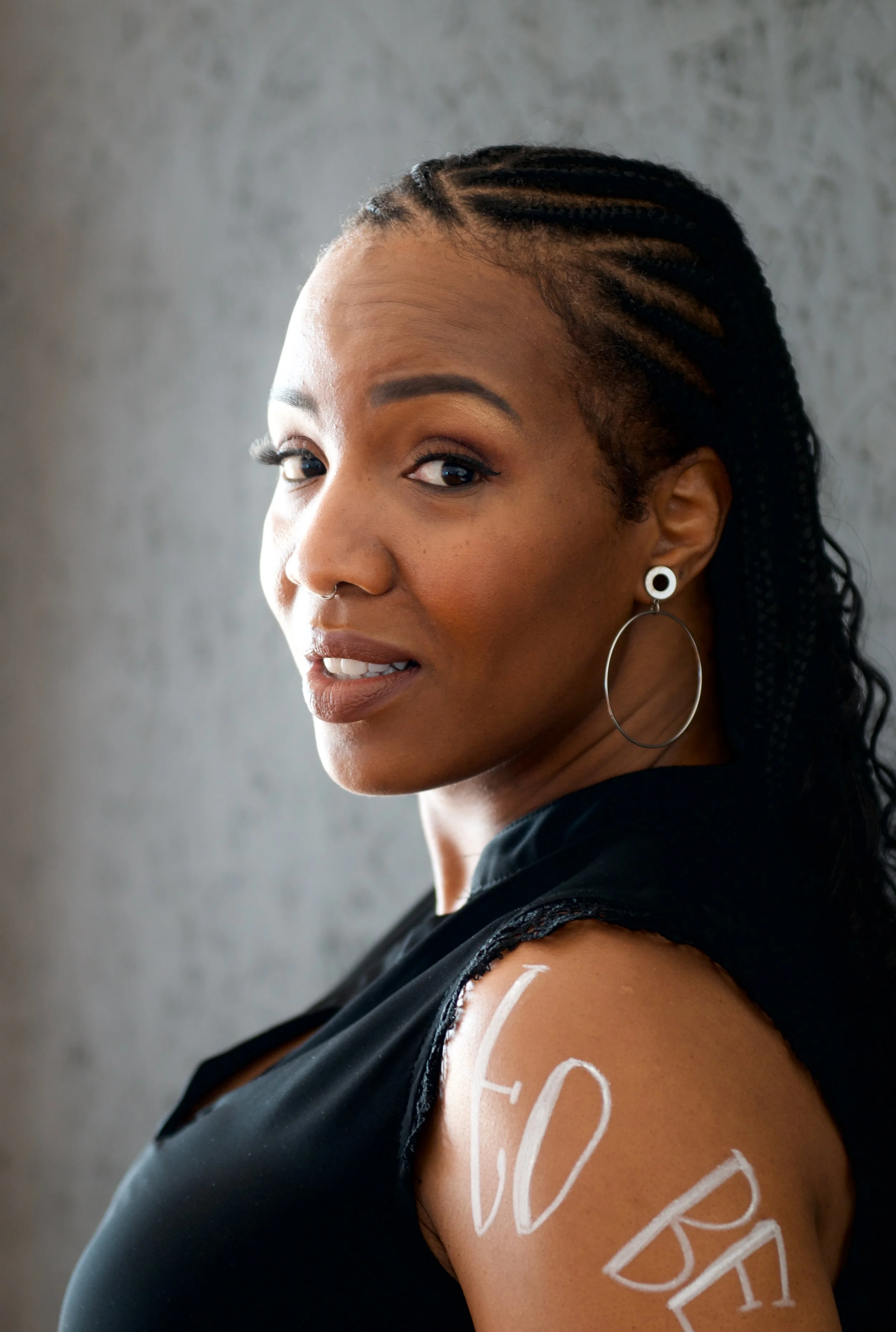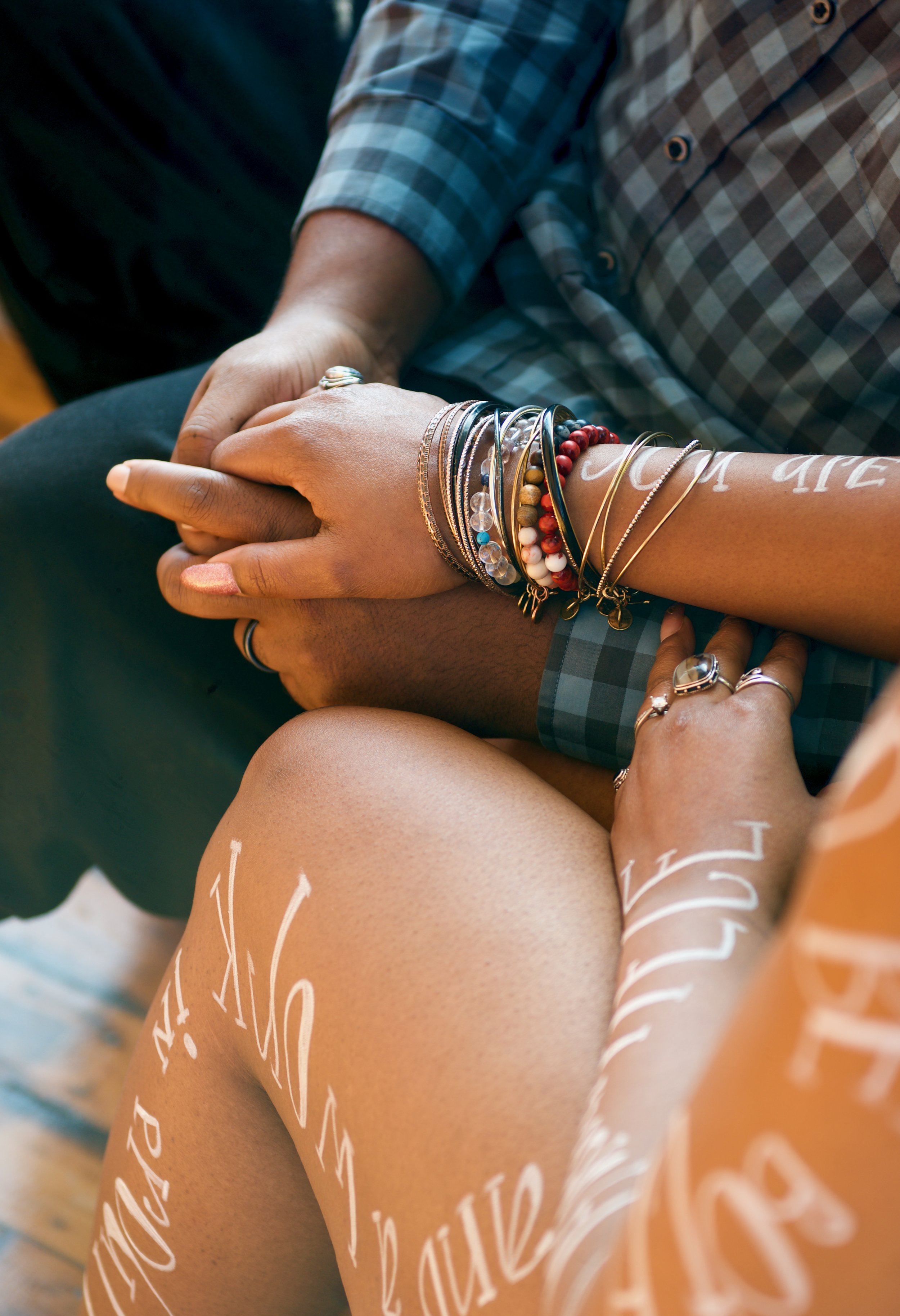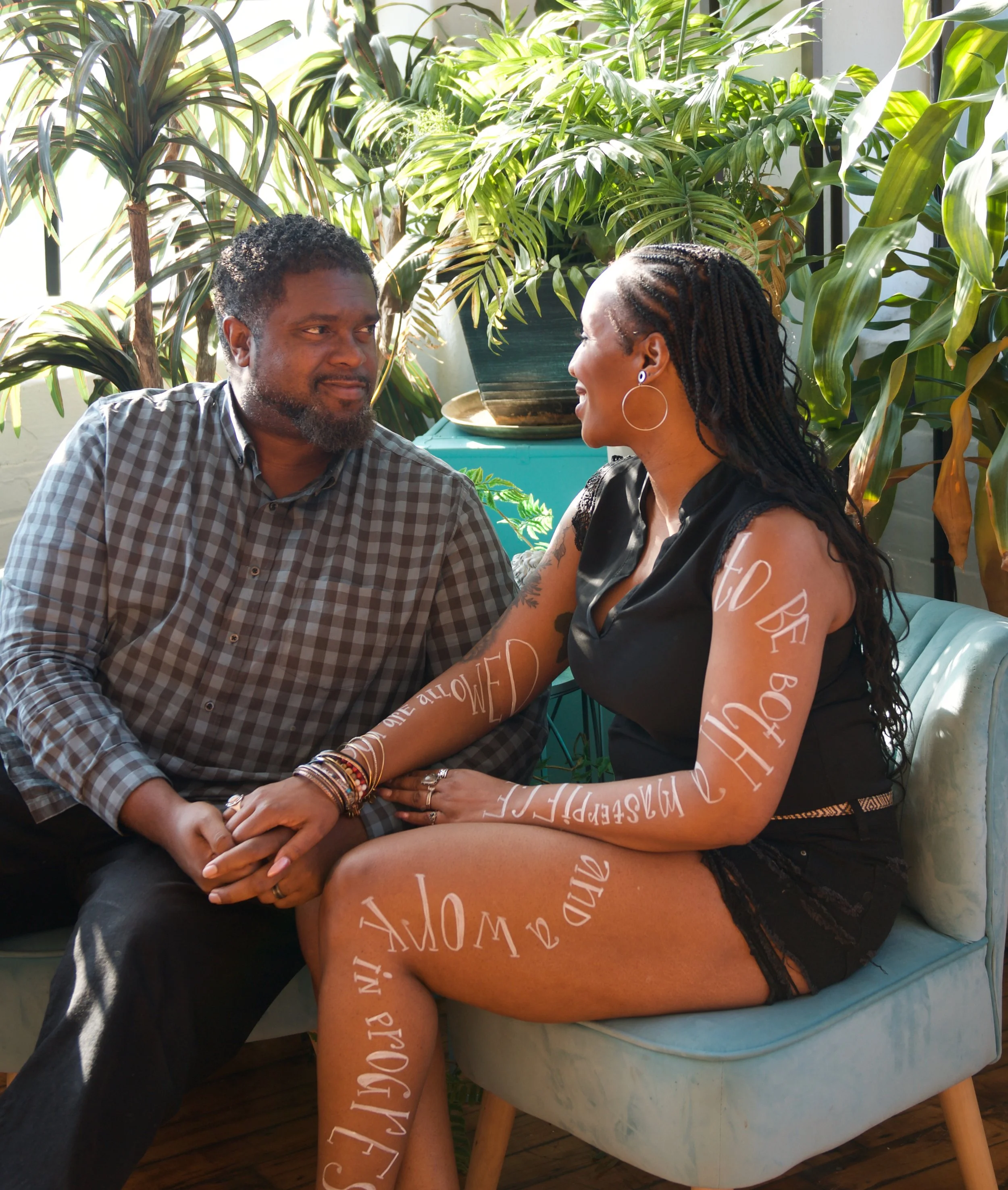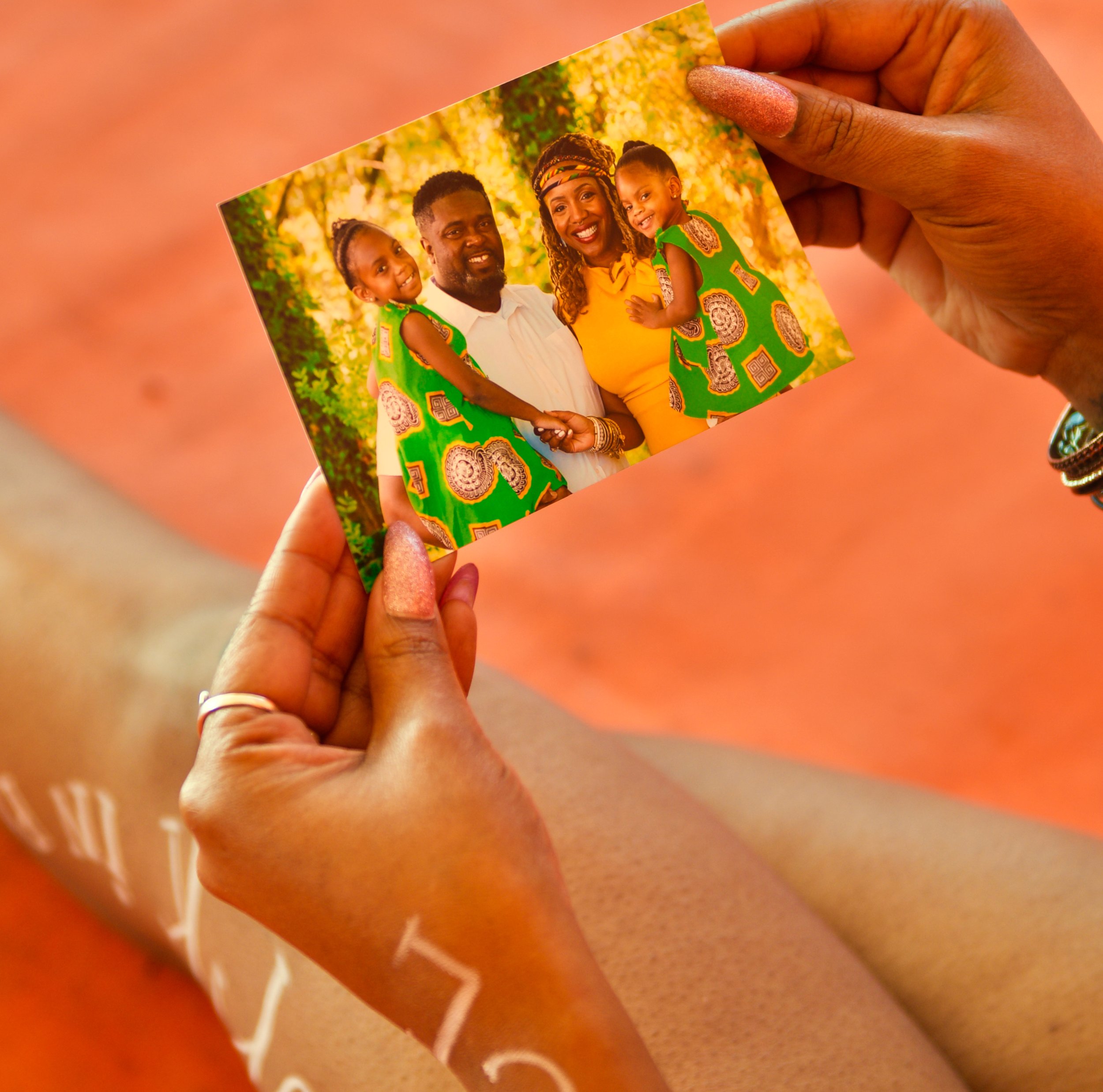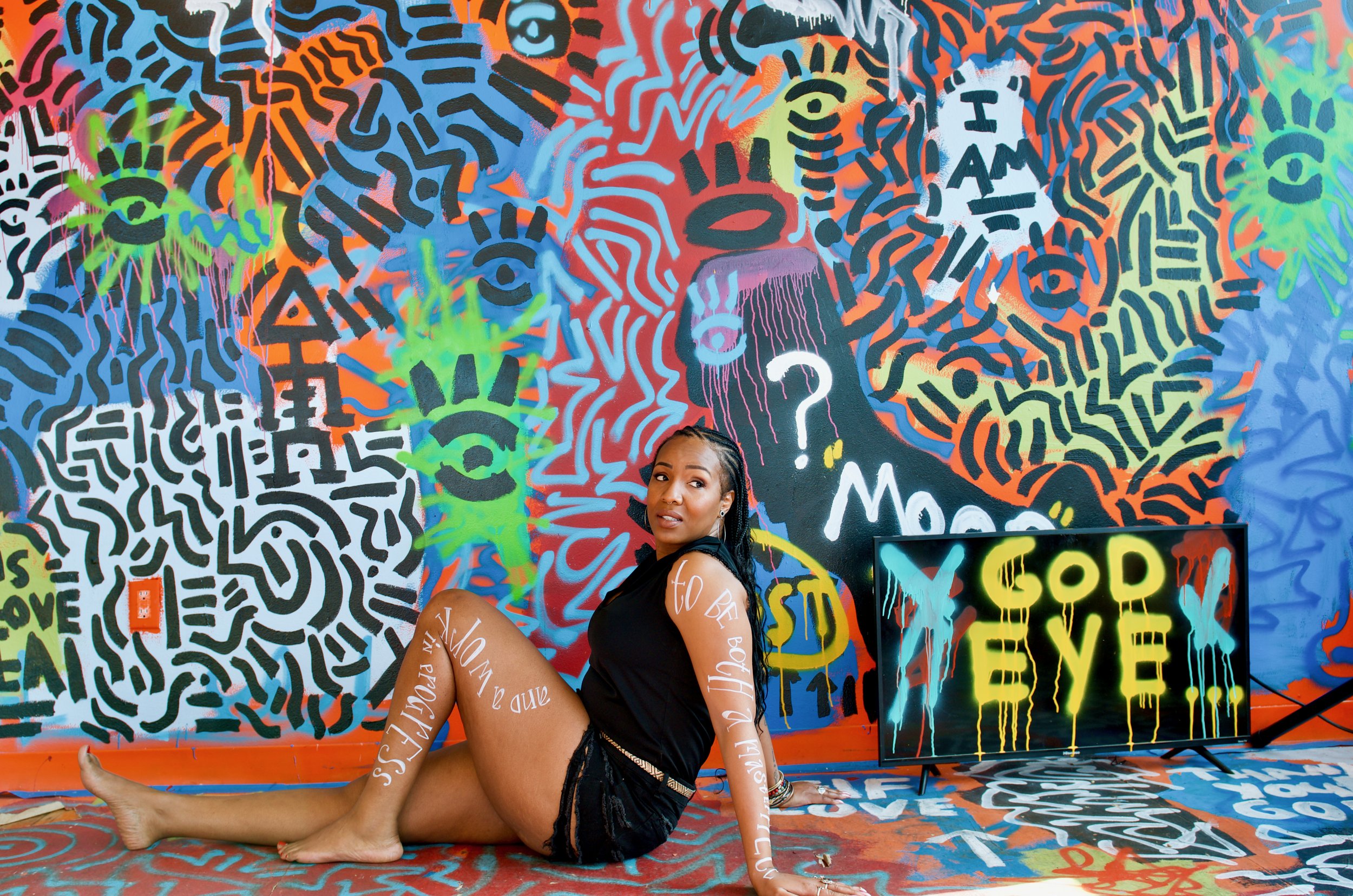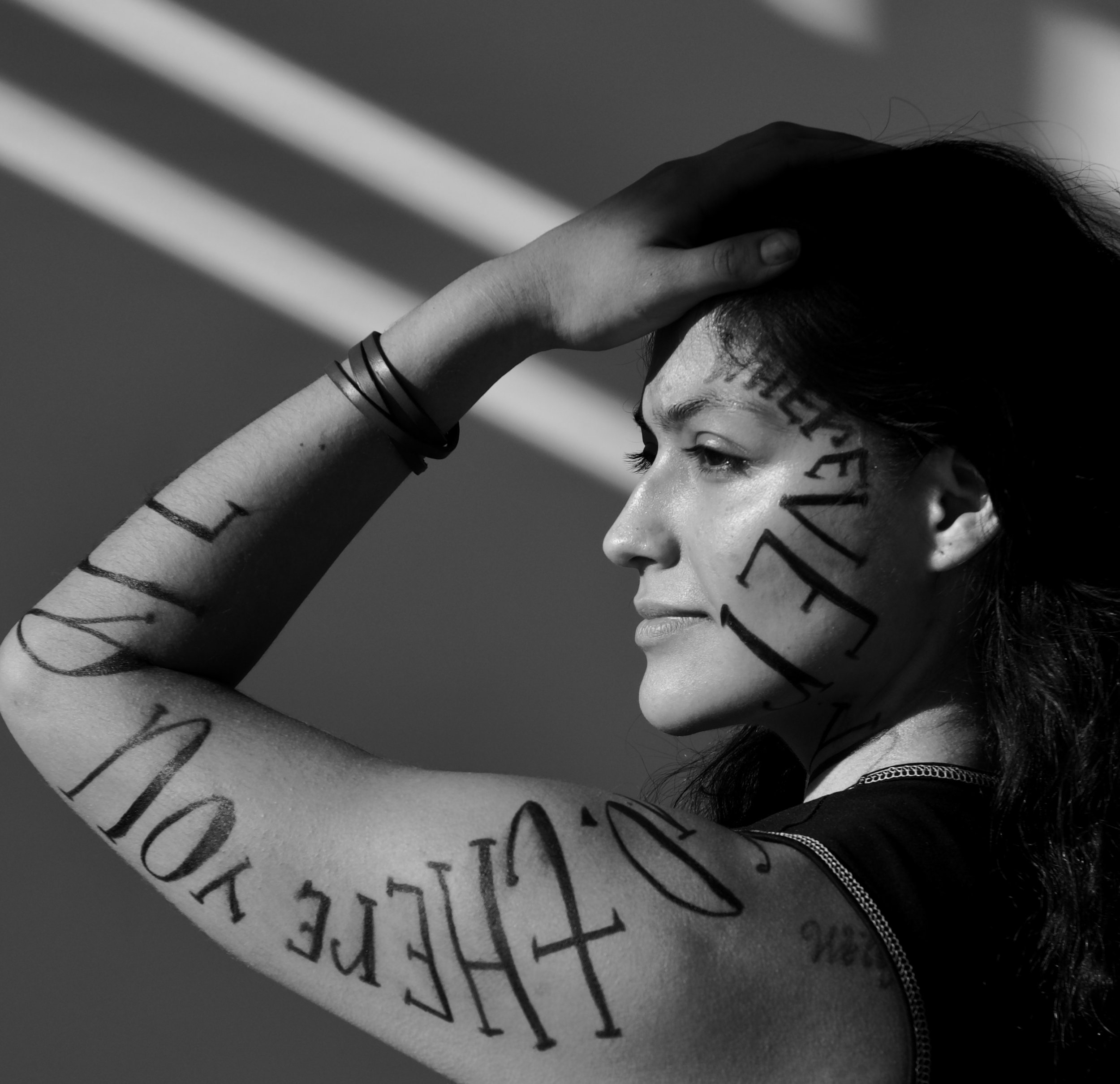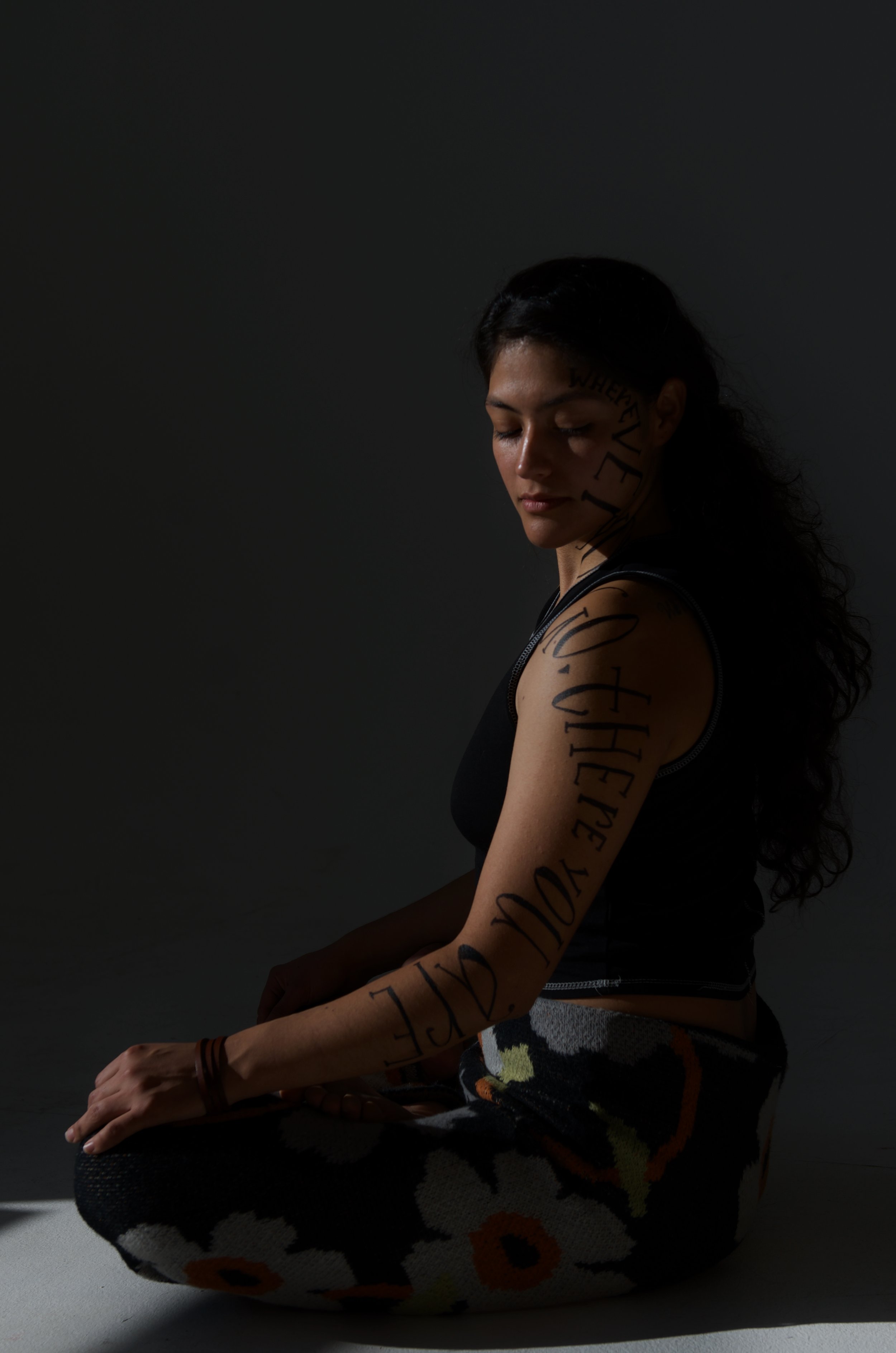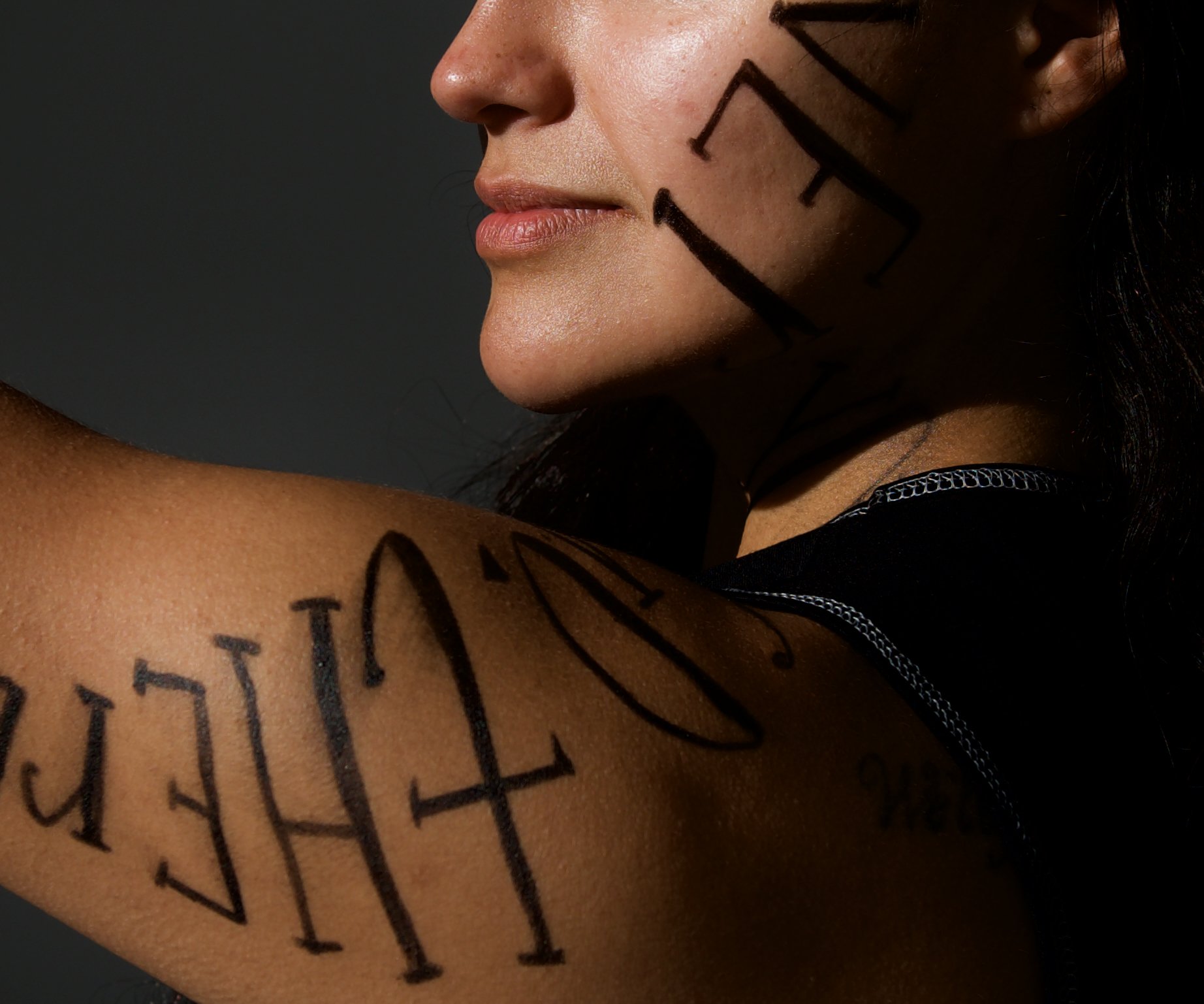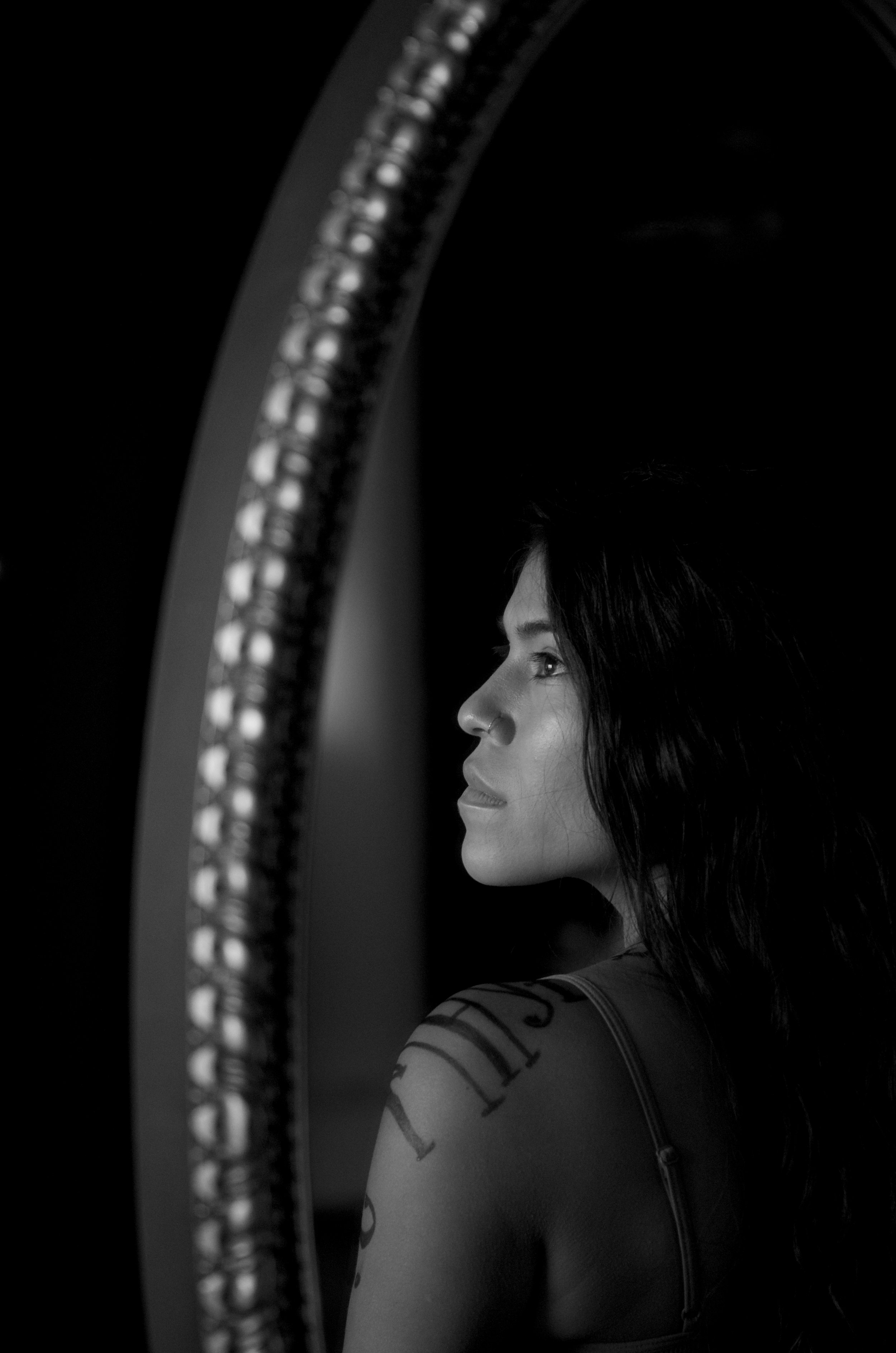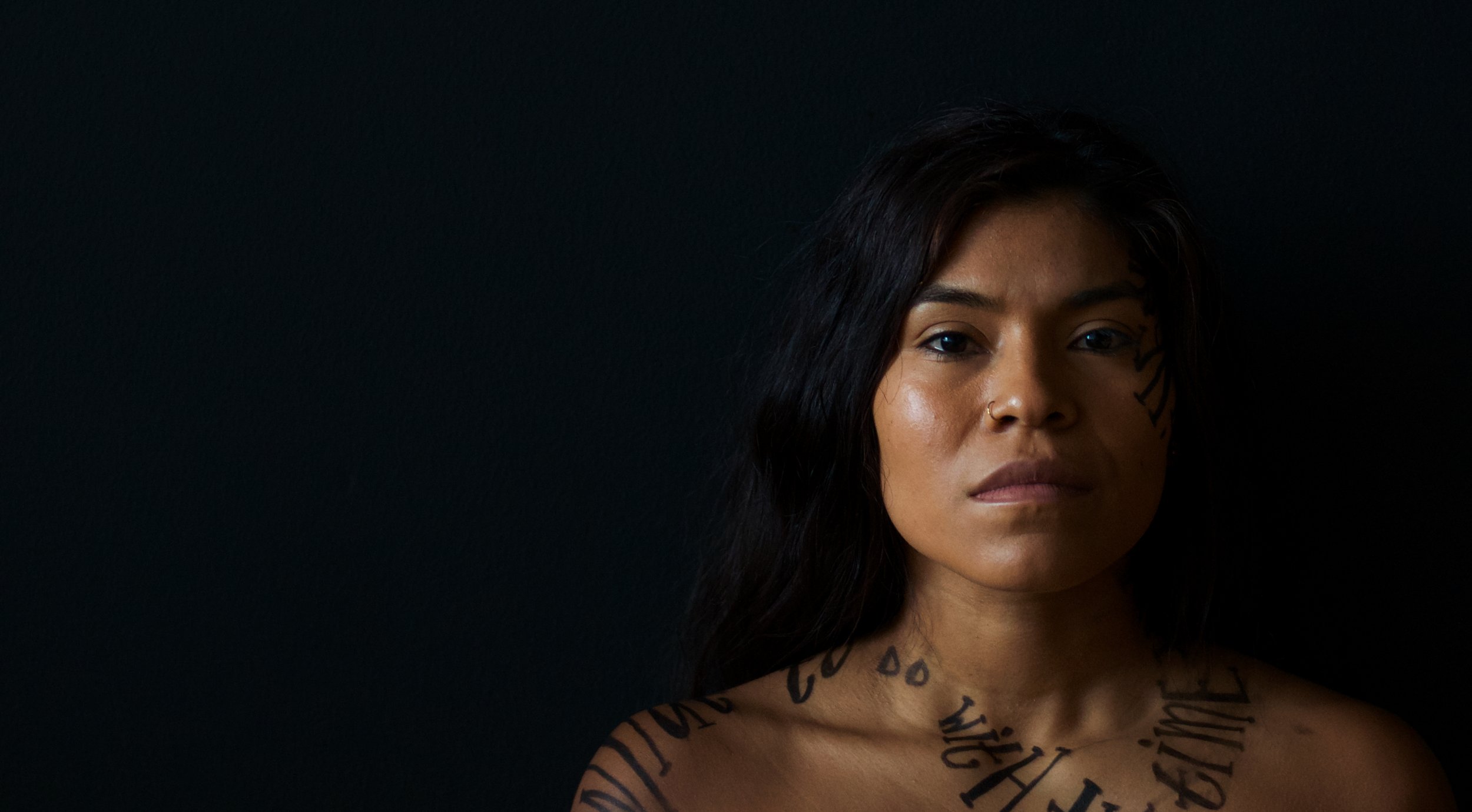
Welcome to The Quote Project
Jamie
"One day you will tell your story of how you overcame what you went through, and it will be someone else's survival guide.”
-Brené Brown
"One day you will tell your story of how you overcame what you went through, and it will be someone else's survival guide.”
-Brené BrownRobbie was my first baby. I had an easy pregnancy with him. I also had a really easy delivery; he came out really fast. But the issues started when they put him on my chest. You know how they say you’re supposed to have a euphoric moment? I was waiting for that. I thought, “Why am I not feeling this bonding or this connection?” I kept waiting to feel it, and I just wasn’t. I remember FaceTiming my best friend, and she said, “Don’t you feel that bond? Isn’t it a beautiful feeling?” And I told her, “Yeah! It’s unbelievable!” But really, I just didn’t feel anything.When I talked to my therapist about how guilty that makes me feel, she taught me that even though I didn’t feel that bond with Robbie at first, Robbie felt it. His needs were being met, and he felt bonded. I was still getting out of bed for him. I was still feeding him and changing him and doing all the things for him. Even though I didn’t feel bonded, he did. And then the first time he smiled, it was like, “Ok, now I’m getting something back. Now there’s a connection; now we’re bonding.”But I wasn’t myself.My parents kept saying “Oh, it’s baby blues, it’s normal, you’re supposed to feel this way.” So I just thought what I was experiencing was normal. I tried breastfeeding, and he wasn’t latching. Then I tried exclusively pumping, but I wasn’t producing enough. He was just constantly starving. I felt such anxiety when the sound of the alarm went off, knowing it was time to pump again. We had a night nurse helping us, and eventually she said, “You know, you don’t HAVE to do this…” And I was like, “I don’t?!” So we started supplementing with formula, and that helped.But then I started spiraling. Everything had to be put in its place. I developed significant postpartum OCD. A lot of it had to do with numbers. If he wasn’t drinking even amounts of formula or breastmilk, I would be very anxious. I would have to wait until certain times to start feeding him. He would be hysterical, but I couldn’t do it. I had OCD tendencies before, but they had never interfered with my life until this.I remember dreading night time. When the sun went down, it was just awful. He was born at the beginning of March, 2018, and it snowed every single day. I just felt trapped. It was this awful, isolated feeling. I remember people wanting to come over, and I didn’t want visitors. I didn’t feel good. It was really hard.I think once the intrusive thoughts started happening, I realized, “Something’s really not right.” I started having these really scary thoughts of wanting to hurt my child. For instance, if he would get really cranky or upset, I would have the intrusive thought of wanting to throw him against the wall. I knew that having these thoughts wasn’t good. Then there were really scary ones, where I would think, “If he got SIDS, I could just get back to my life.” I know that sounds horrible. Now it feels so hard to think back to this.My husband realized that there was something wrong. He called the pediatrician, and I got references for therapy. A lot of the places we called didn’t take insurance, or they weren’t taking new patients, or there was a waitlist. Finally, there was a place called “Mindful Souls” that had an opening, and I was able to get in. It was a relief. They told me, “You’re not alone.” I started seeing a doctor for medication. My therapist told me, “It’s good that you realize you shouldn’t be having these bad thoughts.” It was a good thing that I realized something was wrong with my thinking, otherwise it could have been psychosis. If I’m not ok, baby’s not ok. I went to a support group at Virtua after Robbie was born that was very helpful, and when he was about a year old, I found another support group. I just needed to know I wasn’t alone - that a lot of the women were having the same thoughts and feelings I was having. When you’re in it, it’s scary. It feels like you’re going through it alone. I am still friends with some of these women seven years later. We have been through every phase together - the baby phase, the toddler phase, elementary school, the decision to have a second child, and then the balance of it. We met when we were all in the thick of it, and we are still friends to this day.I started feeling better with medication and therapy. And then COVID brought Robbie and I really close together. He was two at the time. It was just us. My husband was upstairs working, and Robbie wasn’t going to preschool yet. We would just take walks together, and that bond between us grew and grew. I kind of miss that time, when it was just the two of us. It really helped our bond get stronger. We wanted to have a second child, and my therapist eventually told me, “Ok, I think you’re ready to start trying now. There’s always a chance that it could happen again, but you know the coping skills, and you’re going to stay on your medication.”I was really sick during my second pregnancy. We think I was originally supposed to be having twins, because I had two placentas. I had to go through extra testing and more appointments. And even the maternal-fetal medicine doctor told me, “Staying on the antidepressant is the best thing you can do for you and your baby.” I thought, “Oh my gosh, this doctor is telling me to do it? That makes me feel good.”I thought I was going to be having a girl, so there was a little gender disappointment when I found out the baby was a boy. But it was an easy delivery, and emotionally, it was the complete opposite of my first birth. They put him on my chest, and I felt that instant bond. I wrote this down after my second birth experience: “When Max was born, and they put him on my chest, I immediately burst into tears because I felt the most incredible feeling - the feeling that some moms feel the first time that they meet their child. That magical moment - and it felt amazing. I still feel guilty that I didn’t have that instant bond with Robbie but did with Max.”But when Max was four months old, depression hit again.I think my depression started getting horrible because Max wasn’t sleeping. People always told me, “Oh, if your first is a horrible sleeper, your second one will be so easy.” I had that in my head. So when Max also was not a great sleeper, I was like, “What is happening? What did I do to have two bad sleepers?” I just… I felt like I just couldn’t do anything right. I felt like I was neglecting Robbie, because all my time was on Max. I started feeling like everyone would be better off without me. It wasn't that I wanted to hurt myself, I just wanted to leave. I felt like if I just left, maybe they could have a mom or a wife who wouldn’t lose her patience so quickly, who would be able to make dinner, who would be more presentable looking, and who would just be able to fix things better.I wanted the time to go by faster, just so I could get through it all. I thought, “It will be easier when he can hold up his head. It will be easier once he’s crawling…” All of that. It was a very low point. This is what I wrote down in 2021: “Getting diagnosed with postpartum depression for a second time was very challenging. I felt like a huge failure. I felt that I had let down not only myself, but my husband and my children. I had worked so hard for three years to overcome the anxiety, OCD, and depression, and I was good. After the birth of my second, I felt good, really good. People kept telling me how confident I looked, and I did feel confident. So for it to come back four months later felt like a huge blow.”I started going to therapy more, we increased my medication, and eventually I only started experiencing symptoms right before my period. There is some hormonal tie. And when Max was about a year and a half old, it started to even out.My husband has been so amazing throughout the whole journey. It was me and him through it all. He noticed when things were wrong, and he would come to therapy with me as well. I was very open with him.He was so supportive, and I just felt so guilty. Again in 2021, I wrote: “I’m sorry for taking advantage of you, for picking fights. I’m sorry for nagging. I’m sorry that I keep failing you. I wish I was the wife and mother that you hoped I would be. You deserve better. You deserve patient, kind, independent, pretty, confident.” I never showed that message to him. I think he would feel sad knowing I had felt this way. I also feel sad for this person who wrote it. I wish she knew that things were going to get better and it was going to get easier. It’s sad to look at, to read it. Because you don’t… you can’t see the bigger picture when you’re in it. You feel like this moment is going to last forever and you’re never going to get through it. You feel like they’ll never sleep again. That the teething will never stop. That you won’t find the balance. But then, you do.I would have wanted a third. It’s hard. I see little babies, and I’m just like - oh. But it’s interesting, because once they start crying, it’s like I get PTSD. Do you know the Bob Marley song, “Don’t Worry, Be Happy?” We had set that as the sound of the alarm that would go off every time I needed to pump, and for a while I could not hear that song without having a panic attack. It would just trigger something. And still for some reason whenever I hear the infant cry, I just get really tense. It’s just something that I still can’t get over. Part of me thinks, “Oh, they’re so cute!” But that cry…You see baby bliss on social media, on Instagram accounts, and all these perfect pictures. I keep having to remind myself, “Maybe they cropped out the mounds of laundry in the background or the dirty dishes in the sink.” I tell myself that it’s probably not the whole picture. The perfect smiling of these kids. Maybe it was the fifth time they tried to take the picture, and before that they were hysterical and there were tantrums. I always have to try to remind myself that it’s not real. When you see these pictures on Instagram or Facebook, it can make you feel like, “What am I doing wrong?” So many moms make you think that it’s all supposed to be natural, that you’re just supposed to be able to do this. And the reality is, some women can’t.Now everything has pretty much leveled out for me. The latest thing is that my kids want a dog, and I’m like, “Things just got easier! Let’s not throw a dog into the mix.” I know I would be the one taking care of it. Maybe when they're a little bit older, we’ll get a dog.I still have my good days and bad days. I’m on my medication. I don’t work right now, because Max is still in preschool. He gets out at 1 pm. When Max is in kindergarten next year, I’m hoping to find something. I wouldn’t want something every day, just something part-time. I worked at the kids’ camp over the summer, because they both went, and it just felt so good. It felt good to talk to other adults and to not talk about kid stuff. It just felt really nice to work. I definitely miss it.I still feel a little different than I did before I had kids. This is going to sound shallow, and I apologize. But I judge myself very harshly about the way I look. When I see pictures of how I looked before I got pregnant and how I look now, I have to remember that I’m not in my 20s anymore. I’m 38, things change, your metabolism changes… I’ve been through a lot. I’m not going to be that size again that I once was. But then I think about my boys - they don’t care how I look. They just want someone to play with them, to love them, and to provide a good home for them. They don’t care what size I am. But it’s definitely hard. I am proud of myself for what I have overcome. I didn’t succumb to the depression. As my therapist told me, I had the courage to show up, even when I couldn’t control the outcome. I would do anything for my kids. I just wanted to be the best for them, and I wanted to be ok for them, so I did whatever I could to be ok for them. I went to therapy, I went on medication, I went to support groups, I just wanted to be ok. I just wanted to be a good mom. And sometimes I still have those moments, like if I lose my patience and I yell, that I’ll think, “Ugh, I can’t believe I did that.” There are days when I do beat myself up and feel guilty, and it’s hard not to. But I try to remind myself that we are human, and we are going to make mistakes.I wanted to share my story, and I hope that it can make someone else going through this feel less alone.Lizz
“A smooth sea never made a skilled sailor.”
-Franklin D. Roosevelt
“A smooth sea never made a skilled sailor.”
-Franklin D. Roosevelt“A smooth sea never made a skilled sailor.” When I first saw this quote, I made it the background of my phone. I was in my early 20s, and I was in a job with an abusive boss. I still have nightmares about her. She was frequently putting me in positions that I knew were wrong. She would want me to lie to people over the phone, for instance. And I was young; she was much older. I didn’t know enough to say, “I’m not doing this.” I would have such internal turmoil about these things. To get up and keep going to work, I needed some motivation. And that’s when I found this quote. I don’t think I internalized this at the time, but looking back, it was like, “You’re going to learn something at the end of this.” And I did. I feel like this quote relates to every single part of my life. Retroactively and now.I had a great childhood. I have three younger brothers; I’m the oldest. But also, growing up, I felt like I never fit into the box that everyone else fit into. For one thing, I have literally always been overweight, from childhood to adulthood. I also think I must have gone through precocious puberty before that was talked about as a thing. I’ve had boobs for as long as I can remember. While all the girls around me were wearing things like Limited Too, I basically aged out of Limited Too in fourth grade. I grew up in Cherry Hill, NJ, which is pretty mixed economically, but we were on the… we didn’t have a shore house, you know? Even that little distinction was enough to be like, “Well, I’m on this side of the group, and everyone else is over there.” So it was like, “I can barely fit in the juniors section, and you’re all a size zero. You can all shop at Abercrombie, and I can’t, because we can’t afford it, and because I can’t fit in it.” I had to find other ways to fit in, and I think that’s why I developed a good sense of humor. I may not have those other things you have, but it’s ok, because I’m making you laugh.Humor is used a lot in my family. I think sometimes when life is sad or gross or horrible or hard, finding some humor can make it a little less hard. I remember when my grammy was dying, we were all standing around her. I guess they had taken her dentures out. And my younger brother has always been into reptiles, so my dad goes, “Look! She looks like a snapping turtle.” In that moment, we all needed him to do that. Because it sucked, and it was sad, but we were also able to laugh, and it reminded us that we’re still going to be happy. She would have laughed at that. And that’s life. You can laugh about it, and you can be sad about it; it doesn’t just have to be one or the other. I think my dad knowing that everyone would be ok with a joke like that in that moment - that’s love to me. He knew what we needed. And I feel like it highlights that nothing is black and white. That’s something I keep circling back to, especially in the last couple of years. I talk about it a lot with my therapist. Literally everything is nuanced, and that’s ok. That said, if there’s one thing that I would like to do differently than my parents, it’s access vulnerability a little more easily. For us growing up, everything was behind five layers of irony, and I’d like to change that for my girls.I went to therapy for the first time after my oldest daughter was born, but I had been struggling with anxiety for a long time before that. My anxiety has felt different at different stages in my life, but I think it started right after I left college. I had gone to Temple for a year, thinking I was going to go into their nursing program. But I was so depressed. I was so not ready to go away. I still don’t know exactly what happened. There was a lot of interpersonal stress. By the second semester, I felt like I had messed everything up. I thought, “This is it for sure, this is going to be the rest of my college experience. I can’t do this anymore.” I was so depressed. Now, looking back as an adult, I think, “You probably could have figured it out.” But I mean, you don’t know what you don’t know.So, I came home. And I remember I had my first panic attack right at home in my parents’ house. I suddenly felt like, "I can't breathe!” It was a really stressful and difficult time. Part of it was probably that I had just come off of 12 years of a very predictable routine. I don’t think I had any coping skills, so of course it was going to go badly. I also really feel like I was probably depressed for a lot of my childhood and didn’t know it or have a word for it. I remember always feeling… the word we used was “moody,” but looking back I think, “You were kind of depressed.” Not for any particular reason, I think it was just my brain chemistry.The first time I went to therapy, it was ok. But I found myself saying what I thought the therapist wanted to hear. I wanted to be the star therapy student. But of course that’s just fake, you know? And then once my second daughter was born, I was like, “I need to go back to therapy and be 100% honest.” And my most recent therapist is amazing - she’s 26. I call her my 26-year-old emotional support person. She’s really good; I really like her. One of our refrains is, “More than one thing can be true.” When I had Bea, my oldest daughter, in the grand scheme of births, it wasn’t the hardest birth ever. But it was my first time giving birth, and I had a third degree tear, which was horrific. I was in so much pain. But despite the pain, I also remember thinking, “I feel like I can do anything.” I can still remember that feeling exactly. I was in the hospital room, I was in so much pain, Bea was crying, I was rocking her, my husband Colin was asleep, and I thought, “I can do anything.” Sometimes I still go back to that little seed of a moment and think, “You can do anything,” and it’s true. I also would do anything for both of my kids. But my experience with my second pregnancy and everything that came after was a lot more challenging.I started taking Lexapro when I was 21. I remember I started it after a trip to Israel. I was struggling with my panic attacks, and I remember on the paper I put into the Western Wall, I wrote, “Please, let me find peace.” I was so desperate. I had a huge panic attack in Israel. I had to call my mom in the middle of the night saying, “I’m going to die here.” And she was like, “No you’re not, just breathe.” I didn’t have any tools to get through it. But that’s what led me to feel like, “I think I need an SSRI. I need more help than I’m getting right now.” And Lexapro was great. It got me through that terrible time to a better place. That period lasted for a while. I got married, I had Bea… there was a calm placidness. But then, in my pregnancy with Ivy, Lexapro stopped working. I once again started having the most intense panic attacks and anxiety. It was horrible. It feels like you’re dying. At one point, we had to call an ambulance at work because I really did think I was dying. I was having them nightly. I would be up in our apartment, pacing back and forth, again calling my mom in the middle of the night. She’s still really good at calming me down, and Colin’s very good about it as well. But it was horrible. Ivy’s birth was actually a great birth; it kind of made up for Bea’s birth a little bit. It was fun, and it was joyous. But Ivy had reflux, and she would not eat. She would just scream this scream cry. Colin eventually went back to work, and Bea went back to school, and it was just me and Ivy all day, with her screaming the whole time. If Colin was gone for 8 hours, she would scream for 8 hours. It was horrible. And on top of that, I was still having panic attacks, and I started developing intense and scary intrusive thoughts, so we started changing my medication. I had never had brain zaps before then, but they started as I was coming off Lexapro. So I was postpartum with this screaming, crying baby, I still had Bea in different activities because I wanted her to be a well-rounded child, so I would be driving her around crying because I would get these intrusive thoughts like, “What if I die, and I leave these girls?” and then I would have these brain zaps, and it was like I was a zombie. I felt like I was being carried through the world just with my muscles and no brain attached.On top of that, I developed acid reflux, which I had never had before. I started feeling things around my heart, which was often the trigger of my panic attacks. So now I have this thing where I constantly have a sensation here… not really a pain, just a feeling. And I thought, there are not enough drugs in the world to help me right now. I have to go to therapy to find the tools to get through this.It was also a time when Colin and I were at our worst. Life was really hard. I felt like I was failing both of my kids, because neither one was getting the best version of me. It was the hardest time of my life, for real: from pregnancy with Ivy until she was about 6 months old. Then I finally felt myself starting to come out of it.Work was my happy place. Talk about a community. It was a community of women, including the parents coming in, not just the teachers, who all understood exactly what I was going through. Everyone had a story about a difficult baby. Everyone had a story about an anxiety attack. Every single person at that school, no matter if they were older than me or younger than me, understood me, heard me, didn’t think it was silly, had empathy for me, shared their own story. It was the happiest place I could be. Even some of the security guards were so supportive and helpful. One of them has five daughters. And he would be like, “You’re a badass.” And I would be like, “Thank you.” It is just the most supportive community. You know how people say they have Sunday scaries? Like the feeling of dreading going back to work? I had Friday scaries. The weekend was the worst time for me, because it meant 48 hours of this screaming baby, Bea needing my attention, and Colin and I not aligning. Monday it would be like, “Ah. I’m back with these women who get it and hear me and know.” Some people’s reaction was to offer solutions, and I loved that. Some people would just listen, and I loved that. Some people shared their own stories, and I loved that. It was such a safe space. Literally if it wasn’t for work and my therapist… I don’t know if I could have gotten out of it as quickly as I did. When your baby cries all day, you’re always in fight-or-flight mode. You can’t get a break. It was a perfect storm. It was insane. With Bea, I dreaded going back to work. But with Ivy, I just couldn’t do it alone at home anymore. I went back to work early from maternity leave. And I’m telling you, the only thing that got me through it was working in a building full of women. The value of being seen is immeasurable.I also took a break from social media. There's no nuance anywhere on there. I honestly think the algorithmic timeline is why the country is the way it is right now. You know when Instagram first came out, and you would just see your friends? At the end it would say, “There’s nothing else to see here.” Well, now you can scroll endlessly, and it will show you things it thinks you want to see, so you never see any other perspective. That’s not good for anyone’s psyche.Online, it’s easy to think that everyone has a perfect experience in motherhood. So when it’s not like that for you, it can be so isolating. I’m not barefoot in a white linen dress picking apples with my baby. But we’re seeing that on a screen and thinking that this is what motherhood should look like. We think it must be 100% true because we’re seeing it.I also started seeing the toxicity with parenting advice. Eventually I was like, “This is not working for me.” I saw myself failing if I wasn’t perfectly executing gentle parenting techniques. At one point, I thought, “I need to redo everything my parents did and do it better.” I got very sucked into “social media parenting.” But then I realized, “Well, what actually was the problem with the way my parents raised us? I actually think they did such a good job.” I look back at my childhood and feel like it was fun. We’re not traumatized. We’re all still so close. We’re going on a family vacation next week - all of us - and we still do that every year, even with kids, even with spouses. So I think, “They must have done something right, you know?”I am also very into feminist theory, and what I’ve noticed is that when you engage with that on social media, it kind of turns into, “This is why you need to hate your husband.” The more you engage with posts like, “This is why the patriarchy is bad for everybody,” the more it turns into “weaponized incompetence is so insidious” and blah blah blah. In therapy and in marriage counseling, I started realizing, “Oh wait, I think I’m assigning things to Colin that have been shown to me online but that aren’t actually my reality.” And it feels that way with parenting too. But there’s a whole side of TikTok like, “You should hate your husband because he’s a man and his life has been easier.” What?! Maybe in a vacuum that’s true, but this is a person I know and love, and I want to make it work with him, so why… It just seems so black and white, social media. It’s the same with breastfeeding. Online, they make you feel like if you say, “I formula feed,” in person to someone, they will say, “You evil woman… What are you doing?” But every single woman I talk to about my breastfeeding journey, they all get it. Everyone gets it. Whether it works well for them and they’re a milk machine, or if they hate it, or anything in between, everyone gets it. Everyone’s like, “Yup, that works for you, this works for me, we love our babies, and they’re fed.” I’ve found that people who criticize in real life are very few and far between.Everyone says everything with such confidence on social media, so it’s easy to think, “This must be right.” But they’re just a random person making a video. The reality is, they’re not an expert. And even when they are an expert… take Dr. Becky. She has good ideas. But she’s one person. There can always be another psychologist with a different take.Obviously, I bring this all to my emotional support 26-year-old, and we talk about it. She gives me CBT skills. I’m a very visual learner, I think. Now when I get anxious about something, I’ll list the facts. Like, if I make a mistake at work, I’ll think, “I FEEL like they’re saying, ‘You suck and you’re going to get fired; you’re a failure.’ But that’s not a fact. What’s the reality? The reality is, you say, “Ok, got it.” And you learn, and you don’t make that mistake again. Or maybe you do make that mistake again, but it’s ok.” My brain always jumps from, “This happened,” to “What’s the worse case scenario?” I have to slow myself down - nothing is that black and white, it’s all nuanced.I always say I talk myself off the ledge. I say that all the time. But I started going down to biweekly therapy instead of weekly, because I’m getting better at applying these skills on my own. I’m doing the work. For instance, I recently went out to visit my brother and sister-in-law in Arizona. And I don’t love flying. But I was able to keep challenging my thoughts on the flight. And I was like, “Girl! You really learned something in therapy,” you know? I just kept telling myself, “No. Everything’s alright. You’re ok.” Seeing it in action, is… I love it. I love therapy.I can also see it having an effect in real time in my marriage. Now I can feel myself go, “Pause, why am I thinking this?” It’s helped a lot. If I’m mad at Colin as a knee-jerk reaction, I can tell myself, “Let’s think about this before you say anything.” And by the time I’ve thought it out, I usually get to, “It’s ok, you’re good.” Or if not, then I have a more exact thing that I can bring up, it’s not just my knee-jerk, “Why are you doing this?” reaction. I can feel my brain doing the thing that I never would have done before. It’s awesome.Often in the moment, my fears feel huge. But now in my mind, I will always try to think about what they will be like in two weeks. In two weeks, this will be nothing. So small. And also in those two weeks, I’ve learned something from this. Whatever it was. Whether it’s an interaction with someone, whether it’s in my marriage, whether it’s Ivy, whether it’s with my family… In the moment, it’s so big and heavy, but then after that, you have learned something new that’s now a part of you. And the bad feelings you had at first you can’t even access anymore. But you can always access the lesson you learned. And that’s why my quote resonates with me. “A smooth sea never made a skilled sailor.” There are moments where life is going to be hard, but I think we can gain something from every hard time. I think getting to that understanding is the key to growth as a person.Annie
“People will forget what you said. People will forget what you did. But people will never forget how you made them feel.”
-Maya Angelou
“People will forget what you said. People will forget what you did. But people will never forget how you made them feel.”
-Maya AngelouMy birthday falls on June 26th, so June is usually a deeply reflective month for me. It’s a time when I naturally turn inward, thinking about everything I’ve learned over the past year and how I want to carry those lessons forward. I often experience seasons where I feel the need to retreat into myself, and when that feeling arises, I become very intentional about honoring it. I call it my “turtle time.” It’s when I sit quietly with whatever thoughts, feelings, or ideas need to surface. I’m a Cancer, and like many Cancerians, I’m emotional, a deep thinker, and sensitive to the phases of the moon. Ruminating can be one of our flaws, but I’ve learned to lean inward and simply embrace the process.I grew up on the island of Guam, which exposed me to a lifestyle that was so simple and chill. Tourism kept the island rich in the hospitality culture. My first real job was as a flight attendant, but the path there was anything but direct. Growing up, I was at the top of my class for years, even gunning for valedictorian… until I hit typing class. Typing class meant timed tests and rigid rules, and I don’t do well when restricted by time or rules. I skipped so much of that class that I flunked, which tanked my GPA and cost me my merit scholarship. All because of typing! But this concept still holds true for me - I find I thrive most in situations where I have space to be a free thinker.Still, I got into medical school at the University of the Philippines to become a pediatrician. But by my second year, I knew this path wasn't for me. So I went back home to Guam.One day, while lying on the beach, I saw a plane fly overhead, and I thought, “I want to fly.” I didn’t have 20/20 vision, so pilot school was out. A friend said, “Why not be a flight attendant?” And that’s how my hospitality career took off - quite literally!Before becoming a flight attendant, I earned a degree in hospitality - an industry that has always resonated with me, because it's rooted in human connection. It's not about spreadsheets or data; it's about people. Being a flight attendant felt like hospitality in its most intense form; you’re confined to a pressurized cabin, and yet it’s entirely liberating. You’re on your own, responsible for others’ safety and comfort, with no manager onboard and the pilots focused on flying.On one flight, I helped deliver a baby girl we named Sydney, as we were landing in Sydney, Australia. On another, I was the lead during an emergency crash landing on an island. Thankfully, everyone survived, though there were injuries. One of the passengers, the founder of a worldwide shipping company, wrote a letter to our CEO afterward, describing me as “the epitome of grace under pressure.”His words have always stuck with me, because I think he really described my essence during that emergency. I felt seen. It felt like such strong validation of who I was, in the middle of humanity.Throughout my life, I’ve explored many belief systems. As different cultures and traditions have flowed into my life, I’ve remained open to them. This past March, I fasted for the entire month in celebration of Ramadan, fully immersing myself in the Muslim community of Princeton and attending iftars at Princeton University. I’ve also gone on Vipassana silent retreats, explored Taoism, and was born and raised Christian Catholic. Through these immersive experiences, I’ve come to see that, at our core, we’re all seeking the same thing: a belief system that helps us make sense of life and guides us in how we show up in the world.Ultimately, I feel most aligned with Buddhism. The teachings of Buddha center on finding inner peace, discovering your higher self, and understanding what freedom means for you. Freedom is personal, shaped by who you are and how you were raised. For me, freedom is the ability to flow through life with grace, even when under pressured circumstances.
We all have our own versions of how grace plays a role in our lives. I do think it leads us toward the same direction - a steadiness in chaos, a soft strength when things get hard, and a quiet reminder of who we are when everything else is loud. Knowing who we are is our anchor. As we learn to show up for ourselves, we learn to show up for others…with presence, with empathy, and with grace.I’ve come to believe that being part of a community is essential to our well-being. It’s in connection with others that we find perspective, grounding, and even healing. I’ve been fortunate to be surrounded by people who are not just well-rounded, but deeply rooted. People who, like me, carry their own struggles but still choose to show up fully for others. That kind of presence is powerful. It creates a ripple effect. When you’re surrounded by a community that leads with presence, grace, and authenticity, it inspires you to do the same. It reminds me of the kind of energy I want to bring into every space I’m in: connected, open, and alive.The quote I chose for this project resonates with this feeling. It’s by Maya Angelou: “People will forget what you said. People will forget what you did. But people will never forget how you made them feel.”Deborah
“Hope is the thing with feathers
That perches in the soul,
And sings the tune without the words
And never stops at all.”
-Emily Dickinson
“Hope is the thing with feathers
That perches in the soul,
And sings the tune without the words
And never stops at all.”
-Emily DickinsonI am 55 years old, born in 1969, and while my mom was pregnant with me, it was the exciting time of Woodstock and a man walking on the moon. My parents were young when they got married and started having children; they had 5 of us, rapid-fire, before my mom was 28. My father was from generations of farmers, and on dairy farms, you have to milk cows twice a day, 7 days a week. Like many kids in our area, my sisters and brothers and I became the labor force that operated our farms. Picture a young child getting up every day before 5 am, milking dozens of cows, running home to share a bathtub with 5 kids, getting on the school bus, then coming home and milking cows again, in the cold, the heat, the rain, even when you are sick, and on birthdays and holidays.I learned quickly that I was only as valuable as what I could produce, and hard work was a normal part of every day. There was time for school, but there was no time for after-school activities or vacations or much time spent with friends. We didn’t have a lot of money, but our basic needs were met: Mom made some of my clothes, which she supplemented with hand-me-downs, and she provided the haircuts. I went to school feeling like the poor, awkward kid with the crappy clothes and the bad haircut. I always felt different and “less than” the other kids around me. I loved school anyway.A good thing I remember about growing up was that my parents provided access to books and music. I loved the little town library, and I always struggled to choose only 6 books (the limit). I would read them all within a few days. My kindergarten teacher thought my ability to read at age 4 was quite novel, and she would put me in front of the class to read books. This was the first moment I remember feeling “special,” and I loved that. Throughout school, teachers recognized my curiosity and eagerness to learn, and they encouraged me. This was such a different world from home, where I felt unseen and was told, “You talk too much.” School gave me hope that there was something else for me beyond where I was.As a child, I do not remember feeling loved. Dad was from an old farming culture, outdated but persistent in our community. Mom wasn’t coping well with a husband who worked so much and her 5 children. She loved having babies, but as we got older, I don’t think she enjoyed having us. I was a bouncy, curious kid who liked to talk to people. It’s so strange to think that your parents don’t like you, but that was my experience. No one said, “I love you,” and worse, they were quick to hit me, to tell me to be quiet, and to wash my mouth out with soap. I still detest the smell of Ivory soap.My mother was proud to say she “weighed 102 lbs” when she got married, and she was always watching her weight. She had negative eating behaviors and ideas around food, and her weight went up and down, along with my father’s view of her. Being overweight in our home was cause for scorn and shame. My mom reminded me that “if you don’t lose weight, no boy will ever like you, and you can’t wear cute clothes like other girls.” I struggled for years with eating disorders that originated from what I learned from her behaviors and her treatment of me. I understand now that she was suffering from mental health issues, and I have compassion for her. I realize that she needed help, and her illness was unseen by others outside of our house. We looked like a perfect family: the farmer and his wife, with 5 well-behaved little blonde children.As a young child, I was also sexually abused for an extended period. This remains a painful topic, and I have worked for years to understand my own shame and secrecy around it. When a child is told not to tell, it can really stick. I never realized that maybe someone could help me and make it stop. I had friends with loving parents who didn’t have to work every day, and no one was hurting them. In my child’s brain, I internalized that I must not be worthy of that: I must not work hard enough or be pretty or thin or good enough. I never disclosed my abuse to anyone until decades later. I went on with my life, functioning despite the damage of years of emotional, physical, and sexual abuse. It’s amazing what you can normalize, isn’t it?There is one defining moment from when I was young that has always stuck with me. I was on the farm, perhaps around age 8, and a beautiful hot air balloon came floating towards the field. I had never seen anything like it. Our family did not get out much, and this was very exciting. I sat in the field, waiting for it to get closer. In my memory, the balloon came down very low, (probably not as low as I remember), and the man in the basket waved a white handkerchief. I remember thinking that he had come from some amazing place far away, and I wanted to go wherever it was. I knew that it must be a world bigger than where I was, and I imagined it to be free of fear and harm and pain. I wanted to be there someday.I didn’t realize it at that time, but I can look back now and see that this was such an impactful moment of hope for me. My story is all about hope: somehow, for most of my life, even in the worst of circumstances, I was able to believe that there was something better for me than where I was.I also had several aunts who were kind to me and would take me for overnight visits. I enjoyed the attention, the love, and the environments that felt so different. These visits, although rare, were treasured moments of experiencing what life could feel like if I could just get away. That “over the rainbow” place was alive and well in my head, and I intended to get there. From the time I could read, I escaped into stories about faraway places and biographies of interesting people who made great lives for themselves and others. A favorite was Loretta Lynn and how she rose up from the poverty of being a coal miner’s daughter to become a famous singer, outspoken and powerful. I thought about all the things I wanted to do and have. I dreamed of going to college, traveling, wearing beautiful clothes, and even having my own family someday. All of that crazy, super-sized hope was astounding for a little girl who lived the life I was living every day. I have grown to be compassionate towards that little girl who refused to be sad, and I now feel amazed at her ability to see beauty in a world that treated her so badly.Luckily, there were lots of positive voices outside of my home that I heard throughout my childhood. Thank goodness that this was the time way before social media, with its “influencers” and their unreal depictions of life. I like to say that I was raised by Mister Rogers, Dolly Parton, Kermit the Frog, and Dr. Seuss. Despite whatever was happening around me, I spent my whole life trying to model myself after my heroes. Mister Rogers was always kind, and he spoke so softly and lovingly to everyone. To me, as a child, that was so different from what I knew; it was like encountering an alien from outer space. I was drawn to that kindness like a magnet, and I wanted to be like him.Dolly Parton’s music was everywhere and was played a lot in my home. She was larger-than-life, and to me, she was just so beautiful and colorful and outspoken. I love her to this day, as if she’s a member of my family. I have aspired to become as bright and shiny as she is: not just in the nails, the bright clothes, and the hair, but also through emulating her values of creativity, humor, and philanthropy. Talented, gifted, giving, and true to herself, and always sending messages of kindness. What could be better than being like that?Kermit the Frog was so nice and kind and always trying to fix everything, constantly taking care of everybody and their feelings. Dr. Suess wrote about all the places we could go and all the happiness we might find if we do the right thing. Do you know his story about the Sneetches? With the star-bellies? That story speaks to my heart. “No kind of Sneetch is the best on the beach.” These were the voices that also helped raise me. I know that I was lucky enough to have these larger-than-life figures that were outside my world, beckoning me towards being different from those around me. I’ve kept them close to my heart, and they’ve always been with me. They were my family, my loving parents. Books and music provided the accessible and intervening voices that showed me a path, despite everything I was going through.Mental illness came to call in my younger years, I can see that now. I was starving myself as a teenager and experimenting with sex and alcohol. One day, I went to the mall with a friend, and a much older man took notice of me and aggressively pursued me. Within weeks, he was supplying me drugs, buying presents, and encouraging me to run away with him. I recognize now that his behavior was grooming. I put him off for a few months so I could graduate from high school; I was determined to go to college. The day after graduation, at 17 years old, I ran away with him.My parents never pursued me. They were angry that I left the farm, and they made it clear that there was no coming home. This man quickly became aggressive and possessive, but there was no going home for me. I applied to college and started commuting to Rowan U; I was not going to give up on my dreams. I was an industrious 17-year-old. I had little knowledge of the outside world, but I somehow figured out how to get scholarships and grants, and I earned my bachelor’s degree in 5 years. I also married that terrible man, the first person who ever showed me affection. The abuse continued; he was hurting me when he felt angry or jealous. He nailed the windows shut from the outside, and he would lock me in a room to “punish” me. He drove me everywhere, and I wasn’t allowed to be anywhere alone. He would remove wires from the car, so I couldn’t leave in his absence. I was so young, and I had never been in the world. This was love, right?I eventually realized it was getting dangerous. The first time he choked me and I passed out, I thought, “I’m going to die.” He was giving me drugs, but I began refusing them. I was going to school at the time, thinking I would become a teacher, and I wanted a career. The more I resisted, the more he controlled me. I was working a full-time job, going to school full-time at night, and had a part-time job on the weekends, just to get out. I stashed money in a coat pocket in the closet for years, saving for my escape. I had nowhere to run, but I hoped I could save enough to make my way in the world. I got my degree, had enough money to get a car and an apartment, and I ran.Out on my own, divorced at 23, I tried to start my life again. My ex-husband persisted with stalking me for quite a while. My four siblings accompanied me to court to pursue a restraining order after the last time he broke into my apartment and hurt me. I looked over my shoulder for a very long time. He died some years ago, but to this day, I still habitually look over my shoulder a bit more than I should.As I was rebuilding, I met a responsible, attractive, talented, successful man, and I married him. We were together for almost 20 years. He was a grounding force and encouraged me to live a “normal” life for the first time ever. I think, ultimately, he was playing the father role for me. He liked the idea of a traditional wife, and he preferred the quieter, more conservative version of me. After a while, I began to realize that I was shaping myself to be the version that he wanted. I had no idea who I was, so his version seemed like a good fit. However, I know now that I was making myself smaller and quieter for the comfort of others. When you are used to being small and uncomfortable, you get very good at it, and it becomes your default.My husband and I decided that we did not want children. I had chronic gynecological problems and was eventually hospitalized for excessive bleeding. I was told afterwards that having children would be very difficult and likely not possible. This was not tragic to me, as I think I recognized that I might not be equipped or capable of building a healthy family. However, the universe has a way of surprising us, and several weeks after I was in the hospital, I got pregnant. The pregnancy and delivery were physically and emotionally hard, but when my son came out, he was almost 10 pounds of red-headed chunkiness: beautiful and perfect and wonderful. I had my family - my chance to have a beautiful life. I really thought everything would be ok. I have since learned that there is not any one thing or person or occurrence that heals you.Being a mother was not natural for me. I loved that boy from the minute I became a mom, but I had absolutely no frame of reference on how to do it correctly. My strategy was to give him as much love and affection and protection as I could, so nothing bad would ever happen to him. I even changed course from an increasingly successful career in sales and marketing to start a job as a school director so I would not have to leave him when I returned to work. I stayed at that job for 7 years so I could be with him every day, hire his teachers, write his curriculum, and keep him safe. I wanted so badly for him to never feel a bad emotion or experience pain.When you go through trauma at a young age and then you have a baby, it can stir up a lot. You have compassion for your child, and then you start to see yourself at that age and think, “What was happening to me back then?” The stress of working long hours, raising a child, and distance in my marriage all brought a lot of trauma forward in me, and it was all so unresolved. I now realize that I was so busy pretending I was fine and never wanting my son to feel pain, that I never really taught him how to emotionally regulate. I wore a mask with everyone to send the message, “Look how great I am doing!”During all of this, symptoms of longstanding mental illness were starting to swell in me. I wasn’t in the mental health field at that point, so I didn’t really know what was happening. I just thought there was something wrong with me. Why aren’t I good enough to make my husband happy? Why aren’t I good enough to be a good mom? I did a lot of suffering in shame and silence. Meanwhile, I’m working full-time, I’m doing all the life things, and it just keeps getting worse and worse. I felt like some days, I just wanted to disappear. I never learned how to share feelings or take up space. I needed help - I was absolutely drowning in depression and anxiety - but no one around me knew that. I was really good at hiding secrets and smiling on the outside.Suffering in silence with mental health issues is hard, because symptoms darken your perspective, and you cannot see anything clearly. It was easy to look inward and blame myself for all of the problems I was going through. I didn’t know how to manage my life or the way I was feeling, and I assumed that if I could just be alone, it would be better. Running away was how I was used to handling things. I had good friends and 4 siblings who would have done anything for me, but I felt like I couldn’t connect to them. I held in my pain, and it grew. I was drinking too much, alternately overeating and starving myself, and disappearing into my work.I was very successful in my career, because I was a natural at managing systems and being responsible. I knew how to work hard, and I enjoyed feeling successful in one part of my life. I earned my master’s degree and was excited to grow again. Relationships were harder for me. It was difficult for me to relate to others on a deep emotional level. I was filled with darkness, shame, and feelings of worthlessness that I never spoke aloud. When I told my husband that I was considering divorce, his response was flat. I understand now that most people aren’t equipped to deal with mental illness, and he just did not understand it or know what to do. There was no effort, no counseling, none of the things I would likely insist on now. So, I left, filled with guilt and shame. People did not understand and thought this was a terrible decision. We had the big house, nice cars, one child, we traveled, we had great jobs… Many believed my life was perfect and that I was throwing it all away because something was wrong with me. Maybe I believed that too.I was not well. Something was very wrong. The trauma was coming home to roost in nightmares, flashbacks, and crippling depression. I was trying to hold together my responsibilities at work, manage new financial independence, and be a mom whose kid was not always home anymore. I missed him so badly, and I felt like I stole my son’s perfect life. It felt so selfish. The guilt was devastating. I felt like a huge failure. There was so much going on inside of me, and I was drowning in it.Around the time of the divorce, I was the vice president of a major mental health organization, highly motivated and excelling in my job. But less than 6 months after I left my husband, I had a complete breakdown. I stopped eating, I was drinking daily, and I was losing my grip on reality. Meanwhile, I was still going to work; I had learned the value of working hard and showing up, no matter what your feelings are. My job was filled with responsibility and a lot of pressure, but I kept rising and going.Ultimately, I crashed and burned. I became psychotic and lost touch with reality. I was exhausted from starving myself and working long hours, I was filled with sadness and regret about my divorce, and I was haunted by unresolved trauma. The suicidal mind is a terrible liar, and I was able to convince myself that the world was much better off without me in it. I was convinced that even my son would be better off without me. At this point in my life, hope eluded me. I remember horrible emotional pain, and I wanted it to stop. I could not take it one more day. One night, I made a plan and went to great lengths to hurt myself and end my life.I was supposed to show up to work, and I didn’t. A friend at work called another one of my friends and sent her to my home. I was in bad shape, resisting treatment and still suicidal, and I was admitted to the hospital involuntarily. It is a horrible experience to lose your rights to freedom and to your body. I was given terrible amounts of medication, and I felt as if my life had ended and I was just a ghost. After several weeks and two mental health units, I did the whole act of, “I am a mental health professional, I know that was a break, and I’m fine now.” But I was not even close to fine. The hospital mandated that I go home with someone, so I stayed with my brother for a month, and he helped me. I got worse before I got better. I am not proud of my behavior or my coping strategies; I resisted every medication, therapy and person who tried to help me.Then I woke up to realize that it was not just happening to me. I had to be a mother to my son. I started rebuilding my life from that point, one small step at a time.During my recovery period, I eventually returned to working in mental health treatment, though at a lower level. I then discovered that I had cancer, and I had several surgeries. My diagnosis led me to have a little bit of an awakening, as I began realizing that I might have less time ahead of me than behind. In my forties, I was finally ready to reengage the hope and fearlessness that helped me survive. I began to ask myself the important question of, “What do I want to do with my life?”I decided to go into private practice as a therapist, thinking that maybe I could use my experience to help someone else. Maybe I could prevent suffering and be that person that I had needed but had never reached out for. Within a few months, my practice was full, and soon after, I had a waiting list. I began to realize that this was more than I could do by myself, and I began formulating the idea of something bigger, something that could help more people; there were just so many suffering. I firmly believed that if people had access to help, maybe they wouldn’t turn to the choices that I had. That’s when I first started thinking about opening Brownstone.I also went back to grad school to get my PhD. I knew that as a doctor, I would have increased credibility to share my story and to be considered a success. “Look, I did it, you can too,” was my message. I remember sitting in a room with 200 other students when I started, and the instructor said that only one in four of us was likely to complete the program and earn the title of doctor. And then he told us that it was persistence, not intelligence, that would get us there. I knew that I could do it; I knew I could be persistent and do hard work. It took nine years, through cancer, divorce, job changes, and mental illness. Through running out of money and working two full-time jobs to pay tuition when I maxed out my student loans. After years of work and sacrifice, I graduated during the pandemic with a second master’s degree and my PhD. I was the one in four. Better yet, I was the farm girl who became a doctor.Part of rebuilding my life was also realizing that there were still things I had to figure out about my identity. I think we are always growing and chasing the meaning of life and our place in it. An unresolved part of my identity was my sexuality. I was attracted to both boys and girls starting in middle school, but in my generation and my location, that was not an option. As an adult, I examined and validated those past feelings, and I started having different kinds of relationships and embracing my queer identity. I realized I liked humans, not any particular gender of them.I ended up meeting a wonderful man, Andrew. I had no plans to get married again, as I felt like I was just terrible at it - a failure. The truth is, I was learning, and those experiences were part of that. Then I met this person who is honest to the extreme and who shows love and feelings without hesitation. He’s always asking me things like, “What are you feeling right now?” and, “So, why do you say that?” Maybe something about his role as a funeral director has made him a lot like a therapist, but I realize that he shows me healthy human communication and kindness. Over time, the safety and love in this relationship has taught me that relationships can be a foundation that everything else grows from. This was a completely new concept for me in my life.I grew up in a home where “I love yous” were not a part of the day, where doing work was expected and required, even from a sad little girl who was being hurt behind closed doors. I was never touched unless I was harmed. Nobody asked me how I felt about anything. Andrew now is that person I wish I had in my life then, reminding me of who I truly am. I never knew what relationships could really be: an encouragement of all of the best parts of you - the true parts - and a space for feelings and conversation about a shared life. So, late in life, I started really understanding that when someone gets close to you, it can bring more than the possibility of them hurting you. I am in my 50s learning so much from this experience. We got married last year.When I was exploring ideas for Brownstone in 2023, Andy, always my cheerleader, immediately suggested that we look for properties. Within weeks, we were signing a lease for an office space, and Brownstone became real. It was a small space - just 5 little offices. Then, in 2025, we doubled in size and rented the whole building. There are 30 amazing people on staff now, and we are growing. Brownstone even has a senior division, where we work with the elderly in their homes, including those with dementia. We do telehealth sessions for patients throughout NJ. We are looking at properties for location number two, soon to come.I have found through my entrepreneurial experience that owning this business is nothing like what I thought it would be. I expected that therapists would come in and do sessions with patients, and that would be it. But Brownstone has amazing staff who are passionate about social justice and mental health, and we encourage them to incorporate their interests and experiences into their work and our business. We have staff who are involved in local LGBTQIA+ groups, therapists working with mom/baby issues, one focused on personal athletic performance, and so much more. We go into the community to spread the word about stopping mental health stigma, and we share information about mental health in all sorts of venues. My goals are shared by this group of people: I hope to normalize mental health treatment and increase access to quality care. Brownstone turned into this beautiful concept, and it’s just taken off. It is the embodiment of my experiences and my beliefs. It is a safe place, a social justice movement, and a beacon of hope. In the broadest sense, I am no longer alone. And no one else should be.In therapy, I often use an exercise with patients who are struggling to make decisions or find purpose or meaning in their life called the 90-year-old lookback. I ask them to imagine that they are 90 years old, lying on their death bed, surrounded by those they love, dying after having a beautiful and satisfying life. I ask them, “Who is in the room?” and, “What exactly did your life look like?” Sometimes, I see this bewildered look on their face and then a struggle to identify what a beautifully lived life looks like for them. I believe that some of us are out here acting like we’re never going to die. We wait for that big “someday”, when some great thing is going to happen. I like to remind them that someday is right here, right now.Researchers have surveyed 90+ year-olds about what they feel was important in their life, and they all say basically the same thing: connection and how we love are the keys to a healthy and well-lived life. They understand that how and who we love determines much of our happiness. What if we learned that when we were younger than 90? What if I had learned about what was important much earlier? Therapy can be that great support and guide to help us see these things.I feel like that is what I’m trying to do with Brownstone: save people from decades of suffering with mental illness and loss of perspective. When I see folks entering therapy in their 20s, I am so excited, because I know they will have an edge up on developing a fulfilling life. They will be a better friend, partner, parent, and family member. They can examine their own beliefs, adhere to a sense of self, and operate from it. To be really living this life, not trying to escape it, is such a wonderful thing.I also work with a lot of folks on self-image, body image, and self-esteem. These issues come up very frequently, even if they are not the primary reasons the person started therapy. I believe that the way we view ourselves is the starting point for good mental health. You need somebody who is my size and age to promote a healthy body image. We need voices from those who are not deemed “perfect” by current standards. Here’s the secret: we are all in progress and working on ourselves and learning. My message is that it’s ok to be where you are; you are allowed to be happy. We live in the space between where we are now and where we want to be for the rest of our time on Earth. Stop waiting to live your life, and love yourself! I saw that one of the previous quotes used for this project was, “You are allowed to be both a masterpiece and a work in progress,” and it’s just such a great message. I have a podcast called “My Session with Dr. Deborah Brown” as a way to educate people about mental health and to be the antidote to the false information we are constantly receiving from the world about how we are supposed to look and feel. Who creates these standards, anyhow?I believe that having good mental health is not about waking up one day and saying, “I’m all better now!” You have to be open to ongoing learning and growing and embracing change all the time. We have these before and after pictures of mental and physical health, and I hate that concept. To me, it is not that cut and dried. We don’t just go from being sad and unhappy one day to fixing something and suddenly feeling like life is perfect. Life is full of ups and downs. It always will be. Sometimes patients ask, “Am I always going to be this way?” My very real answer is that we can address your mental health symptoms, and we can learn all the ways to make sure it never gets this bad again, but those of us with mental health disorders do often have to fight a little harder than other people sometimes. But it doesn’t mean we can’t have a good life.I’m still figuring it all out, every single day. Sometimes I stop and reflect on the influence of my childhood and my subsequent choices as an adult. My father specifically told me that country people don’t go to college and that it was my role to stay on the farm. He said that it was ok to get a part-time job at Agway, but that school was not for people like us, and becoming an “educated idiot” was not in the cards for me. I am so glad that that little girl held enough hope, somehow, to believe something different for herself. I was right.Even though my mom died a long time ago, I still carry her voice inside of me; that’s the power that a mother has, for better or worse. Even when you are doing better and working on yourself, you may still have negative voices that you carry with you and that pop up to give you self-doubt, when instead you need support and encouragement. All of these pieces and voices - our history, our experiences - make us who we are. But we need to understand what to keep and what to throw away.There is a voice I’m fighting with lately that is filled with “shoulds”. At 55, I “should” be in my dream house. I “should” have more money in the bank. If only my life had been different, if only there had been an absence of abuse, domestic violence, divorce, and mental illness, if only my childhood had been different. If I hadn’t had to rebuild myself over and over, I would be further ahead. I do not wish to think of myself as a victim. But sometimes I really do wish it had been different for me - and much of that I have to take responsibility for. And I think that’s the current work. I’m very honest about that when I talk to people. I don’t have that feeling of, “Oh wow, look what I did!” Instead, I always think, “Well, I should have done more.” I’m fighting that voice. It’s rough, but I win the battle most days, and now I reach out to talk to others when I feel like it’s getting too hard. I will never get lost in the depths of myself again.Mothering while mentally ill is especially challenging. Trying to be a different kind of parent than you had can be a lot of pressure. Trying to hold it together and care for another person who needed me when I was falling apart was so hard. I loved my son then, and I love him now so fiercely, and I always wanted to ensure that he had every opportunity that I never had. I focused on owning a beautiful home and going on vacations and pretending that our life as a family was perfect, and what I did not teach him was that it is ok to show emotions, to get angry, and to challenge others. The hardest truth I have ever had to work through in my life was that my mental illness affected my son. We have such a close relationship, and I love him in a way I never imagined, but I have had to accept that I did not break the generational trauma cycle completely, despite my great desire to do so. Later in my life, I learned that I was growing up right along with him. He is a flourishing, successful, and wonderful human being, who is making his way in this life in ways that make me proud every day. I am most happy that at 25, he is learning about what is important in life, has healthy relationships, and knows his own worth. I am sometimes just in awe of the person that I see in him.Anyone can become a mother, but are we ever really prepared? I was not, and I had to learn how to parent without the benefit of role models and adequate support. At Brownstone, we are working on connecting with OBGYNs to provide mental health information to new mothers. My hope is that a first-time mom will feel able to talk about her feelings and understand what is normal and what she might need help with. Motherhood is nothing like what you expect, and few tell you it’s going to be as hard as it is. They tell you how beautiful it’s going to feel, but as is the case with much of life, nothing is that simple. Every mother should have the opportunity to experience her child from a place of support and good mental health. Our children need that from us. That is how we truly break the cycle of generational trauma.Mental illness can sometimes leave scars. I still struggle with night terrors and nightmares. I’ve had them ever since I was little; I don’t remember ever not having them. I once went running down the steps as a child during a night terror and broke my arm. I have anywhere from one to four nightmares every single night. I’ve tried so many things and done extensive research on how to help myself. But I still have them. And I wake up every single morning stressed and exhausted.I’ve learned that I need to allow myself gentle mornings to keep perspective. I have to work every day to keep my brain in a good space. I encourage myself to see where I am in reality versus listening to the ghosts in my head every morning. “It’s a beautiful day, I am here, I am lucky to be here, I am grateful.”In recent times, I have been diagnosed with several autoimmune disorders. My body is rebelling against all the years of stress and physical wear and tear. Working on the farm as a small child, years of losing and gaining weight, and long hours at work and school have taken their toll. I am now learning to take care of my body differently, as I have some very real limits now. This is not comfortable, and I have trouble accepting these limits. Aging is tough too, but it is decidedly better than the alternative.Over time, it’s gotten a little easier to be ok and to roll with the challenges, but I do still have to work at it every day. I am kindly and firmly pushing myself forward, as good parents would have taught me to do. Life is hard, but it is really filled with beauty and even moments of joy. This is my version of healing from mental illness.Why am I sharing this and being so transparent now? It was recently the anniversary of when I attempted to end my life, and so much has changed since that terrible point. For the first time, earlier this year, I posted about it on social media. I had never publicly shared what had happened, and it felt like a deep dark secret; very few people knew. I had tattooed over my scars, and no one spoke of it as the years passed.I went to a mental health event with someone close to me, and the speaker was talking about surviving suicide. The person with me tapped me and said, “That should be you up there.” She said, “Maybe it’s time for you to talk about it.” I realized that I was stigmatizing and shaming myself in a way that I would never do to others; I am listening and supporting the stories of other people every day but not being true to myself. So, I decided to open up publicly for the first time.The post was about how February 13 has been my secret anniversary. I shared my experience, and I ended the post with:“So, happy anniversary to me. To my loved ones, who survived this with me. I am grateful for the gift of another year on this planet, working to grow myself and to love others. On this anniversary, as we enter our second year and our 500th patient at Brownstone, I am celebrating out loud. I believe that there is a reason I survived. Perhaps to spread the word that healing is possible, and that there are wonderful people and experiences here to greet us on our anniversaries, if we can find the way to get to the next one.Please, stay here with me. Take care of yourselves and others. Ask those you love about their mental health and listen to their answers. Tell people about how you are feeling. Get help or give help. We all deserve the opportunity to find our hope and hold onto it, anniversary after anniversary.”
“Hope is the thing with feathers…”I remember reading this poem during my first year of college. I have always loved poetry, and I must have read hundreds of poems, but that one stuck with me for years. I think it’s because I didn’t understand it, and I wanted to. I think Emily Dickinson wrote it to mean that hope is a faithful thing; it never asks anything of you, and it’s always there. But when I hear it described as the thing with feathers that perches in the soul, I immediately think that if you don’t hold onto it, it can fly away.I wake up every single morning, including this morning, and I tell myself that this is where I am today. It’s not exactly where I want to be, but I am safe, I am as in control as I can be, and I am lucky to be here, to keep living. I have people that love me as I am, and they love me for who I am. That, to me, is hope.All over the Brownstone offices, I use the image of hot air balloons. I see the hot air balloon as my own symbol of hope. When I have a patient who is depressed or suicidal, I know that my biggest job is to support their safety and to spark their hope. I acknowledge that I know they are not feeling hopeful, but I remind them through treatment and ongoing support that hope exists. Sometimes that means I must hold enough hope for them until they can hold it for themselves. I will share with them that I can see the path that leads us there, and I see where they can go. I’ve done this for a long time, I really do see it, and I know how we can start going there.It’s the idea of introducing hope where it doesn’t exist. I think that’s probably the single biggest and most important thing I’ve ever done for the people I’ve worked with. I’ve helped them believe that they can get better, and I’ve seen amazing transformations. Remarkable transformations that ripple out over families and communities. And that’s the promise of hope. What else have we got?Sue
“Loving yourself is the greatest revolution.”
-Author Unknown
“Loving yourself is the greatest revolution.”
-Author UnknownWhen I was thinking about what I wanted to talk about for this project, I reflected on my history. I have this background as a ballet dancer, I struggled with an eating disorder, and it really wasn’t until six years ago that I started actually acknowledging my self-worth. I think for the first time, I started loving myself. And it’s not an all-or-nothing thing; it’s not like I woke up one day and thought, “I’m amazing! I’m going to love myself forever!” I think sometimes people feel like that should happen, so they’re waiting for this moment. It’s similar to a wellness journey; I think sometimes people are waiting for a moment where it’s just easy. Where they just choose the healthiest foods all the time and there are no temptations. But I always say, life is a series of valleys and hills. Just because you get up a higher hill, it doesn’t mean that your next valley isn’t going to be as low, you know? But you might be more equipped to get back up the next time. Dips are a part of life. If we are trying to make a life that is only up here, we are doing damage to ourselves mentally. There’s no perfect life. There’s no perfect body. There’s no perfect anything, because we are humans.I’ve been through a lot of therapy in my life, and I’ve spent a lot of time thinking about what triggered my eating disorder. I think many people assume, “Oh, well, she was a dancer, of course she had an eating disorder.” But in my opinion, dance didn’t trigger it, it actually saved me from it. Maybe not saved me, but it kept me from getting too bad. I was a depriver, and I really believe my eating disorder was all about control. When life was out of control, I would control my body and my food. But I also had to be strong enough to dance. Any time my disorder would start to get really severe, I would be able to tell I wasn’t strong enough in class, and I would have to adjust what I was doing to be able to be a great dancer again. I would have to dial back on the restriction and put weight on. Of course, I was also trying to be thin enough to be acceptable. I was always walking this line. But I think had I not been dancing, it actually would have gotten worse.Of course, there are aspects of dance that did not help. We were standing in front of a mirror all the time. There’s no getting around that. All these years later, I have my pilates studio, and there is not a single mirror in it. People ask me all the time, “Why don’t you put a mirror in here?” But when there is a mirror inside of a pilates studio, I find that people are not feeling what’s happening with their bodies; they are always way too busy looking at what they see. You don’t need to look perfect to be really great at pilates. But for dance, you do need to know what you look like. It’s a visual art form. That’s what it is. You can’t take the mirrors away there. But I can take them away here.There were many things naturally about my body that made me a great dancer. My joints are hyperextended. I have amazing feet, beautiful lines… but my body doesn’t really want to be that thin. It can be, but it doesn’t want to be. I think I only really grasped later in life that there are components of our bodies that are all different. Some people are naturally thin. Some people are not. And because a component of it is naturally gifted to us, it all has to be beautiful.There are different events in my life that have probably contributed to my desire for control. I’m definitely a people pleaser; I think I’ve been that way since I was born. My dad has always said, “You were such a good kid! You never gave us any trouble.” Looking back at that now as an adult I’m going, “I’m pretty sure that’s because I was afraid to do anything wrong, but ok!” I don’t think that was healthy. Fortunately or unfortunately, I have done a good job of raising kids who can speak up for themselves. It’s interesting watching my dad now interact with his grandkids after raising someone who never spoke up for herself. He’s like, “Why are they doing that?” And I’m like, “Because they have an opinion!” My parents divorced when I was three, but they were really great about it. They never bad-mouthed each other in front of me. If my mom had plans one night, she would call my dad to watch me before she got a babysitter. It was a very good situation. But even so, I had this feeling that I wanted to keep them both happy. I wanted them to know that I equally loved them and wanted to make sure that they both got the same amount of attention. I was parentified, and a people-pleaser. I did have a lot of anxiety over the years, which I’ve worked really hard on, and it has improved.Another event from my childhood that I’ve carried with me was that my house burned down when I was eight years old. My puppy was left in the kitchen, and the puppy died. I block this memory out a lot. It was a crazy story. At the time, I was living with my mom in a house that had this big, deep backyard that went into the woods, and we had a shed in the woods. A 17-year-old senior in high school had been kicked out of his house, and as it turned out, he lived in our shed for two weeks. Right before Christmas, he broke into our house. My mom didn’t have a lot of money; there wasn’t anything good in the house for him to take. But he set our couch on fire. It was made of foam and it just went up. The puppy was blocked in the kitchen and died of asphyxia. We lost pretty much all of our things; the smoke was so thick that there wasn’t much that was salvageable. We had to move into my aunt’s house for Christmas, and then we temporarily lived in a retired school teacher’s home for a few months while she was in Florida. Eventually my mom found a rental and then a townhouse for us to move into.This was a really big event in my life, and I think I probably still need to deal with it. My safety and trust in the world was broken. I think the fact that it was started intentionally by a person who was living near me really shook me. I don’t remember this, but my mom has told me that for an entire year after the fire, I would just follow her around the house with my hand in her back pocket. I would just follow her around. I don’t remember that. I’m an empath, and I think I felt my mom’s emotional struggle with this all very strongly. I think I felt a loss of control in being able to help her emotionally.I first began struggling with my body between 10 and 12 years old. For the next few years, I would go through cycles of mental health treatment. I would see a therapist, and we would talk, but it wouldn’t really work. And then I went to college. I was a dance major, and I decided to double major in nutrition. My actual thought process in studying nutrition at the time was that I was going to learn how to starve myself better. Instead, I learned about what I was actually doing to my body. It changed things for me. It didn’t fix my desire to control, but it started to change the way I was thinking. It planted the seeds of… “Wait a second, we are nourishing our bodies with food. What you are choosing to give your body is what you’re sowing the seeds of your health with.” It opened the door for me to see things differently. I also found my own therapist on campus. It was different than meeting with the mental health providers I had seen before. Number one, I made the decision to seek help on my own this time. I didn’t tell anyone else I was doing it. And number two, this therapist really focused on giving me tools to handle my thoughts and feelings. For example, when I would sit in the car and drive, it would be hard for me to concentrate on driving, because I would see how my thighs looked as I sat on the car seat. My therapist had me memorize a poem that I would say in my head every time I had those thoughts, and slowly we started to retrain my brain off of my body-focused obsessions. It really changed my stream of consciousness.A lot of the therapists I saw when I was young wanted to only focus on the “why” behind my eating disorder. “What did your mom do? What did your dad do?” I think what I really needed were tools to help me get out of what I would call “the hole.” And the beauty of that now for me is that there are always going to be holes in my life. There are always going to be stressful times. And during those times, it’s easy for my mind to go back to, “I don’t look good enough, I need to…” I don’t know if those thoughts will ever entirely go away for me. But I know enough now to push them away with my tools so they don’t turn into anything more.I remember having a big realization about women and body image in fall of 2020. I was sitting in church for my son’s communion. There weren’t that many people there because of COVID. We were sitting in the back, so I could see everyone in attendance. And every single woman, when she stood up, fixed her clothes. And it wasn’t the kind of fixing clothes like adjusting something that wasn’t meant to be sat in, it was like, I’m fixing my clothes because I feel self-conscious about my body. And then as I’m watching, not a single man touched his outfit. Not a single man. And I remember it made me so mad. It made me mad that our culture has created this for women.I used to lead retreats as a health coach with a friend who was a life coach, and a wide variety of women would attend. One of the exercises we would do was a mirror execise, where you had to hold a mirror up and compliment yourself. There were women at these retreats who, if you looked at them, appeared to have a totally perfect life. But every single woman had a hard time with that exercise.I went through a two-year infertility journey before conceiving my twins via IVF. There was never a diagnosed reason why we struggled, but I wonder if it was related to my lack of healthy eating for years and years. It was a very challenging time for me, because I really didn’t have any control. And if I turned to my usual ways of handling control, I was actually going to make it worse. So that was really interesting. And then I gave birth to these twins whom I loved so much, whom I was dying to have, whom I had done so much to get pregnant with, but it was two babies at once, and I was drowning.Despite our infertility journey, when the twins were still young, I got pregnant again with my third son, Declan; he was a surprise. And when he was born, my husband was working really long hours. He’s always been a very hard worker, and at that time, he would leave at 7 or 8 in the morning, stop home for 20 minutes or so at 5:00, and then go back to work until 10 pm. So it was really just me.When my twins were two and a half, and my younger son was essentially a newborn, we lived in Philly. I remember I would strap Declan to my chest, put the twins in a big double stroller, and I would walk from Northern Liberties to Race Street Pier. When we got to the pier, I would do a workout, then I would walk up to the Franklin Square Playground, which is on this mountain of a hill. I would let the twins run around on the playground, and then I would walk all the way home. That was my whole morning. And then at some point when Declan was 6 months old, I was like, “I think I’m going to have a heart attack… I need a new plan.” I didn’t want a triple stroller, and so I then had the twins scootering and the baby in the stroller, which complicated things even more.It was really hard. I really wanted to watch them all, so I had to leave the part-time work I was doing, which I loved doing, to be mostly by myself. Looking back, if I were to do it all again, I would have gotten help. That was the bottom line. I needed help, but I had all of these excuses. “We can’t afford it… nobody wants to do this…” But I think really the problem was that I didn’t feel strongly enough about what I deserved. I didn’t have that feeling of, “No, this is unacceptable. I deserve help, I deserve an hour to go do something by myself.” I didn’t have a strong sense of self-worth yet.In life I have learned that any time I’m not listening to my body, it ends up forcing me to listen. Here’s a very basic example: One time, while in the middle of our infertility journey, I was super stressed, and I was not resting. I’m not a rester in general. And I ended up breaking my metatarsal by accidentally walking into a sewing table. I didn’t realize the leg of the table was sticking out, and I walked right into it. And so then I had to rest, right?For the first 9 months of Declan’s life, when I had 3 kids under 3, when the twins were 2, something internal was constantly telling me, “This is too much. You can’t do this.” And I was like, “Aaand, we’re going to put that voice down.” Finally, my body was like, “Ok, you don’t want to listen to us? We tried to be gentle, so now we’re going to give you this.”It was quite dramatic how it happened. I was judging a dance competition. It was the first time I was ever away from 9-month-old Declan and my twins. It was my first work weekend. I had really wanted to do the weekend, because I felt like I needed to regain some of my identity, you know? But it was stressful. Declan didn’t take a bottle well, and the whole thing was challenging. I was judging the competition, and all of a sudden, I had this weird sensation. Something was wrong with one side of my face. And dance competitions don’t stop; I couldn’t just leave. So I had to write this note: “Something’s wrong with me…” And they passed it back, and then they asked me, “Can you wait to go to the bathroom?” They didn’t understand. So then I said, “I think I’m having a stroke…” They called an ambulance, and of course it was this big embarrassing moment walking out, but it was very scary. I went to the hospital, and I was diagnosed with Bell’s Palsy.Bell’s Palsy affects your 7th cranial nerve - your facial nerve - which controls movement of your facial muscles. It’s not entirely understood, but the Western medicine explanation of it is that a virus attacks your 7th cranial nerve which basically controls one side of your face. They know there’s a stress component to it - that it comes out more during stressful times - though they don’t entirely understand it. Interestingly, it can control the closing of your eye, but not the opening of it, so initially I had to tape my eye shut at night. I didn’t know what to do - I couldn’t put contacts in, because my eye was not blinking. I’d be sitting here needing to hold my eye shut to try to get it to moisten up. The hospital didn’t really give me anything for that.For some people, the symptoms of Bell’s Palsy go away completely - you can’t even tell they had it. Some people end up with a few remaining effects, and for some people, their facial control never comes back. For me, if you look at my smile, it’s a little lopsided. Part of my lip didn’t gain quite as much strength back. Those are the lasting effects of it for me.I remember it was such a challenge at the time. I was given steroids and antivirals, but the antivirals made me so ill that I couldn’t function, so I wasn’t able to take the whole dose. It was so difficult. I had these three kids who needed to be taken care of. It happened during a time of my life where there wasn’t a lot of space to be down and out, you know? It’s very interesting to think about why it happened when it did. I never really thought about the fact that it happened the first moment I was away from them. The first moment I had a break.I’m a health coach, and I have my bachelors in nutrition, so I do talk about food with the women I coach, but we also talk about stress. We talk about work, money, all sorts of things that make up the big picture. I always tell people I coach, “You can change your life one choice at a time.” I say that because that’s how I did it for myself. A lot of little building blocks helped me change my mindset for the better. My therapist in college was one of my first building blocks. Another building block was deciding I was going to pursue something I really wanted to do for me. I started my pilates certification when my twins were one, and I had to put it on hold for a bit when I got surprise pregnant. But I finished it after I had Declan. It was hard to make it happen, but I did it.One of the beautiful things I love about pilates is that it focuses on what your body can do, not what it looks like. At least, that’s what it is supposed to be like. In the commercial world, it doesn’t always go that way, but really if you’re doing true pilates, it’s about how your body feels. I do have clients who experience a whole body transformation. Usually they combine pilates with healthy diet changes as well. But when you talk to them about how pilates has impacted their life, they don’t talk about how they look. They say, “My back doesn’t hurt anymore… I’m strong enough to do xyz…” It is those kinds of things that are most impactful to them. It can help you go out into the world and do everything that you want to do with strength and grace and ease.What does it mean to love yourself? If I boil it down, I think loving yourself means knowing yourself. Have you heard of the concept of bioindividuality? I use it all the time with the people I coach. It means that not one person who comes to me is going to end up walking away with the same information as the next person. It’s my job to help people figure out what they need. If you don’t have the opportunity to work with a health coach, you certainly can work on these things on your own, it just takes reflection to figure out what makes you feel happy. What makes you feel strong? What makes you feel good about yourself? What makes you feel confident? What makes you feel powerful? And what makes you feel peace? You need to take those things and make sure they are interspersed in your life. It doesn’t have to be every day; you decide how often you need to do those things, but the key is, life will always try to get in the way of them. It’s up to you to put up a boundary around them. That doesn’t mean that there will never be an emergency that comes up and interrupts you. But you need to make sure that you get right back to it next time. It’s about knowing yourself, learning about what YOU need, and then being able to say, nothing else can touch this. I need these things for my sanity, and they are non-negotiable.For me, I know I need time away to be ok. You may not need time away; you might actually need to go out with your girlfriends, and that’s what’s going to make you feel better. I can totally be social, but I know I need time to refuel. Once I started making the decision to take that time for myself, it really started to help the climb. I went on a couple of awesome retreats. There are moments when I’m in an airport by myself, and I just feel really good, like a real adult human. It’s so hard to get that feeling sometimes. If it works for you to go away for a couple of days, do it. But if you can’t, try to find the little breaks. I love to walk, for instance. I always tell people, if you see me walking, you know I’m ok. I love getting in the sauna at the studio. It can look like a lot of different things, but in the end, it’s something you have to learn about and do for yourself.I know it can be really hard to get to a place where you feel like, “I deserve this.” It’s something that has to come from deep inside. Our culture really values women putting themselves on the backburner. Something that really helped me start prioritizing myself was, as my boys have gotten older, wanting them to know that their future partners deserve just as much as they do. I don’t want to teach them that their partners should sacrifice themselves. My boys have a lot of privilege, you know? It’s important that they understand that whomever they’re with deserves an equal amount of energy, attention, time… They need to see it.For a long time, everyone came before me, but that’s not the way it is anymore. I know my limitations better now. I do more to prioritize my wellness. My kids are older now, and there are times when they don’t love these changes. For instance, my phone is always on silent now. I can’t stand when it’s going off and beeping constantly. But this drives them crazy, because when they want to reach me, it might take me 15 minutes to look over at my phone and see “Mom… mom… mommy… mama…” All of their texts to me.There have been changes in the dynamic at home with my husband as well. For a long time, my kids would come to me for everything. They would call me on the phone to ask me for something while my husband was standing in the kitchen with them. I’d say, “Where’s daddy?” And they would say, “Oh, he’s right here!” We had to go through a period of time where I sort of had to retrain them. I had to say, “Did you ask daddy? Where’s daddy?” a lot more. But now I feel like they equally come to both of us.This has also meant that I have to be ok with the way my husband does things. We try to follow the idea that if you take a task on, it is your responsibility to handle all of the logistics. But I also struggle with this, because I am a do-everything-immediately person, and he is not, so it’s hard on my end to be like, “Ok, this is your thing… but it’s getting way too close for me!” It’s hard. But it’s important in helping us create a more equal household.The quote I chose is, “Loving yourself is the greatest revolution.” I think the reason I wanted to choose that quote was because for me, loving myself was my greatest revolution. I want all women to be able to love themselves. I think that would be such an incredible revolution. I talk about women a lot, not because I don’t want men to feel this way too, and I know this is a generalization, but I think sometimes it’s easier for men to feel that high self-esteem. I think women loving themselves, taking care of themselves, feeling happier, would be a positive for everyone. I think these things are also key for women’s health - you can come to me, I can tell you exactly what to eat, I can give you meal plans, but if you don’t love yourself, it’s never going to stick.There are still many things I’m working on in my own life. I have a growing young business, and I have to constantly try not to let work take over. I am always trying to balance spending time with my family. I’m still working on my anxiousness - that’s my mental health hill that I have to climb all the time. And I’m working on speaking up more. Speaking out - speaking my feelings. Which is funny, because I have a podcast. But in moments where I feel something isn’t cool, I’ll speak up more than I used to, though I haven’t gotten rid of that hesitation that comes first. It doesn’t come easily and naturally yet. It’s just like the eating disorder - I still haven’t gotten rid of that feeling, like, oh, I need to get control of things, you know? But I can take the next step. I’ve grown enough that I know what I need to do. I look at myself and really appreciate myself in a different way now. It’s been an evolution.Noreena
“I hope my scars never fade completely.”
-Ullie Kaye
“I hope my scars never fade completely.”
-Ullie KayeIn preparing for this project, I was reflecting on the things that have happened in my life. I was thinking about how much it feels like things have happened TO me. And I don’t like that; I don’t like feeling like a victim. I don’t like not having control. I try to reframe things, but sometimes I don’t do the best job. So much of my journey has been about undoing or figuring out how to heal from a lot of things that happened when I was a young kid. It’s amazing how things stick with you. All these years later, I still feel the ripples.My dad came to this country in the 70s. He emigrated from India, and he met my mom, who is from the suburbs of Philadelphia. They met in graduate school and started dating; my mom was getting an advanced degree in Classical Languages, and my dad was getting an advanced degree in Engineering. They were so different, and when I think back to the start of their story, I often wonder, “Why did they pick each other?" It was very important to my dad that we were completely assimilated into this culture, and so as a result, we really didn’t learn a lot about important Indian traditions. We didn’t have a lot of other Indian friends, and people weren’t really sure what to do with me. It was odd for me to try to figure out who I was as a kid. I had those adolescent “Who am I?” thoughts when I was a very young child. My peers would ask, “What are you? Where do you come from?” And I would say, “I’m from here! I was born in Bryn Mawr, Pennsylvania!” But I didn’t look like I was. I’m the oldest of 3 kids; my brother is 3 years younger than me, and my sister is 3 years younger than he is. We were all spaced very thoughtfully. Before I was born, my mother had been a teacher of classical languages at a private school, but once I came, she didn’t go back to work and was a stay-at-home mom. My dad worked as an electrical engineer. He seemed like a very angry person; I think he felt a lack of control in his own life, and he wanted everything to be perfect, including his wife and kids. And to people on the outside, things did look perfect; everything looked great. I always got good grades… we all were so perfect at everything. So, nobody knew what was really happening.My mom struggled with her mental health. My dad became more and more angry and violent with her; he was a very scary person. I remember frequently feeling truly afraid that something was going to happen to her… that he was going to kill her. And all of this was going on during my formative tween and teen years. I felt so much pressure, and I remember very clearly when my eating disorder started: It was around the time that things were getting really bad at home, and I was also very conscious of my body and how it was changing. My mom was not in a state to support me and help me understand what was happening - what was normal, not normal, all of that - and so I remember feeling very alone in it. I started restricting as a way to try to control everything. My mom’s struggle with her mental health and my dad’s abuse escalated and escalated. My mom’s family tried to help her, they tried to intervene; but they also had to be careful, because they didn’t want to make things worse. My mom tried to leave him a couple times. And the second time that she tried to leave, it stuck.My dad traveled a lot, and during my sophomore year of high school, he was heading down to Orlando for a business trip. I remember him leaving that morning, and I assumed we were going to get ready for school, but my mom said, “No, you’re not going today. We’re going to leave. Pack your things.” She had already talked to a lawyer; she had a whole plan. She told us, “We’re going to drive the car to your aunt and uncle’s house, and we’re going to leave the car there. They’re going to drive us halfway to your other aunt’s house…” So we literally fled with a bag of clothes. At the time, my aunt - my mom’s older sister - lived with my uncle and my cousins in upstate NY. She has always been incredibly supportive and lovely. So we went up there, my mom filed a PFA, a Protection From Abuse, and she started paperwork to file for divorce. I remember it was very dramatic. My dad came back to the house, and my mom had changed all the locks, the security system, everything, and the cops showed up.I was gone from school for what felt like forever, though it couldn’t have been more than three or four weeks. My mom had told the school why we weren’t coming back for a little while. I remember going back to school for the first time on my 16th birthday. And when I came home, there was a message on the answering machine from my dad; he had left a birthday message for me. I could hear that he was tearful and upset. It was so hard, because even though I hated my dad, I also loved him. He was my dad, and he cared about me the best that he could. I just remember being so devastated. On the one hand, it felt like, “Ok, so that horror is over.” But I knew it wasn’t going to be easy.It was hard for me to get back into school; I was very sad and anxious. I had been a straight A student before, and I just couldn’t maintain that when I came back. My grades dropped. I felt so ashamed that I couldn’t keep it together. I lost any chance of ever being valedictorian or salutatorian. The divorce proceedings took a long time, the equitable distribution took a long time. My mom had been out of the workforce for sixteen years, but she had to go back to work because she needed money. It was really hard. I know that she struggled; we all did. And I was always worried about my siblings. My brother’s sadness came out as anger at the time, and my sister… my sister was like my little baby. I always protected her. When my mom and dad were still together and I knew it was going to be a bad night, I would bring my sister into my room and make sure she wasn’t scared. Thankfully, I think because my siblings are younger than I am, they don’t remember things in as much detail. But I do. I feel like sometimes they think that I should be able to get over these events in our childhood more easily, because it all happened such a long time ago. But in my mind I think, “Yeah, but I remember being in the kitchen when dad pulled out a butcher knife and I thought he was going to stab our mom.” We were all there, but I think I’m the only one who remembers. My dad remarried. I believe he was abusive to his second wife too. She had three kids from her first marriage. I went to college. Ever since I was young, I wanted to be a child psychologist, but I figured out that I wasn’t going to be able to do that unless I fixed myself first. So I ended up going to law school so that I could be a lawyer to help kids. And when I was in law school, we found out that my dad had cancer.My dad had suffered from Crohn’s Disease for as long as I can remember, and he ended up getting intestinal cancer. By the time they found it, it was already in his liver. He was diagnosed in July of 2005, and by the middle of August, he was dead. When he was sick in the hospital, I remember visiting him and thinking, “Maybe this is my chance to have time with him when he’s not scary to me. Maybe we can talk.” But he passed away so quickly. And it’s too bad, because I feel like maybe if he had recovered, or maybe if we had had more time, maybe I could have had the experience with him that I always wanted. I think he became more aware of his own failures and his desires to do things differently towards the end. I imagine most people do when they’re at that point, when they’re that close to death. I remember being at the funeral, and his second wife and his step-kids were there. There were people there who didn’t know that he even had kids from his first marriage. They didn’t know I existed. It was an out-of-body experience for me. One of his step-daughters got up and read the eulogy, and I was like, “I don’t even know who this man is you are talking about.” It just seemed so bizarre to me. It felt like I was in a parallel universe.In 2010, I got married to a man who unfortunately was not very kind to me. Looking back, I’m not surprised. I just think I didn’t have enough time to process and heal from everything that had happened in my past, even though I had been in psychotherapy for a while. I think I just wanted so badly to be loved that I was at a point where I would let bad things happen to me. There were so many times when I thought his behavior was ok, but I realize now that it was not. There were many instances where I could have said no, or when I could have tried to physically stop things from happening, but I didn’t because I was like, “Well, this is it. I just want to be loved and accepted.” Also, because of my eating disorder, I was so sick. I had resisted going into inpatient treatment for years because I didn’t want to interrupt college. I was like, “I know what happens when I interrupt my education. It’s not good.” So I managed to keep myself out of inpatient for a long time. But after I got married, I decided that I needed more help. I went to Renfrew for 6 weeks - it’s a residential eating disorder treatment program in Philadelphia - and I actually think that was the thing that helped me leave that marriage. I was apart from him, and I did well there. I realized that the relationship was not a healthy thing for me. I came out of Renfrew in the middle of August, and by November, I had moved out. Our divorce was finalized in September 2011. I will never forget that day because it was the day there was a literal earthquake. The ground was shaking as the divorce was finalized.I met Sam in November of 2011. There are aspects of Sam that remind me of my dad, but not in a bad way. In a way that’s toned down to the hundredth degree. I feel like my dad would probably have liked Sam if they had gotten to meet. We dated for a year and a couple months, and then we got engaged and married. We knew we wanted to have children, but we waited a year before we started trying. At that point, I was 35, and it just wasn’t happening. We went to see fertility specialists, and we ended up getting pregnant with twin girls, which was so exciting. The pregnancy was difficult; it can be especially hard to be pregnant with an eating disorder. I felt like I was eating more than I normally would, but there were still challenges. We dealt with IUGR (intrauterine growth restriction) and had lots of doctors’ appointments. The twins were delivered via c-section, which was fine, until it wasn’t. I ended up with something called Ogilvie's Syndrome. It usually happens to older people, but basically, my intestines stopped working. It can occur after something traumatic happens to the body, like abdominal surgery, that causes the intestines to stun. I was in so much pain. I remember the pain, but I didn’t know it wasn’t normal. I thought, “Ok, it must be from the c-section.” But I couldn’t even get up, I couldn’t even get myself up to use the bathroom. I had to have someone pull me up because it hurt so much. My belly started to swell again, which was weird. Before all this happened, they had been thinking of letting us go home. But then they did an x-ray of my abdomen, and they were like, “Oh, wow. No. You can’t go anywhere.” The surgical team came to meet with me, and they were like, “Listen, we want to be as non-invasive as possible. We’re going to try this thing called a rigid sigmoidoscopy, and then we’re going to give you a dose of this medicine called neostigmine.” Essentially the procedure is that they put a long pole into your bowel to try to get things moving. I remember Sam was at home at this point, and I was making these decisions by myself. I was like, “Just do it.” It was the most excruciating pain I had ever experienced. After they did the procedure, they were like, “Now that we’ve done that, we need to take you downstairs and give you the neostigmine. It’s hopefully going to jump start your intestines. Kind of like jump starting your car.” So, they put the medicine in my veins, and everything that followed was so traumatic. The medicine was making my body contract so forcefully. I remember the nurse next to me - her name was Meghan. I remember looking over at her and saying, “Meghan, when is this going to end?” And then I passed out. That’s all I remember. My heart rate dropped to 42, and they had to give me a dose of atropine to bring it back up. I don’t remember the rest. But they put me in bed, I woke up a couple hours later, and they were like, “We think you’re probably good.” They let me have some ginger ale, which was amazing, because I hadn’t eaten anything for days. The girls were discharged from the NICU and brought to my room, and it was great; I finally got to hold them. Sam was thinking we were finally going to get discharged, since I was doing better. He was like, “I’m going to go get the house ready for us. I’m going to do the laundry, I’m going to take care of the dogs, I’m going to mop the floors, it will be all ready for you.” And I was thinking, “Ok, great. This is so exciting.” So he left, and I remember getting on a phone call with a friend, and when I hung up, I thought, “I don’t feel good…”I went out to the nurse’’s station and told them, “I’m not really feeling good, I have some discomfort in my belly area.” And they were like, “You know what? It’s probably gas. Let’s have you walk around, do a couple laps, and we will see how you feel.” So I did a couple laps, but the pain did not go away. I went back to my room, and the nurse who was in charge of me that day came in, and she gave me a dose of vitamin k in preparation for me to go home. But all of a sudden, I just started having these terrible belly pains. I remember telling the nurse, “Something is very wrong. I don’t feel good.” And the nurse who had just given me the medication said, “Sometimes, you don’t feel good after that…” And I was like, “No, get the nurse manager. Something is very wrong. I don’t feel good. I think something is really wrong.” So the nurse manager, Kelly, comes in, and she was like, “You have a fever. Stay there, we’re going to get some people to help.” The next thing I know, the surgical team is there, and I was like, “Oh no, you people again?” They started talking about me but above me, and eventually they were like, “We need to take you down to the operating room.” It felt like a scene from a movie. They were rushing me down the hall in a stretcher, literally running with me, and it’s freezing cold; it’s always freezing cold down in the ORs. I remember before they took me in, it felt like they were having me sign my life away. Then they took me inside, and I looked up at the anesthesiologist, who was this old wrinkly guy. I remember it being so bright in there. And I remember thinking, “Oh God, I just want to wake up when this is over.” And then he gave me the meds, and I was out.When I woke up, I don’t even know how many hours later, in recovery, I learned that my intestines had dilated so much that they perforated. They had to remove a large part of my large intestine and tie it off into an ileostomy. I stayed in the hospital for a long time, recovering and learning how to take care of the ileostomy. But eventually, I got to go home with the girls and Sam and this ileostomy. Sam had burned through his 10 days of paternity leave before we even left the hospital, so he had to go right back to work. It was such a hard period. I was trying to take care of the girls by myself and make sure they were feeding and gaining weight, I was in a lot of pain and on heavy pain meds so I couldn’t drive, I was so anxious, and I was so tired. Looking back, I don’t know how I did it. I think initially I was just so happy to be alive that I was like, “You know what, I can figure this out, it will be fine.” But then just being alone with both of them… They were beautiful, happy babies, but I was just paralyzed. Like, who do I pick up first? Who do I feed first? I just wish that those first couple of months with them would have been different. I was also trying to take care of myself, because the surgeon had told me, “Listen, this doesn’t have to be permanent. If you can get your bowel to heal, if you can get your albumin level up to a number that I want, then I can reverse you. I can reconnect your bowels.” And I was like, “Ok.” I knew what I had to do. I got to the point where they could do surgery again, and they did. About three months after coming home, I had another surgery. I don’t know how it was possible, but that one felt more painful than the first one. They can’t close the wound all the way, they’ve got to pack it, and eventually it will heal on itself. But everything works now. It’s amazing what the body can do; it literally healed itself. When I followed up with my OBGYN, she told me that the same complications were likely to happen again if I got pregnant and had another baby. She said, “We don’t know exactly how it would manifest, if it would resolve with or without surgery, but it will probably happen again.” So, in December of 2016, Sam decided he would get a vasectomy. He went to his primary care doctor who was like, “I do vasectomies, it’s an outpatient procedure, no problem.” He followed up with everything he was supposed to, and they were like, “Ok, you’re good.” We found out later that the vasectomy was improperly done. In August of 2017, I found out I was pregnant. I remember just knowing I was and being so angry. I wasn’t even sad at first, I was just livid. I was like, “How is this possible?” I went to see my OB, and she said, “You can have this baby, but it could get very complicated. We don’t know how it will shake out.” She told me that it was my choice, but she said that my safety wasn’t guaranteed if I went through with it. Sam and I talked. Originally, he had been excited at the idea of having another baby. But after the conversation with my OB, he was like, “Our kids can’t lose their mom. We can’t let that happen.” These conversations were so hard. In the end, we decided that we should terminate the pregnancy.On the day of the procedure, my OB said, “Let’s just have you be out completely, we’ll take you in the OR, and you’ll wake up, and it will be over. Let’s just do it that way.” I thought that was the best plan as well. So, we get to the hospital, they have the IV in my arm, we’re all ready to go, and then the health insurance people call, and they’re like, “We’re not sure if this is all going to be covered.” And I thought, “Oh, you’ve got to be kidding me.” I said, “I’m not going to put my family in debt because I want to be under anesthesia for this.” And my OB told me, “Listen, I can do it in the office, but I don’t have time until this afternoon.” And I said, “Ok.” So, we waited around. It was a weekday. The kids were in daycare; we had been hoping to have everything done and to pick them up at the end of the day. But then, while we’re waiting, the daycare calls and says, “So, we think the kids picked up Hand, Foot, and Mouth Disease. It’s been going around the classroom.” This meant Sam had to leave right away to go pick them up and take care of them, so I was there on my own. My OB took me into her office at the “PEACE” clinic - The Penn Medicine Pregnancy Early Access Center. Her nurse was there as well. I remember them saying, “If you want to bring some music in, sometimes that helps distract people…” So, I had my phone in there, there was music on, but I just… I will always remember being awake and feeling it happen. One of the ways I have tried to cope with this experience is through writing. The following is an excerpt from something I wrote recently entitled “Peace.”:Excerpts from “Peace,” by Noreena Sondhi Lewis Peace. Noun. “Freedom from disturbance; tranquility.” “A state or period in which there is no war or a war has ended.” Similar: “Restlessness.” “Soundlessness.” “Noiselessness.” “Privateness.” “Freedom from Interference.” Good Lord, I wish that’s what I could reach, my fingertips stretching for - yet always missing - the desired grasp… What is peace anyway? Is it an absence? The absence of a heartbeat? Of a feeling? I remember waiting to go into the room, where my OB/gyn was sitting. I awkwardly climbed onto the exam table, placed my feet in stirrups, ripping the tissue paper that scrunched up underneath my shaking body. I gripped the sides of the table. I remember the nurse. She was quietly kind with a worried, furrowed brow. But she had this look that said this is not my first rodeo. She held my right hand. You’ll feel pressure. But no one tells you that there will also be a release and relief so horrifying that you will never be able to wipe it from your memory. The pregnancy slipping from your body, dropping into the receptacle below. The waiting for the bleeding to slow, so you can drive yourself home. Alone. While crying. Fixing your face before you walk into the house to greet your twin 14-month-old daughters. I threw away the outfit I wore that day. I spent months crying myself to sleep. Crying in the car. Alone. Just my single heartbeat. Knowing that the hardest choice was the right choice was the painful choice was the right choice was the necessary choice. The right choice. Unsuspecting people still ask, Are those your only two? Trying for a boy? I quietly, angrily shudder. If you see peace, can you tell her I am still grasping for her, yet always still missing her?I didn’t tell anyone for a while. I was raised Roman Catholic, and I don’t practice anymore, but some of my family still does. We just had to keep going like everything was fine. I always feel like there is a child missing. It just feels like there’s this person who was supposed to be here but isn’t. My girls have asked a couple times about having a brother or a sister, and I’ve told them, “Mommy can’t have any more babies, because I got very sick when you guys were born.” I think they understand the gravity of how bad it was, but we haven’t told them everything.In life, there are always two things happening at once. There are the things that everybody sees, and there are the things that you’re feeling internally. And when the feelings are all icky and gross, it’s often like, “Well nobody really wants to deal with that, so let’s just keep things on the other side.” I feel like I’m a little bit broken. I feel like my heart is just so broken. I don’t know how to fix that. I have no idea what it would be like to not feel broken. Oh my gosh. I wonder what I would be like as a person. What would I have been able to accomplish? What mistakes would I have been able to avoid? Over the years, I’ve been in a lot of treatment to process this all, but it’s been hard. I think everything is connected. All those things that happened when I was a kid still affect me. I have love for both of my parents, even though they both did things that were hurtful. I have to love them for the good things they did do, even though it just wasn’t what I needed. My needs as a child were not met in the way I needed them to be met, and this caused a lot of feelings of shame, because I always felt like it was my fault. I have carried many of those feelings into adulthood. It can still feel like my fault when my needs aren’t being met, so I think I often subconsciously feel the need to prove that I have none. Take my eating disorder: the refusal to eat feels like my brain’s way of saying, “I don’t need you. I don’t need any of you. I’d rather just not feel things, or I’d rather hurt myself before I let my needs feel unmet again. If my needs aren’t going to be met, I’m going to be the one who doesn’t meet my needs.” It’s so messed up. But that is my mind’s way of coping with everything. That’s what it is. If I dial back on the restricting, then I’m going to feel more, and then I’m going to have to deal with that. Both things hurt, and I have to pick one. You know? I understand that there are phases of recovery. You can do good work and deal with the feelings you have about the trauma you experienced and all of that, but it’s still hard. You have to make this choice. And it doesn’t feel like a fair choice sometimes.I’ve done and seen things that I would not want anybody to ever have to experience. And I’m not quite sure what to do with it. I like to write, and I’ve written about some of these experiences. I enjoy reading and writing poetry, but I keep thinking to myself, there’s got to be a reason that… there has to be some meaning in all of this. I have to find it, because if not, then it all just seems very harsh. I think like most people, I ultimately just want to feel seen and validated. The feeling of being embraced and hugged is like, “Ok look, I’m still here. I’m a person. I am a body that is still here.” But there are so many moments that I second guess myself. I wonder if in the moments that I crave hearing, “I love you” or receiving praise… I don’t know if those feelings are normal or if that is me searching for what I didn’t get as a child. I wonder if the things that I feel like I need… are they too much? Are people even able to meet them? In the past, when I have found myself in relationships that aren’t good for me, I’ve wondered, “Am I recreating this because it’s familiar, or is this just dumb luck? What is going on?” There are some people in my life who have known me for a very long time who fill my bucket. I know if I need something, I can turn to them, and they will be there. But I’ve also had some relationships in which I feel like I have poured my heart out and ultimately end up feeling disappointed or hurt. And then my bucket is empty.Originally, I thought for my quote I would choose the word “Enough.” There’s been enough emotional hurt, enough physical hurt. Enough with the constant punishment to my own body. That’s enough. But also, there’s a desire for other things - there are other things in my life that I feel are not enough. It’s like a food analogy - you eat a meal and you may think, “I’ve had enough of that, but I didn’t have enough of this.” Maybe it’s “Enough.” with a period, or “Enough!” with an exclamation point. Or a question mark. Or all three. Then I ended up finding this poem by Ullie Kaye that really spoke to me: scars.i hope my scars never fadecompletely. that way peoplewho see them will alwaysknow that they have someonethey can talk to. my paindoes not need to define mebut it will refine me.and there is no better storyto tell than that of a lifechanged by the very fire thattried to take you.
I chose the first sentence - “i hope my scars never fade completely” - as my quote for this project.I’m hopeful. I want to get to whatever is on the other side of this all. I know it’s there. I’m just having a hard time finding the right path to get there. I think one thing that helps steer me in the right direction is watching my girls make their way through the world. I want to set them up so that they can feel empowered. I want them to just be who they are, to develop into who they’re going to become, and just let them be themselves. They are very observant, very sweet, smart, sassy little people. Sometimes when my daughters say, “I love you mommy,” it makes me so happy, because I think they must feel that way about themselves to be able to give that back to me. Those are the moments I feel good about myself. And in the moments they act out and I get frustrated with their behavior, I also feel secret relief, because I know it means they feel safe enough to do that in front of me. I sometimes think, “That’s probably what I would have done when I was that age, if I had had a different set of parental circumstances.” I’m most grateful for that - that my kids don’t have to grow up with the fear I did. I’m trying. I want to love myself; I hope that I can get there someday. I’m not going to give up. But I wish it didn’t feel so hard sometimes. I have these two beautiful little girls, and I want them to know that they are loved, that their needs are not too much, and that they are going to go out in the world and find joy and love and all of those things. I feel like it’s my job to stick around and watch that happen, because maybe that is what will be the most healing for me.Over time, I do think I have gotten better about gaining insight into everything. I think sometimes I overlook that - that I have done that. So I feel like, I don’t know, maybe I should give myself a break and try not to dwell on the things that I’m not doing or the things I think I should be doing differently or better. It’s been cathartic to share these things. The opportunity to share this all doesn’t come up a lot. It’s kind of like you walk down a path, and then you take a little break and you sit on a bench, and then you get off the bench and you keep walking.Jess
“Your hardest times often lead to the greatest moments of your life.”
-Roy T. Bennett
“Your hardest times often lead to the greatest moments of your life.”
-Roy T. BennettEven in the early dating stages of our relationship, David and I talked about having a family together. I had always wanted to be pregnant; I had always wanted to be a mom. David wasn’t always sure that he wanted children, but once we met and fell in love, we were so eager to just start. There was so much fun and excitement in thinking about our family and beginning to plan. I felt like I had finally found the man of my dreams, and I wanted him to be the father of my children. We actually started trying before we got married. Well, we weren’t really trying, but we weren’t not trying either. I figured, “If I’m pregnant at the wedding, I’m pregnant at the wedding.”But it wasn’t happening. There was nothing going on.After some time passed, I got all these medical tests done, and David got medical tests done too. The doctor called it “unexplained infertility.” To me, this was like, “What?! There has to be a reason.” I’m a person who needs a reason for things to be the way they are so I can accept them. If there’s no reason, I’m just like, “No no no, that’s unacceptable.”We started the process of fertility treatments. I was giving myself shots, and we would go in every month for intrauterine insemination. But nothing was happening. I remember the first and second time that nothing took, I was like, “Ok, it’s all right, let’s just keep it going.” But then after the eighth, ninth, tenth time we tried… Every time, I would just take a test and fall to my knees crying. Every time. And David was so supportive, of course. But I knew he couldn’t quite understand how I felt as a woman. I thought, “My sole purpose is to bear children. Why isn’t this happening? I’m healthy…” It just didn’t make sense to me. If there was something wrong that I could get treatment for, then I would feel like, “Ok, I can understand that. We can move forward with that.” But being told there was nothing wrong… It just felt like there had to be something. I started going online, looking in books, trying to find what could possibly be wrong with me. I had moments where I selfishly blamed David. Nothing was wrong with him either. But you go through all of these emotions, all of these feelings, and all of these negative thoughts. It wears on you. It wears on your relationship. David and I have been through hard times. We’ve been through rough times with this process. And then after months and months of trying, we just decided that we were going to take a pause. We needed to take a pause, because it was starting to mess with our relationship. We needed to step away.Soon after we decided to stop trying, David and I went to New Jersey to stay at his parents’ timeshare for the weekend. We really needed a weekend away. Going into it, I told myself, “Oh yeah, I’m going to drink and have a great time… eat everything… and whatever!” But when we got there, I felt so off the whole time. I couldn’t drink. I would lift my wine and be like “Ugh.” The only food that I wanted to eat was French onion soup, and I wanted to eat it for every meal. David thought I was crazy. I assumed I must be coming down with something. I thought I probably had COVID. I didn’t know. But something wasn’t right. My period was also late, which… my period is almost never late. But every now and then it is, just a day or two. So I just assumed, “Oh, this must be my off month.” I wasn’t even thinking. But when we came home on Sunday, I remember lying in bed, completely exhausted. And suddenly I popped up, thinking, “Hm… no cramps, it doesn’t feel like my period’s coming, let me take a test.” I still truly did not believe I could possibly be pregnant. I was casually in the bathroom, like, “La la la…” I put the stick down, and instantly it turned positive. My immediate thought was, “I need to take another, this one must be broken. It is absolutely broken.” So I took another one. It also said pregnant. And again, I just couldn’t believe it. There was no way. I literally took test after test, and then finally it sunk in, and I was like, “Oh. My. God.” I remember I screamed, and I ran out of the bathroom to David. For months, I had had this whole thing planned about how I was going to tell him. I had ordered onesies, I had ordered all these cute announcement things for my husband. But when it actually happened, I just screamed and ran out of the bathroom shouting, “DAVID! I’M PREGNANT!!” And then we just stood together and cried and held each other. I took another test. I was really pregnant. It was the craziest thing. I felt great. I was up here, on cloud nine. I felt great for weeks.All of a sudden, right when 8 weeks hit, I was done for. Absolutely done for. There was not a single day that I did not throw up at least five times a day. It was horrible. At first, I thought, “Ok, I’m still in the early stages, this is normal. I hear you’re nauseous and you throw up.” But it kept going; it kept happening. Once I got into the second trimester and was still just as sick, I started thinking, “What is going on here?” I told my doctor, and she said, “Oh, yeah, pregnancy does that. I was sick during all of my pregnancies.” But to me it didn’t feel like a normal level of sick. I understand nausea, but this… It didn’t feel like I should be throwing up five, six times every day. It didn’t feel like I should be living in the bathroom. I actually lived in there. I had a blanket, a pillow... And I had to stop going to work. Every time I tried to work, I would just end up in the bathroom the whole time. All I could think was, “Please, I need some kind of help here.” I hear all the time about doctors not believing Black women, but I hadn’t felt it myself until that moment. I thought, “Ok. Now I get it. She doesn’t believe that I’m as sick as I am.” I tried everything you could think of to feel better - ginger, nausea bands - but nothing worked. I was like, “This is not a good time. This actually sucks. I hate this.” And I felt horrible, because… I don’t even want to say it. I’ve never said this out loud before, and I can’t say it without crying. I felt like I hated my baby. What kind of monster feels that way? That’s how I felt. And I felt horrible about it. Of course I couldn’t express that to anybody, because I would look like a woman who doesn’t deserve to be pregnant or to be a mother. And of course I didn’t feel that way in my heart. But in those moments where I was completely outside of myself, I hated everything about pregnancy. Absolutely everything. I didn’t have a moment’s peace. The only thing that brought me a little bit of joy was when I would feel Chloé kick. When I could feel her move around. When I could talk to her and sing to her and she would react. In those moments, I was like, “Ok. Ok. I can breathe a little bit now. I feel my baby.”In my seventh month of pregnancy, I had to go to the hospital. On this particular day, I was non-stop throwing up all day. It was back-to-back-to-back throwing up for hours. David was working from home at the time, and I finally told him, “We have to go to the hospital.” I also hadn’t felt Chloé move all day, so I thought, “Oh my God, I’m so sick that… did I kill her?” And then my mind went to, “I said I hated my baby. Did God take away my baby?” We went to the hospital, they gave me an ultrasound, and Chloé was fine. She was just hanging out in there, kicking her little feet. I could finally breathe - I knew she was ok. And it was that day that I finally got a formal diagnosis for what I was suffering with. I mean, I knew what it was before then; I knew it was hyperemesis. I had already diagnosed myself, since nobody else would. But finally a doctor confirmed it, and they prescribed me Reglan. Until that point, I hadn’t realized that there was a medication I could take while pregnant to help me feel better. It changed everything. All I could think was, “Oh my God. Why didn’t my doctor listen to me? Why wasn’t this prescribed to me early on?” I suddenly felt great. I could eat. I could drink water. I could move around and do normal things without throwing up. And I hated my doctor for not listening to me. I knew what I was talking about. I knew it wasn’t just, “Oh, regular pregnancy stuff.” I couldn’t see a different doctor, because I couldn’t get in anywhere else, especially so far along. I remember when I went to my next appointment, I said to her, “I told you that I was sick. You did not listen to me.” And she just looked at me and said, “I’m so sorry.” What else could she say? I’m so happy that I finally got some relief and I was able to enjoy this beautiful miracle that was happening with me. For the last couple months of my pregnancy, I felt great. I felt great.The week before July 4th, David and I were in “Operation Get Her Out Of Here.” I wasn’t sick anymore, but at that late point in pregnancy, I was just terribly uncomfortable. We walked all the way downtown from our apartment. We ate and we had a great time. I was scheduled for an induction soon after, but I ended up not needing it; that night I went into labor all on my own.I had a really great childbirth experience. I thank God for that because of how hard my pregnancy had been. It took two attempts to get the epidural to work, but once it did, my labor and delivery experience was actually nice. I take my hat off to women who do it with no drugs. I am so glad I had the drugs!My mom was in the delivery room with us. I just remember feeling so much pressure. I didn’t have much pain, but there was a lot of pressure that was very, very overwhelming. And Chloé wasn’t coming out right away. I was pushing, and pushing, and she would just go back in. At one point I remember yelling down there, “Work with me!” The nurses lost it. They were just laughing. I was like, “Work with me down there, come on!!” And then for that last push, they told me, “All right Jess, give it all you got.” Chloé came out absolutely perfect. Her eyes were wide open, looking around the room. She didn’t make a peep. I remember the nurses saying, “Oh my God, she is gorgeous.” And I’m just like, “Let me see her! Let me see her!” My mom looked at me and said, “Jess, I’ve never seen a prettier baby.” Nothing in the world feels like holding your baby for the first time. When I was pregnant, I was thinking, “This is it. One and done. I’m not doing this anymore.” But the minute they gave Chloé to me and she looked at her mama, I was like, “Yep, I think I got a couple more in me. I think one or two more for sure.” Nothing feels like that. She knew I was her mama. When she was in my belly, David and I would sing “My Girl” to her all the time and dance together. So we started singing “My Girl” to her in those early moments. And it was like she knew what the song was. It was like she knew that we are her mama and daddy and we are singing to our baby. It was just the absolute best. I would do it all over in a second. I would do it all over.Being a mom is tiring and beautiful. It’s a constant adventure. I’ve learned a lot of lessons about myself. Chloé is so smart, and she’s so well-adjusted already. She’s so many amazing things. And of course naturally on her own that’s who she is. But sometimes I’m like, “Dang. I did that.” I don’t mean to sound cocky, but there are moments where I’ll think, “Damn, I’m a good mom.” I just kind of look at her in awe, like, “You’re amazing.” She’s funny, and witty, and all of these things already. She’s definitely taught me how to be patient. I thought I was patient before, but I wasn’t. Now I’m patient. You have no choice but to be. Kids make you live in the moment. I’m the type of person who is always on to the next thing. It’s just how my brain goes. I’ll think, “Ok, we’re done with that? What’s up, what else? Let’s move on to something else.” Chloé forces me to be in the moment. She forces me to appreciate things that I overlook on a daily basis. She’ll say, “Oh Mama, look up, clouds!” I mean, I see clouds every day, I don’t care. But sometimes I’ll stop with her and think, “Oh yeah, they’re really pretty.” It just makes life so much sweeter. I can’t imagine not being a mom. I’m so glad that I was blessed with this gift. I don’t know what life was before Chloé. I don’t know. It’s like a blur. I know it happened; I know I was there. I think I had a good time. But now I’m having the time of my life. I’m having the time of my life.That said, there have been a lot of tough aspects of motherhood as well. Early on, when Chlo was younger, there were so many hard parts. I have a background in early childhood education, but there’s nothing like having your own child and experiencing it as a mom. I think I said, “What the fuck?” at least 115 times a day. It’s non-stop, like, “Who let this happen to us? What is going on here?” There were so many hard moments back then.There were things I was prepared and excited to do with Chloé that just weren’t done because she didn’t like those things. Chlo came out Miss Independent. She didn’t like being swaddled. I was like, “Oh yeah, I’m going to wear her, I’m going to carry her all the time…” I had all of these cute carriers picked out, but she didn’t like being carried. This girl marches to the beat of her own drum. She does her own thing. She is not in any box, she’s out of the box somewhere. I also wasn’t prepared for how hard nursing would be. I had a pretty horrible nursing experience. Until Chloé, I didn’t know there was such a thing as making too much milk. “I can make too much? That’s not a thing…” It’s a thing. It was miserable. If I wasn’t feeding her, I was on the milk machine like a cow. I just made so much milk, all the time. I was always engorged, always in pain. It was exhausting. Chloé wasn’t waking me up at night, my boobs were. I would have to get up three times a night just to pump. People don't talk about that, and I was not prepared for it at all. I’ve heard of women not being able to produce enough milk, but too much milk? It’s a whole different topic of discussion. I had told myself that I was going to nurse Chloé for at least a year; that was my goal. But I couldn’t do it. I think I stopped at 7 months. It became so much, so time consuming. It took me away from time with her, because I was always hooked up to this machine. When I stopped, I felt guilty. I felt lazy. I felt like a lazy mom. But also I felt relieved, because I didn’t have to worry about taking care of my boobs anymore on top of taking care of a baby. It really did free up a lot of my life. Nursing was a bit of a dark time for me.At this point in motherhood, the biggest challenge is thinking about me - remembering me. Remembering to go do something for myself. Even if it’s small. For instance, I haven’t bought anything for myself in forever. But the other day, I treated myself to some perfume. And that was like… you would have thought I just flew to Paris and back. I’m spraying it around like, “Oh my God, I feel so beautiful!” Hah. I was thinking, “When was the last time that I did this? When was the last time I had a moment?” That little perfume was like the highlight of my life. You would have thought David came in here with a 5-carat something. It was just perfume. But it was lovely. And it’s a reminder that it is really important to keep caring for yourself. If I’m not taken care of, how on earth can I take care of this little person? I want her to know that it’s important to do things for herself. But I can only tell her that if I’m doing it. It’s a lead by example thing.It’s also been hard to balance my passion for cooking with being a mom. I have a small catering company, and we still have gigs every now and then, but I’m definitely not cooking as much as I expected to. And that’s because my number one desire is to be with my baby right now. As she gets older, I feel like it will be easier to get back out there - maybe even rebrand and do something a little different. But I… I’m not going to say I lost interest in my passion, I just rearranged its position in my life, because my greatest passion is my baby. She’s who I want to hang out with and what I want to do all day. You don’t get these moments back. I don’t want to miss anything. To me, there’s no job on this earth that’s worth me missing a single moment. Whatever I’m supposed to do with the rest of my life will come and happen in due time. But for right now, I feel like this is what I’m supposed to be doing.I have moments now where I look in the mirror, and I remember this career person I was. I remember that woman. And I don’t want to lose sight of who she is, because that’s a part of who I still am. But right now, I’m just consumed in motherhood. And that’s what I want; that’s how I want it to be. A lot of my friends ask me, “Oh, how could you… it’s been so long, and you haven’t been back to work…” You know, they shame you but don’t really shame you. But I’m like, listen, a mom is a mom is a mom is a mom, whether you work or stay at home. We are all doing what we gotta do for our kids. That’s what we’re doing. And our paths doing that are just different. That’s all. There’s no right or wrong way here. It’s just different.When I was growing up, my mom was super career driven and degree chasing. She was also very present - she came to a lot of my school activities, she was very involved in homework, all of that. But I don’t have memories of coming home and my mom being there. I remember going to friends’ houses and their mom would be there with snacks, and I don’t have those memories, because that’s not what my mom was doing. My mom was in a class, or at work. And I do love that I had that kind of role model in my life. But I can’t lie and say I didn’t wish at times I had more of an at-home mom. Even when I was very young, I said I wanted to be a stay-at-home mom. I remember talking to David about that pretty early in our relationship. I couldn’t move forward with someone who didn’t support that. Everyone I had dated in the past had told me, “Nah, you’ve got to work.” But David was like, “Yeah, no problem.” I think for David and I, parenting is where we shine the brightest. We are a great team together in general. But we’ve got this parenting thing; it’s just natural for us. I will say, in the beginning, I was very nervous about it all. There were moments where I thought to myself, “All right… I can never leave…” But we really got there. David had four months of paternity leave, which we are so grateful for. Many dads don’t get that. He got the chance to really know Chloé and build that relationship with her. We’ve honestly been on the same page for the big things as parents. It took me a minute to accept that the way he does little things with her is only different, not wrong. Sometimes I’ll look over at them and have to take a deep breath and say to myself, “Mmmm, it’s just different. That’s it. He’s not doing anything wrong, it’s just not the way I would do it.” It’s a lot of that. But at the end of the day, we got this.Last year, David, Chloé, and I moved into a house with my mom. My mom and I are very very close. I’m an only child, so I don’t have to share her with anyone else. And I’m so glad she’s here. When I was growing up, my mom was kind of strict with me in some ways. Of course a grandchild gets here and it’s, “Oh, you want chips for breakfast? Sure!” “Oh you want a lollipop? Ok!” Chlo will come walking in here with a chip, and I’m like, ok, she was just up with Gma. But it’s so special and rewarding that Chloé gets to grow up with her here. She gets so much wisdom. She gets to hear a different perspective on things. They have the most special bond. Every morning, I go get Chlo, and she says, “I want to see Gma!” She just loves my mom. And my mom is obsessed with her, so I’m happy. It warms my heart, it really does. Plus, it’s nice to have an on-site babysitter.We live in King of Prussia, which is where I grew up. When I was young, this was a predominantly white setting. I remember the small racist comments that were made to me. I remember all of those things. I remember taking a spelling test, I think it was in fourth grade, and the teacher embarrassed me and emptied out my desk. She thought I must have cheated, because I got every word correct. She didn’t do that to anyone else in the class - I was the only Black girl in there. Even in fourth grade, I knew something wasn’t right with that. I remember telling my mom, and my mom came down to the school and handled the whole situation.King of Prussia has come a long way since I lived here as a child. It is much more diverse. There are Black men and women in high positions in the school district. It was important to David and I that we settle in a place where we can see everybody. I don’t want Chlo to ever be in an all-Black area or an all-white area, or an all-anything area, because that’s not the world we live in. The church we joined here has everyone. That was important to us. I grew up in an all-Black church, and David grew up in an all-white church. We both said that we wanted to raise our children in a church that has everyone. We want our kids to be accepting and loving to everyone, and we want them to learn naturally how to be around anyone and feel comfortable and confident. When I was in high school, I moved to Atlantic City, NJ, and I was uncomfortable being around all Black people. I was not used to it. It was culture shock. I’m grateful for that experience, and I definitely benefited from it, but it was just so different. I remember just feeling so out of place, like I didn’t belong. Of course I belonged - I’m a Black girl - but I didn’t feel like I was good enough to be around all Black people. And it was such a weird feeling. Why would I feel this way? I felt more comfortable with white people for a long time. It’s just so interesting what living in certain areas does to you as you grow up and how it impacts how you feel. Now I’m grateful for both experiences, because I know how to be around anyone and stay exactly who I am. I don’t feel like I have to change my personality depending on who I am with.I do have fears about raising a little Black girl of my own. I want her to know how to protect her body and protect her mind, because there are people out there who will want to take advantage of her. And as she grows up, there can be a lot that can get in her way school-wise and career-wise being a Black girl. I don’t want her to go through those things.I want to be able to protect her from whatever is going to work against her, but at the same time, I hope that I can raise a girl who is strong and confident and who knows she is smart. I want her to feel like she can always tell me anything. My fear is that she will keep things from me that I can help her with, because chances are, I’ve been through them myself.I just want Chloé to thrive. I’m so excited to see what will interest her as she grows. What are her hobbies going to be? What is her favorite subject going to be? What’s she going to excel at? Is she going to be in sports? Is she going to dance? I think about those things all the time, and as much as I want to hold onto this moment right now, I’m excited for the future. I’m excited to see who Chloé is going to become. She’s an amazing girl already. She loves dinosaurs, and I think, “Is she going to be a paleontologist?” She has a gift for taking things apart and putting things together, and I think, “Oh my gosh, is she going to be an engineer?” She loves her doctor’s kit and loves going to the doctor. She thinks it’s so much fun. And the doctor’s always like, “Wow, she’s the best toddler I’ve had in here.” Chlo always says, “Oh yeah, the stethoscope!” She calls it the supsup. So then I think, “Is she going to be a little doctor? My little surgeon?” So many things! She loves gymnastics - “Is she going to be a gymnast?” David is like, “Ok, she’s not going to be ALL of those things…” And I’m like, “You don’t know that! She might be!” You can do it all, you can do it all, baby.“Your hardest times often lead to the greatest moments of your life.”When it comes to my experience of becoming a mom, I had some dark moments. And they actually had nothing to do with my baby; my issue was never my baby. My issue was my body. I felt like my body just worked against me the whole time. And that’s something that needs to be talked about.Between pregnancy and nursing, there was a lot that I wasn’t prepared for. I was not ready for it. There was so much I had never heard of. And I had read books, but none of them… I needed something that would just give it to me straight. Something that would tell me, “Look, this is what could potentially happen.” If I had had something like that, I don’t think I would have felt as dark as I did. I would have known that what I was going through was somewhat normal.Women need to know that they’re not alone in feeling what they feel; these experiences need to be normalized. People often paint these pictures of pregnancy and nursing, where it looks like it’s so wonderful all the time, but many times it’s not. This should just be normal conversation between women. We’ve got to talk about this stuff. If we can’t talk about it with each other as women, as moms, what are we doing? We are doing each other a disservice.We’re a sisterhood. We’re a mom gang. We need to be more open and raw with each other. I think it’s important to let future moms know that, hey, pregnancy can be great. It can be beautiful. It can be all of these wonderful things. But it can also freaking suck. You can hate it, and guess what? That’s ok. You can absolutely hate it, and that’s ok. It was during my pregnancy that I saw my life starting to completely shift away from me and who I was. I am not the same person I was before I became a mom. She’s in there, there’s pieces of who I was in there, but it’s not the same at all. It changes you, and if it doesn’t change you, I think that’s a problem. I think it’s supposed to change you. There’s supposed to be a shift that happens when motherhood is given to you. Because that's what it is, it’s a gift. It really is.Prerana
“Every story is us.”
-Rumi
“Every story is us.”
-RumiI was never the person who always wanted to become a doctor.To tell my story, I first have to highlight that I am the daughter of immigrants. My parents moved to America from India when I was six months old, so this is the only place I ever remember growing up. My parents knew how to speak English, so they didn’t have a language barrier when they moved, but there was so much they had to learn – things as simple as going to the grocery store and navigating a whole new school system with two young daughters. They started from square one in a tiny one bedroom apartment and worked their way up for my sister and I to have more opportunities. Knowing where they started and where they ended up has always guided me.My mom and my grandma always wanted to be doctors. I remember hearing stories about how my grandma would sneak Anatomy and Physiology textbooks from her grandfather’s library and read them for fun. Because of the societal norms for women in India and the construct of our family at the time, becoming a doctor was just not an option for her. And then my mom’s turn came around. She was brilliant, number one in her class, and she easily could have been accepted to medical school – but again, due to a combination of financial and societal expectations, it was not possible for her either.On the day of my White Coat Ceremony in medical school, an event that marks the start of training for future physicians, my mom gave me a letter from my grandma. My grandma had died from Hodgkin’s lymphoma five years earlier, and my mom and aunt had uncovered a diary in which she had written letters to her grandchildren. My grandma knew I was considering medicine, but she passed away before I applied and was accepted to medical school. I sobbed when I read her letter. The lines that stick out the most to me are, “Times have changed and you are in a better place for a girl. You are lucky to be in a place where you can become anything. ”I never take that for granted.I was never pressured to go into medicine. A few of my family members have PhDs, and I knew I liked biology, so I thought I was going to go into research. But when I started working in a lab in college, I realized that I am a person who is really driven and motivated by human connection; that is my joy. Medicine was a way for me to use scientific knowledge to actually connect with people and make their lives better. I started shadowing doctors and volunteering in hospitals, and I realized that this was the right path for me. Being pre-med is stressful. When I was accepted to Cornell, it felt like the best thing that could have happened to me at the time. Ivy League school; I had made it. But college was hard for me in ways I didn’t expect. Everyone around me was stressed all the time, and it constantly felt like a pressure cooker. Applying to medical school is a very competitive process. The classes are curved, so your success depends on doing better than the people around you. That concept was really hard and unnatural for me.That pressure to be perfect continued into medical school. There was a sense that you always had to be “on.” I don’t think I ever truly doubted my decision to go into medicine, but I did often doubt my ability to do it. No one in my family is a doctor, and I am a woman of color. I had internalized subtle messaging I had received that I did not belong in the medical field. I had a voice in my head saying “You’re behind. Everyone else has this basic understanding of medicine you don’t have. You’re behind.” Imposter syndrome is challenging to have, especially in a system where you start out with very little clinical experience and are learning so much every day. That insecurity has quieted a bit with time, but it’s still something that can crop up. I could not have gone through this process alone and am thankful to have had incredible mentors and friends who supported me along the way. I have built such long-lasting relationships and memories with the people who guided me through. I would not be where I am today without them. I am equally thankful for the patients I learned from in medical school - they were my greatest teachers.One challenging aspect of the medical education process is that you are constantly faced with the concept of delayed gratification. In every step of your schooling, there is this idea that you need to get through your current stage to make it to the next thing, with the promise that one day you’ll be where you want to be. I think when you’re conditioned to endlessly think about your future trajectory, it takes you away from being fully present in moments of human connection.I learned over time that I needed to be more intentional about grounding myself and reminding myself, “Even in training, these patient interactions ARE important. This is actually why I went into medicine. It wasn’t to check off these boxes I’m being told I need to check off.”One of the quotes I almost chose for this project is by Paul Kalanithi from his book “When Breath Becomes Air.” He was a doctor who was diagnosed with cancer during his medical training, and he wrote his reflections before he ultimately passed. The quote is: “There is a moment, a cusp, when the sum of gathered experience is worn down by the details of daily living. We are never so wise as when we live in this moment.”I remember reading that in medical school and thinking, “Ohhh, I need to reframe this for myself. I’m so focused on where I’m going to match and what specialty I might go into that I’m losing sight of the fact that I’m having these really formative experiences.” I think this is an important reflection for life in general.When all you can think is, “What’s the next thing?,” it can be hard to simply ground yourself where you actually are.I was so excited when I got to my fourth year of medical school – it was the year I had been waiting for. It's the year that medical students are able to finally relax a little bit and maybe even take a vacation. Instead, we were hit with a global pandemic. The world shut down one week before my classmates and I matched for residency. We held Match Day (a ceremony where fourth year medical students find out which hospital they are going to for residency, their next step of training) and graduation virtually.I have this video from my graduation ceremony, where my parents put my hood on, and I officially became a doctor. And I’m sobbing. I’m sobbing in my living room. I think my parents thought I was emotional because I was becoming a doctor, but it was actually a mix of emotions: it was really hard to be isolated from my medical school friends and mentors, but also, I had a lot of fear.I watched as my mentors bravely took care of patients on the frontlines. It was very scary to enter the healthcare profession at that time. I was going into pediatrics, and we didn’t know how the pandemic was ultimately going to impact children. We didn’t know how it was going to impact our training. We wondered if we were going to be needed to help adult ICUs. There was no choice but to power through and think, “This is just what we’re doing. This is what’s happening.”On top of that, I was moving to a new city, and right before I moved, my family and I got into a horrible car accident. Our car flipped over. Windows shattered, and we had to crawl through a window to get out. It was so scary. All of these things were happening for me at the same time. Pandemic. Becoming a healthcare worker. Moving to a new city. Car accident. And then it was like “All right! Time to start residency. Time to be a doctor.”It was a lot. I powered through it, and I didn’t really sit with how scary it was. I almost felt like I couldn’t, because if I thought about it too much, I wouldn’t have been able to keep going.At the end of my first year of residency, I remember writing, “Starting residency is having the highlight reel of humanity brought into view in a single moment. Starting residency in a pandemic is having that highlight reel constantly refocused and reconfigured.” That’s exactly what it was. At baseline, residency is crazy. You’ve transitioned from being a relatively sheltered medical student to feeling the weight of increased responsibility for your patients.Nothing really prepares you for seeing the hardest and worst things happen to children every day. What was unique about my class’s residency experience was that the pandemic really altered the landscape of pediatric illness. During my first year, we saw so many patients with mental health struggles. It makes sense, right? Children are not meant to be isolated. They’re not meant to be taken out of school and away from their friends. And we definitely saw the impact of that. On top of some typical pediatric ailments, we saw a lot of patients with eating disorders and suicidal ideation.The physical isolation that we experienced that year was also tough. I was going to work, I was coming home, and I was not doing much in between. I was seeing all of these really hard things happen to children, but didn’t have my normal coping mechanisms. I was trying not to go home and see my parents because of the risk of COVID exposure. Over time, when going to work and coming home is what you are doing all day and your outlets are taken away, it’s easy to believe that that’s all the world is. I would not have made it through without my coresidents, who have become some of my best friends. But it was tough for all of us.Interestingly, in spite of all this, during my first year of residency, things were not as hard for me with my personal mental health. I was deeply in a mindset of “I need to power through.” In pediatrics, patient numbers were actually lower that year, because children were not as affected by the first wave of COVID. I also was so happy just to have human connection again - to see my coresidents and take care of patients. I was making the best of a crazy situation.But you can only power through something for so long before it catches up with you, and things really came to a head for me during my second year of residency. By the winter of that year, my mental health took a hit. It was during that time that I was doing a lot of my harder rotations, like the pediatric ICU and Oncology. There was a week where one of my patients died almost every day. Also around that time, the pediatric volumes really started to go up to unprecedented numbers. COVID mutated to Omicron, and kids were back in school. With all of that, kids got sick so fast, and in record numbers. Our ED waiting room was spilling over.We were just running around like crazy. There were so many sick children with respiratory illnesses, many on ventilators…I don’t know that people generally were clued in to how challenging it was to be a pediatrician at that time. In the early days of the pandemic, the message was, “Doctors are healthcare heroes!”. But in pediatrics, I felt a lot of dissonance with that, because pediatric volumes were lower at that point. And then when our volumes spiked a year later, public opinion seemed to change about doctors. It was tough.Looking back on that year, it’s hard for me to think about how low it got, but it got low. There was a period of time where I was crying a lot. It was hard to wake up and go to work. Thankfully, it did not last long, but it was challenging. I was just mentally, emotionally, and physically exhausted. And that is so different from who I am normally.I think it’s also important to point out how sheer physical exhaustion can contribute to these feelings. In residency, you commonly work 24 hours at a stretch. You’re working 80 hours per week. There are times you’re working nights for over two weeks. I laugh about it now, but once I literally got lost walking home from a long call because I was so tired that I zoned out and walked around in circles. I was like, “Oh my God, I just need to get home.” We’re talking crazy levels of exhaustion. That physical exhaustion layered on top of mental exhaustion was a lot. No wonder I got to second year and was tired. Of course I was.One of my core values is gratitude. And I feel that for the medical profession. I feel so lucky that I get to take care of children every day. I feel lucky to have the opportunity to make a difference. But I learned something when talking to one of my mentors during my second year of residency. She said to me, “Maybe you’re just not grateful right now. And that’s ok.” She told me, “Maybe you just need to sit with the fact that in this moment, you can’t be grateful – because you’re just tired.” And I think what I learned from that is that it’s okay to hold that gratitude in one hand and also hold exhaustion and sadness or even frustration and grief in the other. I had to take a step back and tell myself, “Maybe just for a minute, you need to feel sad. Maybe it’s time to just be upset, and then you’ll bounce back from it. But you need to feel it first.”I worry a lot about the wellbeing of medical professionals. In particular, I worry about trainees who are particularly vulnerable, not only because of their physical and mental exhaustion, but also because of power dynamics. Just last month, a resident at another hospital died by suicide. It’s my understanding that he largely cited the issues with medical training and how hard the system is. I do think it’s getting more acceptable to openly say, “I’m struggling” or to seek therapy, and I think there are more tangible avenues in place for people who are struggling, but for a long time the conversation has been about teaching healthcare workers to be resilient.In my opinion, you’re looking at people who went through the medical training system and see traumatic events every day – they ARE resilient. Maybe it is actually the external factors that need to be looked at and not the individual people. But I do see the conversation changing in positive ways in so many institutions, and I think that’s really important.The realities of this job can make it hard to always show up in the ways we want to. You’re constantly juggling competing interests. One story that highlights this is when I was working in the emergency room and we resuscitated an infant who had undergone cardiac arrest. The baby ended up passing away. And ten minutes later, I had to perform a lumbar puncture on another patient. When I went into the room, the parents understandably were like, “Where have you been? I thought you were going to do this an hour ago.” Their reaction made sense of course; they had no idea what else had been going on. And I just had to apologize. There was no time to process.The amount of time we spend at the bedside is also just such a small piece of what we’re actually doing every day. It’s a constant balancing act. I’m often thinking, “Okay, I have to see this patient, then I have to message consultants, then I have to write my note, then I have to make this call and do this admission…” It’s increasingly harder to just be present with patients, because you’re constantly pulled away from the bedside. And yet, our job is to be the person who walks into the room of a child and tells the parents, “We’re worried your child may have cancer.” Or to reveal that their child has diabetes, knowing their life is going to change in a second based on what we say. For families, this is their moment. This is their hard moment, and they deserve someone who is going to walk alongside them with thoughtfulness, compassion, and empathy. That is what they deserve. So amidst the exhaustion and the task list, you do your best to give that to them. And you have multiple interactions like this every day. This is what we signed up for, and it is an immense privilege, but it can be hard to balance.Something that has grounded me is narrative medicine. I have always loved to write – I minored in English at Cornell. During college, I wrote a portfolio of poetry inspired by my early patient experiences. I shifted more to reflective writing in medical school. It has always been instrumental in helping me fight that mentality of constantly moving onto the next thing. It pushes me to stop and reflect deeply on my patient interactions. I’m always touched when people read what I’ve written and say, “I felt that!”But I essentially stopped writing during residency. I think part of that was because of confidentiality issues, which is always important in our profession. But honestly, during residency, I felt like I didn’t even want to stop and think about things. It was too overwhelming. I was living it every day, and I needed to put it in a box and step away from it. It’s only now, being out of residency for a few months, that I have been able to sit down and unpack it.The process of unpacking has been really healing. Now that I’m a hospitalist, I’m still taking care of patients, but I have much more space and time to sit with everything and take care of myself. Basic necessities, like cleaning my apartment and doing my laundry, are actually happening. I go to Soul Cycle a few times per week, so I get to be in a dark room with good music and sweat and heal that way. I go for walks, I read, I sit with my morning cup of coffee. Having space to take care of myself makes it so much easier to take care of others.Another quote I almost used for this project is by Yung Pueblo: “I can only give to you what I have already given to myself.” I think that this is a lesson I learned towards the end of residency. I had to acknowledge that what I was doing was not sustainable. I had to take care of myself. I am starting fellowship (subspecialty training) in a few months, and I now feel recovered and ready.I do think that when appropriate, it is important for us to share our perspective as doctors. We witness so much of the human experience every single day. I am often face-to-face with the outcomes of social determinants of health. I see the impact of poverty daily. I see what it means for patients who don’t have access to safe housing. So many elements are interconnected. For instance, when kids don’t have safe places to play outside because of violence, they’re inside a lot, which impacts obesity and diabetes rates. If they live in a community where there is mold in the home, this can also worsen asthma. It troubles me so much when the conversation centers around “parents need to try harder.” They are prioritizing keeping their children safe, and it feels like we are failing them. I regularly see the impact of gun violence. I have taken care of young patients with gunshot wounds. I have had children in the clinic tell me that they were recently at a friend’s funeral because their friend had been shot. It’s hard to then turn on the news and hear people say, “It’s not the guns.” I frequently find myself thinking, “I wish you could see what I see.”“I wish you could see what I see.” I think about it all the time. Sometimes, when I come face-to-face with the medical misinformation that’s out there, it’s scary. I’ve seen devastating outcomes of people taking medical advice from unreliable sources rather than having a conversation with their doctor. I had a patient with a toxic ingestion because his family member gave him something he should have not ingested, and he ended up with so much damage to his esophagus he couldn’t eat anymore. I took care of a patient who developed a serious, progressive brain injury as a complication of measles. The patient was too young to be vaccinated, but they were around others who were unvaccinated and subsequently contracted measles. As a result, they developed this fatal and irreversible neurological illness. When I see these things, all I can think is, “We have got to turn this around. This has genuine consequences.”I can recognize where some of this mistrust in the medical system comes from. Historically, the medical system has done so much wrong by patients - Black patients and patients of underrepresented minorities in particular. It is very valid for patients to have a deep-seated mistrust of that system. In generations past, medicine has largely been a white, male profession. It is really hard for patients to look at doctors and not see anyone who looks like them, and think, “Okay, I’m just going to inherently trust you with all of these things,” especially when they have very valid reasons for that lack of trust. I think there’s a lot of healing that needs to happen. And, of course, no doctor is perfect; there will be times we don’t show up in the right way. We don’t always do it right. That said, I do think things are improving. We have a long way to go, but there is increasingly more diversity in the medical field. It is important we continue to highlight efforts to enhance diversity, equity and inclusion in our profession, especially efforts to elevate Black doctors and doctors of underrepresented minorities. I think medical training is changing too. We are taught much more now about bedside manner and what it means to be a compassionate provider. Medicine used to be more prescriptive, but there’s been progress in our training towards medicine as a partnership.The misconceptions about medicine used to frustrate me, but since I’ve had more experience, when I sit down with parents now, I think I do a better job of meeting people where they are while trying to at least share my perspective. For example, I know many parents are hesitant to vaccinate their children. But they don’t have the experience of seeing a child die from measles. So I take the approach of - let’s see if we can find some common ground here. Building trust and mutual respect is the most important thing. It’s crucial to have that before tackling challenging medical conversations. Getting on the same page can be hard sometimes. As doctors, we are bringing our own perspectives to our patient interactions. We have to be thoughtful about checking that and reminding ourselves, “Okay, I may feel strongly about this, but what will actually work for this patient and family?”When I’m with my patients, I don’t view myself as being the person “in charge.” I think humanizing moments are really important, even if they’re small. It’s important to consciously think, “We’re both human beings, let’s lower the power dynamic and work together.” It’s a silly example, but this is the City of Philadelphia, and we love our sports teams (Go Birds!). We love our Eagles. So when I walk into a room and see that a parent is wearing an Eagles jersey, I’ll ask them, “What did you guys think about the game?” Even something as simple as that humanizes the interaction a bit. It can be disarming. It makes me a little more of a normal person in their eyes. It’s like, “Let me see you as a person, and let me allow you to see me as a person.” It can go a long way. To be honest, I think we all have a lot more in common than we think we do. It’s all about human connection. At the end of residency, I did a global health rotation in Botswana. They have a very different style of hospital layout - it is ward style where there is a large room with beds next to one another and each parent sits with their child. When I was there, I noticed that when one parent would go through something hard, the parents from the surrounding beds would come over to offer support. They would share food and watch each other’s children if one parent had to go home. Witnessing that gave me so much clarity. Comparing those interactions to the isolation we experienced in the pandemic showed me the impact we can have when we are able to be there for one another. There are these intrinsic aspects of the human experience that unite us, and if anything, that’s what I’ve learned over the past few years. Your twenties are a really formative time in life, and I spent the majority of mine in medical training. There are some things I missed out on, but there is so much that I gained. Going through this process has given me a good amount of perspective.I have gained a lot of humility. As much as I’ve talked about how it can be hard to be a doctor, it is so much harder to be a patient or family member. I truly cannot imagine spending a day in their shoes. As hard as this job can be, it is ten times harder to be living the experience. You also learn so much about what it means to be human. You see injustice, pain, and sorrow; and you learn that not everything is fixable. It’s not always a curable disease. You can’t always transplant a child out of a harmful environment, no matter how much you might want to. Sometimes you can’t save a child’s life. It’s hard to bear that.But there’s still so much beauty, even in the hard times. Even in the ways we are able to show up for children. A teenager once came out to me as trans and said, “You’re the first person I ever told.” Knowing they felt safe enough to say that to me…that is the beauty of this job. Another patient had a terminal illness but really wanted to make it to a sporting event. We made that happen before he passed away. That was beautiful. There is also incredible beauty in the ways parents show up for their children. It inspires me every day.I know in a deep part of myself that nothing is guaranteed, and it just makes me appreciate all of the good days. All of the moments of joy. I intentionally do things that make me happy, because you never know what can be taken away. I’m so appreciative of every single moment.When you go into medicine, you learn all about how a body works. But to me, that’s not what human knowledge is. Human knowledge is about the relationships you form with other people and the ways in which your stories intersect. Those relationships are part of a larger knowledge that deeply informs the world we live in. I have learned that through the highs and lows; we are all so connected and part of each others’ stories. And that’s why I chose this quote:“Every story is us.” Lexi
“Dreams are hopeless aspirations in hopes of coming true. Believe in yourself, the rest is up to me and you.”
-Lisa “Left Eye” Lopes
“Dreams are hopeless aspirations in hopes of coming true. Believe in yourself, the rest is up to me and you.”
-Lisa “Left Eye” LopesI was born on March 11, 1992. I turned 32 years old last week.I had a great childhood. It’s always been just me and my mom. She’s my number one supporter. She took me everywhere when I was little. I was always at a party or a museum, I would go to live plays… we did a lot. My mom wanted me to be cultured. Throughout my first year of life, I was pretty healthy. Then, when I turned one, I got really sick for the first time, seemingly out of nowhere. My mom rushed me to the hospital and was told that I had a viral infection. When I was two years old, I got very sick again, and we were told in the hospital that it was another viral infection. Both times they mentioned issues with my hemoglobin and my heart. But after that second year, I was healthy for a long time.I went to a Christian school from kindergarten to first grade, a Catholic school from second until fifth grade, and then a public school starting in sixth grade. Public school was crazy. I wasn’t used to that. But we had such a good time. I remember I went to summer camp from first grade until seventh grade. Growing up, my skin would get really really dark in the summertime. We thought I was just getting a very dark tan.It wasn’t until I was 13 that issues with my health really began. And since then, it’s been a journey.In 7th grade, I started getting sick with bad back pains. The first time I experienced those pains, my mom thought, “Oh, it’s just the food you ate, it’s making you sick.” The second time it happened, my mom thought I was going to have a bad period. But the pain got really, really bad, to the point that I started throwing up. I remember trying to go to school despite the pain, but when I came home, I lay down on the couch, and I ended up on that couch for two weeks. My grandma stayed with me for a week, and then my mom stayed with me, but eventually they both had to go back to work. I ended up going to my paternal grandmother’s house for another two weeks, sick as a dog. We didn’t know what was going on. I had fevers, I was throwing up, I wouldn’t eat. I remember one day, my grandma begged me to eat an orange. “Please Lexi, eat an orange.” I finally ate it. And when I came back home, my mom took me to Chestnut Hill hospital. The doctor there didn’t do a thorough evaluation; I think it was because of my insurance. But a nurse came in, and she told my mom about KidsFirst, which was associated with CHOP. She said, “Take her there.” So my mom made an emergency appointment. I remember my grandmother took me to the KidsFirst appointment, and they took blood work and a urine sample and sent me home. The next morning, we met with the woman who would become my pediatric doctor; her name was Dr. Ingersoll. And she said, “Something is wrong with Lexi’s kidneys.” She sent us to CHOP, where we were admitted. The chief of nephrology, Dr. Kaplan, who also became my doctor, was waiting for me. He said, “We’re going to do a kidney biopsy in the morning.” They did the biopsy, and I was diagnosed with lupus. I was 13, and my whole life changed in the blink of an eye.When I was first diagnosed with lupus, I didn’t fully understand what it meant. My emotions weren’t intact the way they are now, so I basically went on with my life, thinking, “Ok, whatever.” But in 8th grade, my doctors took me off the medications I had been on, and I got sick again. There was a blood clot in my IVC - my inferior vena cava. I ended up in the hospital for 28 days. But again, it didn’t affect me in a deep way. The doctors would come in and ask if I was fine, and I would say, “I’m fine.” And my grandmothers would say, “No you’re not! You’re not fine!” But, you know, I was a kid. I didn’t really get what was going on. During those 28 days in the hospital, I was put on chemotherapy, which can be used to treat lupus. I did two rounds of Cytoxan, and when I came home, my grandmother took me to get my hair done. I remember when I got to the sink, my hair just started falling out. Falling out, falling out, falling out. And I was like, “Oh my God. I’ve got to go back to school, and I don’t have any hair...” So my cousin bought me some wraps to tie my hair, and that’s how I started wearing my hair, in my wraps.I graduated 8th grade, and I got accepted into a magnet school: Science Leadership Academy. And I was fine for a while. I had a minor flare up in 9th grade, but after that, I was ok. High school was fun. Even though we had to do our work and everything, we just used to have so much fun. Even the teachers used to have fun with us.I was thinking about attending Delaware State for college, but my doctor discouraged me from going away because of my lupus. He was like, “No, that’s too far. If something happened to you, we wouldn’t be able to get to you.” So I had to go to a community college. It’s a good school. But I had to drop out for a while, because I got sick again. I started going back to school in 2021. It’s not hard, but it’s different being older; now the kids in my class are so much younger than I am.From 18 to 21 years old, my health overall was fine. I got my first job at Rita’s, and then I worked at Forever 21. My job at Forever 21 ended in a funny way, actually. Believe it or not, I always used to win concert tickets on the radio. Like, all the time. One day, when they were giving concert tickets away, I thought, “I’m going to try to win.” And I did. And then I won again. And again. And again. I won so much, people would ask, “Can you win tickets for me?” I knew the right system. By the time the host says, “I’m looking for caller number 9,” they have their winner already. You have to call in way before that. Just keep calling, calling, calling… Anyway, one day, when I was working at Forever 21, the station was giving out Beyoncé tickets. And I love Beyoncé. I told my friend, “I’m going to take you if I win.” So I called in, and I was like, “Please please please please.” I even remember the song that was on. It was Nikki Minaj, Beez in the Trap. And the host picked up. She said, “Who am I talking to?” And I said, “Am I caller number 9?” And she said, “Yes, you are.” I started screaming, “Oh my God, we are going to see Beyoncé at Revel!” I gave her my information, and I didn’t call my friend; I wanted her to hear it on the radio. She said when she heard my voice, she also screamed. I told my employer at Forever 21 that I was going to the concert, and they approved it. Then, on the day of the show, my manager called me and asked, “Are you coming to work today?” And I said, “No, it was in the system already that I wasn’t supposed to work.” And he said, “So, you can’t come in?” And I said, “No.” And that was it; they didn’t give me any more days of work after that. After Forever 21, I was looking for a job for a while, and I finally got one at Macy’s. Then in 2013, I became a bank teller at PNC. I had just turned 21, I was working at PNC, and I was living life; it was so much fun. And then I started getting really sick.In May of 2014, I had a really bad flare up in my joints because of my lupus. Then, I started getting really out of breath coming home from work. We have a hill that I would need to climb on my way home, and I would be gasping for air while walking. There were times when I had to call my mom and say, “Please come meet me, I’m out of breath.” We didn’t know what was going on - it just kept happening. In January of 2015, I was in and out of the hospital a lot for shortness of breath. I was no longer at CHOP at this point; my care had been transferred to UPenn. And the doctors kept saying, “Oh, it’s your lupus, it’s your lupus.” In February of 2015, we started going to Einstein. The first time I went to Einstein, my aunt came with me. They took us straight in the back, and the doctor told us, “She probably just has a viral infection.” They didn’t take any urine or anything. We had to walk home that day, because my PopPop was unavailable to drive us. It was so cold. I remember it was so cold. And I said, “Auntie, I’m so tired. I don’t feel good.” And she said, “We’re going to make it.” So, we took a slow walk. My neighbor across the street saw us and called my grandma and said, “Lexi doesn’t look good.” I ended up going right back to the hospital with my mom.When we got to the hospital, they took us straight to the back and ordered an x-ray. I remember I was lying down for the x-ray and said, “I can’t breathe! I can’t breathe!” They had to give me oxygen, and they took me up to the ICU. In the morning, they brought me breakfast. I still remember exactly what it was: eggs and sausage. To this day, I can’t eat eggs and sausage together. My mom had gone home overnight, because we live very close to the hospital, so when the doctor came in that morning, it was just me there. I remember the doctor sat down on my bed and said, “Well, Lexi, I think you have to start dialysis.” And I was like, “Dialysis? I don’t want to start dialysis.” I was crying. And she said, “Lexi…” She even looked like she wanted to cry. And she said, “You have time to think about it.” I called my mom crying and said, “Mommy, mommy, they said I have to start dialysis.” And she was like, “Don’t sign anything, I’m coming, I’m coming!” So she came to the hospital. The doctors came in, my cousin was there, and they all talked for a while. Ultimately, we decided to start dialysis. It was February 23rd, 2015. By 10:00 that night, I had my first dialysis treatment.Immediately, my life changed. Last month marked 9 years on dialysis. I go on Mondays, Wednesdays, and Fridays. When I first started, it was really draining. Oh my goodness. Really draining. It doesn’t hurt, or anything like that. You go, and you just sit there for three and a half hours. That’s how long it takes for me. Some days I’m ok, and I have a lot of energy. And some days, I’m just so tired, and I need to rest. Most of the time these days, I’m ok. I’m ok. I’ve even advocated for other people to start dialysis. I tell them, “If you have to start dialysis, start it. Please.”I was 21 when I first started, and I was really sad at that point. I was really depressed, and I cried a lot. I even had morbid thoughts, like, “Am I going to die?” But you know, God brought me through it. Here I am, 9 years later, still on dialysis. I’m older now, and these days, I’m more into my emotions. If I’m sad, if I’m angry, I let it out, you know? I let my emotions show. Some days I’m ok, and some days I have really bad anxiety. Some days I’m really, really sad… melancholy. Because, you know, it’s a lot on me. It’s a lot to deal with. But I try to take it day by day. One day at a time.In 2015, when I first got my access for dialysis, I had a graft, and it kept building up blood. I kept insisting, “Something’s not right, something’s not right.” So one day in September, my grandma and I went to the ER, and we waited for hours, hours, hours. They finally took us back, and they told me, “You need surgery. We need to take your graft out.” It was a long, long hospital stay. We were in the hospital for 25 days. They messed my arm up so badly. They put a fistula in, which usually takes 6-8 weeks to mature. So I said, “Aren’t you going to put a catheter in, because my fistula needs more time before we can use it?” And they went, “Oh no, no, no, it’s fine.” So I went to dialysis, and I ended up with a staph infection. They had to take that fistula out and put in a catheter like we had originally suggested. They messed my arm up so bad. I had to have surgery, that’s how bad it was. I was in so much pain. People told me, “You need to sue!” But we weren’t thinking about suing; we just wanted me to get better. My doctor came in one day, and he said, “We’re sorry we messed up your arm. We did, we messed up your arm.” My mom was heated, like, “You guys messed up her arm, you should have listened.” But I said, “It’s ok.” 2015 was just rough for us. But we got the hang of it. And 2016 was pretty good.In addition to having lupus, I have a condition called neurofibromatosis (NF). I was diagnosed with it at St. Christopher’s as a little girl. My mom has it as well; she was diagnosed when she was 16. NF can cause tumors to form in the body anywhere along the nervous system. My mom has tumors that show. But growing up, I never really had any tumors. I had the cafe au lait spots associated with NF, but I never really had tumors. Then, in 2016, a lump developed on the back of my leg. I had an MRI, and they said it was a neurofibromatosis tumor. So I had to have surgery that year to take it out. Then I think I had a few removed in 2017, and then more in 2019. My tumors tend to develop deep in my body, and they become very painful. They’re right on my nerves.In 2019, my mom, my grandpop, and I got into a car accident. It wasn’t that bad, but all of our heads jerked around a little bit. And I was on a blood thinner. That’s one of the medications I take because of the blood clot in my lVC. So when the EMTs came to the accident, they were like, “Do you want to go to the hospital?” And I was like, “Oh no, oh no, there’s no reason. I didn’t hit my head or anything.” And they asked me, “Are you sure?” And I said, “I’m sure.” That was July 19th. But I kept getting really bad headaches after that. Really, really, really bad headaches. Eventually, on August 27th, I decided to go to the hospital at UPenn. At 2:00 in the morning, I was like, “Mama, I need to go to the hospital.” So I went in, they took me back, I told them what was going on, they gave me a CAT scan, and they said that I had a brain bleed from the car accident. I was like, “A brain bleed? What are you going to do?” And they said, “We don’t know, but we know you have to stay in the hospital.” By that time, I was starting to go in and out of consciousness. I called my mom, I told her what was going on, and she was getting ready for work, but she said, “I’m coming.” And by the time my mom came, I was really more in and out, in and out, in and out. The doctor who was on call was one of my doctors, Dr. Zager. He’s a neurosurgeon, but he’s the one who takes care of my neurofibromatosis bumps. I remember he came in, and he said, “Alexia, we’re going to take care of you.” By then I was really going in and out, and I was like, “Ok.” So they gave me an IV, and they started giving me pain medicine. We ended up being in the hospital for 38 days that time.I was admitted to the hospital on August 27th, and I got discharged on October 5th. I had two back-to-back brain surgeries on September 12th and September 13th. The bleed had been progressing, which is why I had been having the really bad headaches. I remember the first few days I was there, and then I really don’t remember much after that; I was so out of it. I woke up sometime in September. At one point, I remember feeling my head and saying, “Mom, what happened? What’s going on?” And she told me I had Bell’s Palsy. She said sometimes while I was out of it, the doctors would come in and ask me what year it was, and I would say, “1912.” When I woke up, my mom started trying to help me. We’d go over stuff. She’d ask, “Who’s that?” and I would say, “My dad.” “What’s your dad’s name? What’s my name? What’s your name?” She talked to me every day. I still have issues with my speech from my brain surgeries; I still struggle to say some words. But things improved a lot. Sometimes, I’d wake up and say, “I want to go home,” and she’d tell me, “We’re going to go home, Lexi.” That’s why she started trying to help me with her questions. “What’s your dad’s name? What’s your mom’s name?” I wasn’t eating, but I remember one day, I woke up at 3:00 and said, “Mom, can I have a lemon bar?” and she was like, “Yes! Yes! Yes!” So she got up and got me the lemon bar. I came home on October 5th. And I was really really sad for a long time. I was really depressed. I kept thinking, “Why did this happen to me?” My head was shaved off on one side. And one day I just cut my hair and started wearing it short. My hair dresser did my hair really nicely. And eventually, I came through it. My mom said she heard me laughing one day and it made her feel so good. I remember that even at dialysis, one of my techs said, “You look so much better, I can tell you got your happiness back. I could tell that you were depressed for a long time.” And then 2020 came, and COVID hit.2020 was weird, because everything shut down. Usually, my mom comes with me to all of my doctor appointments, but when the pandemic started, she couldn’t come with me anymore; I had to go myself. Even if I got admitted to the hospital, I was there by myself. And I’m so used to my mom being there. In September of 2021, they still weren’t allowing people to come in with me. And I was in the hospital in really bad pain, so they gave me Percocets to take every 4 hours. And I just had a breakdown. At the time, I didn’t know what was going on, but I was having an anxiety attack. I called my mom crying. She said, “Lexi, what’s wrong?” And I said, “I don’t know, I don’t know, I don’t know.” I went back to my room, and my nurse was really concerned. She said, “I gave some of my other patients to the other nurses, because I really want to be here with you. I’m concerned.” She called a psychiatrist, and she told me, “I don’t know if they're going to come tonight, but if they don't come tonight, they’re going to come in the morning.” She calmed me down, and I was able to take a shower. The psychiatrist came the next morning, and she talked to me and asked me a lot of questions. She diagnosed me with anxiety and said, “I don’t think you need to be on medicine right now, but you do have anxiety. I don’t think it’s anything else.” So, I was diagnosed with anxiety in September of 2021. After that, 2022 was a good year. Fast forward to 2023; July of 2023 was when I really started going through issues with my fluid.With dialysis, you can’t have a lot of fluid intake. So I already don’t drink a lot. But I kept getting edema in my legs. I was like, “Where is this coming from?” My legs were so big. So, so big. Finally, in November of 2023, they figured out something was going on with my fistula. When you do dialysis, your blood is supposed to go back to your heart in 5 minutes. Mine was taking 20 seconds. They said I could have had a heart attack, so I was like, “Oh my God.” I ended up in the hospital again for 28 days. I had to have surgery to get my fistula ligated. And during that stay, the doctors were pretty good on the floor I was on. But the nurses and the techs were horrible. Horrible. I had a few nurses who I really, really liked, but in general, they were horrible. I don’t know if they were upset that my mom was there everyday or what, but that’s my mom. And she was up there every day; she would stay until closing time. Many of the nurses on that floor had an attitude, and you could tell there were little cliques…So it was just a journey. It was just a journey.I came home on Thanksgiving, I was home for a day, and then my cousin and my mom had to send me right back to the hospital. My sugar had dropped low. And when my sugar drops low, I can have nightmares. My mom said I was lying on the couch screaming, “Don’t, don’t let me go, don’t take me back, I don’t want to go back.” So she was really scared, and she called my cousin, and my cousin came over and they were like, “Lexi, go to the hospital.” And I was like, “No no no no no.” So my mom finally said, “I’ll go with you.” I was so out of it. I was moaning, I was in so much pain. My sugar had dropped low, but my blood pressure was really high. So they had to admit me to the ICU for a few days. When I was ready to leave the ICU, they planned to move me to the floor I had recently been on. And I said, “Please, please, can I stay here? I don’t want to go back to that floor.” But they were like, “Lexi, you’re better, we can’t keep you here.” So I was on that floor for two days, but I kept my composure, and then I got to go home.When I first did my interview for this project in February 2024, I felt like I was doing pretty well. I hadn’t been in the hospital for a couple months. But, two days later, I had a small heart attack. I had been having chest pain for a little while, but with lupus, you can get chest pain sometimes. This didn’t feel like the normal chest pain though. I remember saying, “Mom, this time it feels a little different.” But it went away, so I didn’t think anything of it. I ended up going to the hospital because I was feeling nauseous and tired and my blood pressure was sky high. They looked at my bloodwork, and they told me I had had a small heart attack. I ended up staying in the hospital for two weeks. I was in pain, and they had me on dilaudid. I had a left heart catheterization, and the doctor informed me that it didn’t seem like the heart attack had caused any damage. I had to have two blood transfusions because my hemoglobin was so low, but that’s not unusual for me; I have anemia with my lupus. They had to ligate my fistula, so now I have my catheter. I will get my new fistula soon. I already have an appointment set up with the doctor who is going to do it, which means another surgery. But I feel better now. I feel a lot better.I don’t let dialysis stop me from living. I mean, there are some things I can’t do; I really can’t go out of the country… well, I can, but it will only be for a weekend if I wanted to. But I can go to other states because they have dialysis there. My aunt and I recently went to Kansas City to see Beyoncé. I saw her three times for the Renaissance tour. I saw her in July here in Philly, then my aunt got tickets for my cousin and me to see her in East Rutherford, NJ. And then one day in September, my aunt called me and said, “I need help with my computer. Can I come over?” And I was like, “Yeah, I’ll try to help you.” So she was setting everything up, and she said, “Come here, look.” And I looked at her computer and was so surprised. I said, “Auntie, you got us tickets to see Beyoncé again?” That was when we went to Kansas City. So, I went to dialysis, I came home, and we ran to the airport. I was so excited to fly; I hadn’t been on a plane since I was 13. And I said, “I want a window seat, Auntie.” And then we hit turbulence, and I was freaking out. My anxiety was getting bad; even my aunt was scared. So, I took an anxiety pill, and I calmed down. I got really tired, and my aunt was like, “You ok?” And I said, “It’s my anxiety medicine.” But after that, we had so much fun. The food was so good. The barbeque? Amazing. And we saw Beyoncé. So, I do stuff. I go to concerts, I like to swim. I go shopping, you know? I don’t let dialysis stop me from anything. If I’m able to do it, I will do it.To get off of dialysis, I need a kidney transplant. So far, I’ve tried to get on the waitlist for a kidney at Lankenau, Temple, and Penn. At Temple, they put me on a transplant list, and I thought, “Oh my God, I’m going to get a kidney soon!” I had my phone out so I could hear it ring if the call came in… And then they sent me a letter saying, “Oh, we took you off the waitlist because of your neurofibromatosis (NF).” And we were like, “We told you ahead of time that I have NF! So what’s the issue?” But they took me off. Then we tried Lankenau. Lankenau said, “We are going to put you on a list, we don’t care about your NF.” So, we were doing tests and everything, always going back and forth in an Uber because my mom’s car was down. And then one day they said, “We’re not going to work with you anymore; we don’t feel like you’re a good candidate.” And I’m like, “Why? You guys worked me up this much, so…” But that didn’t work out either. So now, we’re at Einstein. It’s like a 360, because that’s where I started. And I think they’re all rooting for me. The next step is that I have to get my heart checked. I already have a heart doctor at Einstein, and they say he has to clear me. And I know he’s going to clear me, because he’s been rooting for me forever. So I’m still waiting to get a kidney, still waiting to get listed. But they say when I get listed, I could be getting calls right away. I’ve been doing dialysis for almost 9 years, which is a really long time, so I’d be up at the top. Hopefully we’ll be there soon.As an adult, I’ve had some great medical experiences with doctors and some bad experiences. But the good outweighs the bad. When I was a child, CHOP was great. They always had stuff for us to do. It was just a great medical experience at CHOP. But then, when you go to the adult side, there’s such a difference. When you’re in the hospital, you’re just sitting there. They don’t have anything for you to do. That’s something I want to advocate for - things to do in adult hospitals. We’re still people, you know? We still like to do things. Having a compassionate medical provider also makes such a difference. I just recently had an experience with a nurse named Peter. I was upset, because they had me in the ER all day. Then I finally came up at 6:00, and my emotions were just haywire. I was crying, and Peter calmed me down. He told me, “Calm down, calm down, you’re going to be ok.” He was a good nurse. He was such a good nurse. And then my heart doctor, Dr. Hasni, came in. I was still crying, and he told me, “You have such a beautiful spirit. I love your smile. We are going to take care of you. I just wanted to come by and say hi.” So, he’s a very, very good doctor.The quote I picked is by Lisa “Left Eye” Lopes. I used this same quote once in 7th grade and then when I graduated in 12th grade. “Dreams are hopeless aspirations in hopes of coming true, believe in yourself, the rest is up to me and you.” She’s saying that dreams are hopeless on their own. But if you believe in yourself, you can make them happen. I’ve always loved that quote. I have so many dreams, and I’m approaching them; I’m hoping I get them. And I will get them, because it’s up to me.I want to become a sign language interpreter. I also want to be a teacher. My dream is to teach at CHOP or to be able to interpret at CHOP. I want to help kids who are deaf or parents who are deaf. If everything looks good, I believe I’ll graduate from community college next year. I also love to cook. One of my dreams is to go on one of those shows. I’m not a pro, but if they have an amateur cooking show, I would love to go on it. I have so many places I want to go, like Bali and Thailand and Africa. Once I get my kidney, those are my dreams.So that’s my story. It’s really been a journey for me with my health. That’s been my life- my health.My mom is my number one supporter. She’s never left my side. I love her love her love her to death. She got diagnosed with breast cancer in 2022. She kept having pains, and I told her, “Mom, mom, get your mammogram.” So she got her mammogram, and I remember the night they called her and told her she had breast cancer. I cried so much. Like, “Oh my God, oh my God, oh my God.” But they told her it wasn’t even in a stage yet. That’s how early they caught it. She had surgery in April of 2022 to remove the cancer, and then she had to do 19 rounds of radiation. By July of 2022, she was breast cancer free. So, we’ve been through everything together. She’s my number one supporter. She’s my backbone. She’s my advocate when I can’t speak. She’s a great great great great mom. And I’m just so lucky to have her. I’m so blessed to have her. My name is Tarita. I’m Lexi’s mom. God blessed me with a wonderful daughter. It’s a joy being Alexia’s mother. Has the journey been challenging? Absolutely. It’s been overwhelming. Lexi has been in and out of the hospital since the start of life. But this is just a part of her life. I’m here; I’m all the way in. That’s my girl. It has definitely been a rollercoaster ride. Up and down. But through the journey, through the process, we have met some fabulous people. We really truly have. All relationships, whether they are for a season, a reason, or a lifetime, matter to us. Some of these people we’ll never see again, but we’ll remember them. Developing relationships with doctors matters to us. We’ve met some good people and unfortunately some not-so-good souls. You have to humble yourself to find a way to continue to pray for people like that. Even though you might want to react and respond like they did to you, we always have to stay humble. Our goal is to get a kidney, to get healthy, and to be aligned in our mind, body, soul, and spirit. So, sometimes it’s worth it to just be quiet, take it, and build your muscles up. I tell Lexi that all the time. You have to be humble.Sometimes you feel like you’re at the bottom of the pit, but because I’m spiritual, I believe in God, Jesus, and the Holy Spirit. And he said, “Yea, though I walk through the valley of the shadow of death, I will fear no evil.” Through it all, God has been really good to Lexi. She’s a great person.I don’t like comparing myself to other people, so I don’t. I know what people mean when they say, “Oh, remember, someone else is always going through worse,” but I’m like, “Really? That doesn’t make me feel any better!” So it gives me an opportunity to pray even more, to get in tune with God even more. The sun is shining today, so I appreciate it. You know, we’ve been going through other challenges, not just health-related, and I pray for balance and alignment. And through the course of the journey, I appreciate meeting good people. God knows that.It’s a pleasure being Lexi’s mom. I love her beyond the moon, a gazillion times over. She's just amazing, and she continues to inspire me. I am so grateful that she shared her experience with The Quote Project with me. My nephew’s father calls Lexi his “no limits soldier.” I say she’s my real earth angel. Like a real live butterfly. She has a lot of phases. She always floats back, I say. She’s a great person. May God bless her always with peace, love, joy, light, hope, and so much more. Beth
“Love. Grow. FORGIVE. Repeat.”
“Love. Grow. FORGIVE. Repeat.”By Beth Ellen Jarvie and Kari Marton-Rollins
Last month, I celebrated a big birthday: my 60th. This project has come at a perfect moment of reflection for me. The idea of stripping things down and looking at where I’ve been and where I’m heading feels right.I’m not really sure where to start. It might be better to go backward.I’m currently living with my mom in my childhood home. It’s the only house I lived in as a kid. I’m sleeping in the bedroom I grew up in. The wallpaper is still the same. When I first moved in, I said, “Ok, I need to redecorate,” and my mom said, “Oh no, I love that wallpaper; you’re not taking that down.” I was only supposed to be here temporarily, and she didn’t want me making any significant changes. It will be four years this summer. The wallpaper is still the same.I moved in during the pandemic. My mom was 85 at the time. My dad had died several years before, and she was on her own. She doesn’t drive, and she isn’t big on using technology to stay engaged with everyone, so she got a bit disconnected. She was really alone and justifiably frightened, as we all were. She was very leery about letting anyone in the house, even family, because we were all still working and doing things out in the world. So we would literally just drop groceries off on the porch and wave from the driveway.I had been divorced for a couple of years, and although I had recently gotten engaged, I was living on my own in an apartment I really didn’t like very much. One day, while talking to Mom on the phone, I started hearing things in her voice that concerned me. She started crying and talking about her fear of getting Covid and being in the hospital alone, unable to see us. Without thinking too much about it, I said, “Mom, would you feel better if I came to stay with you for a little while until things blow over?” She immediately perked up, and I felt like I made the right decision. My fiancé wasn’t very happy with this spontaneous change, and not too long after I moved in, he became my ex-fiancé. And that was that. I was in my late 50’s, single, and living with my mom.In October, my son had some serious health issues, so he came to stay with us. The pandemic being what it was in the fall of 2020, he decided it was best to give up his place in Brooklyn and stick it out down here. It was a long haul getting his health back in check, and I certainly couldn't have had him stay in my little one-room apartment, so I was really grateful that I was living in a space with room for him. He hasn’t left either. I think three generations living together works well; we all buffer and enhance each other. My son and I both went through major breakups within a few months of one another. I was thankful for his perspective and support during that time; he is extremely insightful and intuitive. I think being here with Mom and me helped him stay positive during his health issues and breakup. He may see it differently. I’m happy to say he is now healthy and in a great relationship with a wonderful woman who also lives with us.My mom has one house rule: If you are home at 7:00 pm, you must watch Jeopardy, followed by Wheel of Fortune. If you are not home, why aren’t you? It’s like you have to have a doctor’s note to be absent. She’ll yell from the living room, “Jeopardy!” at 7:00 pm sharp. It’s so ingrained in all of us, that my son will text me “Jeopardy!” at 7:00 pm if he’s not home. If I have an after-hours work event or even a date, she’ll say, “Will you be home in time for Jeopardy?” And I’ll say, “No, I won’t be home for Jeopardy.” And she’ll be like, “Ohh ok, that’s ok.” You know? The mother's guilt. I realize there will be a time when she doesn't yell Jeopardy anymore, and I know how much I will miss it, so I try to be home every night by 7:00 pm.Our first year together, we were all just chugging along, navigating through the pandemic, finding quiet space to take work-from-home meetings, figuring out my son’s health issues (he was on a liquid diet for close to 2 years), answering Jeopardy questions, and learning how to be mother/daughter/son/grandson/grandmother roommates. My daughter was newly engaged, so there was a lot of celebrating and wedding planning going on, which was a wonderful distraction.In the fall of 2021, my mom started having her own health issues, and a few days after Thanksgiving, she ended up in the hospital. She spent the next few months bouncing in and out of the hospital; we would get on top of one issue, and then something else would spring up. It got dicey a few times, which was super scary. Hospital visitations were limited at that time due to a resurgence of Covid, and the nursing staff was extremely overworked. It was a very stressful period for Mom and the rest of us. All her fears from the year before were coming true; she was in the hospital alone.When she was home, it felt less worrisome, but she needed a ton of care. Once again, I was grateful that we were all under one roof. It was an all-hands-on-deck moment. She required round-the-clock care, to the point of needing help even to roll over in her bed in the middle of the night. My daughter's upcoming wedding was the light at the end of the tunnel. During a low point, I was talking to my mom about getting her a dress, and she said she wasn't going to spend time looking for a dress because she was sure she wouldn't make it to the wedding. My niece was also due to have my mom’s first great-grandchild. I was having to remind my mom that there was so much to fight for - that she should keep going.When people talk about taking care of their aging parents, they rarely talk about the mental health care that goes into it. My mom was physically unwell, but her mind was/is as sharp as a tack, so she could see what was ahead when things were bad. I remember spending equal amounts of time caring for her physically and trying to keep her spirits up, which was quite draining.I was so grateful to be living with my son and his girlfriend at that time, because we could tag in and out when we needed a break. My daughter and her fiancé would also jump in so I could have a getaway now and then. Despite the ups and downs, Mom did indeed meet her first great-grandbaby. She danced at my daughter's wedding, and today she is awaiting the arrival of her second great-grandbaby. Although all her health issues are not behind her, she has regained a great deal of her independence and is enjoying life again. We are all very lucky.Mom is currently in hospice care at home. I know hospice sounds like a scary word, but it has been so essential to getting her back on her feet. When we first heard those words, we both freaked out, but now we think of it as just care for somebody who has a critical illness - it doesn’t necessarily determine how long you have left. My mom could end up living for years; the bottom line is that the major health issue she has - advanced liver disease - will not go away, and it is untreatable at her age, so she is eligible for hospice care.The care is amazing, and the caregivers are extremely dedicated and very kind to us all, even to our cat. It has just been a beautiful process. Today, for instance, I got a call about the storm coming tomorrow, and they said, “Do you have everything you need? Do you need groceries? Do you need us to run to the store? Is Mom in a good place? If not, we can get her in a rehab…” You know? It’s just brilliant. All of our meds get delivered. I don’t have to go to the pharmacy anymore, and I don’t have to be her nurse, which I was starting to have to do. I’m a nurturer, so that’s not an unusual space for me to be in, but the dynamics of our relationship… I just didn’t want to go there. I wanted to support her as her daughter and not become her nurse. So I feel really thankful that hospice has allowed me to step out of the caregiver role and regain our mother/daughter relationship and friendship.But of course, there are some challenges to living with my mom and son. I’m going to be totally honest - I’m thrilled that I’m here, and I see the advantages to Mom and myself, but it can be tricky. There’s not a ton of privacy (four people, one bathroom!). I can’t be spontaneous and pick up and go, whether it’s for a weekend to visit a friend or out for a bite to eat after work. It’s expected that I check in and explain where I am going, what I am doing… Of course, that isn't a lot to ask, but sometimes I like to just go.I was only two years out of an almost 30-year marriage when I moved in here, and those two years were the first time in my life that I had ever lived alone. I moved in with my ex-husband when I was 18, and I moved out on my own at 53. It was a lot to adjust to, and I was just starting to enjoy my autonomy, when I came back home. After raising kids and taking care of my family, I finally felt like it was a moment when I could figure out what I wanted. It took a while to get comfortable with that, and now it’s all kind of on hold. Suddenly, I’m moving into my 60s, and I’m thinking, “Hey, am I going to get that time for myself… ever?”
One of the quotes I had been thinking about using was, “It’s never too late to be what you might have been.” And I think about that quite a bit. I’ve always been a nurturer, and I’ve always been a caretaker, and I thought that this might be my time to find out what else I could do. But I find myself once again in a caregiver role. There’s no bitterness, but there are some days where I’m just like - really? I guess everyone feels that way sometimes. But the personal growth part of my life does feel like it is on hold right now. And there is fear that it’s going to be too late.
Whenever I say that to anyone, the answer is often, “It’s never too late!” But I would have really preferred if I had gotten my personal stuff in order five years ago, right? When I tell people I just turned 60, they often brush it off and make light of it - age is just a number and all that - but those numbers actually do matter. I just turned 60, so being absolutely realistic, I figure I only have about 20-odd summers left. And who knows how many of them will be healthy, independent summers. When I put it that way, it gives people pause. I have things I want to do. I look at that timeline and figure I should just do the stuff I want to do now. But then I also know that there will be a time when my mom and I aren’t together anymore and when my son moves out on his own again, and I will cherish all this time I spent here.One of the things that is nearly impossible to maintain in this situation is a sex life. This might be too much information, but if I'm being completely honest, having an intimate relationship with another human being is extremely important to me. One of my biggest fears is that when I have a more autonomous lifestyle, I’ll be at a point where I won’t want a sex life anymore. I know this is a difficult topic to discuss, but I talk to so many women my age and even younger who are not interested in having sex anymore. And I’m like, “You don’t want that? Aren’t you missing that? You really don’t want that?” And they’re like, “No, I’m done, I’m done with that.” But… really? I feel like I just got started! Online dating, let me just say - it sucks, because it isn’t dating. There’s no dating. No one understands how to date. I was just chatting with a guy, and he totally ghosted me because he said, “I’m not looking for anything serious right now.” I said, “Well, neither am I.” And he said, “Ok, you’re down for a hookup?” And I said, “No… there is something in between a serious, committed relationship and casual sex. It’s called dating!” And off he went. It’s also a major time suck - you can spend hours searching, matching, and coming up with witty banter to end up with nothing. Why can’t you just take me to the movies or dinner once or twice a month? If we mesh and want to move things into a physical relationship, we can figure out a time and place for that. It’s really not rocket science. But for some reason, dating apps seem to foster an all-or-nothing culture.My 30-year marriage ended a few years before the pandemic hit. It was amicable…ish. My ex and I had been together since we were 18 years old. We grew up together; it may sound strange, but I consider him like a brother. I don’t always like him, but I’ll always love him. He holds all my history. We hold each other’s history. Untangling myself from who I was with him and figuring out who I am separately has been really, really hard. It took being away from him for a good year to even start the process. Who am I? What do I like? What do I not like? What do I like to do? I am still figuring some of that out six years later.That untangling allowed me to grow. I’m not the same person I was six years ago, and I’m certainly not the same person I was 36 years ago when I got married. I’m really happy to have gone through that process, even though a lot of it was painful. I look back on my marriage with more smiles than tears. That relationship gave me so many wonderful things: beautiful children, significant friendships, life-changing experiences, and so much laughter, so much happiness. But it had a shelf life. It was a great marriage for a while; I think it was successful for nearly 20 years. I’m not sure my ex will agree, but that is how I honestly feel.I know it sounds so cliche, but you know the expression, “Don’t be sad it’s over, be happy it happened?” I now know what it’s like to process that for real. As a tight-knit family of four, we had a great time. We spent a lot of time together; we played games, cooked, traveled, and we honestly enjoyed each other's company. As our children grew, we all became friends, and we became friends with their friends. It was very special. For a long time, I was really sad about losing all of that. A lot happened during the divorce that didn't allow us to maintain that close-knit relationship. Now, I just feel thankful that my kids had a fun, happy, loving childhood and that they have become two of my favorite adults. You mourn your children as they grow. You have to mourn. When this wonderful growth happens for them and you’re so proud of them - like when they lose their first tooth, learn to read, or go on their first date - you’re also saying goodbye to a part of that person that’s never coming back. And it’s really tough. I think you need to be conscious of these stages and acknowledge all the endings you see as a parent, or it will whack you at some point. Right? Likewise, I had to mourn our family. But as with children, our family is still growing and changing, and that is a beautiful thing.I was 26 years old when I had my daughter. It was in the ‘90s. I went to a midwife, which was not as common back then. One of the reasons that I decided to use a midwife was because my mother didn’t have any memory of her births. She was sedated as soon as she was ready to push, which was the norm in the 50’s and 60’s. So when it came time for me to give birth, she didn’t have any memory of her own births. I was just looking for someone to help me have an experience that didn’t seem so medical. I really admired my midwives, and I wished I could be doing that work. When my kids were teenagers, my sister-in-law became a doula. She’s originally from Wales, where doula work is very commonplace. I had never heard the word before, and I knew nothing about it. Once I researched and learned that a doula provides physical and emotional support to women and their partners during pregnancy and childbirth, I was like, “That’s it!” A lot of my high school friends became nurses. But I wasn’t an academic kid, and I didn’t think I had the brains to get a nursing degree, which is something I have always regretted. So, the idea of becoming a doula was very appealing. Gaining expertise that I could share with women and help provide a positive birth experience felt like something I was made for.I never wanted to make a living out of being a doula - I wanted to be able to be selective and make sure that there was an emotional connection to the people I was working with. One big motivating factor for me in choosing this path was the many young women in my children’s lives. There were all of these young women who I was close to, and I wanted to help them through this process if they needed help. (I am so thrilled that I have been able to serve as a doula for many of the women who inspired me to become a doula.) Sometimes, the dynamics between moms and daughters aren’t conducive to sharing an intense experience like childbirth together. I just wanted to be like everybody’s Auntie. A familiar face, a reassuring friend, in what can be a stressful space. Even if it was literally just to hold their hand and say, “This is all good. You’re doing great.”Being a doula is just… I don’t even know how to explain it. It’s a privilege, it’s such an honor, that people let me into that space. And it’s mind-boggling to me, because I get so much out of it myself. I feel absolute gratitude that I’ve been able to be there and that I’ve had very positive birth experiences. There’s an energy from that bravery that is… there’s no word for it. And I think that’s what connects me with moms, partners, and children. There’s just this shared intensity about birth that has everything wrapped up in it - fear, joy, gratitude, love, and this ancient collectiveness. I really feel that young women should be taught more about how their bodies work and what they might experience during birth throughout their lives so that when they get pregnant, it’s not the first time they hear certain words or learn about the multitude of ways their body will change and adapt to growing a baby. Our culture seems so afraid, you know? Afraid to talk about our humanness. We put so much emphasis on gender reveal parties and birth announcements, but we aren't talking about the stuff that really matters. And I don’t know why. I just want young women to have all of the information, tools, and resources they need to have the birth that they want. If they want drugs, we have tools that can allow for beautiful, natural births that involve medical interventions, including pain management medications. If they want to have a scheduled c-section, I am totally ok with that. But I want to be sure my moms have all the information they need to make informed decisions. I think the up-and-coming generation is a little more aware of the importance of caring for their bodies and minds. But the experiential stuff, where you have conversations with your aunties and your moms… I worry that’s not going on. It used to be that you would learn from your mom who had six children. Maybe you lived in a multigenerational house and would get exposed to all different ages throughout your life. And even if it wasn’t a multigenerational house, we lived in neighborhoods with our families close by, so you could ride your bike to your aunt’s house or ride a bike to your grandmother’s house. We don’t see that as much anymore. Success is moving away from your family and having a big house all to yourself. That’s our definition of success these days, right?When I moved back here in my late 50s, it felt like I was taking a step backward, like it indicated a kind of failure. I don’t own a home anymore. I don’t even have an apartment. I don’t have my own furniture, I don’t have my things… This is where I am? I’m going to be 60 years old, and what do I have? And how does that look to most people? “Where do you live?” “I live with my mother and my son.” It doesn’t usually get a positive reaction. Especially trying to date. But then, when you say, “Oh, well, my mom is sick, and I need to help,” I hear, “Oh, you’re so nice; that’s so nice of you.” It feels like I need an excuse for others to say, “I get why you’re doing that.” It wouldn’t occur to people that we all choose to live together now. It started as a necessity, but now it’s a choice.This isn’t the first time I’ve moved back in with my folks. We moved in when my kids were young. My dad was sick at that time, and my mother didn’t drive, so I was here every day anyway. Also, we had a little house in Trenton back then, and there was a shooting on our street. So, we made the decision to move back here for a bit. We thought it would be very temporary, but we were here for 6 years. And it was a tough 6 years. I was trying to parent a 6 and a 2-year-old while my parents still considered me a kid. I raised my children very differently than my parents raised me, not because I didn’t like how I was raised, but because it was a different world with different dynamics. I loved my childhood, but that’s not how I wanted to do it. I think it would have been great if there had been better communication between us, but there wasn’t, so it was quite challenging. That said, I loved that my kids grew up in the same space that I grew up in. They played in the same backyard. It’s really special. They also developed a really deep relationship with my parents, which was amazing. I love the idea of a multigenerational house, but it’s complicated too.I wasn’t homeschooled as a child, and I didn’t know anything about it, but when it was time to send my daughter to kindergarten, we didn’t like the public school option where we lived. We also couldn’t afford private school. So it was like, “Ok, let’s give homeschooling a shot.” We did kindergarten and first grade in about three months and were just on a roll. It was 1994 when we started. We didn’t have a computer, and I had no idea what I was doing, but I was like ok, I think we can handle grammar school. We kind of muddled our way through, learning together. There was a somewhat selfish component to the homeschooling decision as well, which was that I didn't want someone else to be there when my kid had their “aha!” moment - learning to read, understanding a math concept, gaining a new skill. I didn't want to miss out.As the kids got older, we talked to them about whether they wanted to attend school. When my daughter was ten, she said she was ready. It was hard for her to make friends when everyone was in school all day. She felt left out. So, she started school in 5th grade, and she really flourished; she was/is a great learner, and I think she thrived in the structured environment. My son never wanted to go to school; I had to kick him out the door. I think it was important for him to learn from somebody else. I didn’t feel capable enough to teach through high school, and I felt like he needed someone else's perspective. I wanted him to learn how to deal with different kinds of people, even people he may not like so much. So, my son started school in 7th grade, which was great. However, for the first six months or so, I had to bribe him with a candy bar (Zero bars specifically) on the way home from school every day to get him to go back.I think because I wasn’t an academic kid, laying the foundation for my kids’ education was really profound for me. My in-laws and ex-husband are some of the most intelligent people I’ve met, and they really value education - they really value intellect. I often felt like I could never live up to their level. I wasn’t smart in the way they were smart. And I think for a long time, I assumed that this meant I wasn’t smart at all. But eventually, I realized that I’m just not smart in the same way. Schooling my kids and knowing how intelligent they are has helped me value my own intellect and my ability to learn.Going to school in the 70’s, I got pigeonholed academically. Our junior and senior high schools had separate halls based on our academic abilities. C hall was for kids destined for blue-collar jobs, B hall was for future secretaries and mid-level career people, and A hall was for the kids going to college. My high school was extremely overcrowded - so much so, that we were set up in split sessions, which meant we were only in school for half the day. It was really easy to slip through the cracks if you were passing but perhaps not working to your full potential. I was a C hall kid. C hall kids didn’t get notifications for things like SATs or college fairs. So all my A hall friends took the SATs one Saturday, and I remember thinking, “Where is everybody? What is everybody doing?” And then we went back to school on Monday, and I was like, “Where were you guys all weekend?” And they said, “We were taking the SATs,” and I was like… “What the hell is an SAT?”My dad graduated from high school, but my mom had to quit school to get a job - she got her GED later. Neither of them had any college experience, and my brothers didn’t go to college until later in life. So I just didn’t have anybody guiding me that way. I went to community college, but I didn’t have any study skills, and I dropped out after a year. I took classes off and on for years, but I didn’t earn a degree until much later.After my kids went to school and I re-entered the workforce, not having a degree became the biggest thorn in my side. I started working as a part-time faculty assistant at Princeton University, and I moved up fairly quickly. People just assumed I had a degree, so they would put me up for promotions, and I would get so far through the process just to have someone say, “You’re a perfect fit for this job, but the position requires a degree.” The last time that happened, I left work, and I went straight to the community college and asked, “How many credits do I need? What do I need to do to finish this?” I ended up finishing as quickly as I could. When I was 50 years old, I finally got my Associate’s Degree in Humanities (a 32-year program!). My kids were in college at the time, and I was hoping to graduate before them, but my daughter beat me. The fact that I went back and got my degree is one of my proudest accomplishments. I hope to complete a bachelor's and maybe even a master's degree at some point.The photo artist in me was born after I got divorced. I have always been creative and artistic - I have been a photographer since high school - but I didn’t consider myself an artist. I grew up in a family of artists. My father was an oil painter, my brother was a watercolorist, and my other brother was a sketch artist. My grandfather was also an oil painter. So, I was always very tentative about calling myself an artist. They were all fine artists, and I was just a photographer. I don’t think I valued photography as an art form, because I didn’t see anyone in my family using photography as an art form. I’m looking around the house right now, and my dad and brother’s paintings are all over the place, but there aren't any photographs hanging on the wall other than wedding and graduation pictures.Before social media, my photography was mostly for myself or for documenting my family’s life. Occasionally, I would give one of my photographs as a gift. But then my kids went to college, and I got a Facebook account to stay connected with them. I started getting incredible feedback about my photos, encouraging me to share more. People started saying that it made them happy to see my pictures, and I was told that how I presented an image was very uplifting. The feedback always felt really natural and organic, and I appreciated it most when I could tell an image conjured up authentic emotion in someone. It was pretty addictive, you know? It felt really great. A few pieces in particular seemed to get some really nice recognition, so I printed, mounted, and hung them in my office. I had never done that before.One day, a young colleague who I didn’t know particularly well and I were having a brief meeting in my office. He kept looking at the photos on my wall, and he kept looking, and eventually, he asked me, “Who’s the artist? Where did you get this art?” And I was taken aback and said, “Oh, it’s just mine.” And he said, “I know it’s yours, but who’s the artist?” And I said, “It’s me! They’re mine!” And then he said, “Would you sell those to me?” And I said, “You can have them.” And he said, “No, I didn’t ask you that. Would you sell them to me?” And I said sure. And he bought them right off my wall. That was it. About three months later, I had my first show at a little coffee house, and those four pieces from my office were the primary focus of the show. And now I’ve been hanging in shows fairly consistently for the past five years. What was pivotal about how this all started was that I hung those photos in my office for me. I didn’t do it to show off; I did it for me. I enjoyed looking at them; they gave me joy. I wanted to look at my own artwork - I thought that was important.My ex-husband is so supportive of my artwork now. He often turns up at my opening receptions and gives me encouraging feedback. But when we were married, it’s not that he didn’t like my stuff, but we never hung it in our home. We loved to collect art, and our walls were filled with an eclectic mix of things. The absence of my own work in our house felt like a message that my photographs didn’t have value as real art. “Love. Grow. FORGIVE. Repeat.” When I go to a wedding, I always write this message in the card. It’s a fairly simple idea, and it’s what I truly believe you need to do to have a happy life and a successful marriage. The forgive part I always put in all caps. Because that’s the thing. A lot of people don’t really understand how hard that part is. Loving is easy. I think that’s like the easiest thing in the world to do. But that’s not enough. Growing, making sure you’re growing, making sure your partner has room to grow… and sometimes there are growing pains. Sometimes we don’t grow together, or we grow away from one another. And that’s when you have to forgive them, right? That forgiving can be so very hard.The same phrase rings true for raising children. Love them, give them the space, give them the tools and the resources to grow, forgive their mistakes, and do it all over again, and again, and again. My ex and I raised our kids to be people we would want to hang out with, and we certainly succeeded. My kids are the first people I think about when I want to have a drink, grab dinner, go do something cool or plan a game night at home. And they have brought these amazing partners into our family that have just expanded the friendship circle.My kids have taught me so much. Your children bring you places that you wouldn’t otherwise go. They introduce you to the next generation of things and expose you to culture, music, art, films, food, people, ideas, and perspectives that you may not have found on your own.I am so thankful to participate in this project. Exposing life's challenges and triumphs and giving me the time and space to reflect has been a lovely gift. These beautiful images have helped me embrace how aging looks on me and will allow me to embark on my next decade with a confidence and grace in my physicality that I wasn’t giving myself. The past experience of raising my kids has helped me navigate caring for my mom, and, in turn, now gives me the courage and understanding to know I have what it takes to do the hard things ahead. Nurturing is nurturing, whether you’re raising children or caring for a parent. There’s growth in it all, and there’s mourning in it all. And in these ways, it all comes full circle.Tita
“I didn’t know how strong I was until being strong was my only option.”
-Author Unknown
“I didn’t know how strong I was until being strong was my only option.”
-Author UnknownI was born and raised in Guatemala, smack dab in the middle of a bustling family of four kids. I proudly claim the title of the third child, or as I like to think of it, the most “vibrant” of the bunch. Growing up, I often felt like the odd one out, but as time went on, I realized I turned out to be the colorful sheep. Not the black one; the colorful one.My mom was always the guardian angel hovering close by. She poured her heart and soul into her children, laying down the groundwork for what it means to be a nurturing parent. Though my folks had dreams of me donning a white coat as a doctor, the reality was a bit different. The sight of hospitals and medical procedures left me feeling queasy faster than you can say "scalpel," so I swiftly pivoted towards a different path—psychology called my name loud and clear in 2004.College life flew by in a whirlwind, culminating in my graduation three years later, cum laude. But just as I was ready to spread my wings and soar into the world, life threw us a curveball. In 2007, my dad faced a daunting open-heart surgery, and in the aftermath, he needed all hands on deck for his recovery.With no job tying me down, I became his main support, shuttling him to appointments and tending to his every need. It was a challenging time, especially when my dad's voice took an unexpected hiatus due to the breathing tubes he had needed for the surgery. Yet, through it all, his spirit remained resilient.When his voice returned, in a moment that caught me off guard, he urged me to seek opportunities beyond our borders. He insisted, "You need to find your own path. Go and explore, study something you're passionate about, outside of Guatemala." His words ignited a spark within me—I knew it was time to take flight, armed with his unwavering support and the courage to pursue my dreams. So, with a nod and a smile, I embraced the unknown, ready to embark on my next adventure.Ah, the glitz and glam of Los Angeles. It called out to me, promising possibilities as vast as the Pacific Ocean itself. I immersed myself in a transformative sensory integration therapy course in LA, and once it was over, I returned to Guatemala, my mind still buzzing with fresh ideas. I frequently found myself yearning to be back in the vibrant streets of LA.My father, ever the wise and supportive one, offered me his trademark advice, tinged with a hint of mischief. He told me, "If you want to stay, look for a legal way to stay, and I’ll see how I can support you." And so, armed with determination and a touch of legal know-how, I took a leap and enrolled in an Advanced English course at UCLA, bridging continents with the power of language. But that was it; my course ended, and I had to go back home again.Back in Guatemala, in 2010, life took an unexpected turn yet again, and I was thrust into the heart of a legal battle against government injustices. Teaming up with my formidable sister, a seasoned lawyer, we worked for years on a case that culminated in a courtroom showdown worthy of a Hollywood blockbuster.The case ended up going to the International Court of Human Rights in Costa Rica. Justice prevailed, we were victorious, and the gears of reparation began to turn. The Guatemalan government paid the victim, and we were compensated for our many years of work on the case. I now had the means to return to the US. With stars in my eyes and dreams of LA beckoning me once more, I bid farewell to Guatemala.Back in my medical school days, I had encountered firsthand the intensity of possessiveness that can exist in some relationships, particularly in relationships with Latino guys. I remember one instance vividly when I was dating someone who exhibited this trait to an alarming degree.Surrounded by a group of male classmates, I found myself in a scenario where my date seized my phone, asserting his control over my time and interactions. He demanded that I prioritize him over my friendships and even over my classes. This was a red flag I couldn't ignore. I immediately made it clear that such behavior was unacceptable, promptly showing him the door and cutting ties. I never saw him again.Later, I met my first American boyfriend who introduced me to a different kind of love—one based on mutual trust and freedom. He showed me what it meant to be cherished without suffocating possessiveness. His encouragement for me to pursue my own interests and friendships without restraint was a revelation for me. After that, I knew I wasn’t going to settle for less. It was a pivotal moment that shaped my expectations and standards in relationships moving forward.Back at UCLA, a new chapter unfolded as I began studying interior design. Little did I know, amidst fabric swatches and color schemes, destiny lay waiting in the wings. After my first year, I met my husband, David - a Tinseltown romance that would alter the trajectory of my life forever. At the ripe age of 30, amidst the whirlwind of work, failed relationships, studies, and countless parties, I made a bold declaration: a dating hiatus was in order – no more suitors need apply.But fate, ever the trickster, had other plans in mind. One lively Saturday night, I attended a friend's birthday bash at a local hotspot in Venice, Los Angeles. It was there that I first laid eyes on David - his presence was captivating amidst the bustling crowd. "He is cute," I mused, though I swiftly dismissed any notion of romance.Yet, as the night unfolded, the call of adventure grew stronger. A hushed phone call, an impromptu afterparty until the wee hours, and before I knew it, we were sharing an early breakfast at IHOP as the dawn painted the sky in hues of pink and orange. It was a fun night.When David asked me if he could drive me home, his eyes sparkled with anticipation. "No thanks, I have my own car," I replied, with a hint of independence. I did not want this cute stranger who I just met to drive me home. Little did I know, this simple exchange would mark the beginning of our extraordinary journey together.I soon went out with David for a lunch date at a raw food restaurant – an unconventional start to a romance that would soon sweep us off our feet. With each word exchanged, it felt as though we were kindred spirits, woven from the same fabric of family and tradition.A transplant from Philadelphia with a zest for adventure, David mirrored my own spirit of spontaneity. In a matter of weeks, our casual courtship blossomed into something deeper, a love as fiery and passionate as the sunsets that painted the California sky.We met in June, a month that whispered promises of forever. August brought a positive pregnancy test, and by October, we stood hand in hand on the sandy beach, exchanging vows amidst the ocean breeze, surrounded by our families. (We had just met each other’s family the night before!) Our journey began in a whirlwind of excitement, a rollercoaster ride filled with love, laughter, and adventures, a testament to the unpredictable magic of love discovered in the most unexpected of places.David has been an invaluable teacher in my life, particularly when it comes to communication. "Don't just get upset with me, tell me exactly what you need, and I'll do my best to make it happen," he'll often say. Over our 11 years together, his guidance has strengthened our bond immeasurably.Despite some friends having doubts that we would last, I knew deep down that we were the real deal. As the saying goes, when you marry someone, you also marry their family. And fortunately, I've formed close bonds with his sisters and parents; they’ve added layers of richness to our extended family dynamic.Our union is a beautiful blend of cultures: David's Irish heritage and my Guatemalan roots. Despite his initial language barrier, he bravely made the decision to move with me to Guatemala for three years, gradually embracing the Spanish language and culture. Right now, we are eagerly anticipating our trip back there for spring break, which will coincide with Guatemala's Holy Week. It is a magical time of year in Guatemala; there are vibrant processions, fragrant flowers, and delicious cuisine. It will be a stark contrast to the cold weather we'll be leaving behind.Some have questioned our decision to prioritize the Spanish language in our children’s lives, citing the dominance of English in the U.S. Yet, I firmly believe that it is paramount to preserve their Guatemalan identity. Our kids are fully trilingual now, attending a French school while also learning Spanish at home. With the help of my sister, who moved to the states in 2019, they've even mastered reading in Spanish, and we’ve ensured that they feel confident and connected to their heritage. As we’ve continued to navigate the complexities of raising a multicultural family, David's unwavering support and love remain constant and help guide us through every twist and turn.Ultimately, our journey is one of embracing diversity, bridging cultures, and nurturing a deep sense of belonging.As a mother of young children, prioritizing my own health often took a backseat amidst the whirlwind of parenting. From the moment I had my first child, exhaustion became my constant companion. I experienced severe hyperemesis during my first pregnancy followed by postpartum depression. This was compounded by the rapid arrival of our second child, just 18 months later. I felt like I was living in an endless haze of black and white.The early years of motherhood are a blur in my memory, overshadowed by the relentless demands of caring for two little ones. Sleepless nights with my youngest left me drained mentally and physically. It wasn't until I reached a breaking point that I realized I needed to prioritize my mental health.Drawing on my background as a psychologist in Guatemala, I sought support from my professors during the COVID pandemic. It was a pivotal step towards reclaiming my well-being. Meanwhile, my husband embarked on a journey to explore natural ways to enhance our quality of life and longevity.The first hurdle we tackled was eliminating sugar from our diets. It was a daunting task initially, even for someone like me who didn't have much of a sweet tooth. That one scoop of sugar in my morning coffee seemed like a non-negotiable at first. But through perseverance and gradual adjustments, we managed to transition away from sugar, replacing it with healthier alternatives like cinnamon and turmeric in our coffee. We began incorporating ginger teas and garlic into our meals.Inspired by a friend, we also embraced intermittent fasting in 2021 as a means to further improve our overall health. Little did we know the profound impact these changes would have on our lives.Our journey towards wellness has been a gradual yet transformative process. With each small step, we've discovered new ways to nourish our bodies and minds, laying the foundation for a healthier and more fulfilling life for ourselves and our family.In 2021, my husband brought to my attention a mole on my back that seemed a bit off. Initially, I brushed off his concern, as I had had that mole for as long as I could remember. However, when my best friend and my father-in-law echoed their unease, along with my mother, I finally conceded to having it checked out.We had been planning a significant trip to Guatemala in early 2022, where I wanted my children to experience schooling. The French school they attend in Philly has a sister school in Guatemala, and arrangements were made for them to participate in an exchange program. So, off we went to Guatemala. For the first month we were there, I was graciously allowed to rest by my parents. We had moved out of our home right before the trip, and I was exhausted. As our time in Guatemala unfolded, I received a job offer in Philadelphia that was going to start in March 2022. I began to accept the idea that I was going to have to shuttle back and forth between Philly and Guatemala every two weeks. As I prepared to depart, my mom reminded me of the tasks I had neglected during my stay, including a visit to doctor and a dentist.Reluctantly, I planned a last minute visit with the dermatologist, primarily to address some dark spots on my face - (ah, vanity!) As the appointment got started, I mentioned the mole on my back that had garnered so much attention. The dermatologist examined it, and right away, her tone shifted. She remarked, "This doesn't look good."In that moment, a sinking feeling settled in my stomach. Deep down, I knew. I knew that this mole held more significance than I had ever imagined. I just knew.As the dermatologist snapped images of the concerning mole, I wasted no time in reaching out to David by text message. Without even thinking, I relayed the news to him: "I have skin cancer." His disbelief echoed through his response, "What?!" I informed him of the urgent need for a biopsy, which would be performed immediately. His concern for me was palpable.That day, as I sat in the dermatology clinic in Guatemala—a facility renowned as one of the best in Central America—a surreal numbness enveloped my mind and emotions. While the facilities may not have mirrored those in the United States, the caliber of the students and doctors is unparalleled. Reassuring words of comfort flooded in from all directions, but it was as though they fell on deaf ears. I nodded along mechanically, absorbing their assurances without truly comprehending their significance.The biopsy was conducted swiftly, and I returned to my parents’ home, the weight of the day's events finally crashing down on me. Tears streamed down my face as the reality of the situation sank in. The enormity of it all was magnified by the presence of my young children, who were already familiar with the realities of cancer, as they had been told about my mother-in-law’s previous battle.Their innocent question cut straight to the heart: "Are you going to die? Like daddy's mommy?" I gathered every ounce of strength within me to reassure them, promising that I would fight it with every fiber of my being. Yet, the atmosphere was heavy with fear and uncertainty. My mother's overwhelming protectiveness compounded the gravity of the situation, casting a shadow of despair that seemed insurmountable at the time.A few days later, I returned to the US for the new job, and I wasted no time in informing my employer about my health situation. I made it clear that I needed to return to Guatemala for urgent medical care, and thankfully, they were understanding and accommodating of my needs. So, on March 16th, I found myself flying back to Guatemala, armed with decorations for the girls to celebrate St. Patrick's Day, yet unable to shake the overwhelming sense of numbness that had settled over me.The following day, March 17th, I revisited the dermatologist, and the gravity of my situation was laid bare. The diagnosis felt so grim: Melanoma. Surgery was deemed necessary without delay.I reached out to a friend from medical school who happened to be an oncologist. His reassurance and willingness to see me after receiving my biopsy results felt like a glimmer of hope amidst the darkness. Yet, as I sat in his office on March 18th, his words of encouragement felt like a distant echo in the face of the daunting reality of a cancer diagnosis.Despite his unwavering optimism, my knowledge of medicine and the seriousness of what it can mean to have cancer cast a shadow of doubt over any assurances of a positive outcome. The road ahead seemed fraught with uncertainty, and the weight of the situation bore down on me with unrelenting force.The two weeks leading up to my surgery were filled with extensive testing and an overwhelming flood of emotions. Despite my best efforts, I was only able to resist the urge to Google my diagnosis for so long, and this only added to the weight of anxiety and uncertainty. The news of my diagnosis took a toll on my physical well-being as well, dampening my appetite and causing me to lose 10 pounds, as worry consumed my thoughts.On April 5th, I faced what felt like a monumental procedure. The surgeons meticulously excised the melanoma, shaping the incision in the form of an eye and removing 2 centimeters of surrounding skin to prevent the cancer from spreading. The scar left behind serves as a visible reminder of the battle I've endured. Additionally, two lymph nodes in my neck, which had been swollen for some time, were also removed. Despite seeking medical attention in the US prior to my surgery, it was only in Guatemala that the potential significance of these swollen nodes was recognized and addressed.During the surgery, the medical team ended up removing a total of 20 lymph nodes from my armpit, along with the melanoma and another concerning mole beneath my breast. I also simultaneously underwent surgery to address a hernia in my belly button, further adding to the array of wounds my body bore.While the specifics of the surgery were not fully explained beforehand, I found solace in the familiarity and trust I had in the medical team. Despite the magnitude of the ordeal, I remained steadfast in my resolve, buoyed by the knowledge that I was in the best hands.Two weeks post-surgery, we returned to the surgeon's office to receive the formal results. As I walked in, I was met with a sight I'll never forget – the surgeon wearing the biggest smile I had ever seen on his face. "Welcome! I have only wonderful news," he exclaimed. With a mix of anticipation and trepidation, we settled in as he began to speak.With each word, a wave of relief washed over us. The melanoma was confirmed to be only stage 1, confined to the surface of the skin without penetrating deeper. It was a rarity, as the surgeon himself acknowledged, expressing surprise at encountering such an early-stage case in his practice. He assured me that I was going to be okay, a promise that filled me with hope and gratitude.While the conversation didn't delve into the specifics of how the cancer had been contained, I couldn't help but wonder if the healthy changes we had made to our diets played a role. Melanoma, with its potential to metastasize to various organs, is a formidable foe. Yet, I found solace in the belief that incorporating turmeric and other beneficial foods and spices into our meals might have contributed to halting its progression.Throughout this ordeal, my husband and I never explicitly discussed the potential outcomes. We each coped in our own way, finding strength in the unwavering support we offered one another. Stepping out of the surgeon's office that day, we carried with us a newfound sense of relief, albeit tempered by lingering questions and uncertainties.As time has passed, reminders of my journey remain ever-present. Every day has served as a testament to the fragility of life and the resilience of the human spirit, and I am reminded to cherish each moment and embrace the gift of survival.The surgery on the lymph nodes in my neck, though necessary, resulted in nerve damage that has brought about significant challenges. I harbor no blame towards anyone involved. The intricacies of removing lymph nodes in such a delicate area are fraught with risks, and the outcome can vary from person to person. It's simply the nature of the procedure.In the aftermath of the surgery, I found myself grappling with excruciating shoulder pain that defied conventional treatment. Despite consulting with various specialists – from bone doctors to neurologists to physical therapists – the source of my discomfort remained elusive. It was a frustrating and disheartening period, marked by relentless pain and uncertainty; I couldn’t move my arm at all, I couldn’t lift a glass of water - that was the type of pain I was living with.However, amidst the despair, a glimmer of hope emerged in the form of an online program called Chris Beat Cancer. Inspired by Chris's own journey of overcoming stage 3 colon cancer, the program advocated for a plant-based approach, with juicing as a central component. Intrigued, my husband and I decided to give it a try, and to our amazement, within just a few weeks of incorporating juicing and adopting a plant-based diet, we noticed a significant reduction in my pain levels- all over my body.Now, our philosophy revolves around eating organic, nutrient-rich foods, and recognizing the transformative power of a wholesome diet on our overall well-being.Over the years, these dietary changes have not only alleviated physical ailments but have also lifted the mental fog that once clouded my days. The exhaustion and fatigue that plagued me following the birth of my first child have dissipated, replaced by a newfound vitality and clarity of mind. Encouraged by these results, I strive to instill in my children the importance of self-care and mindful living, setting a positive example for their own health journey.As evidenced by my recent check-up, where the doctor commented that I am the healthiest he has ever seen me, it's clear that the power of nutrition can indeed be transformative. From improved vitamin levels to overall vitality, the impact of embracing a holistic approach to wellness has been nothing short of remarkable for me.Returning to Guatemala for my regular check-ups has become a familiar routine in my journey towards recovery. In the initial year following my diagnosis, these visits were scheduled every three months - a frequency that filled me with a mix of apprehension and hope. However, with each successive check-up, a wave of relief washed over me as the results consistently came back clear.As the months passed, the doctor gradually extended the intervals between appointments, a testament to the positive trajectory of my health. From every three months to four, and now every six, the progression reflects a growing sense of confidence in my continued well-being. During my most recent visit in October, the doctor expressed his satisfaction with my progress, suggesting that if all remains well during the upcoming April appointment – marking two years since my diagnosis – we could transition to annual check-ups.While I am grateful for the stability and positive outlook, it's important to note that I am not yet considered to be in remission. According to medical guidelines, remission is only declared after seven years of clear check-ups. Nonetheless, the designation of NED – No Evidence of Disease – brings a sense of reassurance and optimism as I navigate this ongoing journey towards healing and recovery.I continue to seek medical care in Guatemala due to my dissatisfaction with the broken healthcare system here in the United States. A particularly challenging experience occurred in December 2023, when I found myself without medical insurance and in considerable discomfort. Despite trying various natural remedies, my symptoms persisted, leaving me feeling frustrated and uncertain about my condition.In a moment of desperation, I turned to Telehealth services and had a brief consultation with a doctor who prescribed antibiotics for an infection. While the prescription seemed promising, my symptoms persisted, prompting me to seek further assistance from one of my trusted doctors in Guatemala.Upon discussing my ongoing symptoms with my Guatemalan doctor, he swiftly prescribed medication and arranged for it to be brought to me in the States. With the help of my sister and a friend traveling from Guatemala to the U.S., I finally received the medication on December 23rd.As I began the new treatment regimen, I harbored a sense of cautious optimism, hoping that this intervention would finally provide relief after weeks of suffering.On January 1st, my discomfort persisted, prompting me to seek medical advice the following day. As I discussed my ongoing symptoms with my doctor in Guatemala, it became evident that the prescribed medication was not providing the total relief that I desperately needed. Recognizing the urgency of the situation, my doctor emphasized the necessity of an in-person evaluation, expressing his inability to effectively treat me from a distance.With little hesitation, I made the decision to fly to Guatemala to consult with my doctor directly. Upon arrival, I wasted no time in explaining my symptoms and undergoing a thorough physical examination. Within minutes, my doctor delivered a definitive diagnosis: shingles. It was an unusual case, due to the location of my symptoms and the absence of the typical rash associated with this condition. Despite this, the doctor had no doubt in his mind.Upon receiving the appropriate antiviral medication, I experienced a profound sense of relief as the treatment began to take effect. Reflecting on my experience, I couldn't help but contrast the straightforward diagnosis and treatment process in Guatemala with the frustrating hurdles encountered within the U.S. healthcare system.In the U.S., my attempts to seek treatment were met with barriers, as urgent care and minute clinics refused to address my condition, insisting that I go to the emergency room instead. In the end, it was more cost effective for me to fly to Guatemala for my care than face an emergency room bill without insurance. This stark contrast in approaches highlighted the inefficiencies and complexities of the American healthcare system, where even a seemingly straightforward diagnosis like shingles was met with exorbitant costs and unnecessary obstacles.The stark contrast between accessing healthcare in the United States and Guatemala has been an eye-opening experience for me. In the U.S., navigating the healthcare system without insurance was proving to be an arduous task, with many providers unwilling to accept patients without coverage. It's disheartening to encounter such barriers when seeking essential medical care.The accessibility and affordability of healthcare in Guatemala has been such a stark contrast. Scheduling a doctor's appointment is a straightforward process, with minimal waiting times and reasonable out-of-pocket expenses. The cost of consultations, medications, and procedures is a fraction of what it would be in the U.S.Witnessing the exorbitant costs associated with cancer treatment in the U.S. has been particularly distressing. I've seen individuals in my cancer support group grappling with astronomical medical bills; treatment can be an immense financial burden on patients and their families. In Guatemala, while healthcare may not be universally accessible, there is a more equitable system in place, where individuals can seek medical attention without fear of being burdened by insurmountable debt.Despite the challenges I've faced, I'm grateful for the resources and flexibility that have allowed me to access medical care in Guatemala. Recognizing the importance of safeguarding my health, my husband and I eventually opted for medical insurance in the U.S. to ensure comprehensive coverage. But the brokenness of the healthcare system in the U.S. still remains a perplexing issue to me.I have also found that in the United States, it can be challenging to ensure that doctors truly listen to your concerns. This became painfully clear to me in September 2016, when I noticed alarming symptoms in my daughter. She appeared pale and was struggling with her balance, which prompted me to seek medical attention. Upon our arrival at the doctor's office, the nurse initially brushed off her condition, reassuring me that my daughter seemed fine. However, I persisted, insisting on a thorough examination by the doctor.When we returned for our scheduled appointment, I was met with skepticism once again. Despite my insistence that something was wrong, the doctor initially dismissed my daughter’s symptoms, citing her playful demeanor as evidence of her well-being. I responded by emphasizing my observations and urging the doctor to investigate further. Eventually, the doctor agreed, which ultimately led to the discovery of severe anemia with a hemoglobin level of 6.6.The seriousness of the situation became apparent when the doctor advised an immediate trip to the emergency room for a blood transfusion. However, the manner in which he relayed this information lacked any sensitivity, and he did little to alleviate my anxiety and clarify the details of the course of action.It's disheartening that in some instances, leveraging personal medical knowledge seems necessary to ensure one's concerns are taken seriously. My husband's observation that mentioning my medical background often garners more attention underscores the pervasive communication barriers within the healthcare system.Ultimately, this experience highlighted the importance of effective doctor-patient communication and the need for healthcare providers to approach each case with empathy, attentiveness, and a willingness to listen, regardless of the patient's background or level of medical expertise.The first year following my cancer diagnosis was filled with anxiety and constant worry. I found solace in my cancer support group, where I could share experiences and find reassurance from others who understood what I was going through. Additionally, my husband was an unwavering support. There were days when I felt overwhelmed, and all I needed was to lean on him for comfort. Expressing my feelings during intense moments can be difficult, especially in English, which isn't my native language. It can take time for me to articulate my thoughts and emotions clearly. When overwhelmed by chaotic thoughts, I need to find inner calmness to communicate effectively, and David helps me get to that place. His support and understanding has been invaluable to me.Having my parents, my in-laws, my siblings, David, the girls, and my best friend by my side has been a source of immense strength. My mother, in particular, has been a constant caregiver, providing love and support in my times of need. Her presence and nurturing nature have been a true blessing throughout this journey.Nowadays, I find myself experiencing more mental peace. I'm able to sleep better, although I do still harbor some worries, especially during the summer months when sun protection is mandatory. It's amusing, really. When I received my diagnosis, my family remarked, "But you've always been the most vigilant person about sunscreen!" Indeed, I've been diligent about sun protection since I was 18. However, perhaps I overlooked applying it to certain areas, like my back. Now, I religiously check the UV index on my weather app. During the summer, I make sure to have my umbrella, hat, sunscreen, and clothing with high UPF (Ultraviolet Protection Factor). I've even found UPF swimwear, sweaters, pants, and hats. I'm meticulous about applying sunscreen, ensuring it's reapplied four to six times a day for both myself and my children. I've managed to find a balance, and I no longer succumb to excessive anxiety like I did initially.In 2022, countless individuals prayed for a miracle for me, and I believe I received it. I'm here, I'm healthy. Throughout the year, many positive and negative events transpired, but through it all, my husband and I emerged stronger. My journey has made me acutely aware of my health and the importance of regular check-ups. Every year on my cancer anniversary, I take to Facebook to remind others to prioritize their health. I ask, "Are you wearing sunscreen? Are you getting your medical checkups? Are you listening to your instincts and seeking medical attention when needed?"In fact, when I initially shared my diagnosis on Facebook, a friend reached out to me via Messenger to express gratitude for my post. She admitted to procrastinating getting a mole checked, but my post motivated her to see a dermatologist. Last year, she contacted me again to reveal that she had melanoma. She credited my post for prompting her to seek medical attention. It was a profound realization for me. I may not know who reads my posts or how they'll react, but if it encourages even one person to prioritize their health, then it's worth it.In recent years, I've rediscovered something invaluable that has greatly aided me, not just during my postpartum depression but also in navigating life's challenges, including my battle with melanoma. It's the power of gratitude. Learning to cultivate gratitude, even in the smallest things, has been transformative for me. Whenever I take a moment to acknowledge what I'm thankful for, my mood shifts almost instantaneously.Surprisingly, there are moments when I find myself grateful for my melanoma and the journey it has taken me on. It has instilled in me a deeper sense of self-care and mindfulness, particularly regarding what I put into my body. Admittedly, there are times when I forget to practice gratitude, especially in the aftermath of my cancer diagnosis. However, a gentle reminder from someone close to me helped me realign with this practice, and now I'm more diligent about it.I vividly recall a particular morning in Philadelphia when I found myself on the 23rd floor of the Society Hill Towers. As I drew back the curtains at 6 am and witnessed the breathtaking sunrise, I was overcome with awe. In that moment, I realized the sheer beauty of life and felt an overwhelming sense of gratitude for simply being alive to witness such a spectacle. It's moments like these that have profoundly shifted my perspective and imbued my daily life with a newfound sense of appreciation.“I didn't know how strong I was until being strong was my only option.”This quote resonates deeply with me and my journey. Throughout my physical therapy sessions for my shoulder, my therapist constantly reminds me that I am a warrior. Her words of encouragement have helped me believe in my own strength. With a cancer diagnosis, it's easy to feel like a victim, to feel defeated. But I made a conscious decision not to succumb to that mindset. Instead, I told myself and my children that I am not giving up. I am fighting with everything I have for them.The battle isn't just physical; it's mental and emotional too. There are moments of depression and self-doubt that can hinder my progress. Without David’s continued support, navigating through these challenges would be even more daunting. He exemplifies strength and takes care of me, and he reminds me to prioritize my own well-being.In addition to physical healing, I've also embarked on a journey of inner healing, addressing past traumas and psychological barriers. It's a holistic approach to wellness that encompasses every aspect of my being.Choosing the quote, "Cancer is not a death sentence," was a close second for me. Initially, receiving a cancer diagnosis felt like the end of the road. But I've come to realize that it's just another chapter in my life. While some may choose not to pursue treatment or feel hopeless, I've embraced the notion that there are things I can do to support my body's fight against cancer. Education and awareness are key; more people need to understand that they have the power to make a difference in their own health outcomes.My ultimate goal is to stay healthy and be present for my children. I am hopeful for the future, aiming for at least ten more years, but ideally much longer. Each day is a gift, and I'm determined to make the most of it.Natalie
“You did not break me.”
“You did not break me.”
I started dancing when I was 2 years old. It's always been my outlet. It was my thing, and growing up, it was so exciting and fulfilling. When I graduated high school, I went to University of the Arts for dance. But midway through college, I was sexually assaulted, and it rocked me in ways that have taken me a long time to understand.The mind body connection is not some mythical thing. It’s such a strong connection, and once the body has endured some sort of trauma, it is stored in every part of your being. In your hips, in your flexibility… in everything. For me, that connection is so strong, and after my assault it became so broken. It didn’t just affect me in my personal life, it affected the thing that was closest to me. I lost my love of dance, and it’s taken me years to get it back.College was hard. I was in college during COVID, and I was going through a lot of changes in my life. In November of 2020, I left a pretty significant relationship with a boyfriend. It was 3.5 years long, which, at that point in your life, is a very long-lasting relationship. When things started opening up a little bit at the end of that year, my friend invited me to a New Years Eve party. We didn’t know a ton of people there, but we had a great time. Unfortunately, the night ended up with me staying at the house of her boyfriend at the time, which is where I was sexually assaulted.It was heartbreaking.Sexual assault is something that is talked about so often, but you never expect it to happen to you. I was always so aware of it growing up; my mom was assaulted when she was in college as well, and I think she did everything that she could to protect me from it. I carry a lot of guilt around that. It’s hard knowing that this has happened to me too, because I know how hard she tried to keep me safe. Unfortunately, it’s so common and so prevalent in women’s lives, that it’s like… it’s a story that’s so many people’s story. You always hear about it, but you never expect it. It happens when it happens. It’s so scary in that way. For me, it happened when I was asleep - I woke up to it. It was so horrible that sometimes I’ll get panic attacks when I go to bed. I was getting pretty aggressive panic attacks if I found myself in that sleeping position on my back. It is so evident to me now how trauma gets trapped in the body. It was a complete trauma response.I remember when I went to the cops, I had such empathy for the man who assaulted me. I was sitting in the Special Victims Unit, and they were asking me questions, and one of the questions that the detective asked was, “Do you want to put this man in jail?” I really contemplated it. I went back and forth, because in my brain I was like, “Here I am. I don’t want to put a black man in jail. But what he did doesn’t have anything to do with race. It’s a moral issue.” I sat there and contemplated it. And then I said, “I don’t want to put someone in jail. I don’t want to ruin someone’s life.” And the detective said, “But didn’t he already ruin yours?” I’ll never get that out of my head. After reporting, I lay in bed for six days straight. I completely dissociated. I went back to my mom’s house, and she kept trying to bring me food, but it kept deteriorating on the nightstand. I literally just… it was like a blackout, I could not tell you what happened in those six days. I just lay there, thinking, “What the fuck just happened to me?” I was denying it to myself, like, “I don’t know what happened to me. Oh my God, was I wrong? Did I pick the wrong person? Are the pictures they are showing me the right people? Is it him?” I went through so much.There were times when it felt like I couldn’t move forward, but I’ve been resilient. I’m going to therapy, and I’m trying my best to get through it. And now I feel like I can give back and show that there is a way to move forward after this. 2021 was the hardest year of my life. Right after the trauma had happened to me, 5 days later, my dad told me he was diagnosed with cancer. He’s fine now, thank God, but l kind of had to step up. I’ve always been that type of person - no matter what I’m going through, I’m going to help someone else. Being a fixer in that way can sometimes be a little bit debilitating; it can be a lot piled on at once. But if I can’t control what’s happening to me, at least I can control how I help somebody else. It was a lot, which is probably why I’m still unpacking it now. But looking at those moments has helped me see that life is one long learning curve. All you can do is learn and try to move forward. It’s been a driving force for me.I consider myself a very spiritual person. I don’t really believe in organized religion, but I just trust that I was put on this earth to do something, and I have not done it yet. I’m not done. It can be really scary in those moments when you’re contemplating if you want to leave Earth, but I think that the thing for me is that there’s so much more to live for.These days, I can confidently say that I’m pretty much healed when it comes to the dance part of it. I’ve been working hard to get back into my body and quiet my self-critic. I’m releasing. I think I’m finally dancing where I was before the assault, which is great. It’s just taken a lot of work. But part of what has helped me heal is spreading dance and spreading kindness and awareness. I get so much joy out of it. I teach three-year-olds, and when I can teach these kids to love and appreciate dance, it is so rewarding. In my studio space, I’m protecting these kids. I’m holding a love, and I’m hopefully teaching them how to be self-sufficient. I get so much honor and pride in teaching a kid how to tie their tap shoes, for instance. There are so many parts of my life that I give back to so many people, and that is what pushes me through.Going through the trial process for sexual assault is something inexplicable; I wouldn’t wish it on my worst enemy. I was always told, “The trial’s going to be the worst part,” and that’s been true. The trial was the worst part. What lawyers are allowed to do in that space is… it’s diabolical. You’re the victim, but up on the stand, you feel like you’re the one being tried. They said things like, “You were an alcoholic. You were at a party and you willed this guy to come meet you at home. You willed him to come to your bed. It was a set plan that he was going to have sex with you,” all of this stuff. And from your own truth, you’re like, “No, I went home. I was way too drunk. I fully believe someone drugged me. I passed out asleep, and I woke up to this happening.” But of course, because no one was there and it’s a trial, the defense is going to do whatever they can to figure out some sort of argument. They don’t care. No one cares. They don’t have empathy in that space. The system is so messed up when it comes to that. I fully understand why people don’t report. It’s taken me so long to process the trial. On the stand, they’re showing you pictures… One of the first things I did after my assault was have a rape kit done. And they’re showing pictures of the bruises on my body, asking, “Is this your neck?” They have it on a big screen for the whole… I mean, my dad’s in the courtroom. My perpetrator’s whole family is in the courtroom. You feel so exposed. It’s not something that anyone fully understands unless you’ve been through it. It’s so easy for people to say, “Well, why don’t you just report? Let’s just report. I don’t understand why people wouldn’t report, blah blah blah.” Well, I totally get it. I totally get that.The assault happened over 3 years ago, and I’m still in court proceedings right now, into 2024. We already had the whole trial. It was supposed to be held in 2022, but it got postponed to 2023. We had a trial by jury, and he was deemed guilty of sexual assault, which is a felony. And then the judge turned around and said, “I’m going to review the notes, because I don’t know if I agree with this.” A jury of 12 people who didn't know me at all listened to my story, they listened to the defense, they listened to all the arguments, to all the slander, and they had a verdict. They heard me, and nobody disagreed. We got that guilty verdict. We got that. We are always told that a trial by jury is the highest level of trial and should be respected to the highest degree. I had so much hope. I thought we had won. But the judge was like, nope, we’re taking that away from you.The sentencing hearing was supposed to be in November. I was there for three hours that day, waiting and waiting and waiting. My lawyer had told me that I would be able to read a victim’s statement with the sentencing, so I had it prepared. I was ready to go. I was finally going to be able to get my closure. So, I stayed there for three hours, waiting with his whole family next to me. And then it got postponed. Everything keeps getting postponed. I broke down hard after that. The holidays were rough.So, now we are in 2024. The judge decided that she is going to allow a retrial. The jury’s verdict was overturned by the judge, even with DNA evidence in the rape kit. She’s a female judge, which hurts even more. The main topic of concern is consent and the argument that lack of consent cannot be proven. So now the district attorney is going to appeal that decision, which means that our case is going to go into a pile with a bunch of other cases, and it can take up to six months before we hear anything. So once again, it’s just a big waiting game.Since the assault, I’ve been on one date. I’ve been on one single date. As a 23-year-old woman, it’s extremely frustrating. The date I went on was with a man who was new to Philadelphia, and after the date was over, I stopped a block away from my house to tell him, “Oh, you walk down that way.” I had to direct him a block away, because I didn’t want to show him to my house.I haven’t put a ton of energy into dating because I’m so scared. I’m so scared out here. There are still times when I wake up and have panic attacks. It’s hard to go through it after the fact. To have PTSD. Because it never fully left my brain. I know people say “everyone has baggage,” and they do, but I just don’t think it’s fair for me to take my unhealed body and unhealed persona into a relationship. I don’t think it’s necessarily fair for me to bring that into something serious that you’re trying to cultivate from the ground up. I’m not fully healed yet. But maybe that’s me being too self-aware.The thing that’s really nice for me at least is that I feel comfortable with myself now. I feel comfortable with my body now. There was a point in time when I was not. At all. It’s that whole mind-body connection. I’m someone who believes in chakras, and my root chakra and my sacral chakra were so blocked. I couldn’t even sense energy. Everything felt out of balance. I knew that everything was blocked. My heart’s blocked. It was just… it’s something that’s so wild. So, I just haven’t put a ton of energy towards dating because I don’t feel comfortable. Still.There’s a part of me that’s nervous to share my story with others. My senior year of college, I cast a group of dancers for my thesis project. I wanted to cultivate a space that was happy and healthy, where people could be their most unapologetic selves; that was the base of my thesis. I was very open and honest about my recent trauma with my cast. I was hoping to receive care and space back, which is why I brought it up; I think there’s a beauty in vulnerability. But not everybody wants to talk about it. I mean, nobody WANTS to talk about it, but it’s not something everyone is willing to hear out, and I unfortunately ended up getting really hurt. But two weeks after I shared my experience, a friend reached out to me because she was assaulted. She was like, “This just happened to me, and I don’t know what to do.” I talked her through the options, and she said to me, “If you hadn’t come up to me, I would have known no one who had been through what I had been through and who knew exactly what to do.” It was such a realization for me that I can help people. This has been a shitty and fucked up experience, but I can use it to help people rather than to completely shut down.I’m excited about where things are going for me with dance. There was a time when I was living to the next court date. I didn’t want to audition for anything special. I wouldn’t go for anything that I dreamed of, because I was like, well, if I get booked for a job, I won't be able to go, because I have this court date looming. But once things got postponed in November, I was like, ok, I’m not living for anybody else anymore, I’m living for myself. And immediately that night, I went on Backstage, which is a whole database for dancers to find auditions, and I booked a bus ticket to New York. I just immediately went to New York and started auditioning. Since then, I’ve gone to five or six auditions - cruise lines, musicals, all of these different things. Walnut Street Theatre, performance projects in Philly. And I’ve been cast in a couple. I’m just doing it. I’m being an artist now. I’m fully doing it. I’m super excited - I have a bunch next week. I’m just… I’m finally getting my spark back, which is really, really rewarding. I feel like this mental space that I’m in is also helping me be a better teacher. I’m happier. Now that I feel happy with my dancing and I’m dancing for myself, I can be an even greater educator. I can give back to others the joy that I experienced as a kid. I can explain the industry in a way that isn’t cynical. It’s an exciting industry. I like the idea of not knowing what tomorrow is going to bring. I think that’s so rewarding. My dream is to go… I need to be on a cruise line. I’m such a traveler. In 2022, when I graduated, I was able to study abroad in Italy, and I just grew so much from that experience. I think the more you learn about other places and otherness, no matter what it is, you grow more as a person. So I just think I want to be on a boat. Dancing on a boat. I want to just go and learn about different cultures and be around new people and enter a new space. So that’s my goal for right now. I sing too, and I’ve also been curating an album for two years, so that’s in the mix of things for 2024 as well.“You did not break me.”I want to speak to survivors of sexual assault. The biggest piece of advice I have is just keep going. Just. keep. going. This might be a really shitty pit in your life, but the beautiful thing about being in a pit is that you can only go up from there. You can always keep building. And it does get better. You have got to keep pushing, because the world is so much more beautiful, and we can build and grow and learn and achieve from here. So just keep pushing.I also have faith that, although I haven’t found this person romantically in my life yet, there is someone out there who will want to deal with your greatest pitfalls along with your greatest triumphs. You’re never broken to the point that someone won’t want to support you.I have spoken about my assault enough times now that I can talk about it without becoming completely debilitated. And I think that’s something you have to grow to. I also said it in the middle of court, which is the hardest time I’m ever going to say it. I think it’s important to talk about it, because I do think it could help so many people. I’m a very open book, and I take pride in that.Everything going on with my trial right now is a mind game. It’s such a mind fuck. They want me to say that I don’t want to do it anymore. But when I’m feeling strong in the moment, I’m like, they picked the wrong one. I’m the wrong one to pick, because I will fight this. I will keep fighting this. I don’t care how long it takes; I’m here, and I’m fighting it. My mom and my best friend were my witnesses and have been so strong alongside me. There’s a beauty in it. We are a force to be reckoned with. There’s a lot of power in it.This process has put me through so much. But I’ve grown. I’ve grown as a human because of it. It changed my perspective on a lot of things in my life. And now I’m just working on healing.Improv by Natalie DevlinMeg
“What we resist persists.”
-Carl Jung
“What we resist persists.”
-Carl JungWhen you’ve gone through a hard thing and come out on the other side, it’s never fully done; you’re always carrying little pieces of it. But for me, I never wanted my assault to be the place where I got stuck. I never wanted it to be the central part of my story. The further away I got from it, the less and less I talked about it, because it had already taken up so much of my time and energy. So much time and energy, and so much work. But along the way, reading about other people’s experiences with similar things was very helpful, so if my story can help somebody else, I want to tell it.I know it’s very common to feel this way, but there was so much self-blame. It took years of self-talk to undo that feeling. I carried a little note in my purse for three years that said, “It’s not your fault.” And I had to look at it every day until I believed it.It was hard not to feel like I had missed signs, like I had missed warning signs. Like I had not acted quickly enough to defend myself. Like maybe I had done things to invite the situation. Now I know that none of that is true. But at the time, when I was 26 or 27, I didn’t know that it wasn’t true. I kept it all pretty buried until I had my daughters. And then I started thinking - what if this happened to them? Of course it would never be their fault, you know? Of course it would never be their fault. Of course they would never ask for that.
That’s when I was able to turn that feeling onto myself for the first time. It was very empowering and healing to have children and to come into this role of guardian and protector. To see that nobody had protected or guarded me. And that it wasn’t really up to me, because the power dynamics were such that I couldn’t… you know, it was my boss. He was the principal of a high school, and I was a brand new teacher. And honestly, there was a moment when it was happening, when the assault was underway, that I had this thought of, “Oh, this is what sleeping to the top means. This is how I’m going to keep my job. I wonder if this is why I got hired.” And then I kind of felt complicit. I felt complicit for just being in the room. For… for being a body in the room. For just existing as a woman. For existing as a woman in a predominantly male space. I felt like I had invited this.I still had to go to work afterwards. It had happened right at the beginning. Right at the beginning. We were on a spiritual retreat for new teachers. And we were on an island. One of the behaviors that remains today from this trauma is that I no longer go anywhere that I cannot leave myself. So, if I meet friends somewhere, I usually bring my own car. I have to have an exit strategy that does not depend on anybody else’s availability or desire to leave. When it’s time for me to go, I need to be able to leave. This is one holdover from that event that still affects me today.
I will never be marooned again. I will never be locked in a position of abuse again. I was literally on an island, and I couldn’t get off. It happened at night, and I had to spend the whole next day praying. We were in prayer and learning about Jesuit history and group sharing about our intentions as teachers going forward. And it’s amazing how well you can appear to function, you know? I literally just dissociated. I was there but not there.
I didn’t say anything for a long time about the sexual assault because I was afraid. I was afraid of the stigma that would land on me, of the harm it would do to the community that centered around this man, and I was afraid for his family. And I guess I was afraid of being hated - by him, by the community, and by all of the people who were not going to believe my story. I feared that if I said anything, I’d lose my job. And it was a hard time. I felt so lucky to have that job. I think that’s part of what made me vulnerable. It’s part of why I think I was targeted. I was just so fucking grateful to be there. I do believe there was some calculation in his mind that I would be unlikely to say anything.
It’s what predators do. It’s what they’re really good at. It’s classic.
And I… I was just a single girl in Montreal. My family wasn’t there, I wasn’t part of a clan. Nobody was going to come beat the school door down and demand an explanation. I was just easy prey. I was trying so fucking hard at that job, and I wanted to fit in and prove myself. So there was probably a desperation about me that made me an attractive target.
You have to wonder how many times he’s gotten away with it.I’ve never really talked about this part, but I think another reason I felt like I couldn’t complain was because I wasn’t fully raped. I was heavily groped in my bed. I was kissed all over my face by a drunken man. I pushed him off, and I escorted him out, and I tried to get back under the covers and go to sleep, but he came in again and took all of his clothes off. So, I wasn’t physically… I wasn’t raped. I had this feeling like somehow it wasn’t the “real deal.” That I didn’t actually get assaulted. I anticipated conversations like, “Well, did he rape you?” “No…” “Oh, ok, then what’s the matter?” You know? And that certainly came up. How assaulted was I? I don’t know, I’m just starting a new job, I’m sleeping alone in a room, and I’m having visitors in the middle of the night. I mean yeah, I wasn’t raped, but it was fucking traumatizing.
And I think it really took me seeing the event occurring to my daughters to fully see how very wrong it was. I couldn’t do that for myself, but when I imagined it happening to them, I was able to access the anger that I should have felt all along. I couldn’t get mad for myself, but I could get mad on behalf of somebody else, and then I was able to transfer it to me.
In a way, that was a homecoming. It helped me realize that I’m a person worth protecting too. And I think my story before had been that I wasn’t entitled to protection.Right when I got back from the retreat, I did tell my roommate. She, and a select few others, were the only people who knew for a long time. I was going to a Presbyterian church at the time, and I told my mentor. Her name was Madonna, she was an older businesswoman, and she was very nice. I think when I spoke to Madonna I was hoping… because she’s savvy, she’s in business, and she’s a woman, I think I was hoping she would maybe have an answer as to what I should do.
She was very empathetic and very sympathetic, but she just shrugged her shoulders and said, “I guess there’s nothing you can do.”
It was like, “Oh well…” And so then I just felt like, I guess this is what it is. I guess this is what it is to be a woman at work.
And all the while, I’m trying to be a brand new teacher, which in itself is extremely demanding. I was trying to manage a classroom of 25 boys and stay on top of the curriculum, and plan, grade, coach, mentor, tutor.
And so, for the rest of my 20s, I was a little bit numbed out, and I tried to avoid it all. Avoid the thoughts, avoid the story, and avoid the incident in my mind. I was always running away from it. Literally and figuratively.
I was doing a lot of physical running in that period. Hard running. I’d go on these hard, fast runs where I’d just try to beat it out of my body.
It was like a physical exorcism.I think it was the years of yoga that followed that helped me decide to fight. I think it was the years of daily practice, nervous system regulation, and building a wholeness within myself. Over time, I began feeling like I had access to all the parts of my body, that all the parts of my body integrated with my brain, and that they all moved as one. It just made me feel stronger. It made me feel like I could withstand whatever stress was going to arise from pushing back against the system of patriarchy and misogyny. I was correct in knowing that attempts were going to be made of calling me a liar and of shaming me, and that was true, but I felt like I just had the physical and mental strength to withstand it.
And I also realized that whatever strength was required to withstand it was less than the strength required to keep on carrying it.
In my late 20s, I got married to my husband, Andrew, and we moved to New Zealand for a year and then to California. I just created a lot of space for myself from what had happened. Gaining geographical distance increased my sense of safety by a lot. I think if I had stayed in Montreal, I may not have ever done anything for fear of seeing the people involved and for fear of bumping into the whole community who would then know. I think knowing that I would never have to see anybody again dropped that barrier of fear quite a bit.
When we got back from our time in New Zealand, the school called me. It was a woman from HR. She said she was calling to catch up, she asked if I could send her pictures of our time abroad, and she was congratulating me on being pregnant. At the end of our conversation, she asked me casually if I wouldn’t mind signing an NDA about what had happened at the staff retreat. I don’t exactly know when she first found out, but that was the first time that I realized that the school was aware of what had happened, that they knew it was a big deal, and that they knew it was wrong.“What we resist persists.” I realized that if you never look the thing in the eye and you keep running away, it simply gets bigger and bigger.
I made the decision to take action. Although it was hard, it was also easy, because my actions now aligned with my values. When you go to your workplace, you need to feel safe. And now I was doing something to make sure that my old workplace was a degree safer.
I made a call to my stepmother-in-law, Barbara, who is an immigration lawyer. I knew she couldn’t help me, but I thought she might have a contact who could. And it was tricky, because I was now in my mid-30s living in California, and this had happened in my late 20s in Canada. There was a statute of limitations that was problematic. But Barbara was very helpful, and she put me in touch with the right kind of lawyer who could help me. And so we started by sending a letter to the principal’s home, and then it started a back and forth of his lawyer answering, then my lawyer answering… it went on like this for a while. It was a lot of, “What you said happened didn’t really happen… It wasn’t that bad… All your dates are wrong… You are attacking an upstanding citizen who is a family man…” You know, implying that because he had status and had achieved a lot, that my claim… not that it couldn’t be true, but that it was an affront to his status and accomplishments. Like, how dare I. That was the tone. It was crazy. The papers they sent me were long and full of legalese… I still have them. I never look at them. I remember when I read them, my hands were shaking. And I was like, “Oh, so this is the abuse people talk about in the legal system. Here it is. I’m trying to operate through the system to help myself, and I’m being revictimized. Fuck.”
And then it came down to dollars. How many dollars, they asked, was I willing to go away for? And I was just like, this isn’t what I was trying to do. This is… I don’t… there are no dollars. There are no dollars that make this go away for me. I just found that part - the assignment of a numerical currency - I don’t even know the word for it. It was outrageous. Are you $20,000 upset, or are you $25,000 upset? How many dollars upset are you? At that point, I just called my lawyer and said, “I don’t want to do this anymore. This isn’t the way.” And he was supportive. I think this is probably pretty uncharacteristic for a lawyer, but he said, “You know, you’ve got to follow your heart.” He said, “Go with your gut.” And I was like, “My gut says this process is bullshit and won’t fix anything.”As I mentioned, while all of this was going on, Ashtanga yoga was an incredible healing force for me. But in 2018, right around the time I had started litigation, and right after I had had my fourth child, I received some incredibly upsetting information.
Ashtanga yoga was popularized in the 30s by a man from India named Pattabhi Jois. He had been a student of Krishnamacharya, who is sometimes referred to as the father of modern yoga. Pattabhi Jois was young and strong, and Ashtanga yoga is a vigorous yoga for a healthy person. Jois had a large following of Westerners who would take what they had learned from him to their home countries of the US and UK, which is how the style became well-known and more widely practiced. And people practicing Ashtanga were encouraged to make regular pilgrimages to Mysore India to spend time with the guru. I didn’t personally believe in doing that, but he was our guru - the Ashtanga guru.
In 2018, I first became aware of the stories of how he had abused his students. Three or four women had come forward about Pattabhi Jois having molested them in front of an audience of yoga practitioners. He’s dead now - all the accusations came out posthumously. And I think most people tried to rationalize away what happened or denied what their own eyes were seeing, because nobody wants to question their practice or have to shift their stance on a person they admired and spent a lot of time trying to emulate.
And suddenly I was faced with the realization that for me, and for so many people like me, Ashtanga yoga had been this healing tool, while it had also harmed women in the same way I had been harmed.The news of Pattabhi Jois’s abuse fractured the yoga community and sort of divided people into several camps. There was the “I don’t believe the stories” camp, there was the “I don’t care” camp, and then there was the “This happened, and it’s a problem” camp. And I’m sure you can guess where I fell. But, you know, I was already managing a lot of emotions as this story dropped. It just dropped into this swirling pot of bubbling emotions, and I had a hard time separating what had happened to me from what had happened to these women. I felt very personally affected by a) what Patthbhi Jois had done, and b) people’s denial of what had happened. It was… I couldn’t not take it personally, I took it very very personally. And I had this friend who’s a smart woman. She was an entrepreneur and had been a journalist, and she texted me that it was “the epitome of narcissism for me not to be able to separate the events of my life with this event that had occurred.” This was kind of when I decided I couldn’t really sustain my friendship with her anymore. But I did think about that a lot; it was a challenging proposition. Would I have felt as strongly as I did about what happened if similar events had not happened to me? I don’t know. I don’t know. There’s so much you just don’t know. And I don’t know if I was such a strong advocate of the need for change because of the facts or because of my experience. But what I do know is that I was among people who had not been sexually abused or harassed but who felt as passionate about this as I did.My friend Philippe and I pushed our studio to publish a statement acknowledging what had happened and outlining ways in which we were going to try to avoid replicating the culture and environment in which those kinds of things occur. We also reached out to a number of senior teachers asking them to maybe make a statement of their own or just talk to us about their experience. That part was disappointing, because they weren't ready to talk about it yet. There was a lot of shrugging - “That’s just the way it was… Everybody knew.” Everybody knew. It’s crazy. I mean, that’s your fucking answer?
I remember practicing in a studio space where I taught, and Pattabhi Jois’s picture was on the altar. I remember practicing with his picture on the altar for a few weeks. I just left it there, and I tried not to look at it. But eventually I couldn’t stand it anymore and I just… it wasn’t my studio, and I let the studio owner know what I had done, but I had to remove the picture. I just couldn’t stand to do one more practice with him watching me.
My yoga practice became a very heavy practice for about a year, because I just felt so much grief. I felt a lot of grief about it. I just felt heavy in my chest. And then sometimes I felt really mad, and I would have this vigorous, violent practice. Just kind of throwing my body into the postures. But I think I just moved it out of my system that way.
There was a point where I almost quit Ashtanga altogether. But ironically, it’s what saved me. So you know, I had to do the mental gymnastics of trying to separate the man from his creation. I found some reassurance in the fact that while Pattabhi Jois popularized Ashtanga, he was not the person who created it. But who knows about how far back abuses like this go. It doesn’t surprise me anymore. It’s almost expected now. It’s crazy, and it sucks for men who would never dream of behaving that way. I mean, it really hurts everybody.My ex-boss had been heavily invested in the Jesuit Catholic system for much of his life. I don’t know his story, but I’ve wondered. I felt bad for him, isn't that stupid? I felt bad for him for so long. I was like ugh, what if this comes from his own abuse?
At one point in my processing of everything, I got myself a therapist. There were just too many things. Too many things, and I didn’t know how to help myself get through it. And I had to take care of four little babies. But I’m really glad I did. My therapist was a great match for me. And talking to her was hard and exhausting, but it was also very helpful. Just the fact that I had done something to try to help myself, that alone made me feel better. Even if she hadn’t been good, just the fact that I had called somebody for help did a lot for me.In 2019, when I was 40 years old, I was about halfway through my yoga practice for the morning, and I was coming out of a posture that was very strenuous for me at the time. And as I got out of the posture, I felt… different. I didn’t know what it was, but I decided to leave the room and catch my breath; I thought I was just lightheaded. But then I came back, and I got onto the mat in down dog, and I couldn’t see my right hand. I kept sort of turning my head to try to find my hand, and then I noticed that nothing on my right field of vision was visible. So I got down on my knees, and I was staring at my hands, and my friend Philippe was next to me, and he said something to me. I think he said, “Are you ok?” or “Good morning”... I don’t even know what he said. I couldn’t even… I couldn’t process it. I couldn’t quite hear him; there was rushing in my ears. I just was not sure what was happening. I don’t want to say I was panicking, but I was definitely perplexed. Just puzzled. Like, what’s going on?
So I went out into the lobby and sat down, and the teacher came out and asked how I was doing. And that was when I… I went to answer her, but I couldn’t. I had aphasia. I couldn’t say words. And then fortunately Philippe came out, and he knew something was up. He called his father-in-law who was a doctor, and he asked me a couple questions. I was able to indicate yes or no, and his father-in-law was like, you’ve got to take her to the hospital right away. And I was having visual issues. I could see everything there was to see, but I couldn’t assign meaning to things. Like, I went to put on my shoes, and I saw all the shoes, but I couldn’t identify my own. And I knew my shoes were there, I knew what they looked like, but they all meant the same thing. It was really weird.When we got to my car, Philippe told me to open the door. And I was just looking at the handle, and I knew I couldn’t manipulate it. I just knew I could not put my hand on the handle and open the door. So he came around, he opened the door, I got in, and then he’s like, “Your keys, your keys!” I remember opening my purse, and there’s a phone, a wallet, and a set of keys inside, and I knew they were distinct objects, and I could see they were distinct objects, but I didn’t know which ones were the keys. So he’s like, “You don’t know which ones are your keys?!” I just handed him the purse. I was like, “Here,” and he just grabbed the keys, and we drove.
They CT scanned me almost as soon as I got to the hospital, and I was having a full on stroke on the left side.
And I remember they told me what was happening - yep, you’re having a stroke - and I was able to understand everything people were telling me. Apparently, there had been a blood clot in my heart that had shot through the dividing wall of the heart and had gone up to my brain. They explained to me that it was in the language center of my brain, which is why I couldn’t speak, and I was starting to lose feeling in my right arm and leg, which made sense. Things were progressing. So they gave me tPA to break up the clot, and I slowly started getting all my faculties back. I don’t know what the timeline was, I don’t know whether it was 45 minutes or 2 hours or what, but eventually Philippe left, and Andrew came. I remember Andrew got to the hospital, and he was sitting in the hospital chair with his face in his hand, in a kind of a defeated posture, with this resigned look like, “Oh my God, we’re in hot water here.” And I just returned the look, like yes, we are in very hot water.
All I wanted was to ask him how the girls were. All four of those girls were so little, you know? I wanted to ask him, “Where are the girls? How are they doing? Who has them?” but all I could say was “Cats.” So I was like, “Cats… cats…”
And Andrew said, “The girls are fine.”
There was an interesting moment where I considered that I might be at a fork in the road. I was seriously thinking about what it would mean to parent as a person who couldn’t speak or use her right arm. Part of me was like, well, thank goodness I’m not breastfeeding anymore; my kids are all big enough to physically survive if I die. I remember thinking that. I was like, none of them are newborns, so that’s good. I imagined Andrew as a widower dad. Or at least, a man who had to take care of four kids and a wife. And that happens to people. And I was really relieved it didn’t happen to us. So, yeah. There wasn’t in fact a fork. But we kind of hovered over that. I remember trying to test how far along I was in terms of recovering from my deficits by mouthing the alphabet. In the beginning, I couldn’t get past D. “A, B, C, D. ABCDABCD…” I kept waiting for the rest to come. And then they have all these neurological tests they do, and they just keep coming back to you every five minutes to see if you can identify more of the images on this page. They’re like, “Ok, which of these… Can you say this? Can you say that? Can you say that? Can you say that?” And at first I had one. But by the end, I had all of them. But it took a while. It took a while.
This whole experience made me process the fact that we aren’t guaranteed any amount of time - you need to do the things you want to do. And what I really wanted to do was to teach yoga. I had been waiting for permission, and I decided to grant myself the authority. Especially since the powers that be seemed, perhaps, not as ethical as I had hoped. It felt like a bit of a farce. Who’s holding control? Who is granting the permission? At what point do I decide that I know enough and I’m good enough? That was the point for me. Enough. Enough faffing around, enough waiting. Let’s do the thing.
I did, and I am.Every year, I try to write a Christmas letter to my friends and family near and far. We’ve moved so much and everybody’s so dispersed, that I like to try to connect once a year. And the year everything happened with the litigation and the stroke in August and my subsequent heart surgery in October, I decided to disclose my experience with the assault to everyone in our holiday letter. I sent it to everyone I knew. And so everyone got this letter about my experience, how the legal system was a joke, and how I just felt there really was no justice for violence against women. It felt like there was just no way to get justice for what had happened to me.
Soon after this, I had some friends visit from Montreal. They are some really dear friends, Tom and Mel, who I love so much, and Tom is a journalist. I told them the story of all that had happened, and Tom was really quiet and pensive. He then asked me if they could put the letter on Facebook anonymously. And with my permission, they did. They said, “This is our friend’s story.” And the comments on the post were so kind and so supportive. All of the people commenting were strangers to me. I don’t know who they are, and I never will. But there were people offering me free somatic therapy, and all kinds of generous things - people who didn’t even know me. And I mean, that… that was so lovely. I hadn’t gotten the system to change at all at that point, but I think being seen, having my story heard, that did a lot to make me feel healed.A friend who knew that the story on Facebook was mine forwarded it to a Jesuit friend, and that’s when things started to happen.
On January 23, 2020 - my birthday - a layperson for the Jesuits of Canada called me to say that they had seen my social media post, and they wanted to talk. They were going to be removing Paul from his position, and reparations were going to be made.
It was the best. It was the best.
Honestly, at that point, the healing had already started for me. Making the choice to fight for myself had made me feel better, even before I knew the outcome. The icing on top was that he did lose his job and had to step down. Of course, they allowed Paul to leave with grace. You know, he left “to spend more time with his family.” Which is why, whenever I hear that, I am very skeptical. To me, that’s code. It’s code for some fucking bullshit went down.
I am really really grateful to the power of storytelling, because the litigation resulted in a total dead end. But my story, told from my perspective, outlining my experience, that is what catalyzed an organization into action. It was definitely a big takeaway for me - that stories are very powerful. Telling an honest story is scary, because it leaves you feeling vulnerable. If people know what happened to me, are they going to feel sorry for me? I really don’t want that. And so it’s tempting to not tell the story at all. But then the opportunity for someone to see themselves in my story, and to maybe see a way out of their current story, is lost.My experience with my assault definitely continues to impact my life in certain ways. It affects how I parent my four daughters. For instance, I’m so sensitive about touching and body autonomy. I stress to my girls that they should not hug a person without asking their permission first. I know kids do that to each other sometimes, but I’m always underscoring to them that they must ask permission so that they expect permission be asked of them. Things like that. Things like not gaslighting yourself. If you feel like something’s wrong, don’t tell yourself it’s because you’re anxious or sensitive. Something’s probably wrong. And you should probably get the hell out of there. Go find some people that you trust. If you feel like something’s wrong, something’s wrong. Those kinds of conversations are definitely a direct result of my experience.
I imagine when my daughters are teenagers, I’ll want to grab them by the shoulders every time they leave the house, look them in the eye, and say, “If you don’t feel safe, know how you can get out of there - have a way to leave.” But I also don’t want them to feel like there’s potential for them to be unsafe everywhere they go. Even though sometimes I feel like that’s the reality. There are going to be things that happen to them that are out of their control - that they have nothing to do with. Things we can’t prepare them for. Things we aren’t anticipating.I almost chose the quote, “Fear isn’t the enemy. Waiting to stop feeling afraid is. Spending too much time trying to analyze or neutralize your fear will only keep you exactly where you are,” by Marie Forleo, but it felt too long for this project.
It’s that second line that really hits me. “Waiting to stop feeling afraid.” You’ll never stop feeling afraid. We carry our fears, and they don’t go away just because we’re not looking at them or because we’re ignoring them. Fears don’t resolve on their own through neglect. And the longer you feed the habit of looking away from those feelings, the better you get at it. We get better at what we practice, even if it’s a harmful practice. Even if it drains your energy all the time. “What we resist persists.” And I can’t just keep dodging fear or circumstances that make me feel afraid; I have to just lean into that feeling and do the scary thing anyway.
It can persist generationally too. In my family of origin, I can tell you that’s definitely true. There’s a lot of heartache and denial and sweeping things under the rug. It just manifests itself with certain behaviors that get learned over time.
I think now, I see fear as an indicator. You know, as an emotion that is telling me to pay attention to something that I’m avoiding. This applies to things that are not trauma related, too. Just everyday life things. Fear is tricky, and I don’t pretend to have it all quite figured out. But sometimes I think, can I think of fear as excitement instead? Yeah, maybe I’m scared about offering this yoga workshop or claiming to be somebody who can teach this… but maybe that’s also excitement. Both feel like this electricity that can be heart jolting or motivating. Maybe in reframing it this way, I can motivate myself to run towards it, instead of doing everything I can to make sure I avoid it.It’s not hard to tell my story, and it’s not hard to imagine other people learning about it. I know it’s already out there in the world. So this actually isn’t that hard. It’s just hard to go back there. Because I don’t. I move forward, and I have other projects, and I keep working on myself, you know?
Sometimes the thoughts will still come up. The thoughts of, “I’m not worth protecting,” or “Maybe it was a little bit my fault.” These are stories I used to hold. This is where a meditation practice has been very nice for me, because it has taught me to catch those thoughts while they’re happening, so I can put the breaks on them. I’m more able to reject these ideas before they’re internalized.
I think the power of meditation and yoga is exactly that. It’s seeing the contents of your mind. Really seeing them. Instead of just being the contents of your mind.Quenise
“You are allowed to be both a masterpiece and a work in progress.”
-Sophia Bush
“You are allowed to be both a masterpiece and a work in progress.”
-Sophia BushI have hated my childhood story. There are so many spots and spaces of my childhood that I don’t remember the details of. But last year I started facing it - facing my story and owning it… but I’m still on the healing journey. I cried so much last year. So much. Because there are things that are just coming up. And it’s… you know it’s trauma, why I can’t remember some of this stuff, right? And it’s so frustrating to me that I don’t have anyone to tell me “this is what happened, and that’s what happened, and this is why”. So now, I’m trying to piece things together, and there’s no one to ask, because there are so many people around me who are still hurt from their own stories. They’re trying to heal, and they don’t want to rehash the past. Or they are no longer alive. I have spent many of my days empathizing and feeling bad for my family, and it has not been easy. Now it is my time to live and no longer exist primarily in “survival mode”.My dad is from Panama. He came over here when he was 14 or 15. But before he came over, his mom came over here and left him and his siblings in Panama, while she worked to get them to the US. They stayed with various family members who were navigating impoverished conditions, which was not easy for them. Not too long after my dad moved to the states, his sister introduced him to her friend - my mom. And they began dating. My mom’s name was Denise, but she went by Neicey. I am named after her. She took the “D” away and added “Qu” to get “Quenise”. My mother was a teen mom living in New Jersey. When my parents met, my mom had already had my brother. He’s 3 years older than me. At 19, my mom was pregnant with me, and my parents got married - I was still in my mom’s belly at the time. My dad was in the army back then, so I was born on a military base in Fayetteville, North Carolina. At one point, we lived in Hawaii. But my dad said my mom was really homesick, so he got out of the military, and they came back to New Jersey.We all grew up poor. We were on Medicaid and welfare. My mom was the oldest girl in her family - there were 8 kids. At some point, we were living in Paterson, New Jersey, and then we moved to Passaic, which is where I remember most of my childhood. We lived upstairs from one of my grandmother’s sisters, her children, and her grandchildren. There was family all around us - next door, across the street… I have a huge family with several cousins on both sides. We were in the city; I didn’t know what suburban life was like back then. Even though we were poor, it didn’t feel that way to me. As much as there were a lot of struggles going on, for the most part, family always made sure family was taken care of.I was born in 1982. It was my older brother and me, and then my mom had another child, and then another. But it was after my mother had me that she got caught up in the crack epidemic. Heavy.I was such a sweet little girl. I was shy. And my mom was always preoccupied. I remember learning how to tie my sneaker - I was excited, and I went to show my mom, and she was like, “Uh huh. Uh huh.” She was using drugs, and she was always seeking. When we were little, my mom would leave me alone with my older brother and tell him, “Don’t open the door.” My grandmother would come knocking, our family would come knocking, and he would have to decide whether he should open the door. We’d just be in the house by ourselves. Or sometimes she would take us with her. I remember chasing a guy who I think had a crack pipe. There were a bunch of them in a circle, and the guy took off with it… they were running. And my mom’s like, “Come on! Come on!” Or I remember this one time we were in a store, and she was arguing with this guy, and he was trying to butter her up, so he bought me some candy. It was one of those sheets with the tiny dots of candy on it. And I was so happy and excited, but she took it from me and told him, “No, take it back.” I also remember her leaving us in the hallway by ourselves or with a stranger. I remember one stranger in particular; a woman who was nice to me.My dad said he tried to help my mom - that he tried to stop her from going out to get drugs. There was one time when I was maybe 3 years old that I remember driving around in his car looking for her. And he found her, and I remember him being so mad. Another time, my father came home, and my mother had a man in the house. The guy tried escaping out back with his bike, and my dad caught him.I do not have many memories of my mother before her drug abuse began. Her addiction consumed her life and ours. She would take our stuff and sell it - like on Christmas she would sell our toys. Anything that might be worth something. At that time, at least in the beginning, I obviously could not understand why.I remember one instance in which my aunt Alice, her Reverend husband, and my grandmother sat me down and explained that my mother would be away for a while. I remember that I felt weird hearing this; our mother was always absent so much, that to me, it was the norm. She would always disappear. She was always gone.I do think there were various family members who tried to encourage her to do better, but it was obviously hard for her. At one point, she stayed with her brother Dennis in upstate N.Y. I visited her there, and it was really different. He lived in a trailer in a rural environment, but my mother always found a way to get drugs. I guess by then, drugs were heavy in many places. I remember a woman - one of her friends, maybe? - driving us out to the city, and me and the woman waiting in the car for what felt like forever… As children, there was always an expectation that we were seen and not heard. There didn’t seem to be much concern for how we felt about everything that was going on. There wasn’t an advocate for us who could help my family understand the potential damage that was being done to us emotionally during those times. The adults we were entrusted to didn’t talk to us enough or emotionally support us. I do remember, while in Passaic, that I was taken to a mental health clinic around the corner, and I spoke with a counselor. I don’t know if it was this exposure that later on made me say I wanted to be a mental health therapist, but I remember just going once, and I drew a picture of a family. I don’t remember going back after that. I was a quiet little girl; I held a lot in.Eventually, my grandmother - my mom’s mom - seemingly begrudgingly took us in. She was just like… this is ridiculous. Clearly we were being neglected. With my mother always leaving us, we were not safe in her custody. I later saw the paperwork from DYFS and the courts in which my grandmother petitioned to take us. It was a whole thing. So I ended up living with my grandmother. I think I was younger than 5 when she first took us in. At some point, my mom came to live with us in Passaic, and my grandmother eventually put her out; this actually happened a few times. I remember the arguing and fighting, and my mother trying to stall leaving by kissing and hugging us. I remember her hugging me so tight that I felt like my back would bend backwards - it felt annoying and sad. At one point, when my sister was a baby, I told my mom that I was upset with her. I asked her not to leave, because when she left, she was always gone through the night, and then I was the one responsible for my sister - getting her bottles and caring for her. I told my mom that I wouldn’t talk to her again if she left. But she left anyway. And then she came back the next day and tried to force me to be ok.My mom had done rehab, she had gone to jail over the years. It was so toxic. She would get out of wherever, and she would come stay with us at my grandmother’s house, and then she would disappear. Later she would call the house from the phone booth down the street to try to get somebody to come down and open the door for her. There were no cell phones back then, and our doorbell didn’t work. Sometimes she would try to rope me in, and she would make light of her disappearing for days. Sometimes my grandmother would tell us not to let her in, but when I could, I would. And when I opened the downstairs door and she was standing there, I knew she looked different; sometimes she even had burns on her bottom lip.Processing my childhood now, I can understand why I’ve had so many issues as an adult relating to people, trusting people, and being unapologetically comfortable in my skin. It’s been difficult for me not to be mad at the adults who should have been responsible for my safety. It’s been difficult for me not to be mad at my dad. He has said he didn’t know some of these things, but it’s like… how didn’t you know? I think he was focused on having a life that was better than the life he had had in Panama. And so to that end, he focused on himself a whole bunch. He and my grandmother made a life for themselves, and I was just a tagalong. But you know, I feel empathy towards them as well. My father became a single dad when he was young, and he was trying to navigate systems he was unfamiliar with.My grandmother had been 2 years old when her mother passed. Her siblings had helped raise her. Her oldest sister was like a mother figure to her. To me, my grandmother was very protective in a way that was invalidating, because she didn’t want me to be like my mom. So much of her fear was about the girls, because girls are the ones who can get pregnant and bring the baby home. My grandmother seemed to favor boys in general, and she was very lenient with my older brother, who began acting out and doing things kids should not. I was in the house all the time. I just had to help the household run. I had to clean the bathroom every weekend and sweep and wipe down things and wash dishes. My brothers didn’t have to do any of that. My little brother… it was almost like my grandmother worshiped the ground that he walked on. But he tortured me. He would blow out my birthday candles or put a hole in my bike, or… the last time my grandmother physically hit me, leaving a scratch on my face, was because of him, you know? She constantly reminded me that she didn’t have to take care of me, that I shouldn’t be her priority, and that I should be glad she’s there for me. She conveyed that it was also my duty to take care of my siblings, because she shouldn’t have to. I didn’t have a regular social life beyond going to school. I was very sheltered, but at the same time, I was growing up in a city. I was seeing people get hit by cars, seeing people fighting, seeing people strung out. There was this strip where my mother would go to get drugs that was just chaotic and hectic. And we lived not too far from there. Sometimes I wonder if I was genuinely shy or if I became shy because I was ignored. And when I was paid attention to, I didn’t know what to say. I didn’t know what I needed. I didn’t have a mouthpiece. There wasn’t anyone who was supporting me and saying, “this is what needs to happen for Quenise.” And if there was, they weren’t loud enough, because it wasn’t going on.I think my grandmother was always trying to have a better life. She wasn’t happy in New Jersey. We first moved to Lexington, North Carolina, and then we went to Salt Lake City, because we have family in both areas. It was usually me, my older brother, and my younger brother, but in North Carolina, my older brother was not with us, and in Utah sometimes my younger brother was not with us - he was with his dad in New Jersey. We stayed in Salt Lake City for a good amount of time, and I was baptized as a Mormon. My grandmother was the type of woman who could be swayed by those who paid her “good” attention and were in her good graces. So when we were in Utah, my brother’s two Mormon friends wanted to meet my grandmother. He brought them over, and honey, they gave her attention. They would take us to sightsee. There were a lot of beautiful things in that area to see, and they would take her around. My grandmother didn’t end up getting baptized, but she let me and my brother get baptized - though now I think he would say that it was just me. I remember we had to answer these questions, like, “Have you ever lied?” And I remember saying no but crossing my fingers behind my back. “Have you ever cursed?” It’s a whole process. But yes. I had the Book of Mormon and everything. And I think we went to service sometimes, I don’t even remember how many times. But yeah. My grandmother. She was someone who was always seeking. Seeking and seeking and seeking for herself.My mother was wild and free spirited as a person and a mother. The way she lived affected our ability to respect her as our “mom” - sometimes I felt she was more like a sister. One thing I did love about her was that I could talk to her about anything. She would let me do things, and there were times that she did not take herself so seriously with me. I remember her letting me light her cigarette and almost burning myself. Hah. And I think I remember those little things because… I think those moments were the lighter moments. One time, I asked her if she believed in heaven, and she said yes. She told me about how beautiful it is there.There was a period where my mom was sober. At one point after she had my sister, she was trying to do well. She was living in a room in Newark and eventually got a one bedroom apartment in East Orange. And sometimes I would stay with her. I slept in her room - there was a twin bed for me and a crib next to her bed for my sister. She would take me and my baby sis to the park for a picnic and for walks downtown. I was so happy when it was me and her and my sister together - that was truly a highlight of my childhood. I wanted to be around her, and I am grateful for the memories I have from that time, just the three of us. My mother even made it a point for us to take a photo together. Unfortunately, that period was very short-lived. I remember there was a guy who liked her. And that’s when she ended up getting caught back up, you know? I spent the night one night, and she left. She left and she didn’t come back. And so I called my grandmother, and she had to call my uncle to come over to us. He told us he was able to find her someplace in the apartment building, hanging out with friends, playing games or something. I wasn’t sure if I believed him at the time. I do not remember when she came back, but it was shortly after that that she lost the apartment. I remember having some things there that I wanted to get back, like a smiley doll, but they told me it was all sold or thrown out.In 1993, I believe, I was 9, and my mother was just getting out of jail again. And when she came out, she was sick.I still remember the night my mom died. She had gone into the hospital a few days prior. We had visited her - I remember wanting her to do my hair in these individual twists, like the rapper Da Brat. She had done the style weeks before, and I wanted them again. She obviously could not do them in the hospital, but she said she would do them when she got out. I don’t think that I thought anything was going to happen to her. I definitely didn’t think she was going to die.But then they called. They called, and my grandmother… I still hear the scream. They didn’t even have to tell me. I knew. She was in the room just screaming “No!” And then my uncle was on the phone calling people. And I just remember him sniffling in the dining room. He was constantly sniffling. So I’m laying in the bed, and I think I cried. By myself. Eventually my aunt got there, and she was holding me. I do not remember when I next saw my grandmother after that; she was broken and resigned to her bed. At some point, someone told me that I should call my dad and tell him. They made me call him and tell him. I was eleven. I still remember that call and my dad not knowing what to say.I went to the wake. I was all cried out, so I just sat there. And they gave me the option of whether or not I wanted to go to the funeral. I didn’t go.My mom died on March 26th, 1995. Her brother, who was also living with us, died on March 6th, 1995. They died in the same month. We had just finished mourning him. My mom had told me, “I was there when his eyes went black.” I remember her crying and… it was just terrible. They were so close. Everyone loved my uncle Danny, and he was living with us - they both were, when they died. That was the first wake I had gone to. And I remember I was so upset, and my uncle Keith, he had me. Because everyone else… they were really broken up, you know? My mother was inconsolable.And then weeks later, she was gone too.While I was living with my grandmother, my dad was in Lodi, New Jersey - not that far away. He had a one bedroom apartment, and he would come visit sometimes. He kept saying he was going to move to Maryland and would have me come stay with him, but it was a long time before that happened. Then he met his new wife, and he did move. I remember I met her before they went to Maryland. She was from Jamaica but lived in Canada. And I was very excited. So excited. I so badly wanted a mom. I remember her making me breakfast with hot cocoa AND orange juice. I felt happy with her. I wasn’t invited to the wedding - it was in Canada, I believe. I don’t think I even knew when it was. When my grandmother got to a point that she was tired of having me, I eventually moved in with my dad and his wife. I was in 8th grade. I remember watching their marriage video over and over again. I was so sweet and supportive, even as a child. I really just wanted to be loved.But it seemed like she didn’t like me. She never embraced me after they married. She would just be in their room. I was very lonely. It got so bad that I told my cousins, and they told my dad. He said to me, “Things are going to be better, they’ll be better.” But they weren’t. She was mean to me, she would leave me, she would ignore me. I remember her even talking badly about me in front of me to their friends. It was really unhealthy and just very isolating.So when I visited my grandmother for a summer in New Jersey, I told her how I was feeling. And she said, “Ok, write your dad and tell him.” And so my dad just let me stay with my grandmother again. I was not an outspoken child - life required that I said less and honored others while putting my own needs aside. I remember being afraid to tell my dad how I felt, which is why I wrote a letter. So much was often wrong, so I did not want to intentionally be the cause of any more upset. It took a lot for me to share with my dad, which I think he knew after that letter.I never wanted to go back to live with my dad after that. Sometimes I would visit him for a holiday or for the summer. I remember he gave my bed set away to his wife’s cousin. I did not visit much. It seemed that he moved on with them, and I was on the side. I remember him sending me a picture of him, his wife, and my two brothers - the sons he had had with her. I did not know how to feel, but I remember being a little jealous. In high school, I did start acting out a little bit. My acting out was… I cut school with my bestie, and we went to Newark to hang out with boys a couple of times, you know? But I was still a good student; I was trying to learn. My grandmother, at first, seemed to feel bad for me with everything that happened with my dad, which is why she let me come back. But after some time, she once again was not happy with me being there. I knew that I didn’t want to go back to live with my dad - he alone was unable to give me the time and supervision I really needed, and his wife was always going back and forth to Canada. And I never forgot how she treated me, anyway. So, in the summer before 10th grade, my uncle, who had taken in my older brother, spoke with his sister-in-law, my aunt Sabrina, about the possibility of letting me move with her. She lived in Westwood, New Jersey, and I remember visiting her sometimes and hanging out with my cousin. Aunt Sabrina had a talk with me herself and was like, “Would you want to come with me?” She was like, “Quenise, we can get DYFS involved, you know, or we just go at this ourselves. DYFS would be coming through checking stuff… etc.” She told me, “I’m ready to just… it can just be you and I, if that’s what you want.” And I moved in with her. Her daughter was older and out of the house, so she had an extra room. She took me in as if I was her own. And it was so much better. I am so grateful to her. Those two years, they were monumental.First of all, I was now living in a suburb. We lived in a two family house. I took the bus to school. The education, the clubs, everything was different. It was clear, coming from an urban environment, that there was an educational divide. I went from getting mainly Bs to barely getting Cs in some subjects. The standard of education was just different. And I wasn’t used to going to school without people who were mainly Black and Hispanic. So even that exposure was good for me, you know?But it was tough. By the time I got to Aunt Sabrina, I was angry. It felt so uncomfortable experiencing the love that she wanted to give me, you know? It was very unfamiliar; I hadn’t had anybody who cared to the degree she did, who would be like, “Bookie boo, you ok?” I would cringe. I remember one time… I liked to sing, and I was in the choir. And there was going to be a Christmas show, and she wanted to invite the family. And I was like, “Nobody wants to come to see me sing.” I was mad about it. Like, why are you asking them? Nobody wants to come. So it was rougher for her in the moment than I knew. But she stuck in there. And I wasn’t all bad. I was going to school and everything.With Aunt Sabrina, she was like - if you want to be successful, you can be successful, you know? I’m so grateful for her. She helped… she pushed me. When I was getting ready to go to college, I didn’t want to stay in-state, I wanted to go far away, but she was like, you’re going to have student loans. My dad’s name was on nothing, my grandmother never identified him on anything, and my mother was deceased - I was independent on paper while filing for FAFSA. So she was like, you’re going to want to decrease the amount that you’re going to owe as much as possible. Which is why I came to Rutgers in Camden. And once I went to college, Aunt Sabrina moved to Virginia, so I no longer had a home base. But we have a great relationship. I’m forever indebted to her.I went to undergrad for psychology. And I was motivated. I was motivated by my story, motivated by Aunt Sabrina and the idea that there are many children in the world who may not have been as lucky as me. Going into school, I felt blessed. And I also felt very very sad and alone. I wanted to be able to help others, and if I could help one child overcome hardships and make a life for themselves despite the family they were born into, I wanted to be able to do that. My goal was to get my bachelors in psychology, but I didn’t want a whole bunch of loans. Ideally, I would have gone on from Rutgers and gotten my PsyD, but I didn’t want all of that, you know? And at one point I was considering the military. I don’t remember why I didn’t go. A recruiter even came and visited. And I don’t know if he felt like I wasn’t sure, because he didn’t hound me or hassle me. And shortly after that, I went to a graduate school fair that they had on campus at Rutgers Camden, and I met this guy, a Black guy from the University of Pennsylvania who was in the social work department, and he explained that I could become a mental health therapist if I went to school for social work. And I was like, “social work?” For me, there was a stigma attached; everybody would hate when the social workers would come around. Being a social worker wasn’t good, growing up. So I was hesitant. But once he told me that - that I could be a mental health therapist - I was like, ok. I want to do this. I’m going to go into social work.So I applied to the Rutgers graduate program, and I got in. But even then, I remember writing the personal letter that was required with the application without telling “my story”. I remember that I was at Aunt Sabrina’s house in Virginia, and I asked her to read the draft for me. And after she finished, she was like, “Quenise, what about your life? You have gone through a lot, and some of it should be shared.” I had such a heart for people and a desire to see others flourish. Being in a position where I was applying to graduate school, I felt so blessed, but I also think I felt a little disappointed in my childhood, and I wasn’t sure if I should share the details. I did revise my application, though, because she was right - my story greatly contributed to my desire to help others and should be shared; I was a success story. I went straight from undergrad to graduate school. I subleased an apartment in Philadelphia for the summer, and then I stayed on the Rutgers Busch campus. And then the second year I went between Camden and New Brunswick because I got a paid internship as a Youth Case Management counselor, and in 2005, I got an apartment in Delran. I was like, “I’m not going back to stay with nobody.” I was not going to be in a position to ask anybody for anything, you know? So I kept running. And I kept doing things for myself, my siblings, and my future.When my mom died, my sister was only 2. And she became my responsibility. She was in the bed with me, you know? I would be the one who would have to get up and give her bottles and things like that. My grandmother was like, “This is your sister, you need to help take care of her.” She was basically my first kid. She was always a priority for me - I would try to support her and buy her the things that she needed, like sneakers. I would give her money and try to go to school meetings. When I was living in Westwood, she would even come and stay some days with Aunt Sabrina and I. My grandmother and sister had a better, closer relationship than my grandmother and I did. This was probably because my grandmother related to her more and felt more upset for her. But my sister gave her a run for her money. She became too much for my grandmother behavior-wise. I would tell her, “You don’t be that way, you have to respect her.” But she was really becoming a lot. In 2008, after I had completed graduate school and lived in Delran, there was a period of time when my sister was acting out. She came to live with me for a little while, but it was clear that she didn’t want to be there. My grandmother has always been in my ear, saying “What’s going to happen to your sister if something happens to me?” She was always that bird in my ear: “It’s your responsibility if something happens to me.” And I took it. I remember talking to my friend in graduate school and saying one of my goals was to be able to get my sister her first car. I didn’t even have a new car yet myself. My grandmother is still alive; she is 88, I believe, and she has Alzheimer’s. This woman has been waiting to die for a long time. Since she was 50 she would be talking about, “What’s going to happen with your sister when I’m gone?”I was always trying to honor my grandmother. I tried to look at things glass half full. At least she took me. I wasn’t raped, you know? But she was stuck on the thought, “I’m done raising you. I’m done.” Back when she had clarity of mind, I believe she had already said bye to me. I wasn’t like a daughter, and we didn’t have a normal grandmother/granddaughter relationship either. I had to tell my aunt back in college, please don't tell me anything bad my grandmother is saying about me, because I don’t want to hear it. It was hurting me. I just chose to err on the side of - she ain’t talking about me, I’m just going to honor her. So I would still visit her and bring things to butter her up. So we were good, but it wasn’t that connection that ideally we would have had.I got my first house in 2010 and hosted Thanksgiving. The goal of buying the house was to bring the family together, to have a place for us to meet and come together. And I tried to maintain that. The first Thanksgiving I had, my grandmother came. After that, she didn’t come any more. She didn’t want to come. And it became… like she was hijacking it, in her little apartment. And then when it came time for me to get married, I invited her to my wedding and wanted her to be there, and from the very beginning she was saying she probably wasn’t going to go. This was in 2012. Her daughters, they both got married after me, within the last 6 years. She was at both of their weddings. I just… that spoke to me.In the last few years, I’ve just continued to honor her. But I don't even think she would want me there now- she is fine enough knowing me and my little family are well. Her focus has seemed to be more around my younger brother and sister - they were more like children to her. She told me around the time I got married that she was done raising me. I do feel grief mourning what could have been a healthier relationship with her, maybe one in which she did not feel that I was a burden. Right now I’m preparing myself to grieve the loss of her and for the fallout that may come when she and my grandfather are no longer here.These days, I’m no longer in the survival mode of, “I’ve just got to do it, I’ve just got to do it, I’m hurt but I’ve just got to do it.” I’m into my 40s, I’m more settled in where I am, and now there are some things where I just think like - is that me? I’ve changed a lot. Now I feel like I’m doing what I want, not what I need to or have to. I’m in South Jersey and my extended family is here, but we don’t see each other. I’m a therapist, and I’ve been supporting and helping people, but I feel like in my own life, my family has not often given me the emotional support I have needed. It’s more like, “She’s over there, we know she’s good and she’s doing well. Let's not bother her.” Or I’ll hear, “Have you spoken to so and so? Make sure you stay in touch with so and so. Your mother would want you to be there for so and so.” I’ve done all the things to make sure I was supporting my siblings, my aunts, my grandmother, and my father. I’ve had arguments with my father because he’s like, “I don’t want to hear about the past.” I agree the past is painful, but what you’re really saying is that you don’t want to hear my story. You’ve had the chance and opportunity to share your story with me. I’ve listened, I’ve empathized, I have supported you. But you won’t hear mine.I am in a space now where I am choosing to make the room that was not made for “little” Quenise to feel heard and be seen. I could share many more stories of how those around me impacted my life. But some stories are just not mine to tell. Lately, I’ve been accepting the reality that my relationships with certain people may change, and that’s been difficult. I wish that the best pieces of my family memories were still present, but the coming together for holidays, for instance, has diminished. I was always encouraged to “honor thy mother and father” and look out for my siblings, but it's become clear that now is the time for me to primarily focus on my husband and children.I met my husband, Alvin, on eHarmony, after being tired of “riff raff” in the dating pool. I wanted to be available in places that would expose me to gentlemen who were going to be serious about what they needed and wanted. Alvin seemed so sweet - we would talk often. The first time we met was at the Cherry Hill Library. He never had a Bluetooth, so I bought one and gave it to him on our first date. We complement each other very well. He has certainly supported me in the healing process. I’m so, so grateful. He is and has been absolutely amazing. He came from a different life than what I came from, but he’s always supporting me and enlightening me and encouraging me. It’s been quite the journey. I remember when we were first together and I would be upset and crying about something, I was so guarded. He would try to comfort me, and I did not want it. I didn’t want to be comforted, because I did not want to cry. I remember the first time I cried in front of my grandmother as an adult - she told me that she was trying to talk to me and implied that my crying was a bad thing. When we first met, Alvin knew the tough Quenise. I was not very soft. I would be passive aggressive and not very assertive. And I gradually began to change without notice to him - I became a softer, more assertive me. This change was necessary, and it shifted the dynamics of our marriage for the better, but it was rough going at first. He and I have struggled because of my family dynamics, because of the hurt that I have had on the inside. But he’s been patient. Our dynamic is the most healthy relationship that I have had. That I’ve seen. That I’ve grown up with. He is who I needed to be with, you know? Not everybody could have loved me through all the things.The desire to have a family of my own is why I pushed so hard. Having the experience with Aunt Sabrina and the exposure to other Black people being successful made me see that I could be, too. Growing up, it seemed like the adults around me knew everything, but they didn’t. I was able to see that there are other ways to live in real life. I knew I didn’t want to be on welfare. I didn’t ever want to be in a position where I could not do what I needed to do for my children. And while my grandmother wasn’t loving and nurturing and all of that, she did protect me in ways from things that could have happened. I didn’t have a child out of wedlock. She could have been looser or not cared and let me go out and do all the things, you know? But she contributed to the person that I am today. I do know how to maintain a house, and all of that. So through my childhood, I was thinking about my future, and I thought surely, surely God, you must have had me go through this for a reason. And you know, I’mma take it on the chin, but I know there must be a second half or something where there’s some redemption. In undergraduate school, I began to lean more on my spirituality for understanding and for help with my personal growth. But I also realized that going to church was keeping me in the hurt of it too. Preachers are always preaching like, “The Lord has brought you out, you better give him some praise! You didn’t go through what you went through for no reason!” It’s constant, and constant, and constant, and it made the reality of all the wrong I went through stand out more. But it did help to support me in a way where it’s like, “All right, I know that the Lord has a plan for me.” Ultimately, the desire was to have a family. So when I struggled with that, I was just in a place where I wasn’t sure I believed in God anymore. You know? This is the reason I pushed so far. And this is going to be hard?I got pregnant naturally the first year of our marriage, and I was so excited. What I had wanted for so long was finally happening. I thought that it would be great to break generational curses with my children. I just knew that my childhood would be made “better” if I could have a family and beat the odds stacked against me. But when I went to have my first ultrasound, the baby was there, but no heartbeat could be found. I immediately began crying, lying there on the table. And I remember the male doctor being so cold about it. I remember on the drive home feeling sad and so embarrassed. How would I let everyone know that I would not be having my baby in July 2013 anymore?It was very difficult, during that time. I felt so alone, and people’s “faith talks” about not trying and it happening when I would least expect it to felt so condescending and invalidating. I mourned my mother so much in this period, and I felt that I could not lean on people to support me because they did not understand or seem to care as much. But Alvin and I got closer in our marriage during that time. That may seem like a “no brainer” to some, but up until that point in my life, I always found ways to self-soothe and just lean on myself. I was able to see that I could trust him. That was a good part of the process. But it was hard, it was so difficult.We did not get pregnant again on our own. I ended up going to a fertility specialist, and in 2015 we began the process of having our baby through IVF. The doctors said that my fertility issues were unclear, but they were optimistic that since I was pregnant once that I would get pregnant again. We had one embryo placed, and after the first go, I was pregnant. I was obviously excited but nervous, and I was very much humbled. My first baby girl, Hannah, was born October of 2016. I felt so incredibly blessed.Having Hannah, oh my goodness. I grieved my mom so much after that, you know? It was like, my goodness, woman. First of all, I wish you were here, and also, how did you do this with your people? Right? It was rough. I had been mad at my mom for a very, very, very long time. But when I became a mom and felt the lack of support from family, I was like… I mean, she was younger than 18 when she had her first kid. I’m sure she was in a position where she saw my dad, and he wanted to put a ring on it, and she was like, yes! But not having the support of a mother who is standing with you through and through unconditionally… it’s so hard. And so I began to empathize with her. And today, I’m grateful for her - my mom - for just bringing me into the world. And I’m not mad at her like I was before. We did IVF again in 2019 and had our Bre-Bre. And seeing Alvin as a dad and how much he loves our girls - that is healing. And how much they love me and how much I love them… I would have told you that I felt worthy of love before my little family, but the truth is, I did not always. How Hannah first needed me and only me was exhausting and even a little uncomfortable at times; but my little love was my light after much darkness.My mother-in-law - thank God for her. My in-laws in general have been great from the beginning, even though they didn’t understand me. They heard some of my story and they just wanted me to be ok, but some of the stuff internally that needed to be worked through wasn’t going to come from them saying, “I’m here for you,” you know? As much as I love them and they supported me, they aren’t my family of origin. When my girls go over there, they’re not telling my girls my history, they’re telling them their son’s history. There’s no one giving that to my girls from my side. And that’s hurtful, you know? My mother-in-law will say, “Oh, you look like Alvin when he was a kid, look at this picture.” And I don’t have those things. I don’t have many pictures. These are the small things that still come up for me - the things that I’m continuing to heal from.Now I’m done having kids, and things have calmed down. I am in a place where I am intentionally showing myself love and grace. I’m trying to recognize that it doesn’t matter what others do, I want to be intentional about giving out love and light. And I’m getting it back, you know? Even though my extended family dynamic is not ideal, life is really really good. I see things more clearly in terms of the next steps for myself. And I’m no longer in a place where I’m planning everything out where it has to happen a certain way. Like, if it doesn’t go, I’m trusting in God, I’m trusting in the universe… I wouldn’t say I’m a Christian these days. I’m spiritual, and I feel that there’s power that can come from so many different areas of religion. I’m just trying to be centered and not be hard on myself or others, you know? I’m trying to be in the moment with my little family. And there’s healing that comes from just seeing them grow and seeing myself in them. Even though my mom isn’t here and I don’t have other family coming through as much as I would like, they’re fine. They’re happy. They have my dad, their grandmother Lynique (my dad’s wife), my sister Meisha, my niece Jazz, and my aunt Tricia who have all been present for them and who they have relationships with. They are great. And I know that there’s still so much more to come that will be great. I’m living the life that I want to be living, not the life that I’m living as a result of trauma. And I’m trying to be intentional about that. I’m in the thick of my life, fighting for my life and my marriage, trying to be a great mom. I’m in a place where I’m no longer afraid to set boundaries. Even with friends, friends who I’ve known for a long time and who I felt I needed to be loyal to, but from who I maybe wasn’t getting what I needed.Last year, I let the tears come. I allowed myself to be a client, in a way. To be ok to cry, because I have things to cry about that I hadn’t cried about. Things that I hadn’t talked about. I was bold enough to give myself the opportunity to be heard. I was like, “I’m proud of you, Quenise.” I think part of what made last year rougher was my concern for my family. Like for my older brother. Oh my goodness, if something happens to him, where will I be? What will I do? Meanwhile, I’m married and have children. I think that many Black families struggle with that pressure, which is not always fair, right? Like, you have to give back, you have to check in, and you have to keep doing so. That’s your brother, regardless, and you have to help him. Regardless. Family members can continue to live their lives as they would like, not checking on me, but I must be there for them when they are ready… At some points last year, I felt like I was going to have a nervous breakdown. I literally was feeling like a piece of shit - alone with no one on my side genuinely caring. Whether that’s actually true or not, that is how it all seemed. The struggle that continued to ensue from many in my lineage made me mad… and feeling like that ran through me because, what do I really have to show? Except for my little family. But that’s the most important thing, right? Even so, the hold of everything else can be a lot.There is energy to all things, right? And there’s a process to all things for a reason. My favorite fruit is a mango. And if you get a mango that’s unripened, it’s hard. But when it is ready and the outside is not all green but has the red and the orange and everything… when you cut into that thing, it’s just so sweet. You can eat it up without a knife and fork. People want to be able to support each other. But when you’re so hardened, sometimes the message you’re sending out to the world is that you don’t need the support, right? People aren’t going to want to check in. In soul searching, I now realize that there were times where I was projecting “I don’t need” to a lot of people, and I think I carried that through life into adulthood. In that was immaturity and sadness and anger of it all… not knowing. If my own mama, my own daddy, my own grandmother aren’t going to really genuinely help and support me, I can’t really rely on somebody who’s not my blood. Not in that way, you know? For a long time it was just like, “I cannot understand this. I cannot understand why I don’t have the support. I cannot understand.” For a long time, I had my eyes so focused on my family, my family, that I wasn’t seeing other people who really wanted to be there for me. There were other people who maybe would have shown up more heavily. But back then, I wasn’t ready for that. Back then, I was heavily attending church, and I pushed down and out a lot of negative emotions and thoughts. But those emotions and thoughts were left undealt with, and I was forced to eventually let them come to the surface. Over time, I’ve had to let go of this idea about what a healthy family would feel like. When I was a child, we had Thanksgivings around my grandmother’s table and family would come together. We would laugh, and it would feel so good, and I wanted that more and more… but now I’ve had to be ok letting go of that idea, because it’s not happening, right? I’ve let my guard down around more people who have come through and wanted to support me. And that’s been confirmation that like, girl, it’s ok. It’s ok to emote. It’s ok to not be ok.I still have some ways to go, but where I am now, I’m grateful to have the clarity I do. Hindsight is 20/20. Thank God we can change, right? That progress is possible. Because otherwise, this space that I’m in would not have come. For me, it’s about how I feel on the inside - not feeling that void on the inside. Feeling fuller and therefore not defined by my childhood. I feel I’ve accomplished a lot, but imposter syndrome definitely gets me down at times. It makes me feel unworthy… inadequate. But I am working on self-kindness and true acceptance to help me feel good in the skin I am in today. There’s this shift that took place in me last year, where I am more genuinely sweet. I cut my locs. I’m just lighter. I’m happy, and it shows even in how I’m parenting. I’m not as stressed about things that I would have been stressed about before. Before, those who knew me would have said that I was uptight, intense. I am definitely less intense and uptight about things right now.My quote is, “You are allowed to be both a masterpiece and a work in progress”. I do feel like I am a masterpiece - that I am specially made. My hardships and struggles do not have to define me, but all parts of us, whether good or bad, can work together to help us become someone we appreciate and love. Life has taught me that we are never done growing. It benefits us to let growth improve our circumstances, even when we think we are done. If you are open to receiving, you might be able to find meaning and understanding that will heal things you never thought you could mend. And how freeing it is, you know? How freeing it is.There was so much that was hard about my start, but now those things can help me be a light to others. That’s just what I want to do. I want to be love and light, you know? A beacon of light and hope. I want to be a safe space. I know how it feels to be angry and defensive and with a chip on my shoulder. And I know how it feels to be freer and lighter and to be able to say no. No to my family, no to anyone, for that matter. Or to be able to not get involved, and not feel guilty. I needed to be intentional to myself about applying a lot of the things I’ve told my clients. The things I’ve encouraged them about. I’m proud of myself. I’m encouraged. I have done some changing. And I’m happy with who I am today. But I’m also excited about the next chapters of my life. Now it’s like, girl… you are doing your thing, honey!I have been extroverted in the past, but as I’m changing, I’ve become more closed and protective. But I’m not going to hide my story in a situation where it could help people. I know for sure that a lot of what I have gone through could encourage people. That in itself is awesome. And I think that the little girl who I was would be happy to know that people could be motivated and encouraged through her story. I’m grateful for that. Because life is hard, you know? And it can be harder for some and even harder for others. There are so many people who are told that talking about things is not going to do anything. But sometimes just talking it through or telling someone you’re upset can be so powerful. So, I’m happy to be able to share. And I’m hopeful my story thus far will touch who it’s supposed to touch in an impactful way. Sometimes it takes us sharing that it hasn’t always been easy for us to help somebody know that their story’s not finished. Stay in the game. You deserve to be heard.Aria
“Wherever you go, there you are.”
-Author Unknown
"Wherever you go, there you are."
-Author UnknownI was born in Peru, and I came to Philly when I was five. My mom knew people here, so this is where we settled in first. Then we moved back to Peru in high school, and then we moved back here. I had a really interesting upbringing. My mom was my only guardian. My relationship with her is really weird. I moved out when I was 16, because I just couldn’t be in the same house as her. We were Jehovah’s Witnesses. My mom technically wasn’t allowed to be part of the community because she had been expelled, but she would take us to the church, which we call “the Kingdom Hall.” There were a lot of things I didn’t even know about myself until I went to school. For instance, I didn’t know when my birthday was until fifth grade, because we don’t celebrate birthdays. We don’t celebrate holidays, things like that. It was a great opportunity for my mother, because it allowed her not to be connected. She wasn’t a mom, a normal parent. At least to me. Whenever I would hang out with other people and their parents, I would see their relationships and how involved their parents were, and I would think, “Wow, that’s definitely not what I have.” I always felt like, this isn’t my mom. I mean, I know she’s my mom, she birthed me, but I didn’t have love for her, or care for her.I’m sure there were times she tried to show her way of love as much as she could, but I didn’t see it. When she would show kindness, my defenses would come up. I’d be like, “Why is she being nice?” I’d question it. I’d think, “This is weird, she must want something out of it.”My internal work is definitely strong because of my lack of being cared for. I was very introspective at a very young age. I actually recently read my diary from when I was a kid, and it was very like… “I want to be a good person, I want to be nice.” I was writing these things down a lot. “I want to change, I want to be better.” I was young; why am I thinking about these things? Obviously there was some sort of standard that was asked for that I was trying to manifest. Why was I being a bad kid? I wasn’t a bad kid. I was a good kid. But the dynamic in that household made me lose my shit. I kind of brought a lot of things on myself in a very funny way. I became a vegetarian unknowingly. When I first came to the states when I was five, I went to a school that was bilingual, so we spoke both English and Spanish. In my head, “meatballs” and “meat” were the same thing. The teacher asked me if I liked to eat meat, and I thought “meatballs,” so I said “no, I don’t like meat,” and so she said, “ok, I’ll tell them to make your meals vegetarian.” So I was always wondering why I never got chicken nuggets or the things that the other kids were getting. I was fine with it, but at the end I realized my mistake. I eat meat now, but I don’t make it at home. I was traveling for a while, so I think I’m just very open to eating whatever anyone offers me. I think culturally it can be rude and disrespectful to not eat what someone offers you, so I’m what people call a “flexitarian”; I just eat what’s put in front of me.School was very hard for me growing up. It was hard for me to learn. I lived in a hostile environment at home. It was rough for me. At first, I’d be good; in the beginning of the year, somehow, I’d know everything. I’d pay attention in class. But then the year goes on, and it’s just a lot for me. For some reason, everything would just be chaotic - the things we learned in school would feel out of my grasp. But I looked forward to school in many ways, because it meant I’d be out of the house, and that’s the only escape I had from being at home. But it was also not great being in school, because I developed something called trichotillomania from my anxiety. I would pull my own hair. Even in class. It was a controlling thing too. It felt like, yeah, I don’t have control of my life right now. I’m a kid, and you’re abusing me, and I don’t feel comfortable or happy or at peace. My mom would give me shit about it. She would beat me if she noticed that a spot without hair was growing bigger. Many years after this, when I was 18, I saw her briefly, and she told me, “Hey, remember that thing you had with your hair pulling? I also used to have it when I was younger.”I always describe her as a demon, which is probably not a nice thing to say about another person. But that’s how I feel: she’s a version of a demon. A demon is someone who is very intelligent and smart, who is capable of anything. They’re resourceful, but very manipulative. Narcissistic to the max. And they’re just very clever at everything. They’re just clever humans. I think those are demons. I definitely see a lot of who I am now as a result of how I grew up. I am still working on my issues with control and everything that goes along with that. This even comes out in my romantic relationships. I’m like, “Wow, that’s something my mom would do.” And then I’m like, “Crap, the apple really does not fall far from the tree.” I have to really focus on unlearning those things that I learned from her. I really hated being around her; her presence made me sick to my stomach. But it’s funny, when I was in high school and we lived in Peru for those two years, she would travel to the states and leave us with a nanny for months. In general, this was fine with me, but at some points because there was no structure in the house, it made me uncomfortable. I liked being scared… or, it’s not that I liked it, but it was comfortable for me. At least in the way that I knew how to live. Which is disturbing, because in my diary I would write, “Even though I’m not happy about it, I kind of can’t wait for her to come home, because I think things would be better.” One of my siblings once told me that I was never meant to be born; that I was a failed abortion. Later on in life, when I was traveling, I met this spiritual woman who said, “I think the reason your relationship with your mother was like this is because it’s a karmic relationship. You knew that she didn’t want you. I think you were born knowing this information, and so the relationship started that way immediately. You never had a connection with her, because you knew she didn’t want you.”My mom forced me to talk to people. This is a good thing I learned from her. Every time we’d get on the bus, she’d tell us to say good morning to the driver. “Say goodbye, say thank you.” If we didn’t show common courtesy, you better believe our asses would get beat right in public. But these are good things, because these things allowed me to dig deep and not avoid or ignore anybody. Even if it’s weird, I literally say hi to every-fucking-body. I kid you not. And people think it’s really weird and a lot, but I don’t know what this person’s going through; maybe they’re walking to the end of their life. I had a suicide attempt, and I’m like, maybe this will make them know that they are seen. You really don’t know what anyone is going through. Because of my upbringing, I didn’t know how to be an adult. I had to seek out people to tell me what to do. I didn’t know how to navigate Philadelphia. I didn’t know how to go from one place to another at all without panicking. It took me so long to be comfortable in my own skin, let alone be comfortable in a society where I didn’t know how to build relationships. My family moved around so much that it made it complicated as an adult to learn how to navigate life normally. How do you have a conversation with somebody on a superficial level? For me, it was always deep. “Ok, I’m sad, this is why I’m sad.” This is how I start conversations. It mainly was because I didn’t care. I didn’t care for a very long time.Everyone has a dynamic of being and personality. I had a personality; I was very bitchy, and I didn’t like anything. If I saw your fakeness, I was calling it out. I had no filter at all. And it was hard to have friends because of that. But people who stuck with me understood me, and they laughed. They were like, “Oh, this is Aria,” you know? But it wasn’t a good thing to be, I’ve learned, because I didn’t keep those relationships long. And this is the one thing I asked - I was praying every night, “God please send me a good friend, send me a good friend,” but also, “teach me how to learn how to be a good friend.” And the universe sent me people who taught me. There are people in my life now who I’m like, “Wow, that’s a good friend right there.” That’s something I want in my life - to have that and to be that as well. I genuinely thought I was going to die when I turned 18. There was no future in my head, so I didn’t think very far ahead. Other people were like, “I want to be this when I grow up.” And I was like, “that’s a thing?” I didn’t know who I wanted to be or what I wanted to do for a career. People would say, “This is what I’ve always wanted to be. This is what my mom is - I want to be that.” And I didn’t have that. I didn’t want to be who my mom is, because she’s a bitch, and this is not how I want to be as a human. It was really hard. 18 was the age where I was like “Woah. There’s the rest. And what happens with the rest of the rest?” I think that’s where my depression hit even more.I went to college at Suffolk University, and I was getting by, but there was this emptiness in me. And again, more uncertainty. I was majoring in English with a minor in psychology. And I enjoyed learning, I really enjoyed learning. But the structure of it all and having to please somebody, that really ticked me off. I’ve always questioned things, ever since I was a kid. “Why do we have to do that? And why do we have to do that?” So I was like, “Why do I have to write a paper very much like the other papers? They’re not going to look that different, why is this a thing?” I was so depressed at that time, I would literally cry in the middle of class. I couldn’t stop. I would be crying while walking; the water would just come out of my eyes. There would be no specific reason - I was just very sad. I had to stop going to school because I couldn’t focus on my academics. I just thought there was no point to it all, so I stopped going. I moved back to Philly, and I stayed with a friend, and it took me a while to really figure myself out.Ultimately, I became an esthetician. I went to trade school, and all that jazz. And one day, I actually got attacked in front of my house. It was an attempted rape. Luckily I’m fine, but it was very jarring and traumatic. He tackled me down, but I was kicking the shit out of him, so I was fine. I knew I was going to be fine, but having my personal space be violated in that way was like “whoa.” I was scared to walk outside. That one thing fucked with me. I was locked in my house, I didn’t want to step out. I thought everybody was looking at me. For some reason your brain goes there, it’s really weird. I was depressed, and I was drinking a lot at the time. That was part of my nightlife - getting shitfaced drunk and avoiding being at home and being alone. I never used to mind being alone. I actually used to like it, but at some point there were a lot of things I didn’t know how to face. And so I decided to end my life. And I was like alright, I’m going to plan this thing. I wrote one letter and one letter only, and it was to a friend at the time. I had gotten teeth taken out a month before and I had pills for pain, and I still had the whole bottle, so I was just going to take those. I thought that would do it. I was crying; I remember I was crying so hard, because I was so sad, and I was like, “This is it.” And I had cleaned my whole house. Because I’m obsessive about that. I didn’t want to have anyone worry about cleaning the house. I organized everything. But I was crying so hard that I passed out and didn’t do it.When I woke up… it was a really weird feeling. I woke up feeling like the sun was inside me. I woke up feeling like I was walking on clouds, like I was levitating, like I was floating. I think when you hit rock bottom to that extent, a switch that you need comes on, and I went from that wall of “I don’t want to exist anymore” to “alright, I’m existing, this is it.” That day, I made decisions that were obviously very much needed. I stopped dating the guy I was dating. I was like “ok, this isn’t working out.” I quit my job at some point and I was like, “this is not aligning with who I am.” I was excited to go to Costa Rica with a group of people. And I did ayahuasca. That kind of broke me a little bit.That first session I had, I think it was just a very beautiful gift from my ancestors, because I saw a lot of things. I saw the universe… I saw… it wouldn’t even be the universe like stars and shit. It was like being in, in the thing. I don’t even know how to describe it. But I know in my heart, and whatever capacity of understanding, that it is real. And it is not the thing where you have an identity, it’s just… you are. You’re energy, basically, but energy isn’t even the word that I would use to describe this way of existence. You just are connected into the thing. It’s really interesting. But that was very intense. I definitely threw up. I think it’s a good thing that you throw up, because you’re purging all the bad things in you. I woke up the day after this ceremony, I felt amazing. But the circumstances around the group of people I was with weren’t great. We went to a festival right after, so there was no time to rest and process. I did more ceremonies years later - I sat for about ten ceremonies. I realized, this is the time where I really need to apply everything that is shown to me into my life and work.It showed me what I needed to actually do. It’s a very strange feeling, because even the thought of the things you once enjoyed or the people you used to be around makes you want to throw up. I ended a lot of relationships at that time. A lot of friendships. I was like, sorry, you are no longer… I’m cutting you off. And it’s a slow process, because you're in denial about the choices you have made and why you were excited to be around these kinds of people. It took me a while because I was like, “No, these are the people I chose,” but it’s like, “Honey, you are better than this.” Not that I’m better than anyone, but the people at the time, they were, for the lack of a better word, toxic. These are not people I see myself wanting to be. It’s like, don’t be around people you don’t want to be, you know? So that was that.One day, I got injured while horseback riding, and I couldn’t move my right arm. I was boxing at the time and had to quit because of the injury. I had a friend who I basically saw every morning at that time, and he would encourage me to go to this yoga studio because he believed it would help me heal my arm and help me get motion back. And I was like, “How? If I can’t even put pressure on it?” and he was like, “No, believe me, just come, it will help.” I finally gave in after a month. I was like “Fine, fuck it.” I didn’t have anything on me - I literally went across the street to Lululemon, bought $89 worth of shorts, and I was like, “Let’s go, I’m ready.” And I went, and the teacher was amazing, and I felt so good. This click inside me was like, “This is it, Aria.” And it wasn’t like I saw myself being a teacher, it was just like, this is the thing that’s going to help me with myself. I wasn't thinking about my body, I wasn’t thinking, oh I want to be flexible, or do a handstand, it was like… whatever this is, this is it. During my yoga practice in the beginning as an adult, I never had any thoughts of it bringing something to me in a physical way. I was just there, I was doing what I was told to do, and I felt good afterwards. And it could be that I liked being told what to do, because of how I grew up. But it was also that there were things about the philosophy of it that allowed you to really see within yourself in the moments of practice and tune into whatever it is you're feeling or thinking and hopefully pass through that in a healthy way. It’s different now because I’m teaching more, but I see it with other people too. My heart is like, ok, I see this person, and I can see they’re struggling. They don’t have to tell me they’re struggling; looking at their practice, I can see that they’re struggling in their life. It’s really interesting when you’re a teacher in the Mysore setting, the Ashtanga practice, because you really hold space like no other for people. In a Vinyasa class it’s different because you have to focus on everyone in a different way. Like the room as one is a whole. But in Mysore it’s more about the individual. But yeah, I learn a lot about myself. I am a student of life. I don’t even like to call myself a yoga teacher; it seems weird, I’m just helping. You’re your own teacher, basically. If you want to change, if you want to be a better person, it is there for you, I cannot tell you how to do that. You just have to look at the choices you’ve made in the past and the choices you are making now. You need to look at whether or not your choices are allowing for peace around you and within yourself. If not, maybe these are things you need to work with.“Wherever you go, there you are.” My friend loves that quote. He’s the one who’s always said it, and I never understood it really, until I experienced it myself. I used to think that if I changed my setting, I could be who I wanted to be and not have to deal with this life. The first few months that you live somewhere new, it’s surface-level and exciting - it’s like being love-bombed. But before long, people will trigger things within you that will be like, “Whoa, I thought I escaped this.” Wherever you go, there you are, and you have to really look at yourself. In the end, things are a reflection of how you think and who you are. Not all things, but most things. Who do I want to be? I just want to be kind. I like to help people. I really do. And it’s not from a selfish place either. It feels like it is right. It feels right. It’s not like it makes me happy to help somebody. It’s not about my emotion. It’s literally like a click. Like an addiction. I love helping people.Last year I made the decision to stop traveling. My one thought was, I need to go back to Philly because I need to help the city. The city helped me when I was going through that rough time as a young adult, and I feel like I need to give back in some way. I thought, I really need to stop moving around. I need to work on myself in one place, and this is the place. I have support here, I have the studio, and now I found my people, my community. I want to put down roots somewhere. I’m getting deeper into the spiritual level of life. I’m getting to know myself, and I’m really exploring that connection that we all have in the deepest sense. These days, I don’t talk to my mom at all. Surprisingly, she wanted to see me three or four months ago. She is living in out of state, but for some reason she wanted to see me and take me out to lunch because she was in the city. I was so nervous, I was like, I don’t know… but then I thought, you know what, maybe she wants to apologize, maybe she wants to own up to what she did. But when we met, she acted like nothing happened, like we were just catching up, and I was like “oh boy...” But I looked at her in a different way. All I could feel was really sad for her, because she’s obviously struggling. She’s had car accidents, she had a cast on. Now she’s definitely having to deal with a lot of the things she avoided. She has to sit with herself, she has to be bound in her house, and I hope she’s getting the help that she needs mentally. But nothing came out of our meeting. In part I was relieved to know that as an adult, she’s still the same way I remember her. It’s not just that I’m picturing her as she was when I was young because I didn’t get my way back then. It’s like no, she really is that way. She’s still the demon that she always was. I wish her well, but she has no space in my mind at all. I don’t think of her, and yet, she’s everywhere. That’s the thing. I don’t have to think about her, because I am her. I am dealing with her every day. I’m changing her. We are moving on. We are going to be better.Grace
“All we have to decide is what to do with the time that is given us.”
-J.R.R. Tolkien
“All we have to decide is what to do with the time that is given us.”
-J.R.R. TolkienMy story starts in Honduras. I was born in Honduras. I don’t know exactly where I was born, but my story starts in Tegucigalpa, which is the capital of Honduras. If anybody has ever seen “The Prince of Egypt,” or knows the story of Moses, that is me. When I was three months old, I was left in a basket by a river, and somebody found me. Supposedly, somebody called the police to let them know there was a baby there, and the police came and got me and put me into an orphanage. I was in the orphanage for three months and then was put into a foster home until I was a little over a year old. Carmen and Antonio were my foster parents. I know they say that kids who were adopted or who went through extremely traumatic pivotal moments early in their life can sometimes remember moments of it, like a flash. That’s how it is for me. I can remember my foster parents’ living room, the area where I used to sit in a high chair and eat bananas and Cheerios all day. And I actually remembered the front of the orphanage - it was red, and it had big, dark doors. When my parents took me back to Honduras when I was 14, we discovered that my memory was correct.Mark and Terry adopted me; they came and scooped me up. And that’s where my life starts in Philadelphia. It was September of 1993.I always knew I was adopted. Part of why I always knew was because I’m brown, and my parents are white. I’ve always been aware that I was a different color, so that helped. But also, my parents were always open about it. As a child, I used to get upset about it. Because, I mean, it’s pretty simple - why was I not wanted? You know? That’s forever going to be a question in my mind. And it’s something that, unfortunately, I don’t think I’ll ever have answered until maybe the next life. But over the years, I got to know my country. There are so many people who just have nothing there. And when I say nothing, I mean - they barely have a roof over their head. They only maybe make $2 per day. There are several children in the house. There are other family members in the house. Many times they’ll have dogs or chickens or cats and stuff. So there are all these different mouths to feed and people to take care of, and they don’t have the means to do it. And yet, they still do it, and they do it with so much love. With so much love. Honduras is one of the most beautiful… the people are just so humble and caring and loving. So as a kid, I just didn’t understand why I wouldn’t be wanted. It fucks with your mind, it really does. But now as an adult, now that I’ve experienced my country and learned to love it and dived into my culture, I have a bigger respect for it, and I’ve made peace with that question. I think it was just out of absolute necessity. It’s rare to abandon a baby, and I was abandoned at three months, not as a newborn. I think something must have been happening, where things were not ok, and it was her… or his - a lot of people are like “oh, the mom the mom the mom,” but what about the dad? Or whoever else was involved? Whoever decided to put me near that ravine and call the police, they did it because they thought, “You know what, this is not going to work out for you, this is not safe, somehow we think you are going to be better off.” And so, I have to be grateful for that, you know? I mean, luck of the draw, I have a pretty incredible life. There’s tons of ups and downs, but I have a beautiful family, I am safe, I am healthy, and I am happy.Now I have a son, Sequoia, and when he was three months old, the whole month I just cried every single day. It was the first time I’d ever had someone who looks like me. I had never had someone who actually looks like me. All the stupid school projects where they’re like, “Does your mommy have your eyes? Do you have the same mannerisms? Blah blah blah.” No. None of that. I have nothing. But for the first time in my life now, I have a little person who has the same attitude as me and who looks like me and is just as silly and who laughs like me. We’re twins. And it’s incredible, it’s such a weird feeling. It’s funny. And when he was three months old, I remember just being beside myself, because I was like, how could you do this to a baby? It’s easy to want to be angry, or hurt. It’s easy to misunderstand the situation, because I’m on the other side of the situation. And I don’t know exactly what happened. But at the same time, it came full circle, because you only do that if you just need to, you know? It’s a type of desperation and love that I’ll never understand, but at the same time, as a mother now, I know I would do absolutely anything to make sure my child is safe and has the best outcome possible.When I was first brought to Philadelphia, I was surrounded by my mom’s really close friend group, Bainbridge House - they’re her spiritual group. It’s a mix of people of any religion who meet up to meditate and pray and just to start their day off on a good note. They think about the world and themselves and their family and their loved ones, the communities they work with, and people they don’t even know. Ever since I was adopted, they’ve been my family too. And so that’s my family. And then eventually my sister Sarah came. She’s also from Honduras. We’re not biological sisters, but we might as well be. The first time I went back to Honduras was to get her. I loved it. There’s a super cute photo of us meeting each other for the first time. Of course it was love at first sight for everybody. She was absolutely meant to be part of our family. She came when I was four, and we grew up together. We really had a beautiful childhood. We had two parents that loved us and supported us. They always made sure we had the best opportunities in front of us. But something important that I’ve learned now that I’m a parent is that we all have generational traumas that we are healing from. Even though I had a beautiful and very safe and loving childhood, there were things that sometimes didn’t line up, you know? I feel that it is very important to remember that my parents always raised us the best that they could with what they knew. And they did things differently than what their parents did, because they wanted to break their own cycles of trauma. And so now it’s our turn, and then our kids will do the same. So it’s funny, I had a very mixed childhood, but it was a good one.The next time I went back to Honduras was the summer I was turning 14, and Sarah was 10. We went back because my parents decided that we were old enough to go back to the country and take in everything. And understand, hey, this is where we’re from, and these are our people. So we went back with our cousins and had the absolute best time. It was so much fun. We stayed with my foster parents, and they brought us all over Tegucigalpa. They brought us to the stadium where Olympia plays and the national soccer team plays. That’s huge in Honduras - we don’t have much, but soccer is huge. We got to go into the mountains and all over the neighborhoods. Honduras has always been very dodgy in terms of organized crime and violence, so being there with locals - family - was just really nice. When you’re with locals traveling anywhere, you get the real experience. You get to meet the actual people and hear their actual stories and connect on a deeper level. Whereas of course if you’re a tourist and only do the touristy things and stay only in tourist places, it’s a different lens. It’s a totally different lens. And so, it was really… I’m forever grateful for them. It was such a blessing to be able to go back and be there with people who are a part of my story. If it wasn’t for them, I also wouldn’t be where I am today. I’m a very strong believer in remembering where you came from and thanking all the people who helped guide you on your path, so it was really beautiful to stay with them and be in their home again and remember it. And Sarah and I had a blast, we absolutely loved it.Growing up, I was never around Latino people. My parents put me in a Christian elementary school that was predominantly Black. When I got to high school, it was North Eastern Puerto Ricans, and Philly Puerto Ricans are their own culture, bless them. But it’s not Honduran, you know? I never got to experience MY people. And it’s something you do always want to connect with. It matters. It’s part of our story. But it’s nice having had exposure to other cultures. My mom always jokes that I could fit in anywhere. I could totally live in a small shack in Honduras, which I have, and do fine, but I could also have tea with the Queen, God rest her soul, because I also know what it’s like to be in fancy environments. In college, I had a quick moment where I was going to go into dental hygiene, and when I was going to the mailroom one day to pick up mail, there was a flier on the wall that said, “Do you want to volunteer in Honduras?” So I was like, well I’ll be damned, I guess I’m going to Honduras in the spring. I immediately went to my room, looked up the website, and then called my parents, and was like, “I just need you to know that I’m going to Honduras this spring.” And they laughed. But that was the first time I went as an adult. And then I started going back. Originally I went back to build schools through an organization, but I strayed from the organization because I got really close with people there. I just kind of made my own home there and would go back all the time to visit them and be there. That first summer I went back for four months, and that’s how I relearned Spanish - watching Telenovelas. Most of the time, I was literally the only person who spoke English, so I had to learn Spanish, because that was what was all around me. Within four months, I understood it very very well; I was probably on an intermediate level. Now I think I would be considered fluent - I can go anywhere by myself and I’m comfortable doing it.Since I don’t have any biological family, my entire life I’ve just met people who have become family. And I think that’s actually so much more powerful, because families can be so complicated, whether you're blood related or not. I think at the end of the day, the beauty of life is that we actually get to choose our family if we want to. We get to connect with people who normally wouldn’t be our family, but we can choose for them to be. And so, there are people in Honduras who I am still so close with… Antonio, Robert, Gustavo, Manuel, Ramon & Natalia, Coneja… they all taught me Spanish, and they all brought me into their homes, and, because it’s Honduras, I had so many absolutely wild and feral experiences. I would never trade it, I would absolutely never trade it. I did construction the whole time I was there. I could build you a house if I really wanted to, and it’s so silly, but I absolutely love it because it also ties into my adoptive family and my dad. He used to renovate homes here, and he was handy, so I got to mix my two worlds and just love them both on a totally different level. It’s such a blessing and it’s something I hold very near and dear to my heart. I haven’t been back in a really long time, and I really need to get back there. Sequoia went as a baby, but he wouldn’t remember it. I think he would love it there. He just loves to experience and travel. At least now he does. And he’s half Honduran, of course, so I really want him to get to know that side. We’ll definitely make it, that’s going to happen.My dad and I were so different, in so many ways. He was very tied to his faith, and that was the center of how he lived his life, and there’s nothing wrong with that, but I’m very different. I’m not centered around any type of faith really - my own faith, I guess. I grew up in the church, we went to a reform church, and I really appreciate that, because it was a church that was open and accepting. Their motto was always “no matter who you are, or where you are on life’s journey, you are welcome here.” And I used to go to a youth group where they were like, “If you’re gay, you’re not allowed here. If you dye your hair a crazy color, you’re not allowed here. If you’re a single mother, you’re not allowed here.” But this church was very accepting and loving. Any and all are welcome. And I loved that. Because now, I’m 31 years old, and there are still so many people from that church who are still a part of my life. I don’t think it was necessarily my parents’ intention, but I think the biggest thing that I took away from the church is that God is just love. Whatever act of love that we see. And it doesn’t have to be God, it can just be the spirits, or whatever. I really hold that near. The biggest thing too that came from going to church all those years was the community. Because again, there are still so many of those people who are a part of my life now, and who care about how I’m doing, and I care about them. They’re so excited to meet my family, and we watch our kids grow up. Kids who I used to babysit in the nursery of the church are in college now, so it’s… it’s beautiful to see all these people go through life. I really am thankful and blessed that my dad opened that up to me.My dad was so involved in his communities too; he was on our school board, he was on the board of a community association here. One of the biggest things was that he was huge about social justice. He was on the board of an organization that combats social injustice in Honduras - a group that helps in women’s rights, domestic abuse situations, murder investigations, schools, education, community things, and he loved that. It was one of his most important things. I talk a lot about my dad because he’s gone now. But he left me with so many beautiful things that I still hold obviously very near and dear to my heart. He was so handy, and he passed that on to me, and that’s what I ended up doing in Honduras. That’s what I still love to do now as just a hobby. And I’m so grateful for that, because it also makes me very independent. I’m very strong-willed, and I like to be independent. I like to do things on my own, which is also I guess could maybe be a trauma response, but that’s different. I’m a little bit of everything. But I love it because so was my grandmother, his mom, grandma Grace. I’m named after her. She was one of the last Dutch pioneers in the United States to cross the United States in a covered wagon. And so, it’s so funny, because I come from all of these different stories and story lines, and in the end they all kind of come together. All of us have these deep stories and different webs of life, but at the end of the day, we’re all kind of in the same web, you know? They all kind of connect in the center in some way or another. And I think that’s so beautiful, because a lot of that stuff that dad taught me, things that I experienced with him, and things that I still remember today, those things continue with my child and my friends and family. And that’s what a legacy is, you know? That’s how the dead continue living. It’s the way we remember them and honor them in those types of ways.Dad was suddenly diagnosed with glioblastoma, grade four, which is a terminal, untreatable cancer, so it’s just horrible. There’s nothing you can do. Of course the doctors throw out all these different ideas because they think it will help, and it just didn’t. It was a disaster. Having someone who just straight up saved your life, gave you the life that you have… it’s devastating, it’s horrible. But it’s a weird turnaround to be able to care for them the way that they cared for you. I mean, I definitely was too young to be doing that, at what, 24, 25, and it… it’s hard because you’re still young, you’re still a kid, you’re just out in the world, and you’re figuring that all out, and then you’re doing something that a lot of people don’t have to do until they’re in their 60s or 70s, you know? I was still grasping life, understanding it, and, boom, I’ve got to grow up in a different way. But, it’s something I would do over again a million times. I would do it for my mom in the blink of an eye. Anybody. Because it’s just… there's something about being with a person as they’re wrapping up their life. Especially with dad, there were many times he would randomly speak about his life. Being a child, being with his mother, being with his sister who had passed away, being with his dad who had passed away too, his mom... He remembered all these people who were pivotal in his life, and all these experiences. And they’re beautiful ones. In the moment it hurts for us, because we have to say goodbye to that person, but if I take away all that pain for us for just a moment… he was able to go back to those moments of his life with people he loved when they were happy and healthy and everyone was having a great time, and I hope when it’s my time to go that I’m able to be in that moment and remember all the beautiful people I had in life. So, it was tough, but I think if we’re able to give the people that we love that peace of mind to dive into those memories, I mean, it’s the best you can do for someone moving on. You want them to go in peace one way or another, you know? It’s the difference between the physical and the spiritual. I moved to Mexico in 2017 just by chance, and I’ve been there ever since. And it’s funny, because a couple years before that I was like, I don’t even want to visit Mexico, I don’t want to vacation there, everybody goes there, it’s overrated. People need to go to Honduras, it’s better. Well, here I am, in Mexico 7 years later. It was meant to be part of my story, though, because I was able to connect especially to the Mayan side of my ancestry. I am so grateful that I met my partner Javier, because he opened me up to a whole different world - that of spiritualism. And one of the biggest things that I absolutely love and cherish is the Day of the Dead - “dia de los Muertos.” For anyone who has seen the movie Coco, it’s the perfect way to understand what that’s about. We don’t die until people stop talking about us. Until our memories are gone, until our legacy is gone. And so, people don’t have to die. As long as I’m alive, I’m going to do things that my dad left for me. Stand up for social injustice, be handy, be part of my community, see the actions of God through love, and just always take care of my family, you know? And I hope to pass that down to my son, and hopefully he’ll pass that on to his family if he’s lucky to have a family. And I pass it on to the people I love around me, and I think that’s the thing.I think the hardest part about grief, when we lose someone like a parent, is that physical aspect. Like, the other week, I had a really hard week, and honestly I went and opened my phone - his number’s still saved in my phone and on my favorites - and I almost called him. It’s 6 years later, but sometimes I’m still like, “Oh wait, I gotta call dad,” or “I want to text him and tell him about this.” And that’s hard because obviously you miss the person, and that’s the grief part, but I also love the saying about grief - that grief exists because we still have love to give. And that’s so powerful, because when you love someone, that love does last forever, and so how do we put that into other things? One of the big things for me was that I got a dog. Because after my dad passed, I was at a really really really low point in my life. It wasn’t at all suicidal, but it was just dark, very dark, and very lonely, and very sad. And I just didn’t know how to get out of that. And so I got a dog, Joy. And Joy pulled me out of there. Joy gave me a reason to keep living, she gave me a reason to love - to continue to love. To put all that love I had left to give to my dad into her. And then eventually my son was born. And in a weird way, he’s so much like his grandfather too. And they’re not even blood related. And so it’s so weird and so beautiful to see all of that. I don’t know if somehow Mark reincarnated into Sequoia, but if he did, hey, I’m all for it, because obviously all that love that I had left to give to dad, boom - that’s going into Sequoia. That goes into my mom, into caring for my mom. And my sister, of course, and our brother Kenny who came along later in life too. It’s the circle of life, right? There’s a deeper meaning to that - the circle of life.Javier and I wanted to have a family, and we were trying. Unfortunately, we lost a baby before Sequoia, and then we had Sequoia, so Sequoia is our rainbow baby. The funny part is, I never wanted kids. I never wanted to birth a baby. I was not about that - I just was not interested in trying to grow an entire human and then put them out in the world, because it seemed like a lot of work. Because I was adopted though, I also was like, uhh, fuck this, because there are 153 million kids in the world who are orphaned. I always thought no, I’m going to adopt, because I know what the power of adoption is, and I know it can be beautiful. I also know how chaotic and crazy it can be, because I do know families who have had hard situations with adoption, but at the end of the day they always say they would do it over. So I always wanted to adopt. But then comes Javier, and we were like - you know what? We want to start a little family. And then, boom, came Sequoia. And so, I was very blessed that in the end I did have a healthy pregnancy - there were a couple little moments, but in the end, I had a very healthy pregnancy.When we were far enough along, we decided to start thinking of names. As you know, picking your child’s name is the most daunting thing ever, because you realize how many names you DON’T like. And you realize, it’s not naming a pet, you know? This is going to be their name for the rest of their life, unless they decide to change it later on. So I was like shit, now I have to find a name that he’s actually going to like. Thanks to Javi, I had really gotten in touch with my indigenous spiritual side. I’m Mayan, Mayan indigenous, which is local to Mexico, Guatemala, Honduras, and even parts of El Salvador and Belize. And of course it coincides with all the indigenous of the Americas, and all over the world really. And over the years, I’ve connected with what that all means, and what the culture was about, and the power of my ancestors. And so we both knew we wanted an indigenous name to respect our ancestors. And I really wanted a name that honored my dad, but I didn’t want his name to be Mark. So we just got to searching. I made a list of different things about dad, and we just started going through names. There was an Australian Aboriginal name that we just loved and almost used - Mowan. Which is for “sun spirit.” We both love being in the sun, the meaning behind the sun, and how it coincided also with my dad’s life. He grew up on a farm, the sun has great importance for the crops, he loved to garden, he loved beautiful days to go out for his walks, and so we kind of were set on that, and then Javi said to me, “Just take one more look through all the names, let’s just make sure.” Because, you know, you gotta make sure. And so we decided to go through the names again.It’s funny, because I had scrolled by the name Sequoia several times. Over the years, Sequoia has become more of a female name, but it’s originally a male name. It’s a beautiful name - it could be either one. It traces back to a Cherokee chief whose name was Sequoyah, but he spells it differently than we did it. We based the spelling off of the redwoods. During wartime, a lot of the Cherokees and Indigenous people noticed that all the white soldiers were sending correspondence to their loved ones - sending letters. And so they were just like, this isn’t cool, we don’t get to talk to our family, how do we do that? And so Chief Sequoyah created the phonetic alphabet for the Cherokee language and taught the soldiers how to read and write so they could correspond with their loved ones. And, funny enough, it wasn’t until after Sequoia was born that I found out that Chief Sequoyah ended up dying in Mexico, looking for the Indigenous soldiers, trying to bring them back home. So that’s a weird, crazy connection. So we really loved the name Sequoia because the redwoods are named after the Cherokee Chief Sequoia.Also, it’s all the vowels in there. It’s one of the only words with all the vowels.The name Sequoia also tied into who my dad was and what he lived for - his legacy, what he loved. My dad was part of a tree organization here called UC Green that planted trees all over the city. He planted hundreds of trees all over the city of Philadelphia. When I was in high school, he made me begrudgingly do work with them. But I ended up loving it and learning so much about gardening and taking care of trees. And it’s stuff I still carry. Sequoias, the trees, they can only grow in communities. They grow in groups of three or four. My dad didn’t have a lot of friends, but he had communities. The church, the school, the community here, the organization in Honduras. And there’s so much symbolism behind the trees. Sequoia trees have been around since before the dinosaurs. They’ve survived all the crazy stuff that’s happened over the years, just because of how strong they are. They can burn, they can be in freezing temperatures, and they still survive. Strength and durability. My dad was ridiculously strong, and also headstrong. Emotionally strong too. Because Sequoias are so tall - they’re the tallest trees in the world - a lot of the Indigenous like to say that they reach up to the heavens - that they are a stairway to heaven. And they’re the widest trees on the planet. You have to have a bunch of people hold hands to hug around the base of a tree, they’re so big. And my dad was ginormous. He was as big as a tree. The neighborhood people used to call him the friendly giant. My dad was like 6’5”. He slouched a bit, but he was big. He was a gentle giant. He would walk through his neighborhood, and say hello… and these trees are gentle giants. They don’t do anything to harm anything around them, because some trees can do that. They just hang out. They’re home, of course, to so many animals - birds way up high. That’s how a lot of bird species and animal species survived the different phases of the world, because they were able to hide in Sequoias. They’re also connected with wisdom because they’ve been around for so long; a lot of Indigenous like to think they have a type of wisdom that keeps them from dying off. And so we chose that name because of the trees.I decided to do a home birth. One of the amazing, beautiful friends I met in Mexico, Rachel, who was just an absolute rock for me throughout the pregnancy and birth - it’s her fault. She gave me a book called “Ina May’s Guide to Childbirth.” Ina May is a midwife who talks about homebirth. And it’s also my mother’s fault, I want her to hear this, because she got me into a show called “Call The Midwife.” And that’s a show that’s about nuns and midwives in Poplar, London, that starts in the 50s and goes through the years of midwives doing home births. And I was like, wait a minute, what’s this? Because, especially after dad, I really don’t like hospitals. And also, unfortunately, for Black women, there’s a higher rate of mortality here during childbirth, and for Latina women, it’s a little bit better, but it’s not that much better. It’s not that I don’t trust the healthcare system here, I just was like, if there are other options that are available that I could also entertain, why not? And so I really dove into homework about doing a homebirth. I’m crazy organized about things like that. Also, because of immigration laws, Javi is not allowed in the United States. So, having the baby here would have meant the father wouldn't have been allowed. In Mexico, a lot of the public hospitals still do not allow the father at the birth. And so I was just like no no no no, if I’m doing this, you gotta be there for me and the baby. If I have to push a human out of me the size of a little watermelon, I need you to hold my hand.We looked into maybe giving birth at a private hospital, but unfortunately in general in Mexico, a high number of births end up in c-sections, because the doctors make money out of pocket for them. They don’t like to wait, they’re impatient. They're Latino, we don’t like to wait. So, they don’t like the birth process, because it can take a while. And then there’s the issue that even though I’m brown, I’m American, and I’m Honduran. Unfortunately, Mexico sometimes isn’t kind about that. Yes, I speak enough Spanish, but many times I do face a lot of criticism when they hear my accent. They’re like “ew, you speak weird”, and I’m like, “well, I’m actually from Honduras, but I grew up in America”, and they're like “eh.” And so, I just didn’t feel like dealing with that while I’m trying to birth a child. And then we tried looking into maybe doing a birth center, but there are no birth centers… we live on an island. And so, the answer came down to a home birth. So I decided to do a homebirth, and I was cleared to do a homebirth, and I have to thank Dr. Lilia, my midwife, Dr. Xhanat, who saved the day in the end, and then my doula Samantha. And my mom and my sister came down. And Javi was there. And his mom Eilen, and her partner Juan. And it was a very long and absolutely exhausting birth. But we did it. We did it. And I brought Sequoia into the world. And he was healthy, and I was good, and it was beautiful.No matter how you prepare, how many books you read, how many episodes of Call the Midwife… whatever it is, birth does not go at all how you plan it to or want it to. But, I think the most powerful thing about birth is that it goes how it’s meant to, kind of like life and death, you know? For whatever reason, my birth was meant to be absolutely wild, but it was supposed to end up the way it did, because our whole family was there and around us. And I think that’s so important, you know? We just have love surrounding us, no matter what.I don’t really tell people this, but there was a point in the birth towards the end, when I was literally pushing him out. I had been pushing for days, for two days, and so this was the morning of the third day, and I was just absolutely exhausted. I would pass out in between contractions because I was so tired, and Sequoia was starting to get a little bit distressed. We were worried, and it was down to the point where they were like, “Ok, you have to push the baby out now, or we have to bring you over to Cancun.” And so we were down to the final moments, and I was pushing him, sitting on our bed in our apartment, and mom was holding my right hand, the doula was sitting on the bed and stroking my head as I lay on her, Sarah was busy like running around all of us, trying to video all of this, and Javi was at the other end, waiting to try to catch Sequoia. And in the midst of this, I looked up, and I looked at the door, the entryway to our bedroom, and I saw my dad. And he was just standing in his khaki pants that he always had on, and his blue button up. And he just looked at me, giving me that grin he always used to give me, and just I remember being like, wait, what’s going on? I remember just looking. I didn’t say anything - I knew, I was like, “Oh God, now you’ve gone crazy, like… you gotta push this baby out.” And I just remember looking… and his hands were in his pockets, the way he always used to stand; he always put his hands in his pockets so his thumb was sticking out. So he had his hands in his pockets and his brown belt, and the same outfit he always used to wear. His hair combed over, his glasses… and he just gave me this little smile, this grin he always used to give us. And boom, he disappeared. And ten minutes later, Sequoia was born.It’s true, the saying that there is such a thin veil between life and death. I’ve heard from a lot of people that when someone is dying, they’ll see the people that they cared about. For example, my dad - he saw his mom, his sister, his father. And I was literally birthing life, bringing life into this world, and then I see someone who obviously also gave me life in a way. It was just a very powerful and meant-to-be moment to have those two things connect. It was his way of saying, “Hey, I’m still here. I’m still with you, I love you, I care for you, and you’re gonna be ok.” And so, that was super powerful, just to like, to give me that final push, to bring him into this world. To have my mom there, holding my hand. Of course she cried when Sequoia came out - we all did. It was just exhausting, and we were so excited, and it took Sequoia a couple seconds to cry, which terrified all of us, but of course he was fine. Going through all of that, it’s so important… I wouldn’t have had it any other way. And so, it was… it was special, and I think that’s kind of why I’m not super religious the way my dad was, because, at least the way he believed in religion, they don’t believe in that kind of stuff. And the way that I believe in spirituality now, and in God, and just life, all things are connected. I think that’s what made that moment possible. And yeah, maybe I was just literally full-on delusional and crazy because I was exhausted, and that’s fine, I accept that sometimes I have my crazy moments, but at the same time, it was clear as day. There was a space between all the people who were in that room, and he was out of the way. He just stood there and then quickly came in and said, “Hey, you got this, I'm here with you, and you can do this,” and boom. I’ve only told a couple people that. I haven’t even told my mom that, just because I don’t know how to tell her that. I don’t want to birth any more kids. I would love to adopt. I would love to foster to adopt, hopefully. But I really don’t think I want to birth any more kids, just because - life is so fragile. I don’t know if I could have another kid - we lost another one after Sequoia. I just don’t think it’s worth it, because there are so many other lives here that need to be loved, and I would love to do that. Life is so fragile. I can’t fathom ever losing Sequoia. I created him, grew him, and I was terrified about losing him the entire time I was pregnant with him. And then that crazy birth, and we made it through that birth, and now he’s growing up beautifully. I think also because I’ve experienced death in so many other ways. I’ve been around a lot of death. Like in Honduras, I helped a friend of mine - she was 15 years old when it happened, she had birthed the baby when she was 14 - and she was so poor, her family was so poor, that they weren’t eating well. She got parasites, and she was breastfeeding, and that baby died at 7 months old. So a friend of mine and I had to embalm the baby, get it dressed, put it into a casket, and bury this baby. I’m never going to forget watching a 15-year-old cry over her 7-month-old baby. It’s something I can’t even fathom. Watching all these moms all over the world lose their kids, it really reminds you how fragile and beautiful life is. Sometimes it’s hard to enjoy life and be in the moment because of everything that happens in the world. But I try to tell myself that in the world, there’s going to be wars, and there’s going to be famine, and there’s going to be illnesses, but if we’re blessed to have what we have, we need to cherish that, to hold onto it, to live with it. And then we also obviously need to be mindful of those other things and help when we can. It’s a world of beautiful chaos. We always have so much hope for our children, you know? I don’t want it to stress him out. I just hope Sequoia is… he does have a community around him, you know? He does have my mom’s community, my community, just so many people around him already. Children are so innocent and loving. They are sponges, they just take in everything. If I really wanted to, of course, I could tell him, “Oh, you like this sports team, and you like this religion, and we live this kind of way.” And I just… I really just want him to be his own person and fall onto things he loves. As long as he’s loved and healthy and happy and supported, that’s all that matters to me. And he’s already such a beautiful little soul. He has a light within him. I mean, he’s young. Of course he does. But when they start to get older, they can lose that light, and I hope he doesn’t, I really hope he doesn’t.I love Lord of the Rings. I’m a Lord of the Rings geek. It’s a lot deeper than a lot of people think it is. So there’s a part where Frodo says to Gandalf, “I wish it need not have happened in my time.” And then Gandalf says to him, “So do I. And so do all who live to see such times. But that’s not for them to decide.” And then this is the quote I chose: “All we have to decide is what to do with the time that is given us.” And I love that.Lately, I’ve been really freaking out about death. I think it’s because I have a child now. And it really scares you. First of all, I never want that kid to understand grief about a parent at a young age. Because it messes you up. And then… I just want to be there. It’s selfish, but I want to be there for his life. I want to see him score his first goal in a game, I want to see him graduate, I want to see him find his first love, I want to see him mess up and then do well again, you know? I want to see all those things. And the thing is, we don’t know. We don’t know how we’re going to die, or when, or what. Hopefully it can be surrounded by our family, but maybe it’s gonna just be an absolute disaster, and that scares me. You just really don’t know. But that’s what my quote is about. Live every day. Make a point of doing whatever you’re doing each day. Sometimes it’s so hard to be in the here and now. It challenges us to remember to be present and think about all the beautiful things we have, and yet to also be mindful of all the other things. Decide what you’re going to do with your time. So when your time does come, you can at least be like, you know what? I’m proud of the time that I have spent here.

